Joseph Dudley : 1686 - 1687 & 1702-1716
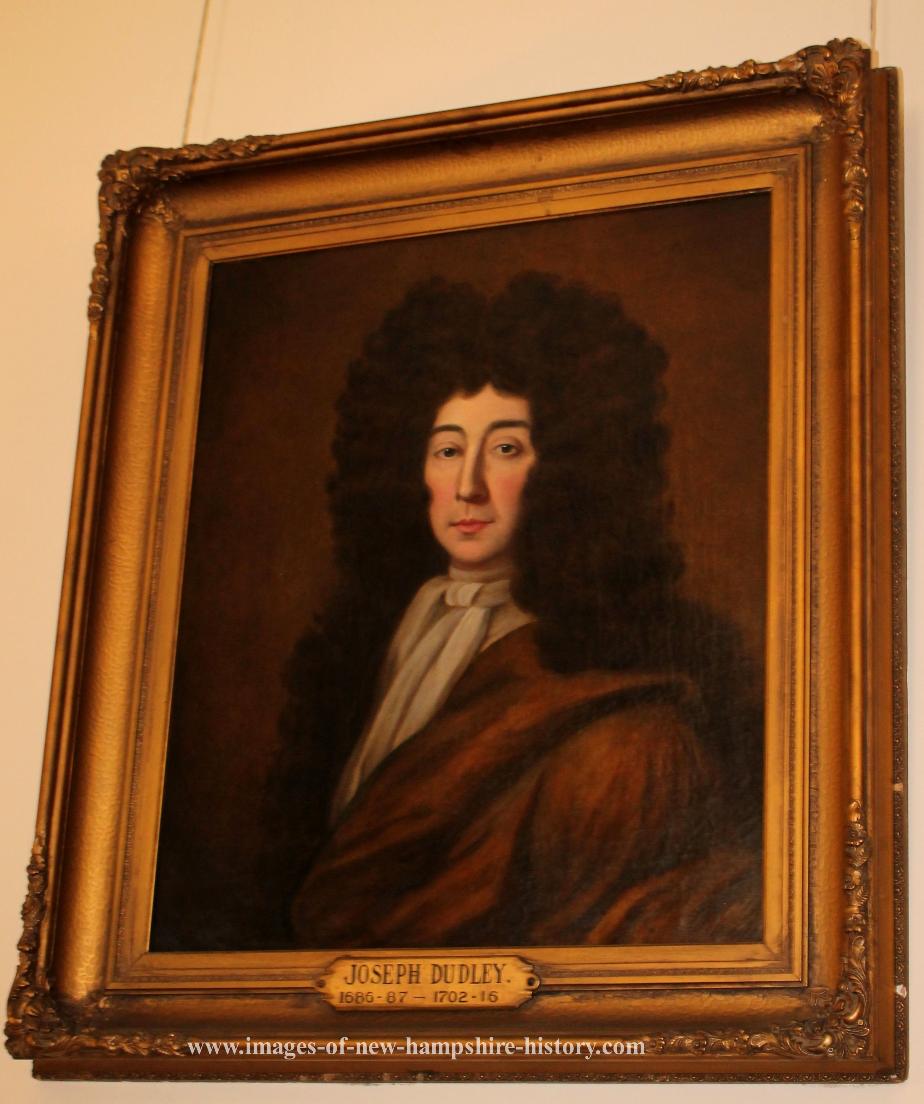
Joseph Dudley was the son of Governor Thomas Dudley and Katherine Dighton of Roxbury, Massachusetts and half-brother to the poet Anne Bradstreet. Graduating from Harvard (1665) with the prospect of being a minister, he instead followed a political career. He was a representative (1673-1675) and assistant (1676-1685) to the Massachusetts legislature and a commissioner of the New England Confederation. During King Philip's War he served in the Narragansett Campaign and fought at the Great Swamp Fight. Massachusetts authorities sent him to England in 1682 as agent to defend the Colony's interests. In 1684, when the Colony's charter was revoked, Dudley was appointed president of Andros' council and interim governor of Massachusetts, Maine, New Hampshire, and the King's Province of Rhode Island. In 1689, he was deposed and arrested with Andros and eventually sent to England for prosecution. Found not guilty, Dudley returned to America in 1691 as chief of council for New York, a position that required him to negotiate with the colony's Native communities. He later became deputy governor of the Isle of Wight and a Member of Parliament. Dudley returned to New England in 1702 to become governor, a position he held until 1715. As governor, his Indian policies were varied. He was a member of the Society for the Propagation of the Gospel in Foreign Parts and appointed one of the commissioners for the Mohegan Case in 1705. ODNB. ANBO. Bodge, Soldiers in King Philip's War, 70.
Born: September 23, 1647
Died: April 2, 1720
Simon Bradstreet 1689 - 1692
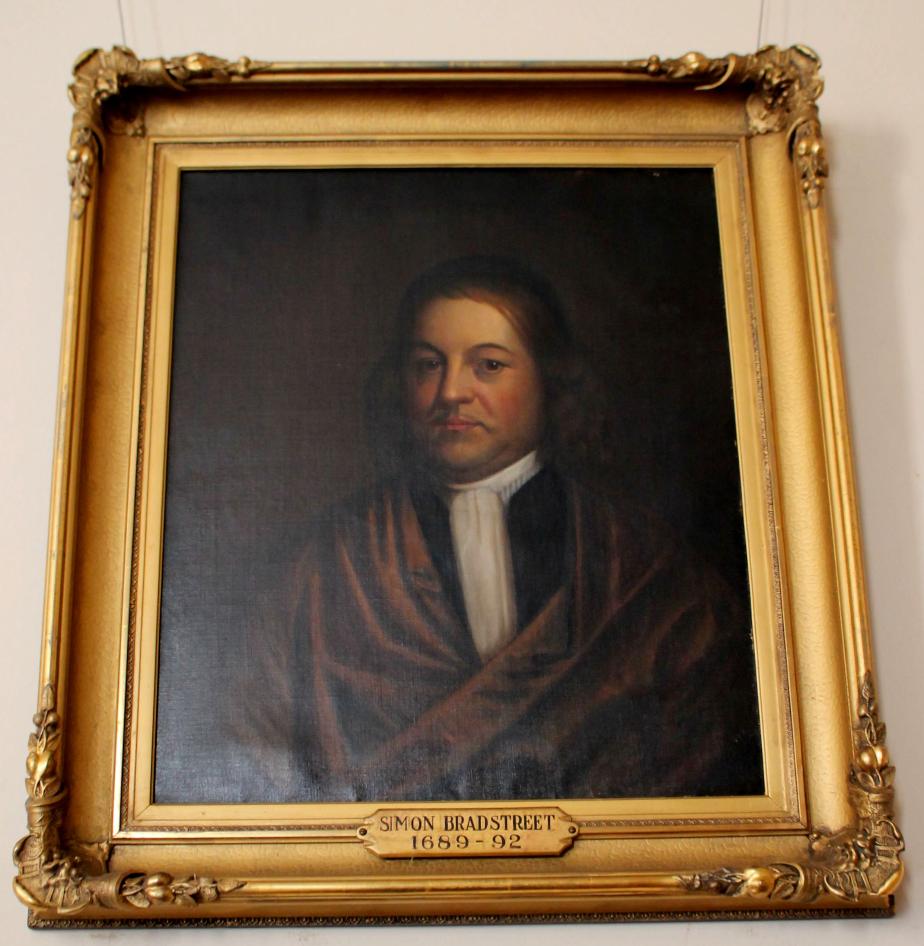
Colonial Governor. Bradstreet received bachelor's and master's degrees from Cambridge's Emmanuel College. He married Anne Dudley, who was the daughter of Puritan leader Thomas Dudley and later became the first published poet in North America. Dudley and Bradstreet relocated to the Massachusetts Bay Colony in 1630 and Dudley was soon chosen to serve as governor. Bradstreet was involved in numerous business pursuits, most notably land speculation, and founded several new towns. He also filled several important positions in local and colonial government, including deputy governor. In 1661, he was chosen as envoy to the court of Charles II, confirming the colony's charter when Charles assumed the throne of England after years of civil war. In 1679 Bradstreet was selected to serve as governor and held office until 1686, the last person to hold the position under the colony's original charter. In 1686 the colony was denied its previously held right to self-rule, and Edmund Andros was appointed governor. After Andros was removed Bradstreet served again as governor from 1689 to 1692. Bradstreet was remarkably active even old age, maintaining his participation in government and his business pursuits almost until his death at age 94. The tomb in Salem, Massachusetts which contains the plaque memorializing Simon Bradstreet is a cenotaph. In the 1790s the Bradstreet family sold the tomb to the Hathorne-Ingersoll family, who removed and disposed of the remains inside to make room for new burials. In the 1890s researcher Robert Rantoul determined what had happened to Bradstreet's remains. His research was published, which led to placement of a plaque in Bradstreet's memory on the Hathorne-Ingersoll Tomb.
John Wentworth - Lt. Governor 1717 - 1730
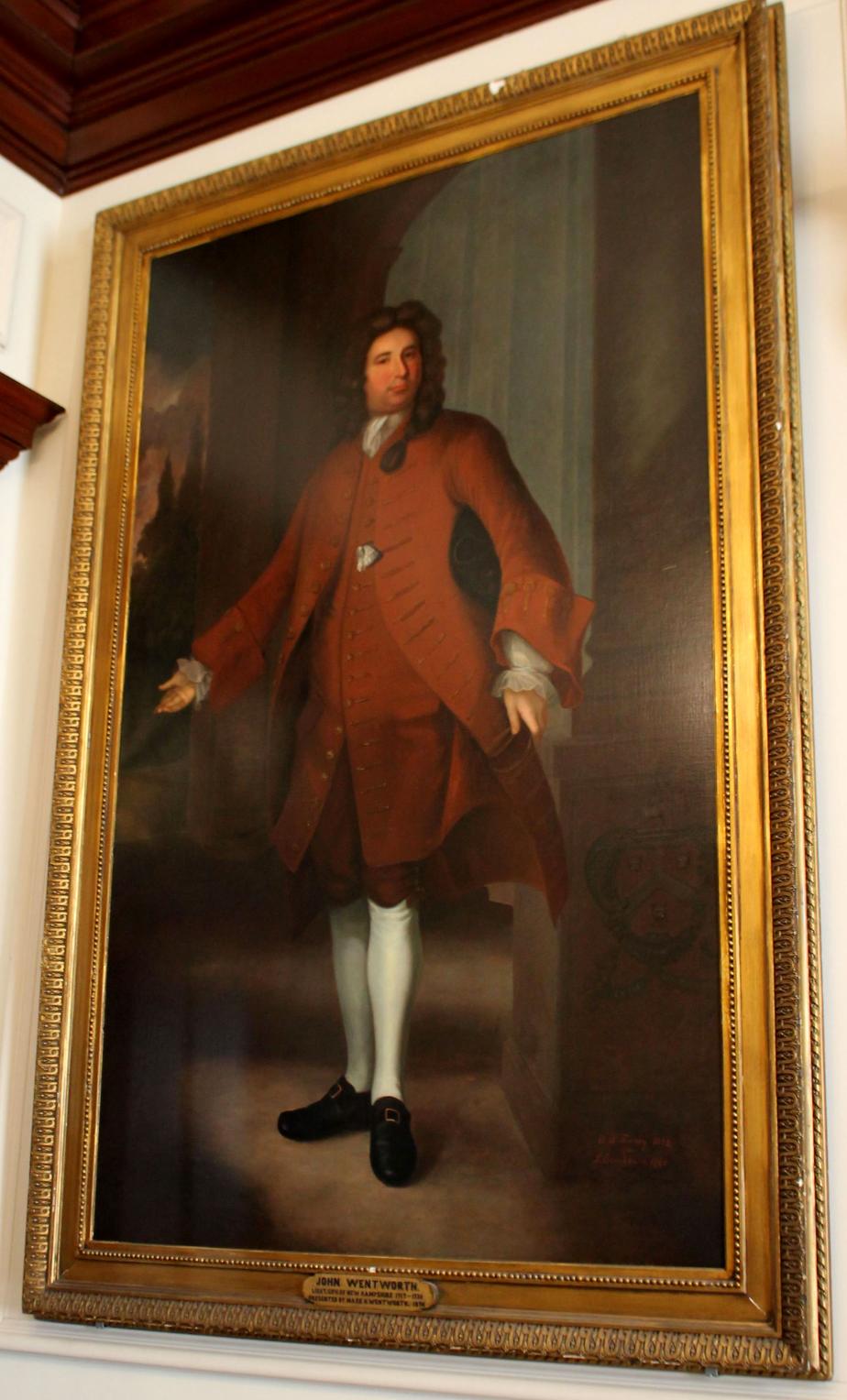
John Wentworth (1671-1730) was an early settler in New England who served as Lieutenant Governor for New Hampshire from 1717 to 1730.
Before New Hampshire had its own Royal Governor in 1741, it was administered under the guidance of the Governor of Massachusetts, and John was the Lieutenant Governor for New Hampshire from 1717 to 1730. His son, Benning Wentworth, was later the first directly appointed Royal Governor.
On October 12, 1693 he married Sara Hunking. The couple had thirteen children, three of whom (Samuel, Benning, and Mark Hunking Wentworth) would become prominent themselves. Benning Wentworth was later the first direct royal governor of New Hampshire. Mark's son in his turn would also become the last royal governor, John Wentworth.
During this period New Hampshire was viewed and treated as an administrative district of Massachusetts. It did have its own Lt. Governor and Assembly, but this was a requirement of communications and geography instead of the result of a political decision. John Wentworth was first appointed Lt. Governor late in 1717, but for several years had little function in the government. Then in 1722, governor Samuel Shute returned to England, a Lt. Governor took over as chief magistrate in Massachusetts, and Wentworth's role in New Hampshire was greatly expanded. He continued as Lt.Governor until his death in 1730.
William Burnet - Royal Governor 1728-1729
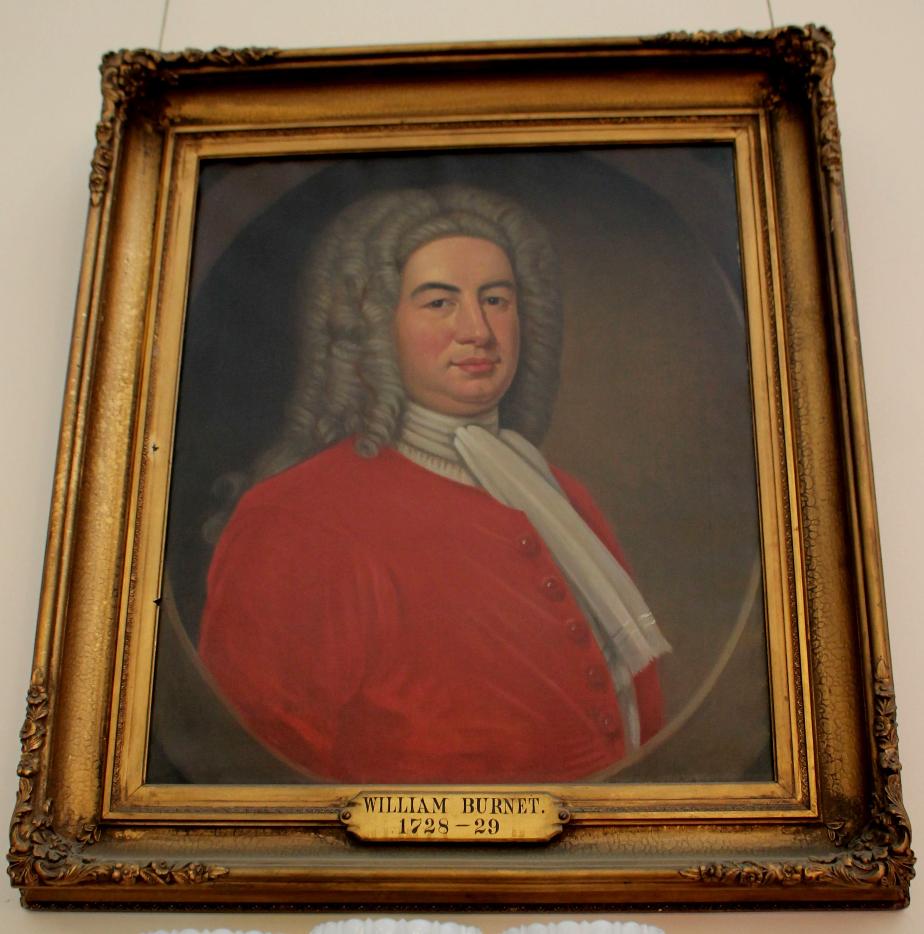
Colonial Governor
William Burnet was a British civil servant and colonial administrator. He served as governor of New York and New Jersey from 1720 to 1728, and governor of Massachusetts and New Hampshire from 1728 to 1729. Born at the Hague, Netherlands, to a wealthy and influential family, his father Gilbert Burnet, a favorite of William of Orange (who stood godfather to young William), and later Bishop of Salisbury.William was tutored by Isaac Newton and studied at Oxford.
From wikipedia, "Burnet was a capable administrator and better than the average colonial governor, although his tenure was not without disputes. He was appointed governor of New York and New Jersey in the spring of 1720, and arrived in New York City on September 16, 1720. His most important accomplishment as governor was to strengthen the colony's position on the frontier. Governor Burnet encourage direct trade with Indian tribes to reduce the influence of French traders. Along with this initiative, he strengthened outposts like Fort Oswego. This was an effective strategy. Many of the goods bartered with the Indians for furs were produced locally, while the French imported theirs so the colonists could undercut French prices. He convened a meeting at Albany in 1722 of representatives from several colonies, that resulted in peace with Indian tribes for several years."
William was driving from Cambridge to Boston, when his carriage was overturned on the causeway, he cast into the water, and he was chilled as to be thrown into a fever from which he died a week later.
Jonathan Belcher 1730 - 1741
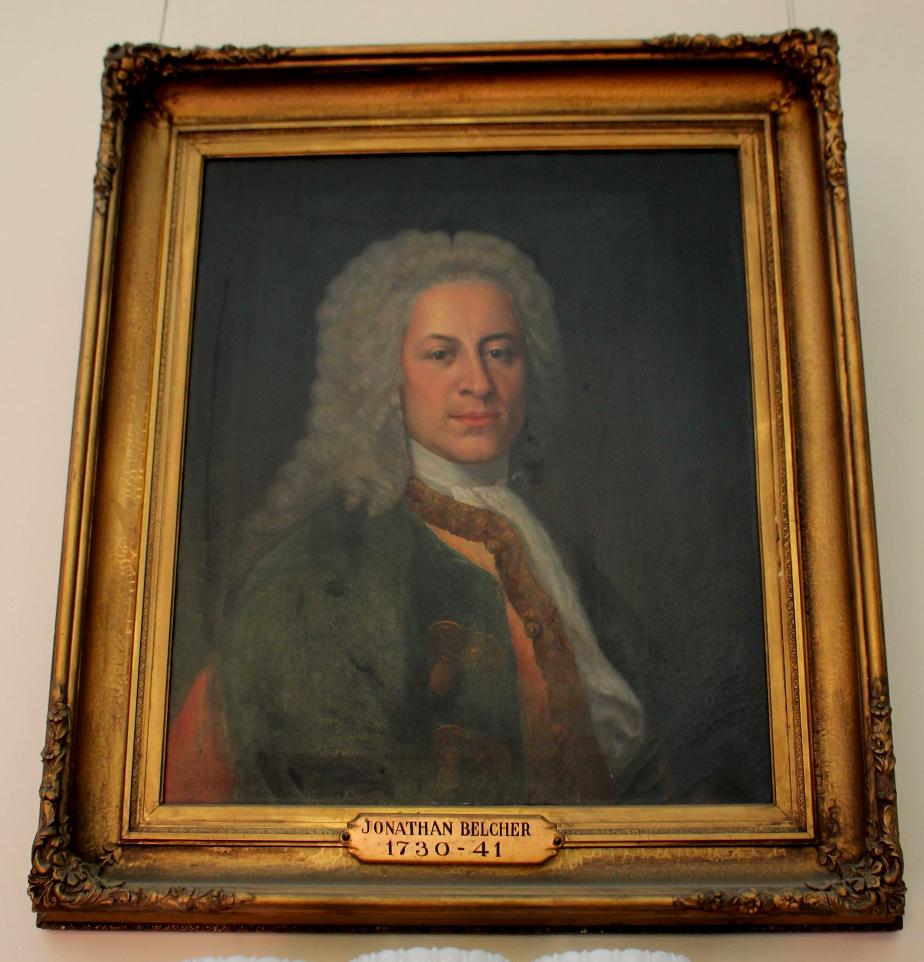
Belcher, Jonathan (1681/2-1757), governor of the Province of New Jersey from 1747 to 1757, granted Princeton its second charter and helped its advancement in many other ways; the College, his fellow trustees declared in 1755, viewed him as ``its founder, patron, and benefactor.''
A native of Cambridge, Massachusetts, he graduated from Harvard in 1699, second in a class of twelve, accumulated a fortune at an early age as a merchant in Boston, and then occupied himself with a succession of public offices: tithingman and town accountant of Boston, member of the Massachusetts Council, governor of Massachusetts and New Hampshire, and finally, during the last decade of his life -- to quote from his commission, which is preserved in the University Library -- ``Captain General and Governor-in-Chief of the Province of New Jersey and territories thereupon depending in America, and Vice-Admiral of the same.''
Belcher had a quick temper and a sharp tongue, which aggravated the troubles that every royal governor faced in reconciling colonial interests with those of the Crown, and earned for him many enemies in Massachusetts and New Hampshire whose intrigues brought about his dismissal in 1741. He was, however, able to convince the English court that he had been maligned by his political enemies, and after living in England for several years he was appointed to the New Jersey governorship.
Soon after his arrival in New Jersey in 1747, Belcher, a Congregationalist, adopted the infant college of the dissenting Presbyterians as his own and busied himself in its promotion for ``better enlightening the minds and polishing the manners of this and neighboring colonies.'' Finding the legality of the College's original charter under attack -- it had been granted by Acting Governor John Hamilton, whose authority was questioned -- Belcher granted a second one on September 14, 1748. The charter provided for twenty-three, rather than twelve, trustees, thus permitting the governing board to broaden and strengthen its representation politically and religiously (Charter). Eight weeks later at the College's first commencement, the trustees conferred on Belcher Princeton's first honorary degree.
Belcher encouraged the trustees to raise funds for a college building and a house for the president and, in the dispute as to where the College was to be settled, threw his influence in favor of Princeton -- ``as near the center of the Province as any and a fine situation.''
Just before the College moved from Newark to Princeton Belcher gave the trustees his library of 474 volumes, his full-length portrait, his carved and gilded coat-of-arms, a pair of terrestrial globes, and ten framed portraits of kings and queens of England. In their address of thanks the trustees asked his permission to name the first building, then being erected in Princeton, Belcher Hall. Modestly -- and providentially -- the governor declined this honor and persuaded them to name it Nassau Hall for ``the glorious King William the Third . . . of the illustrious House of Nassau,'' who was held in high regard by dissenters as a champion of religious freedom and political liberty.
Although only six of Belcher's books have survived, he is still held in honor as the library's oldest benefactor: when Firestone Library was built in 1948, the governor's arms were carved in stone over the main entrance along with those of the University. His portrait and those of the ten English monarchs were destroyed during the Revolution. The portrait of Belcher that now hangs in Nassau Hall was obtained from an English descendant of the governor and presented to the University in 1953 by Carl Otto von Kienbusch '06.
Benning Wentworth - Royal Governor : 1741 - 1767
Benning Wentworth (1696–1770) was the colonial governor of New Hampshire from (1741-1766). He was born and died in Portsmouth. He was the son of the John Wentworth who had been Lieutenant Governor. His nephew John Wentworth succeeded him.
Wentworth named the first of his so-called New Hampshire Grants Bennington. In all, he named and granted 129 towns in 15 years, benefiting handsomely from both the £100 fees he collected for each grant and his practice of reserving 500 acres of the best land in each grant for himself, for later sale. In 1791, 21 years after his death, the district Wentworth had so highhandedly, so profitably made his own became a large part of the state of Vermont.
A royal governor's authority was great by law, but limited in practice by the assembly's control of expenditures, including the governor's salary. During Wentworth's tenure, the northern colonies were continually at war with the French in Canada and their Indian allies. Wentworth was determined to furnish troops to protect the New Hampshire frontier. The assembly, however, refused to make the necessary appropriations and fought his repeated attempts to get around their resistance. At one point, Wentworth simply suspended the assembly, bringing government business in New Hampshire to a standstill for five years.
In the end, Wentworth mainly got what he wanted, in large part because his office-jobbery freed him from the assembly's financial control. His vigorous upholding of the royal prerogative and his own bank account were on the whole fortunate for New Hampshire, which grew greatly in population and prosperity during his 25-year rule, the longest of any English colonial governor.
Wentworth has come down in history as the very type of British colonial aristocrat. Corpulent and crippled by gout, he was driven around Portsmouth in a splendid carriage, with enough outriders to satisfy a duke. His palatial estate there, at Little Harbor, was one of the colonies' most famous stately homes.
For all his luxury and hauteur, however, the common people of New Hampshire seem to have loved him. They smiled when, at 64, the widowed Wentworth scandalized polite Portsmouth by marrying his housekeeper, a woman young enough to be his granddaughter; and when he died at Little Harbor 10 years later, they mourned. One of his biographers has speculated that if the crown had appointed more governors with Wentworth's strength and ability, our history might have turned out very differently. In the event, Wentworth retired just as the currents of history that would put an end to his world forever began to surge toward the American Revolution.
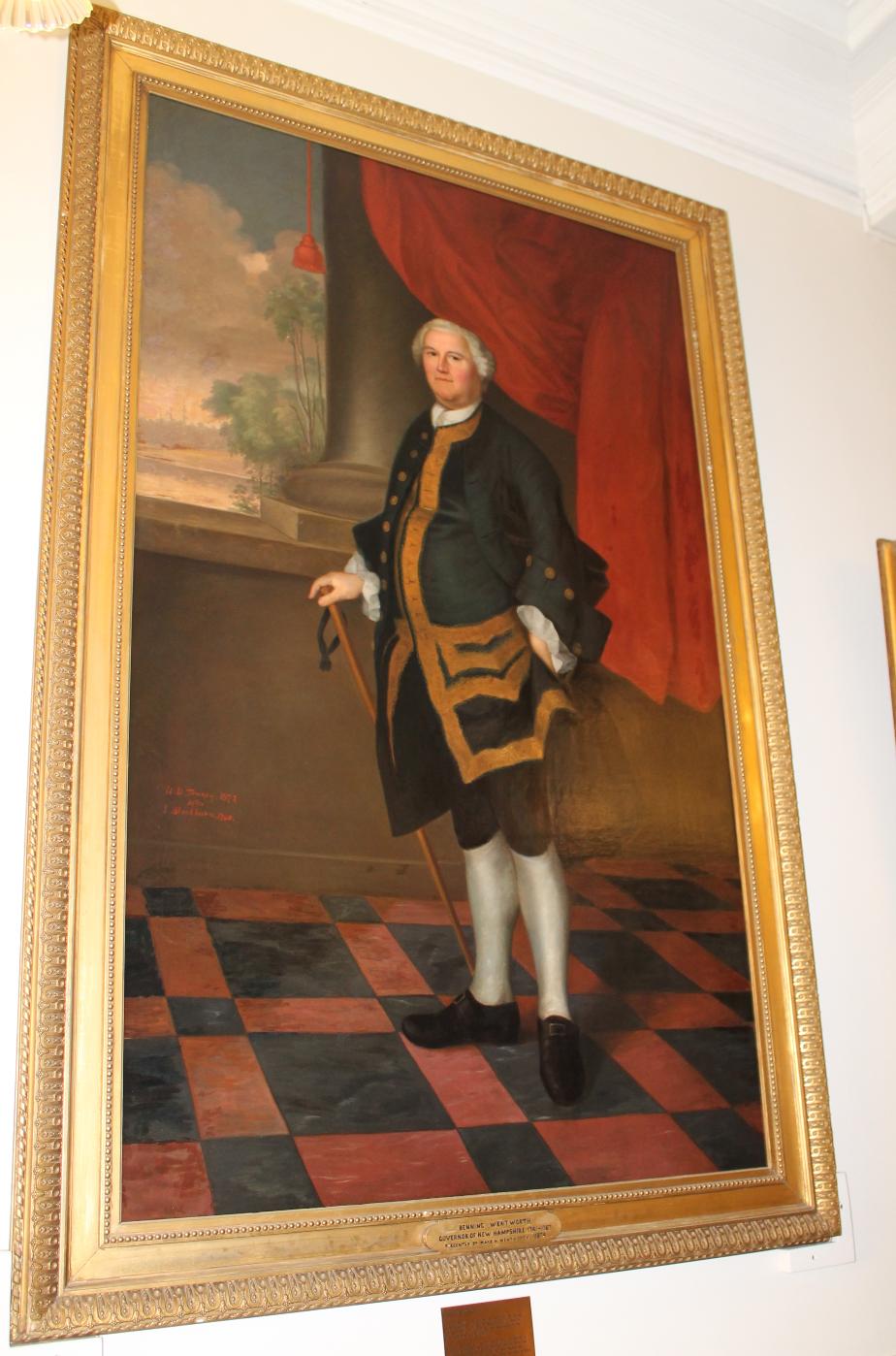
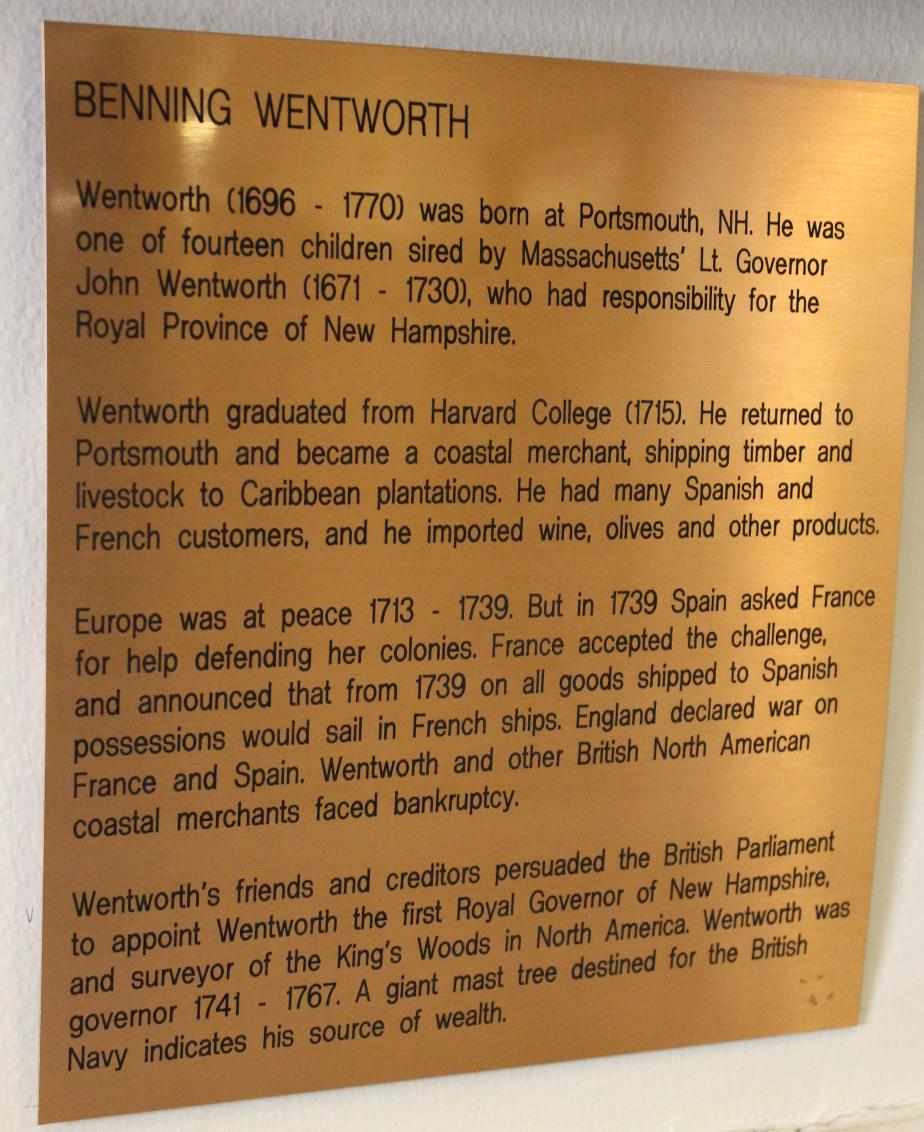
John Wentworth - Royal Governor 1767 - 1775
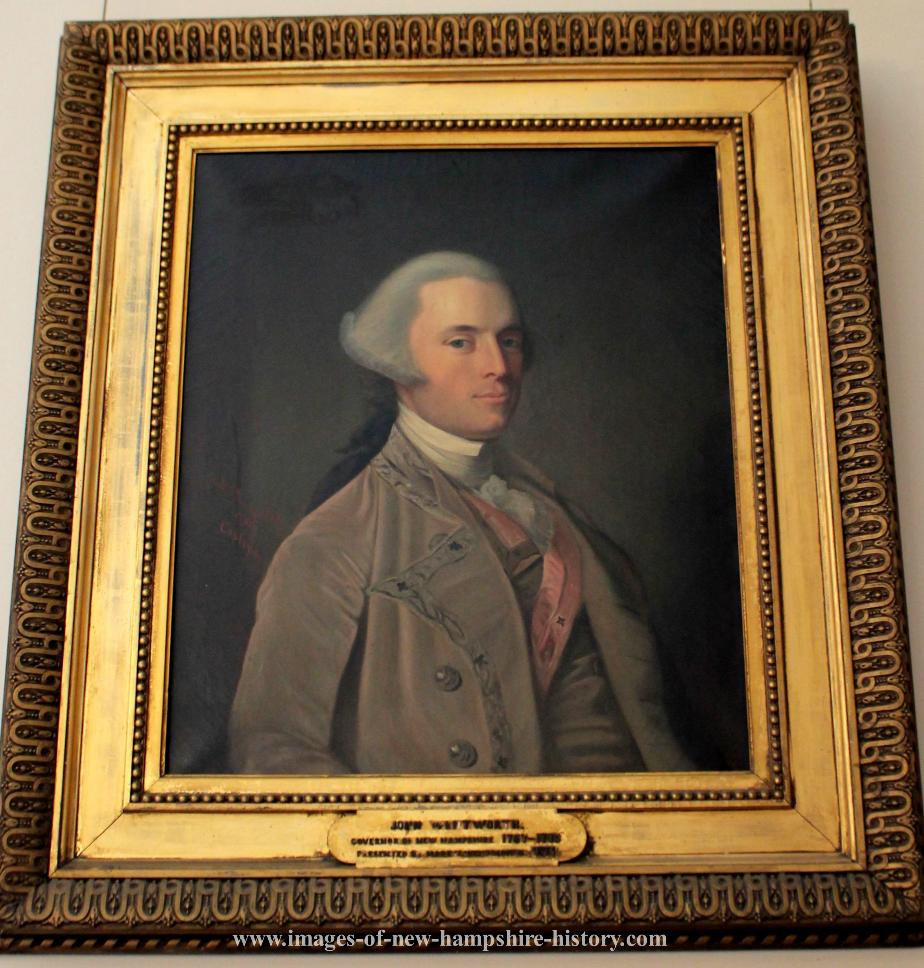
Wentworth was born in Portsmouth, New Hampshire, on August 9, 1737.His ancestry went back to some of the earliest settlers of the Province of New Hampshire, and he was grandson of John Wentworth, who served as the province's lieutenant governor in the 1720s, a nephew to Governor Benning Wentworth, and a descendant of "Elder" William Wentworth. His father Mark was a major landowner and merchant in the province, and his mother, Elizabeth Rindge Wentworth, was also from the upper echelons of New Hampshire society. In 1751, he enrolled in Harvard College, receiving a bachelor's degree in 1755 and a master's degree in 1758. During his time at Harvard, he was a classmate and became a close friend of future Founding Father and President of the United States John Adams.
In 1759, the young Wentworth made his first significant investment, joining a partnership in the purchase and development of land in the Lake Winnipesaukee area. Wentworth sat on a committee of partners that oversaw the settlement of the community, which the investors named Wolfeboro. In 1763, his father sent him to London to act on behalf of his merchant interests. Based on his father's introductions, he was soon mingling with the upper levels of British society. Among the connections he made was one with the Marquess of Rockingham, a distant relative (although neither was apparently aware of this) and a leading Whig politician. In 1765, Wentworth, still in London, was appointed by the province as one of its agents. That same year Rockingham became Prime Minister and led the repeal of the hated Stamp Act. Whether Wentworth influenced Rockingham's decision is uncertain, but New Hampshire's other agent, Barlow Trecothick, drafted with Rockingham a position paper on the matter, and Wentworth was clearly sympathetic to colonial opposition to the Stamp Act.
Wentworth's uncle Benning had spent many years of his governorship lining his pockets by selling land grants to the west of the Connecticut River, territory to which the province held dubious claim. In 1764, the Lords of Trade ruled that New Hampshire's western border was at the Connecticut River, decisively awarding the territory (the future state of Vermont) to the Province of New York. The governor, however, refused to resign, leading the Lords of Trade to consider his recall. Wentworth interceded, and convinced them to allow his uncle the dignity of resigning in his nephew's favor.
In August 1766, he was commissioned as Governor and vice admiral of New Hampshire, and Surveyor General of the King's Woods in North America. Before he returned to North America he was awarded a Doctorate of Common Law by Oxford University. After a difficult crossing he arrived at Charleston, South Carolina in March 1767, where he proceeded to make the first major survey of the forests of Georgia and the Carolinas on behalf of the crown.[6] He then made his way north overland, and was received in Portsmouth with pomp and ceremony on June 13, 1767.
John Langdon 1785 - 1786
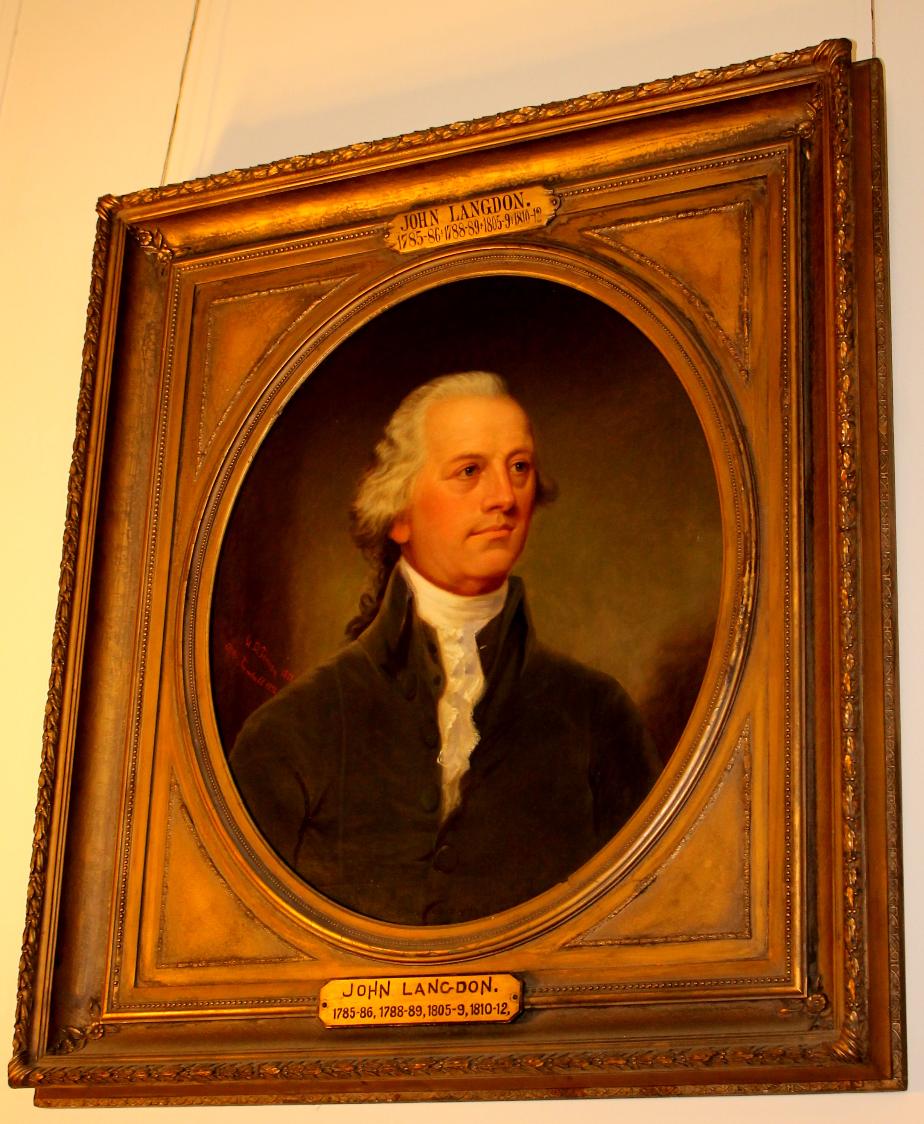
John Sullivan 1786 - 1788
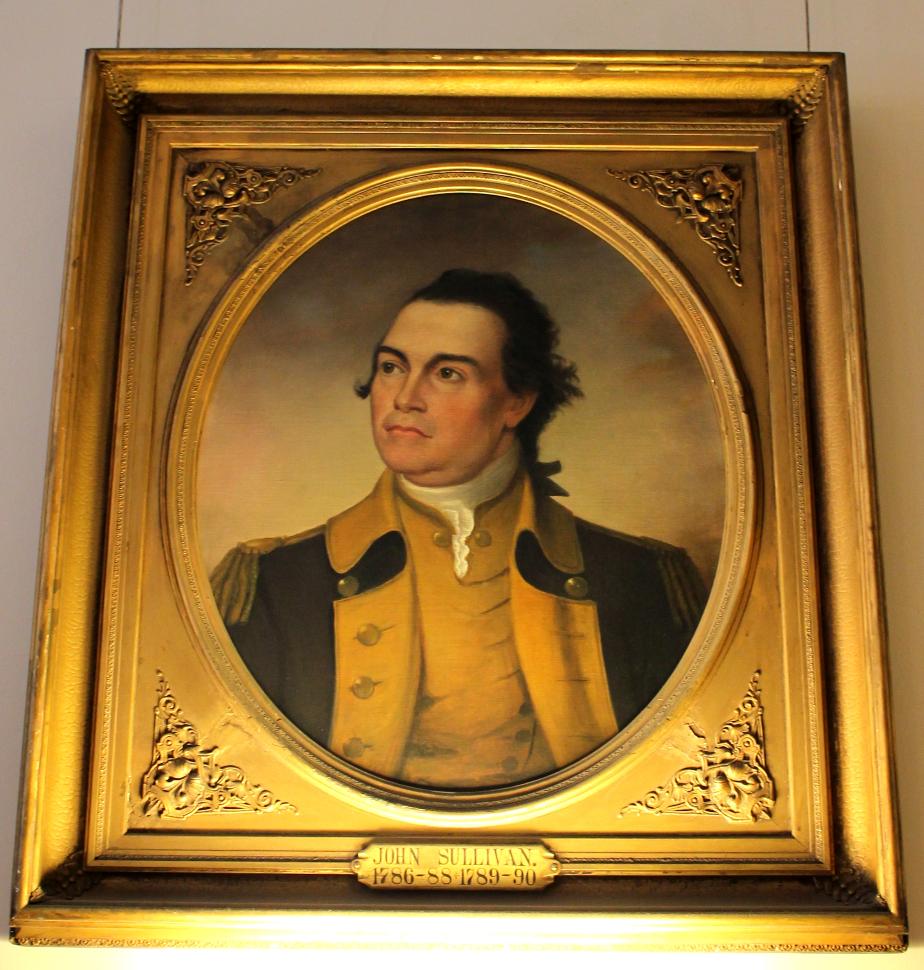
John Langdon 1788 - 1789

John Sullivan 1789 - 1790

Josiah Bartlett 1790 - 1794
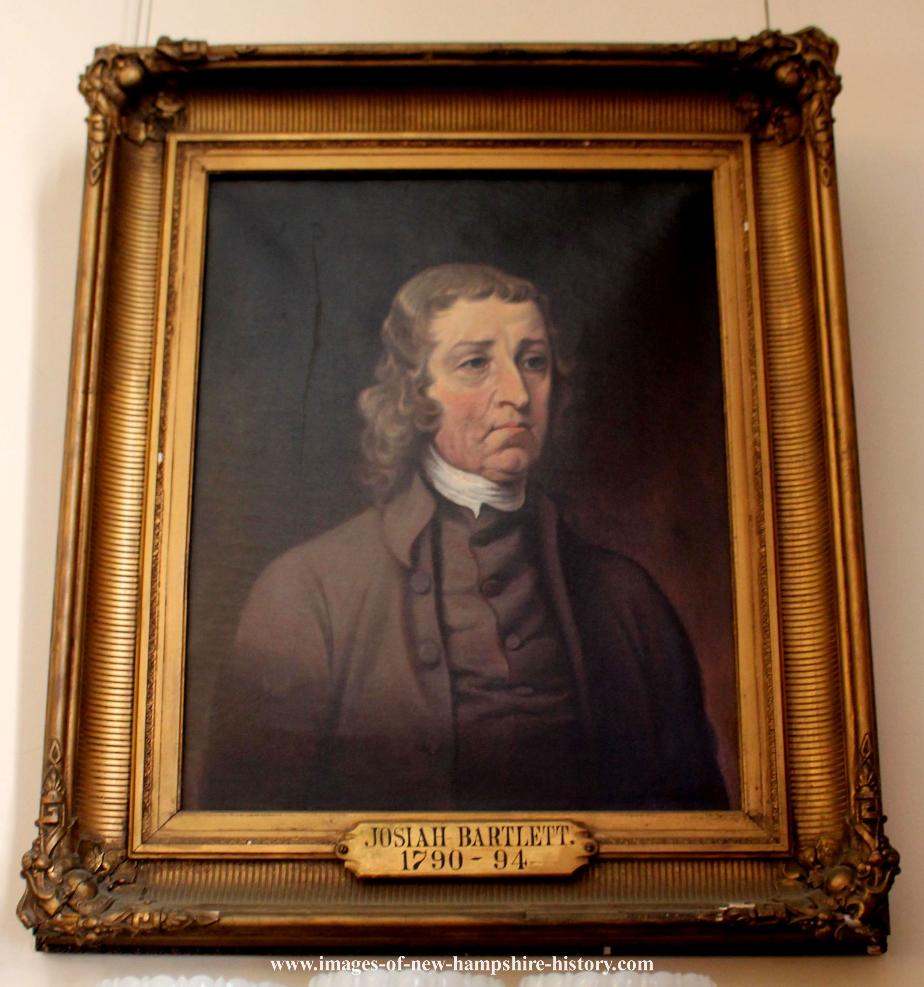
John Taylor Gilman 1794 - 1805
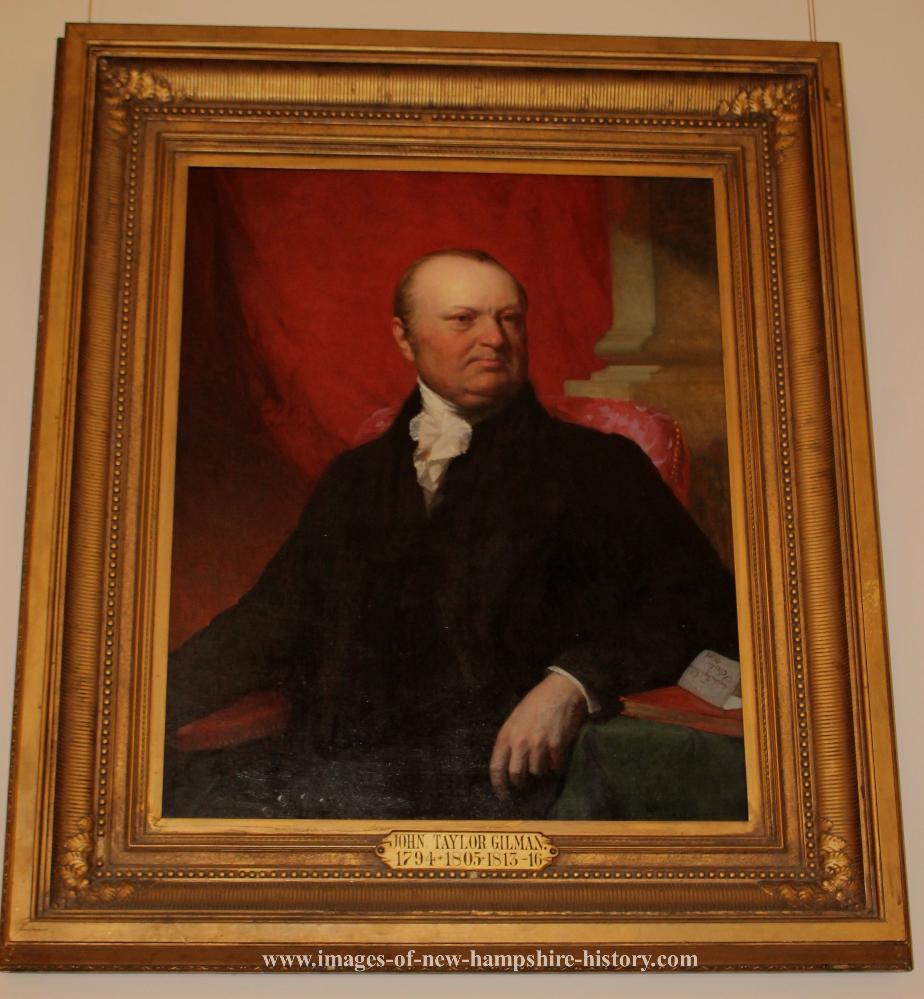
John Langdon 1805 - 1809

Jeremiah Smith 1809-1810
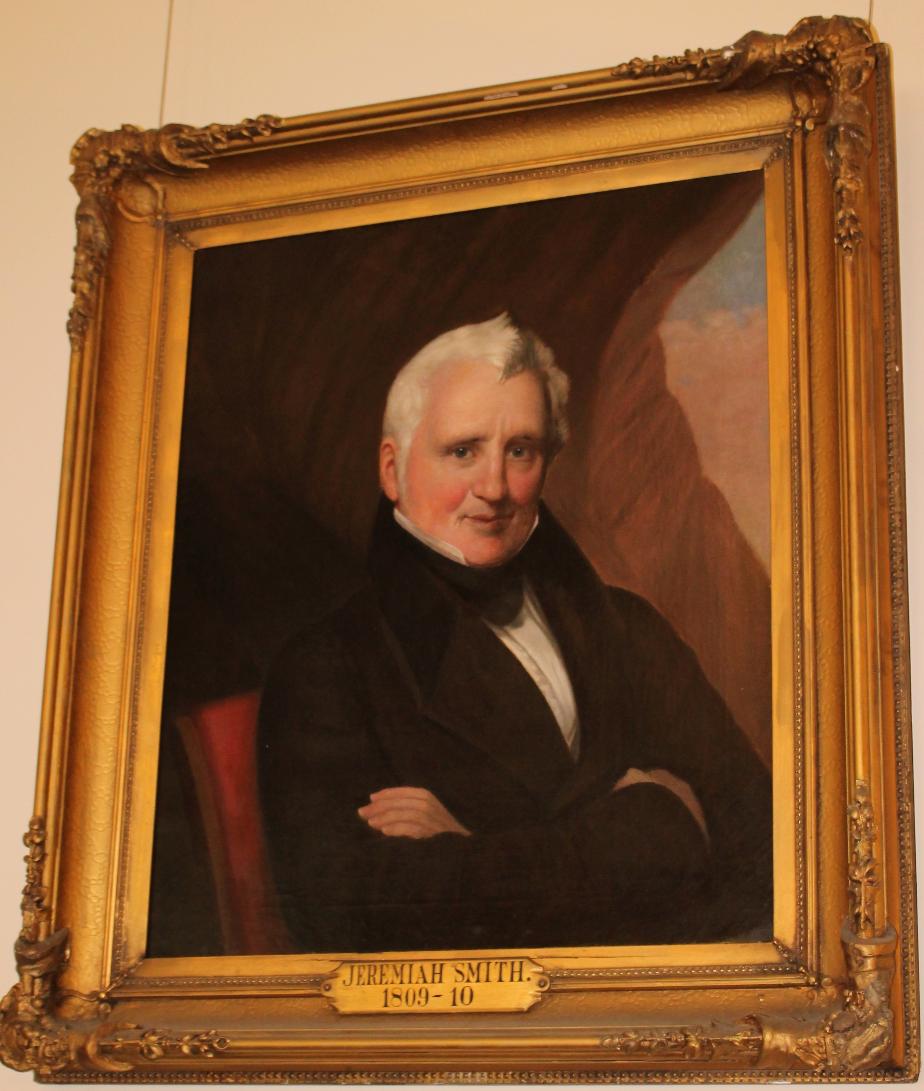
John Langdon 1810-1812

John Taylor Gilman 1813 - 1816
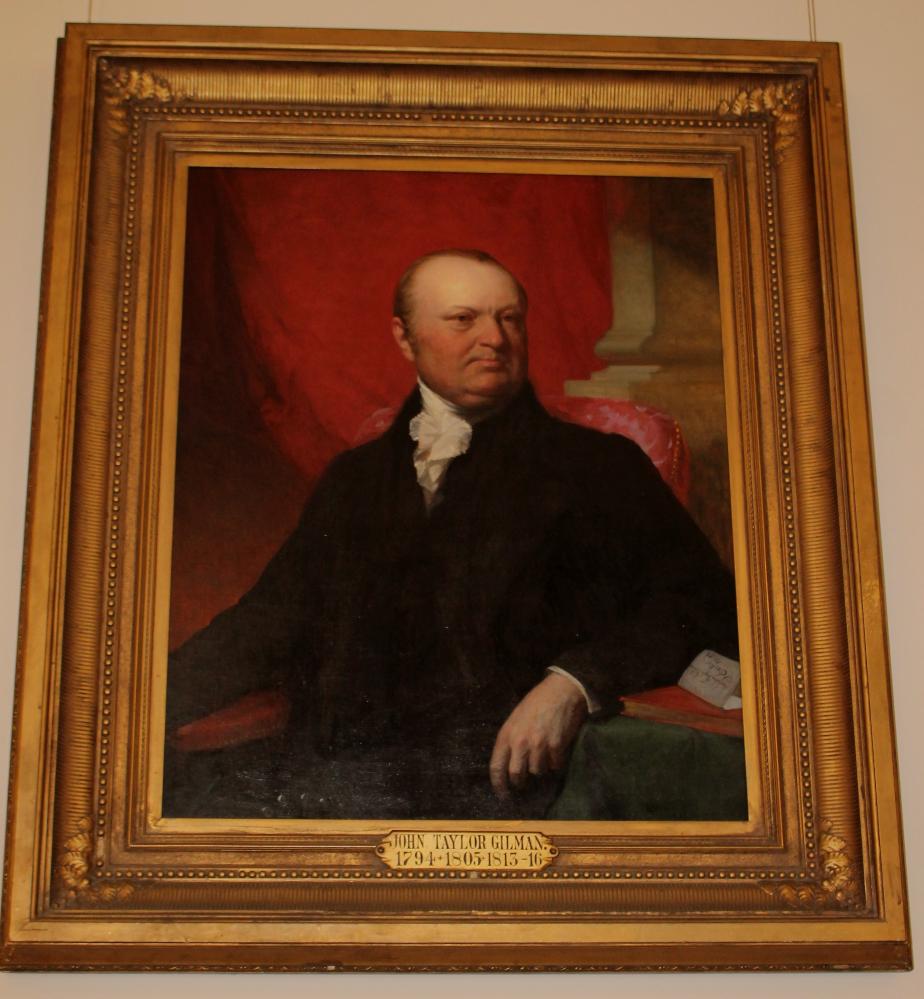
Governor William Plummer - 1812 - 1813 & 1816 - 1819
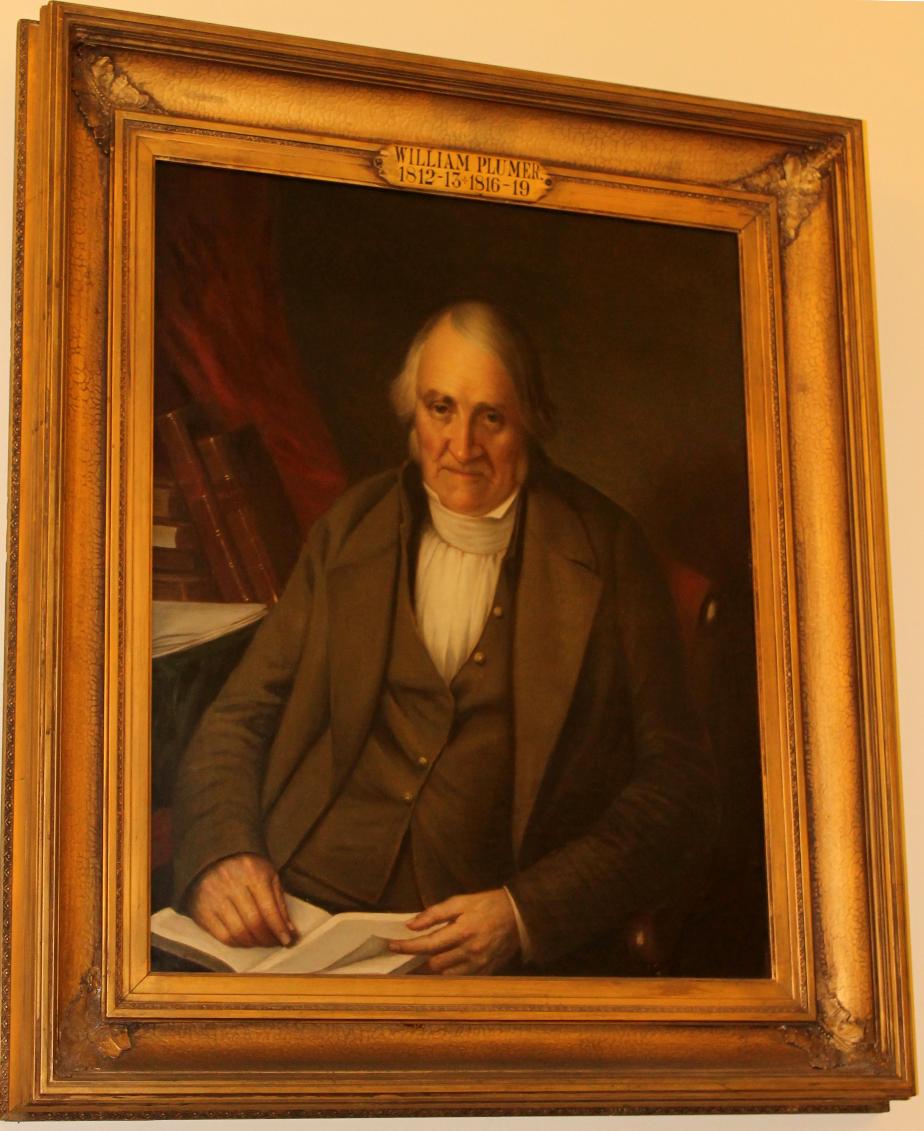
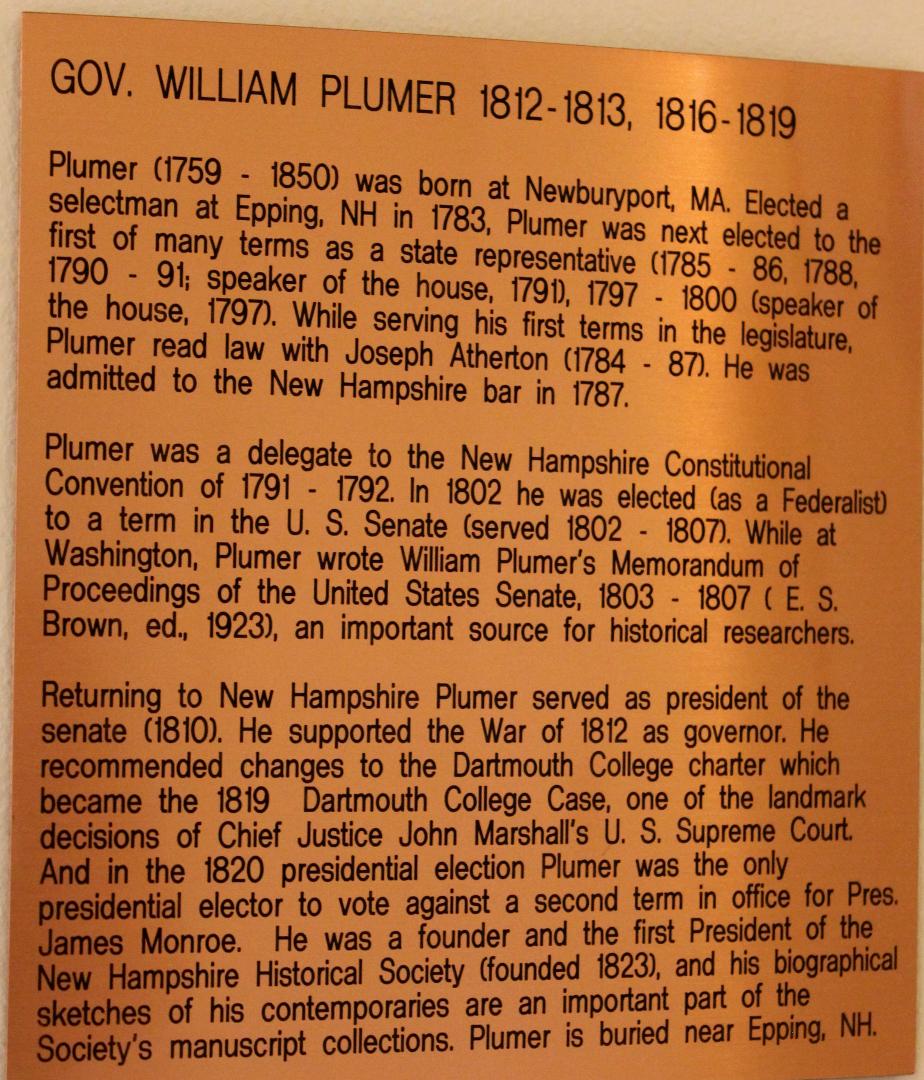
Governor Samuel Bell 1819-1823
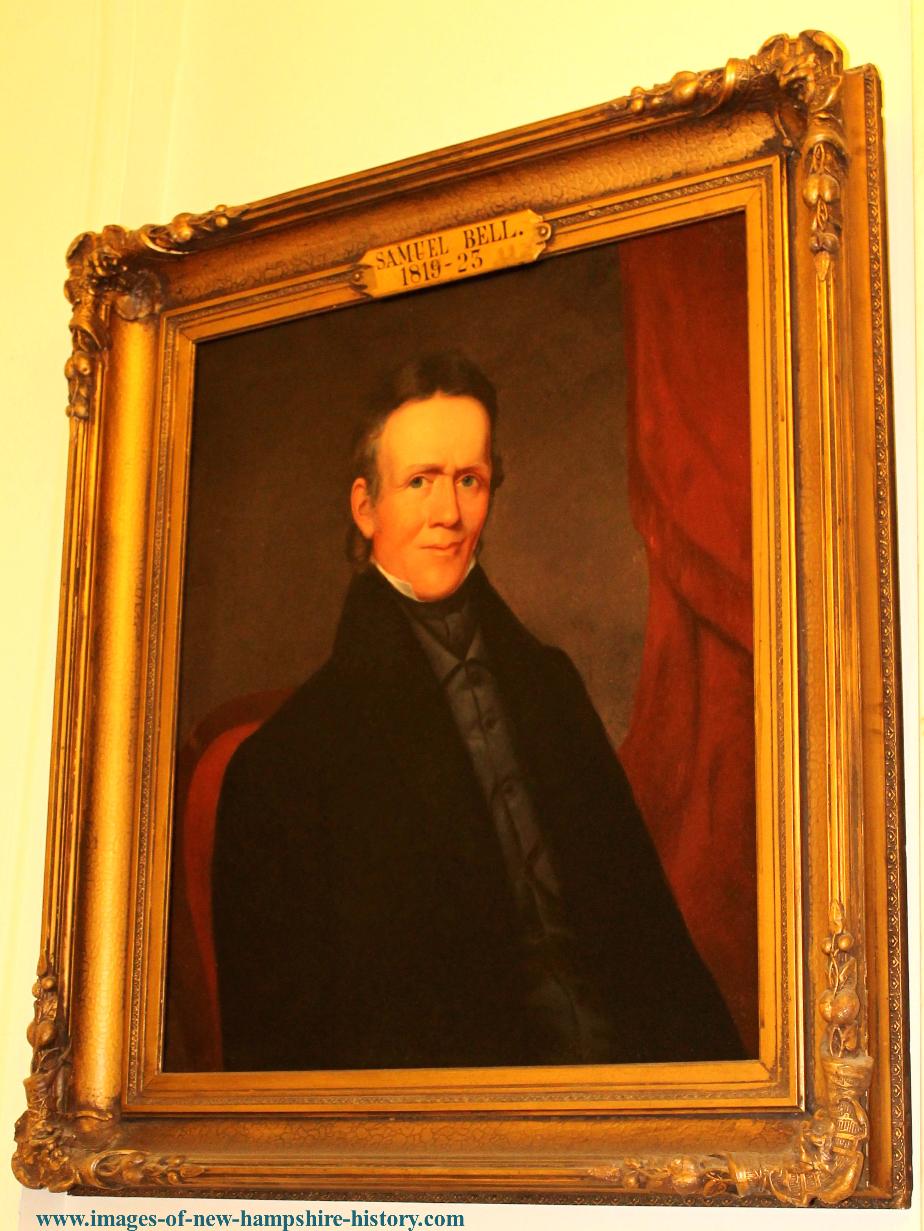
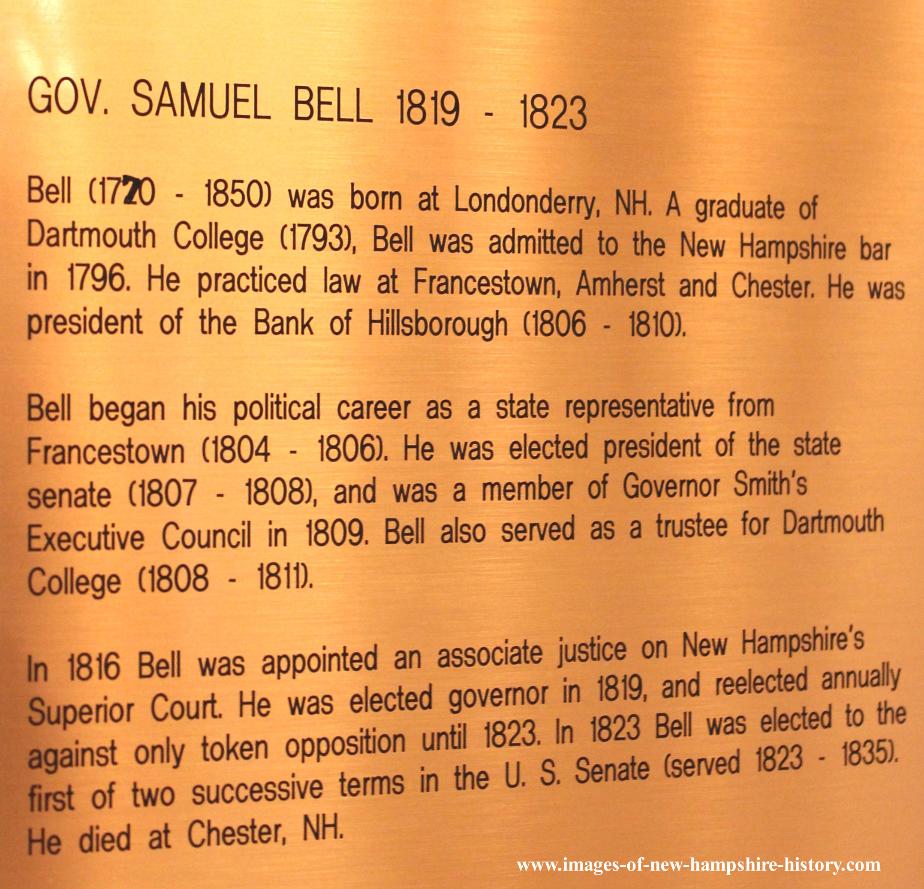
Levi Woodbury 1823-1824
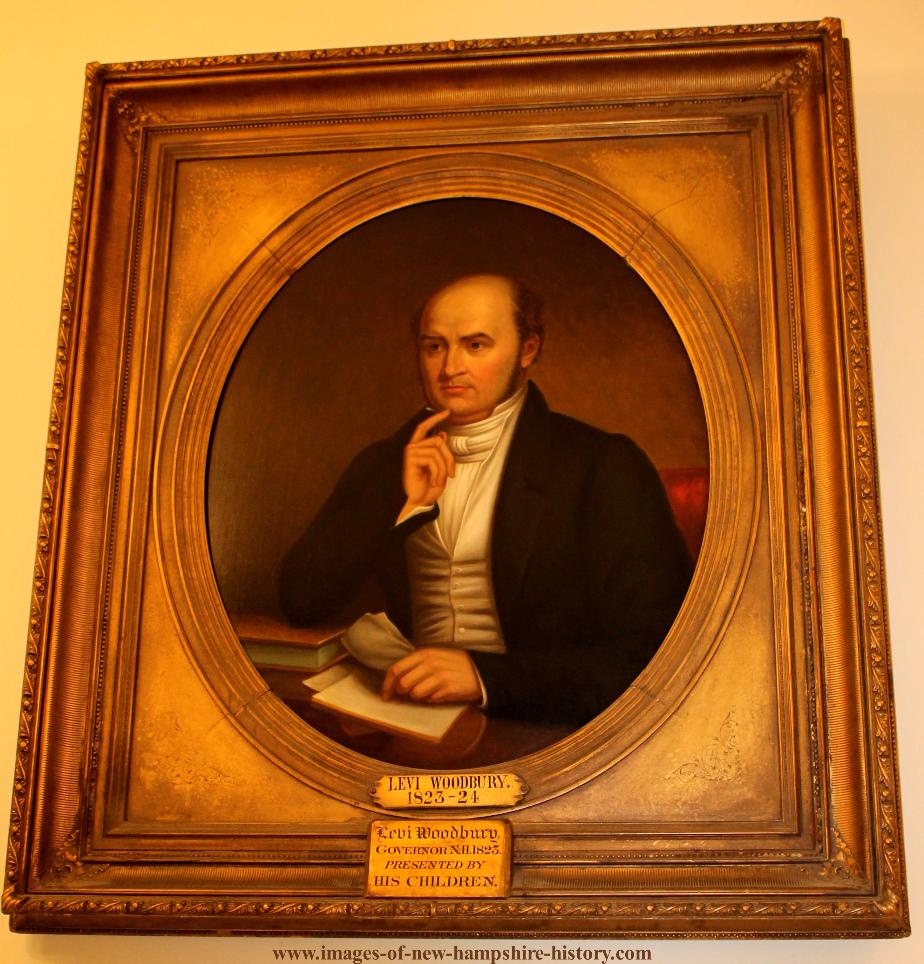
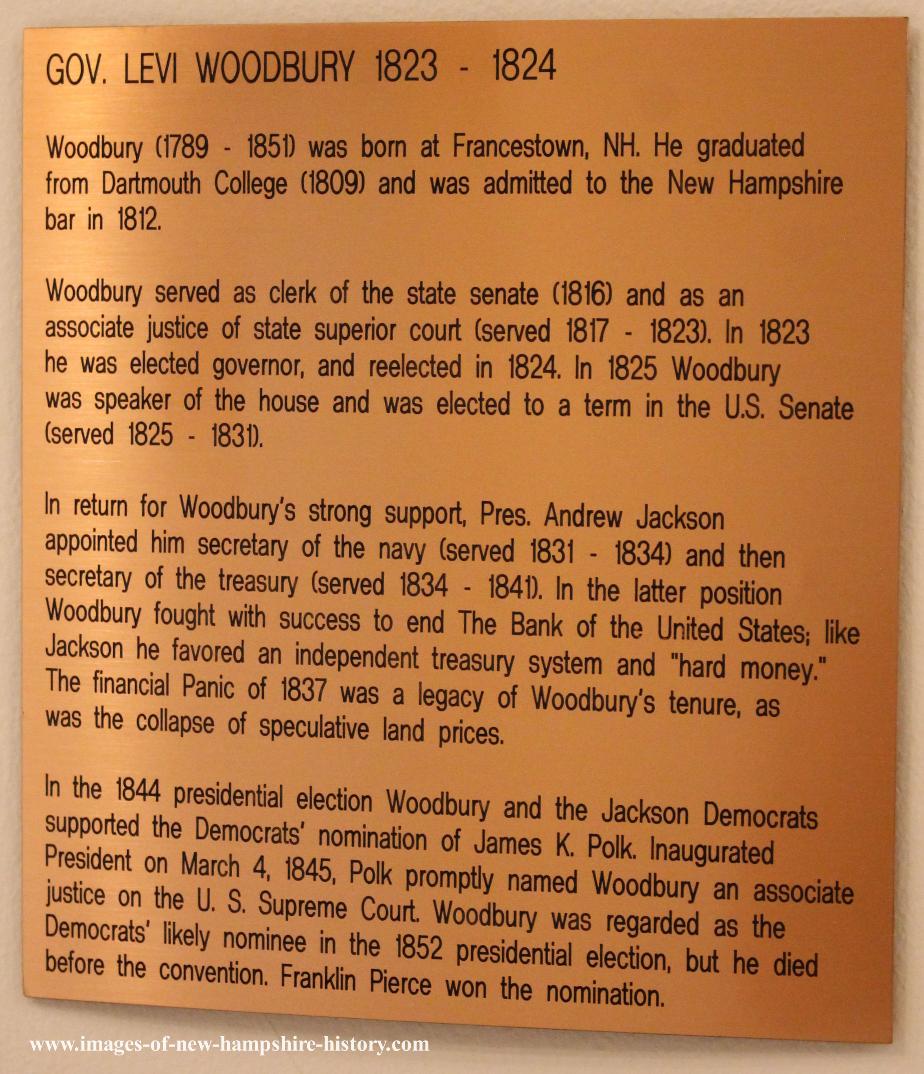
Governor David L.Morril 1824 - 1827
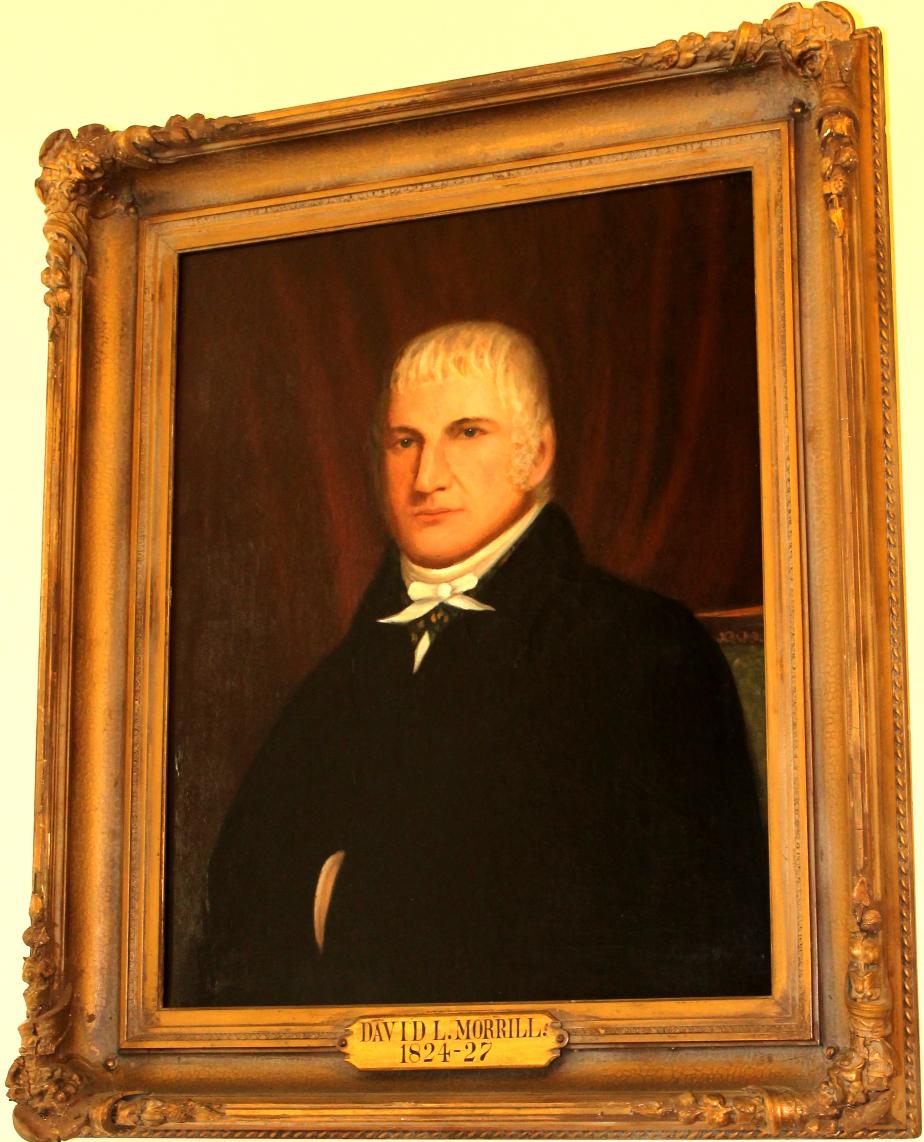
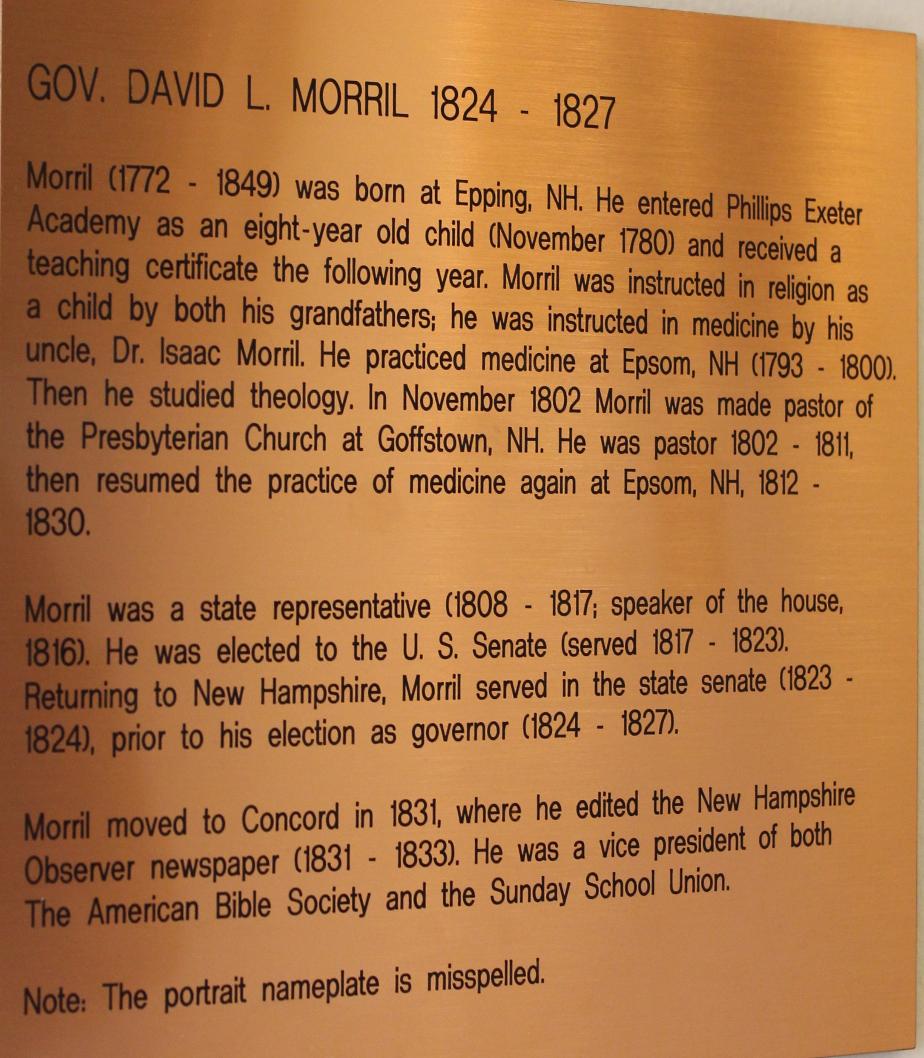
Gen. Benjamin Pierce (Chelmsford Ma) : 1827 - 1830
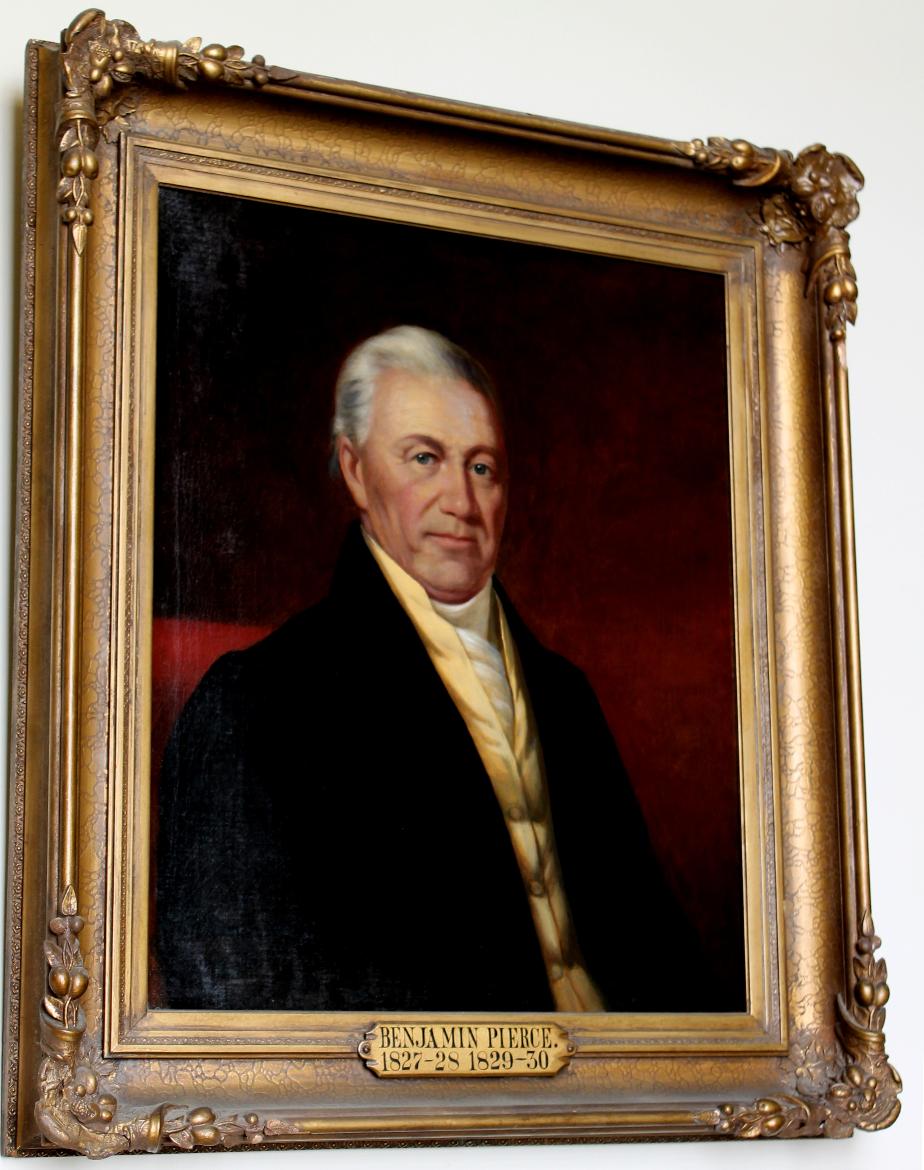
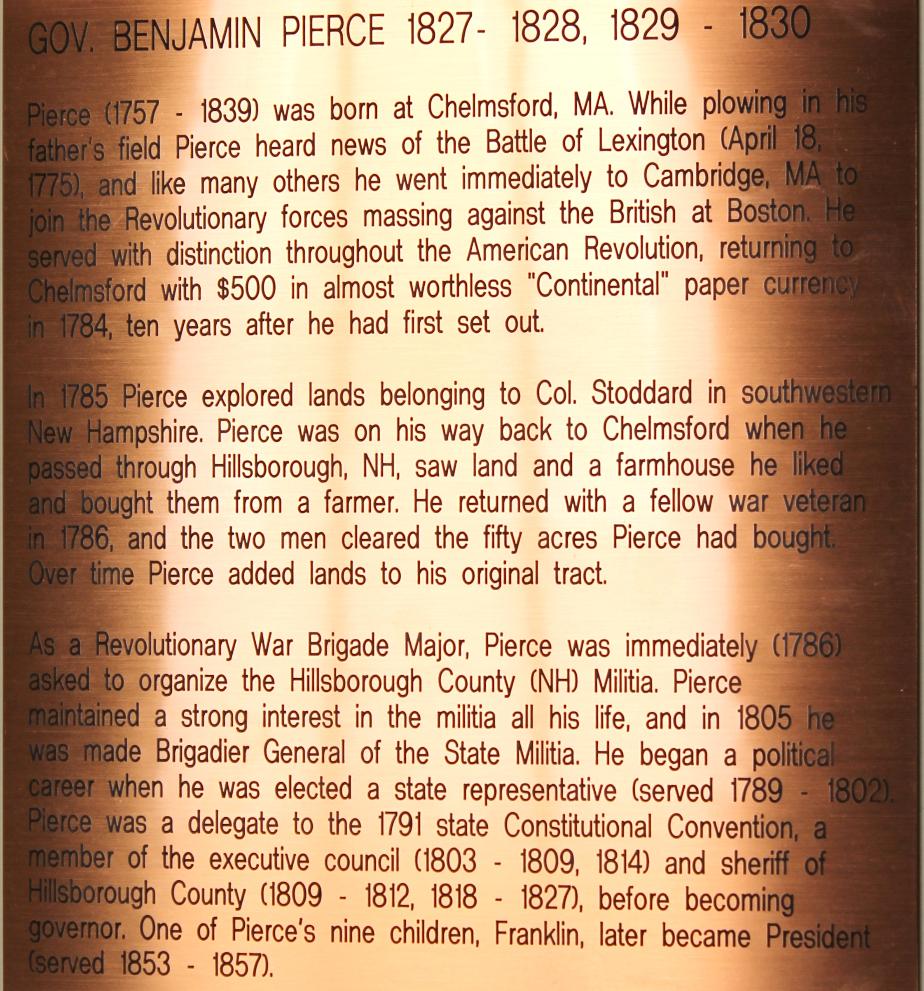
Governor John Bell: 1828-1829
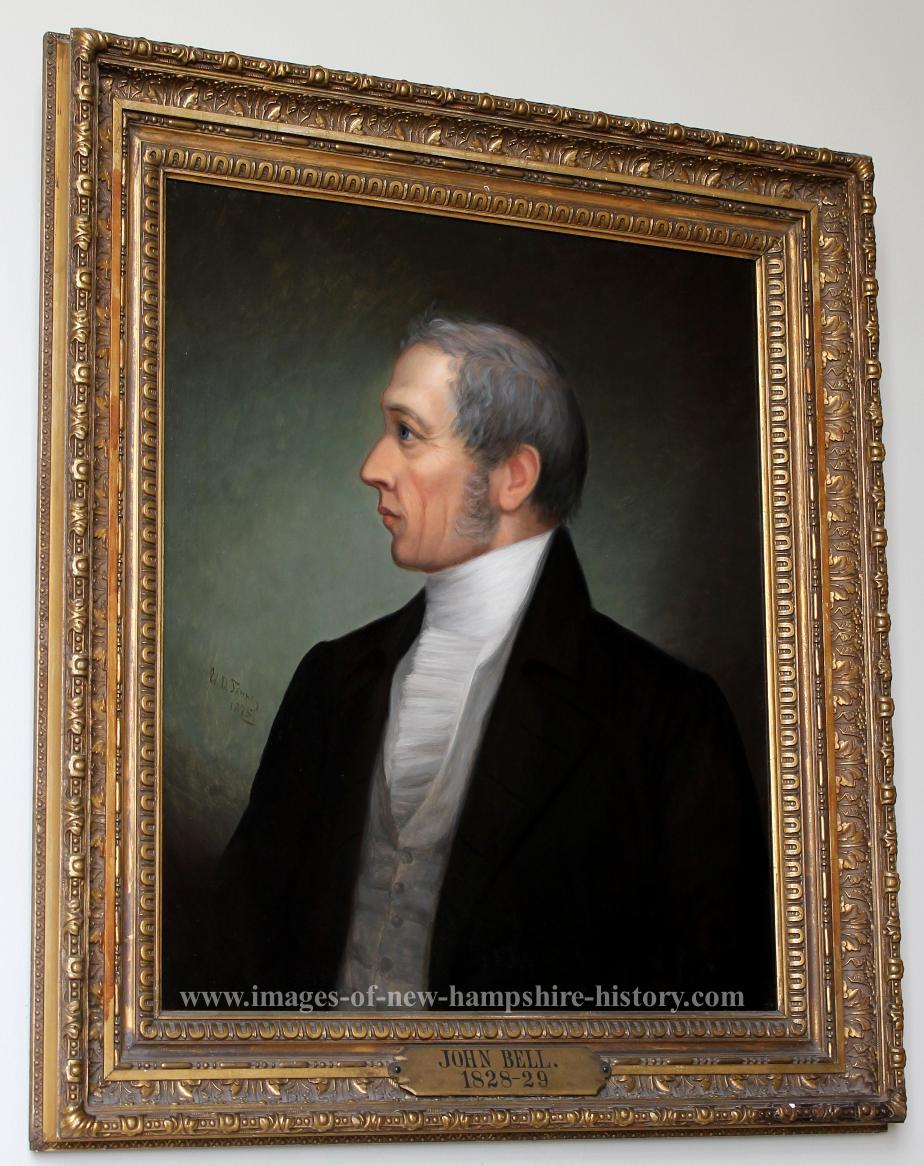
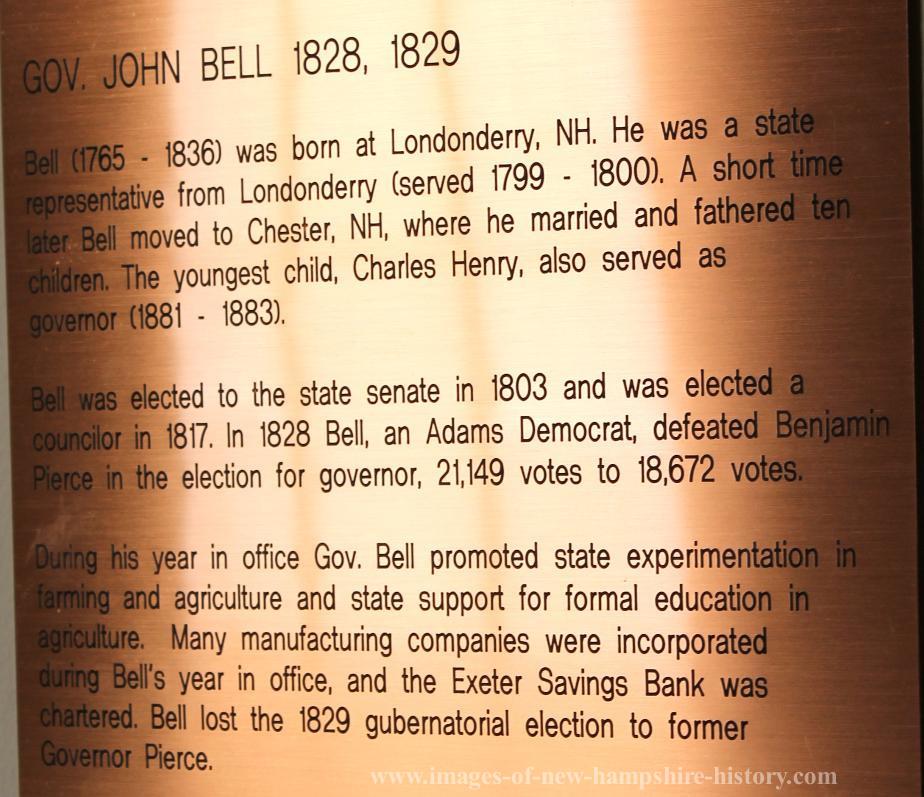
Governor Matthew Harvey: 1830-1831
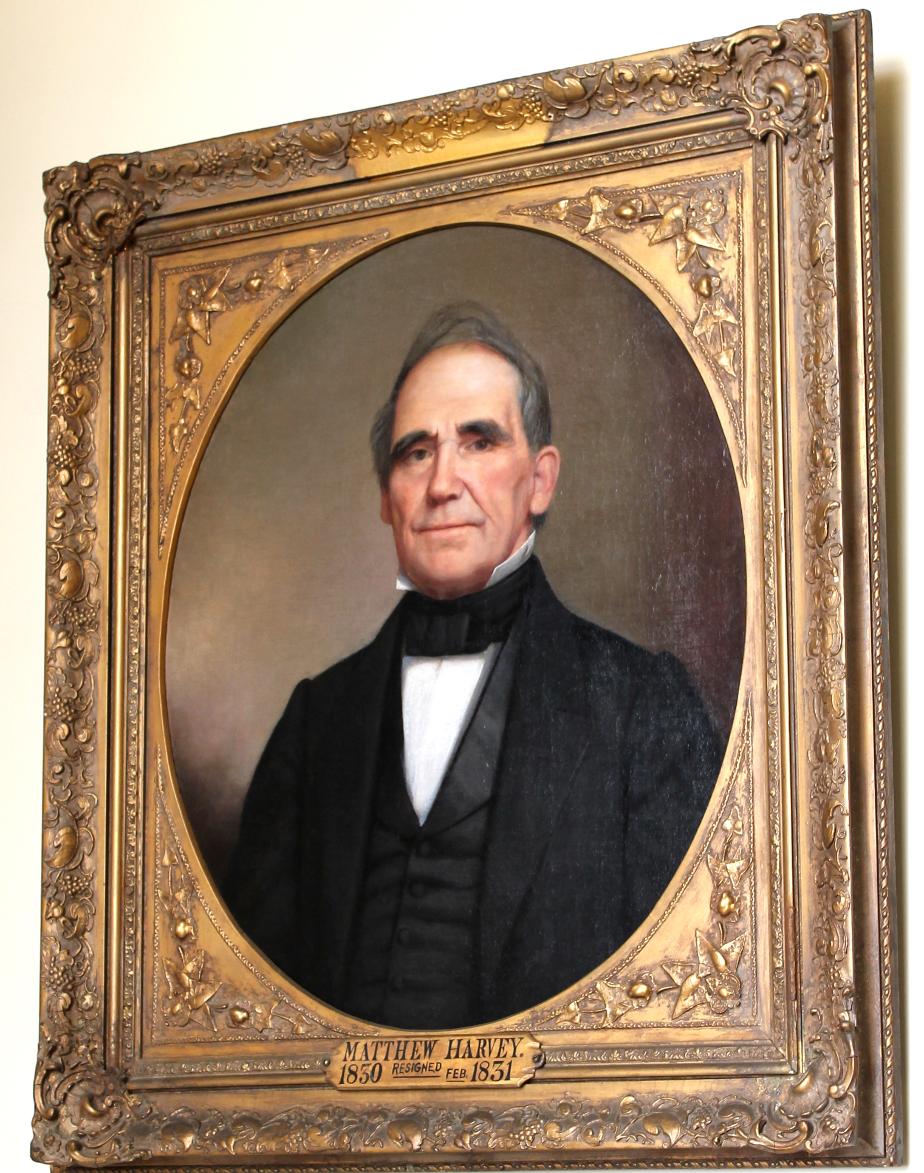
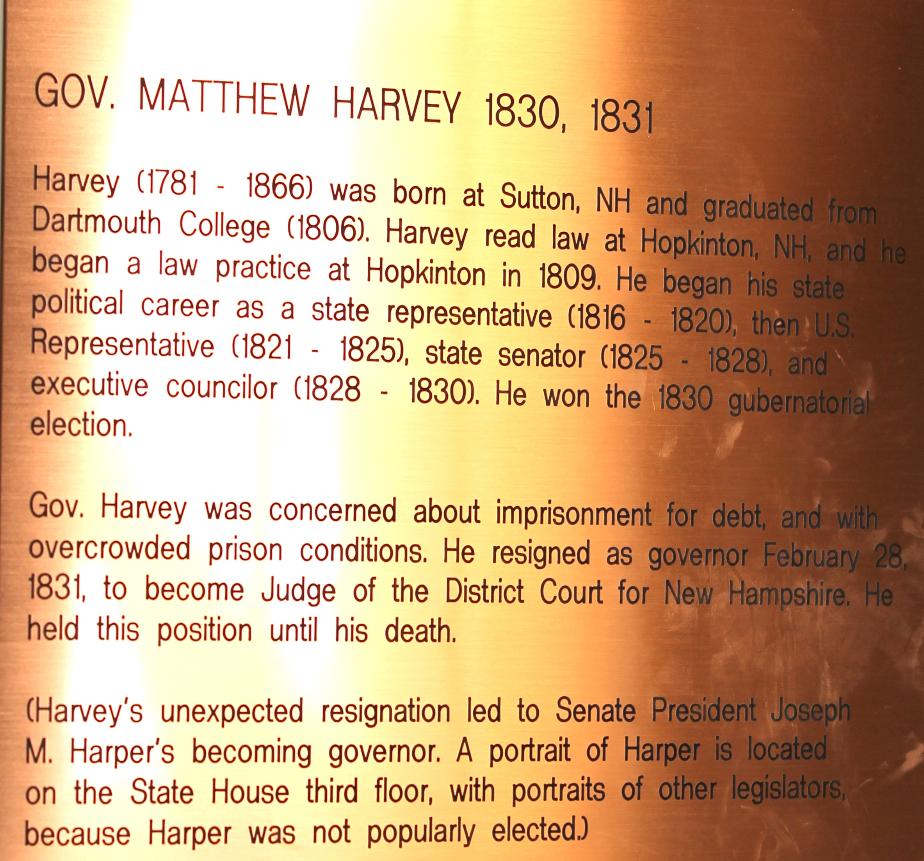
Governor Samuel Dinsmoor 1831 - 1833
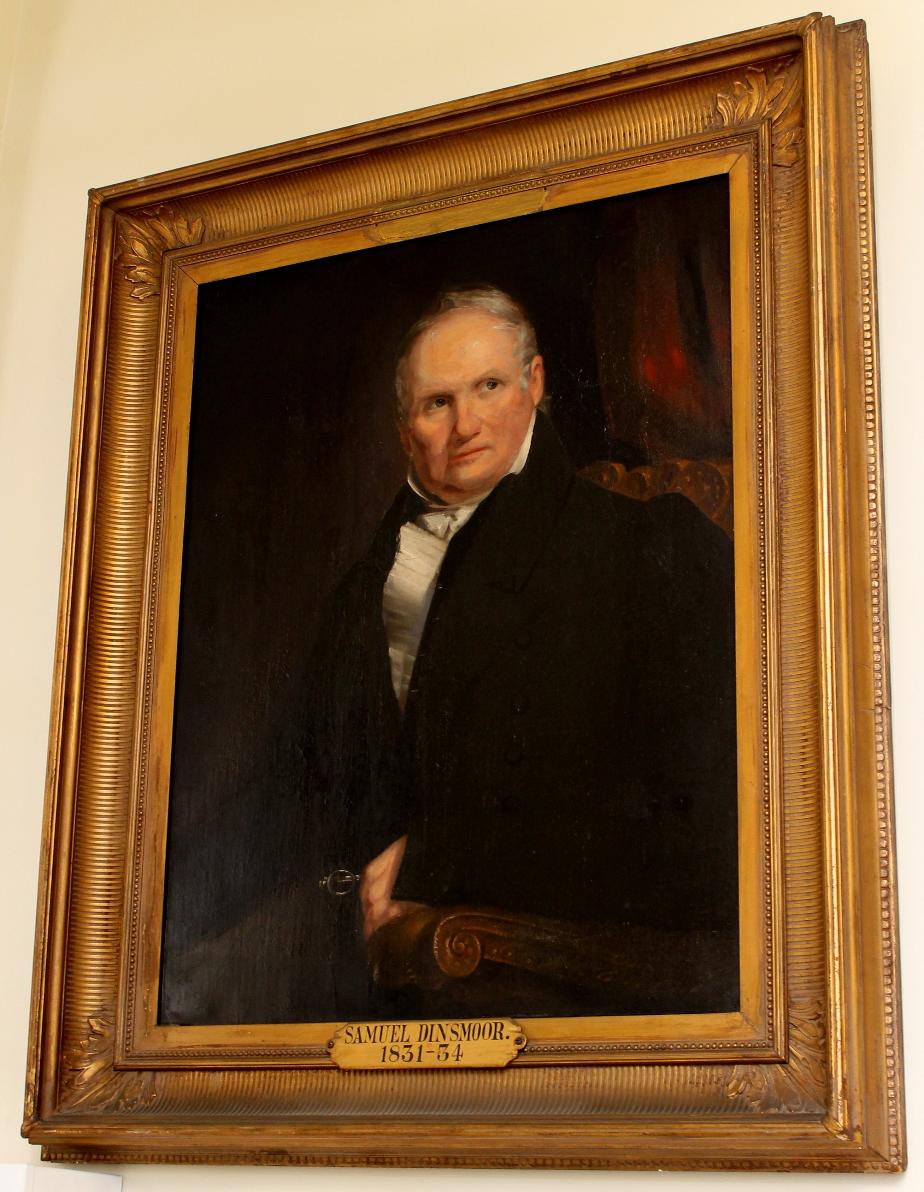
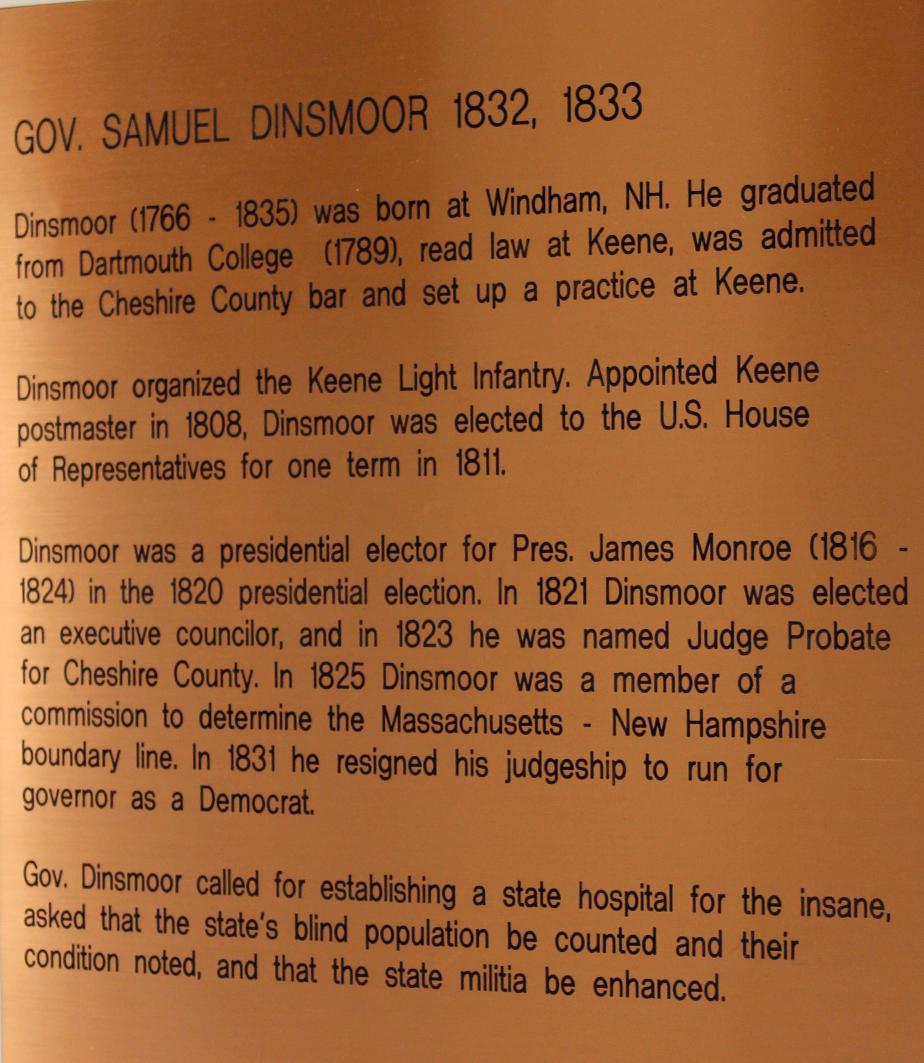
Governor William Badger - 1834 -1836
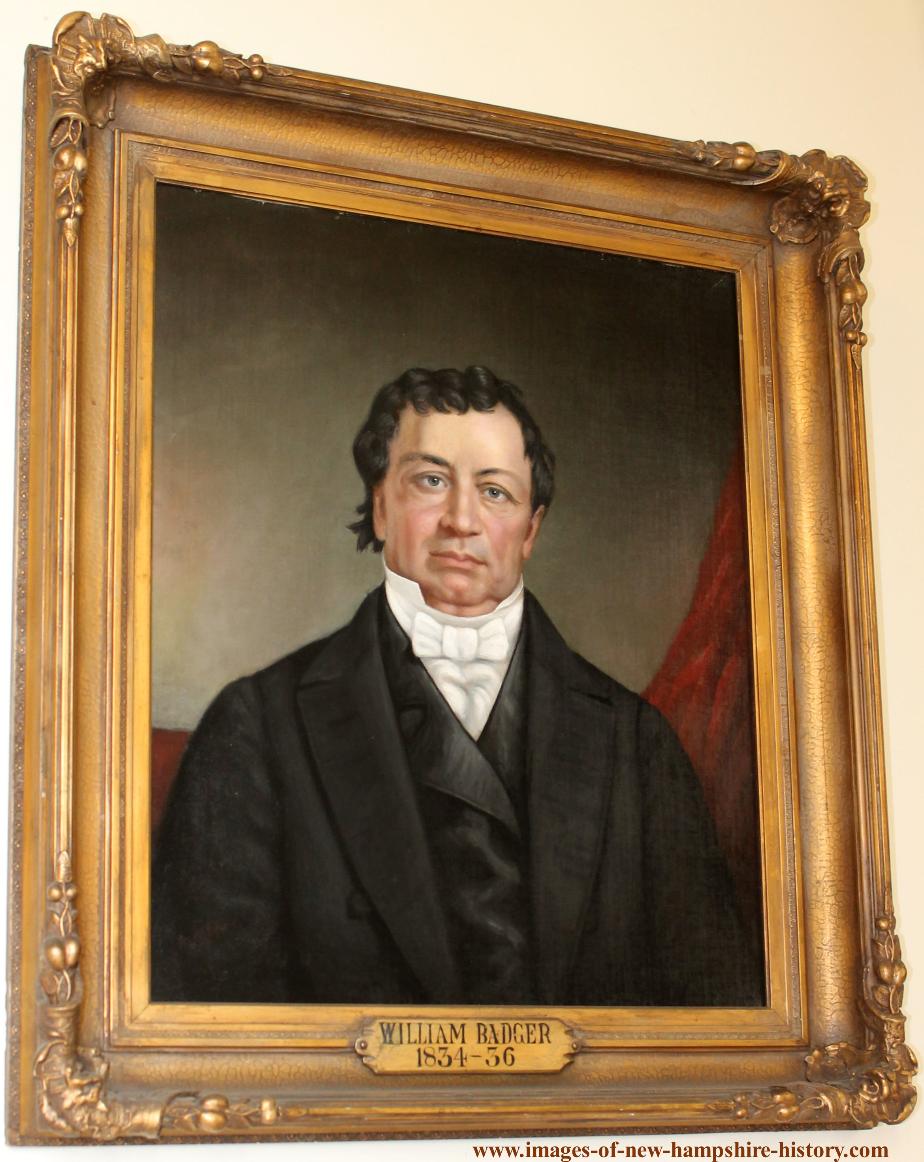
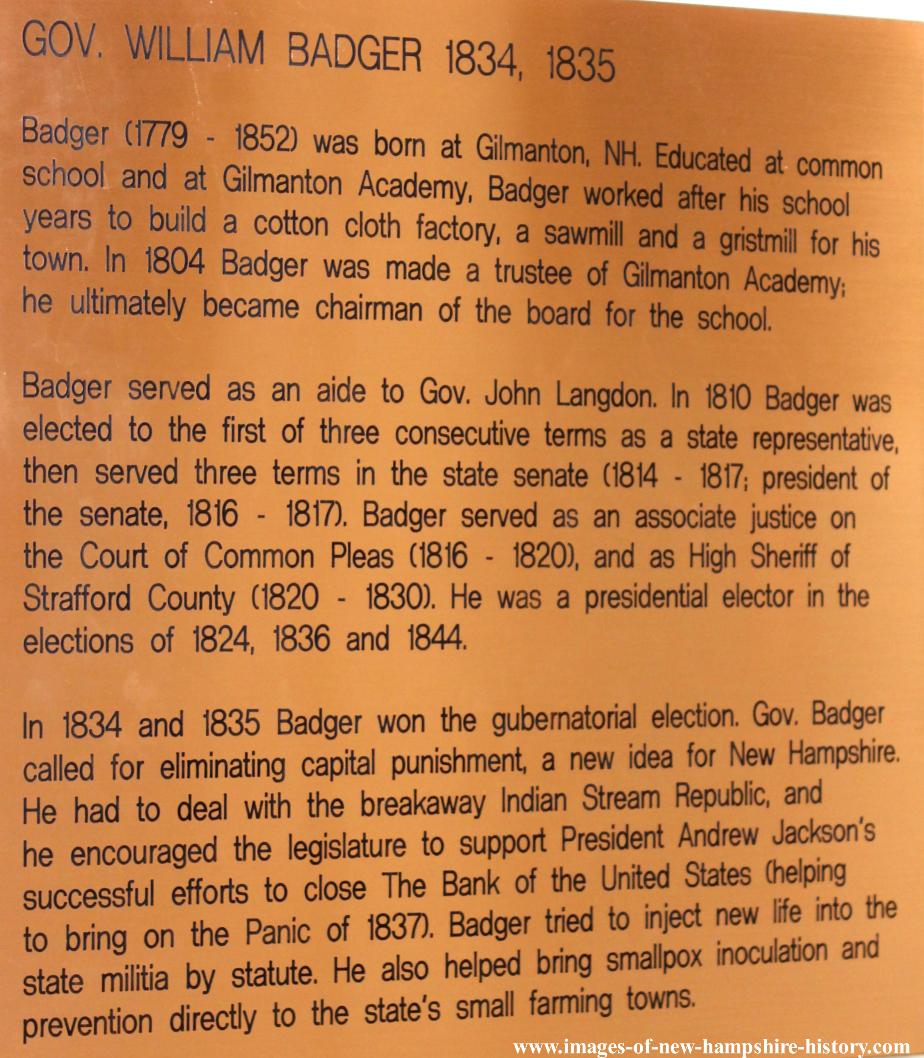
Governor Isaac Hill: 1836 - 1839
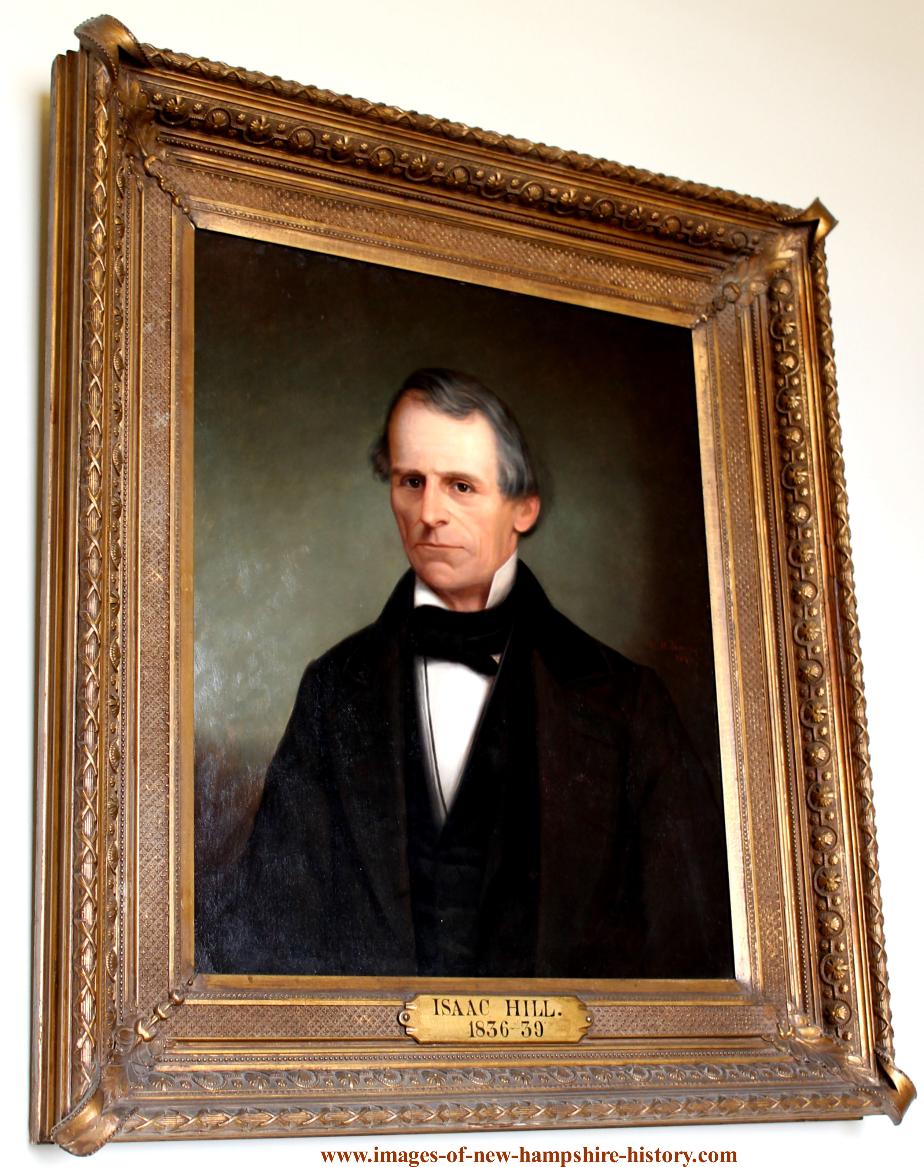
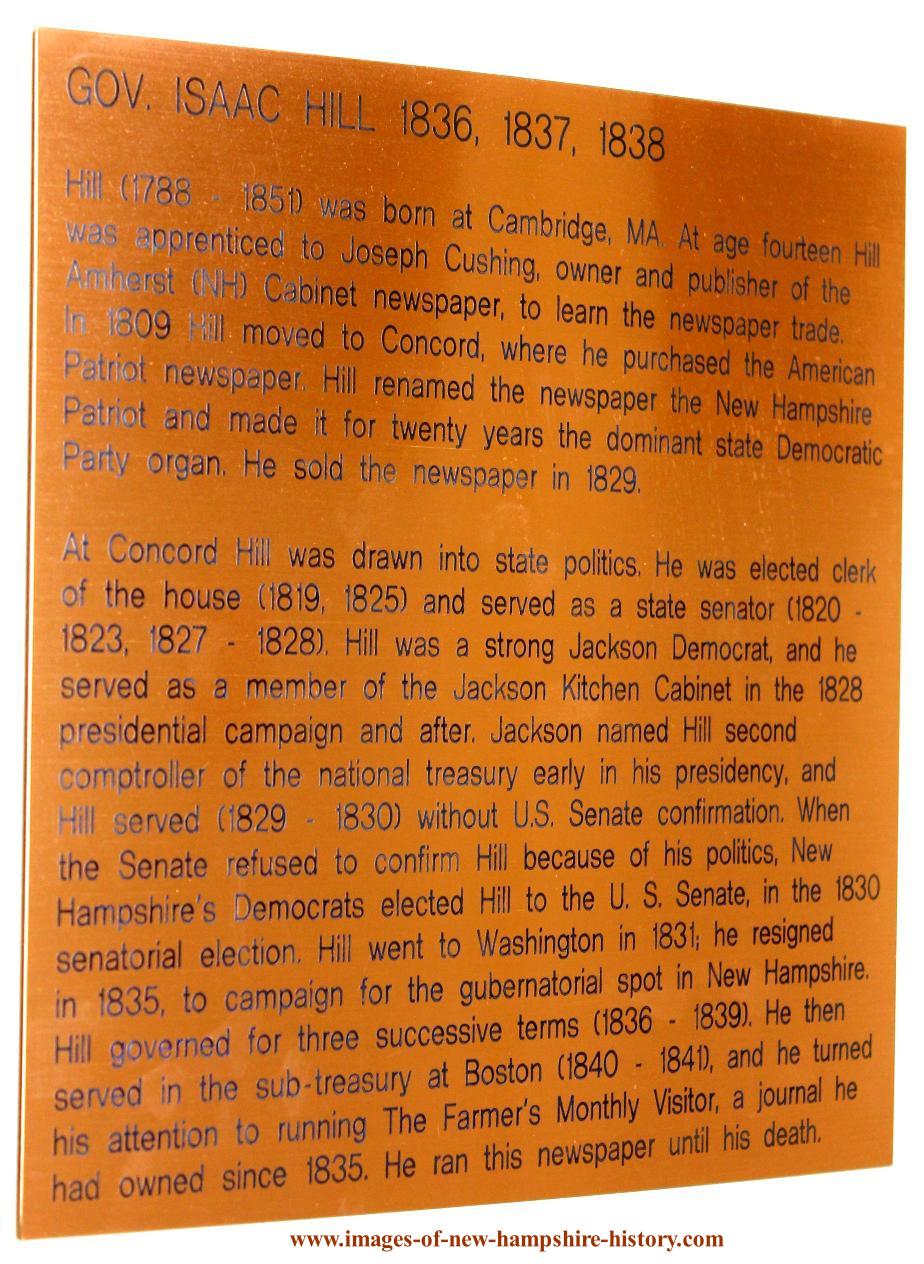
Governor John page - 1839 - 1942
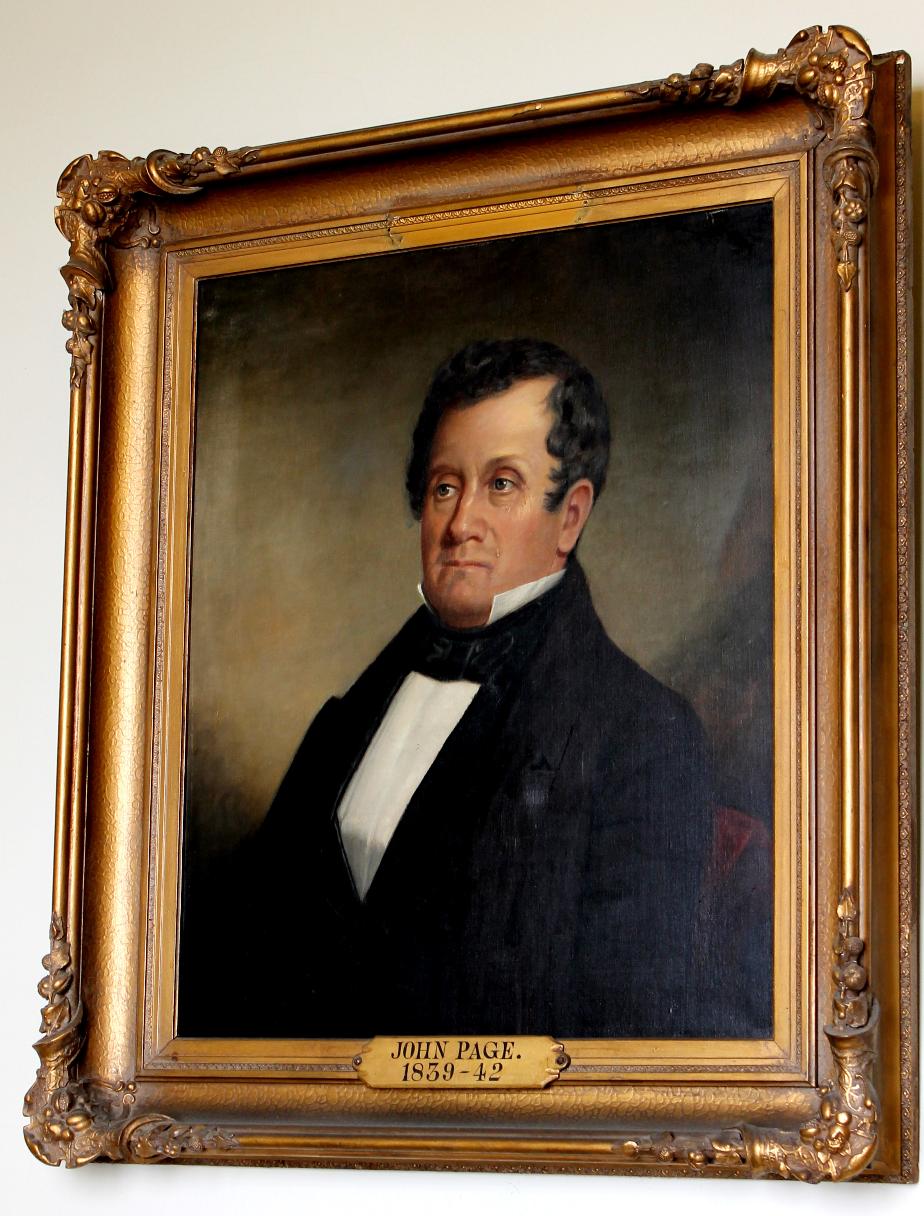
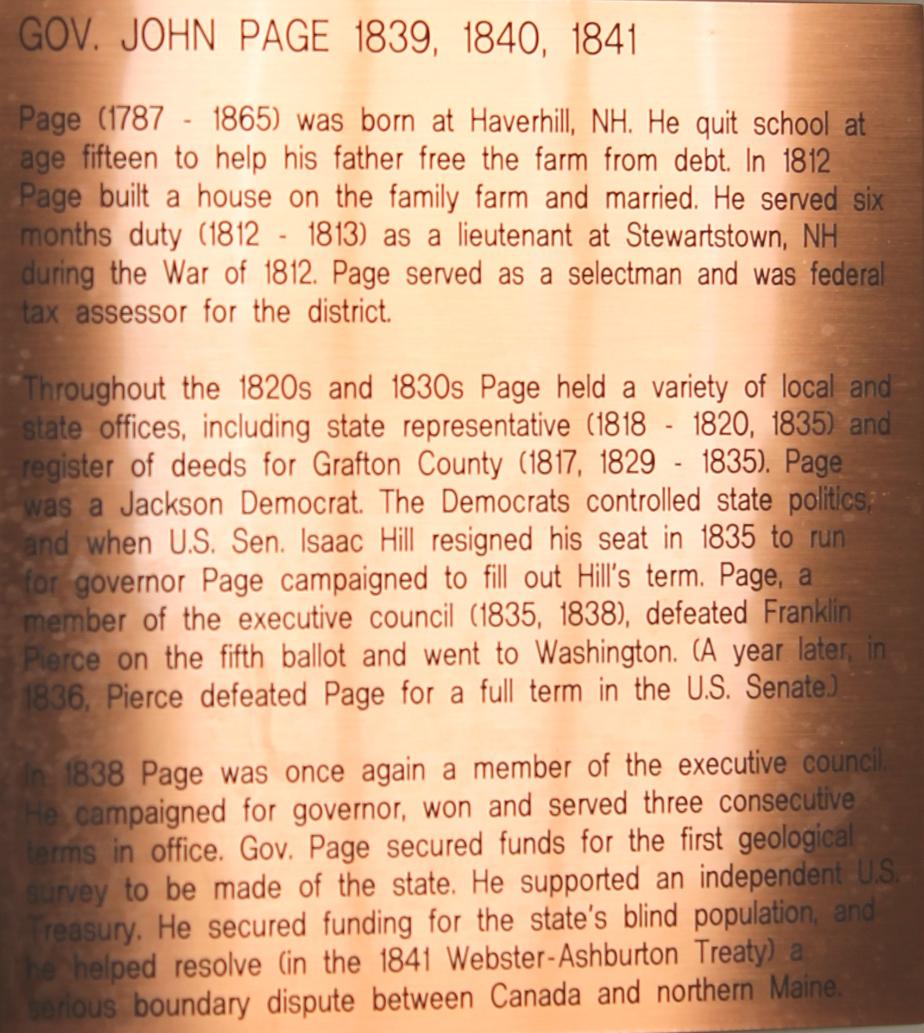
Governor Henry Hubbard: 1842-1844
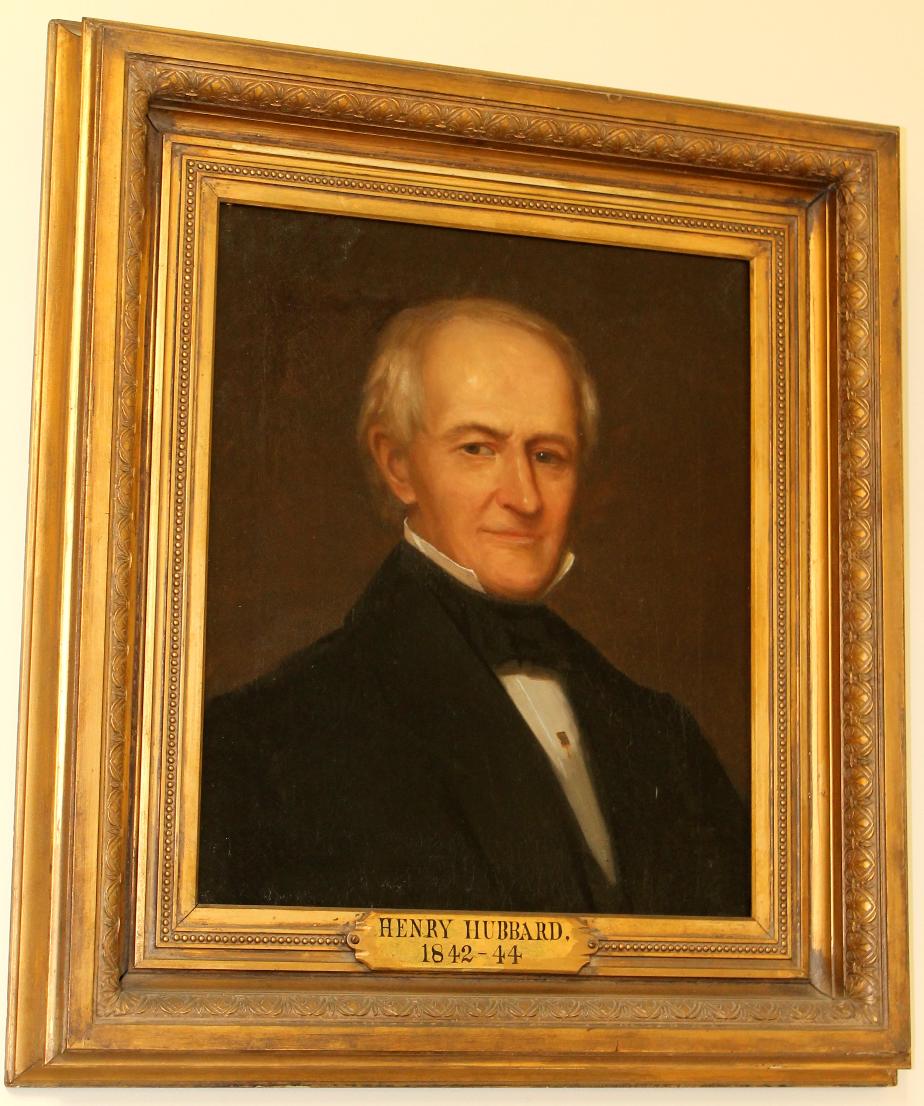
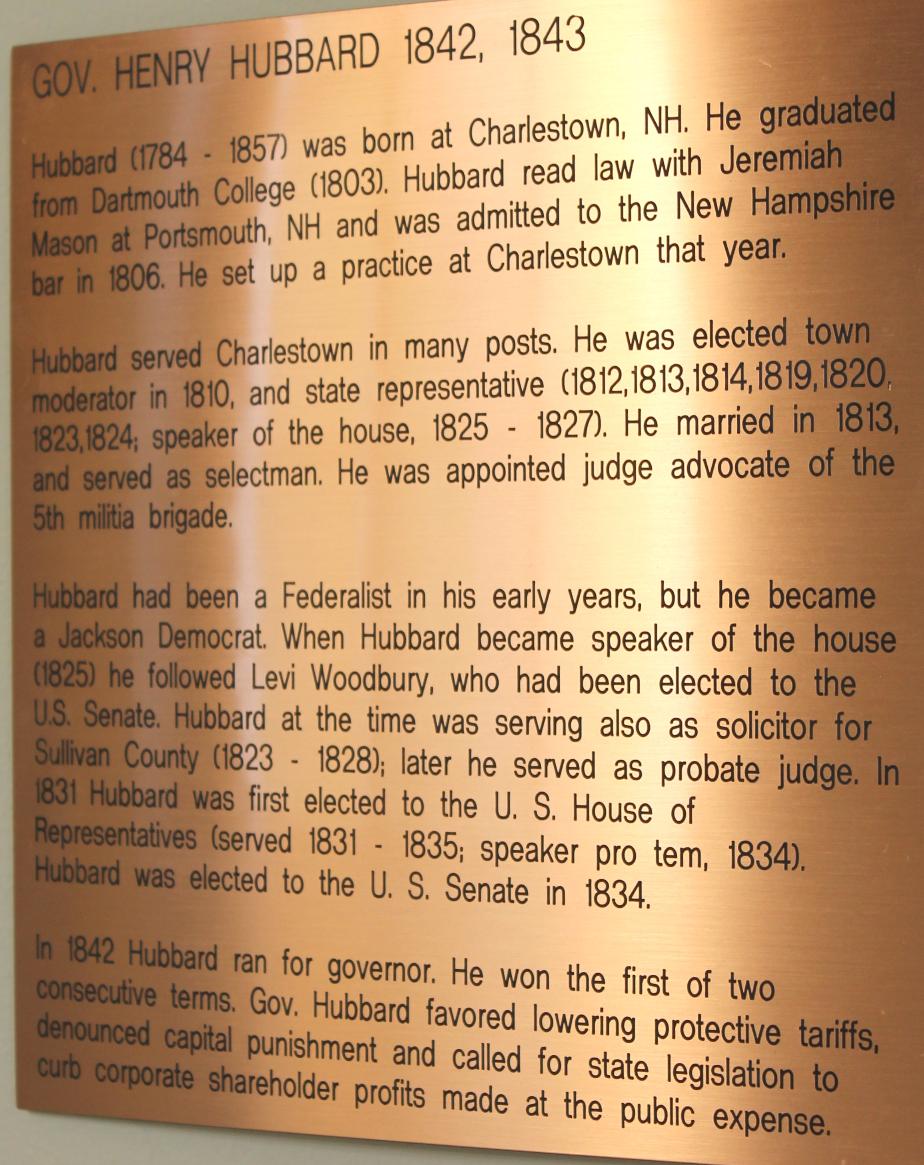
Governor John H. Steele: 1844 - 1846
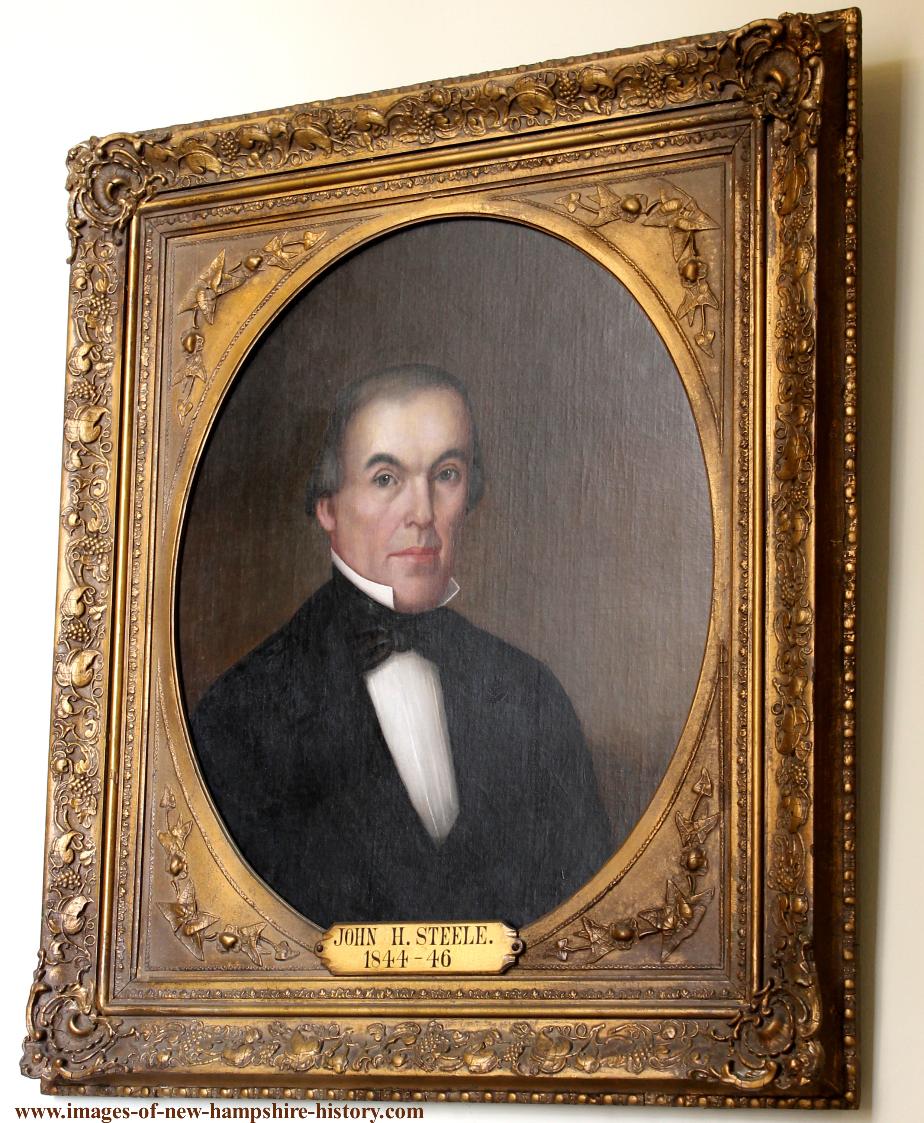
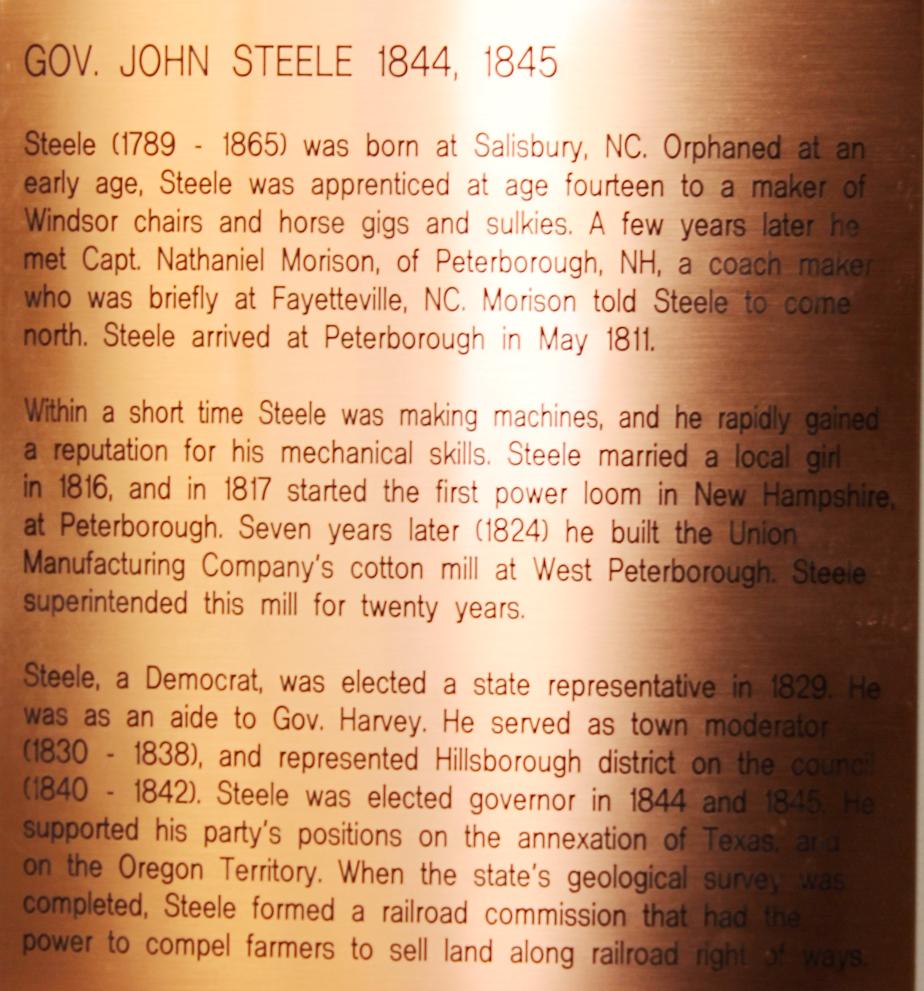
Governor Anthony Colby 1846 - 1847
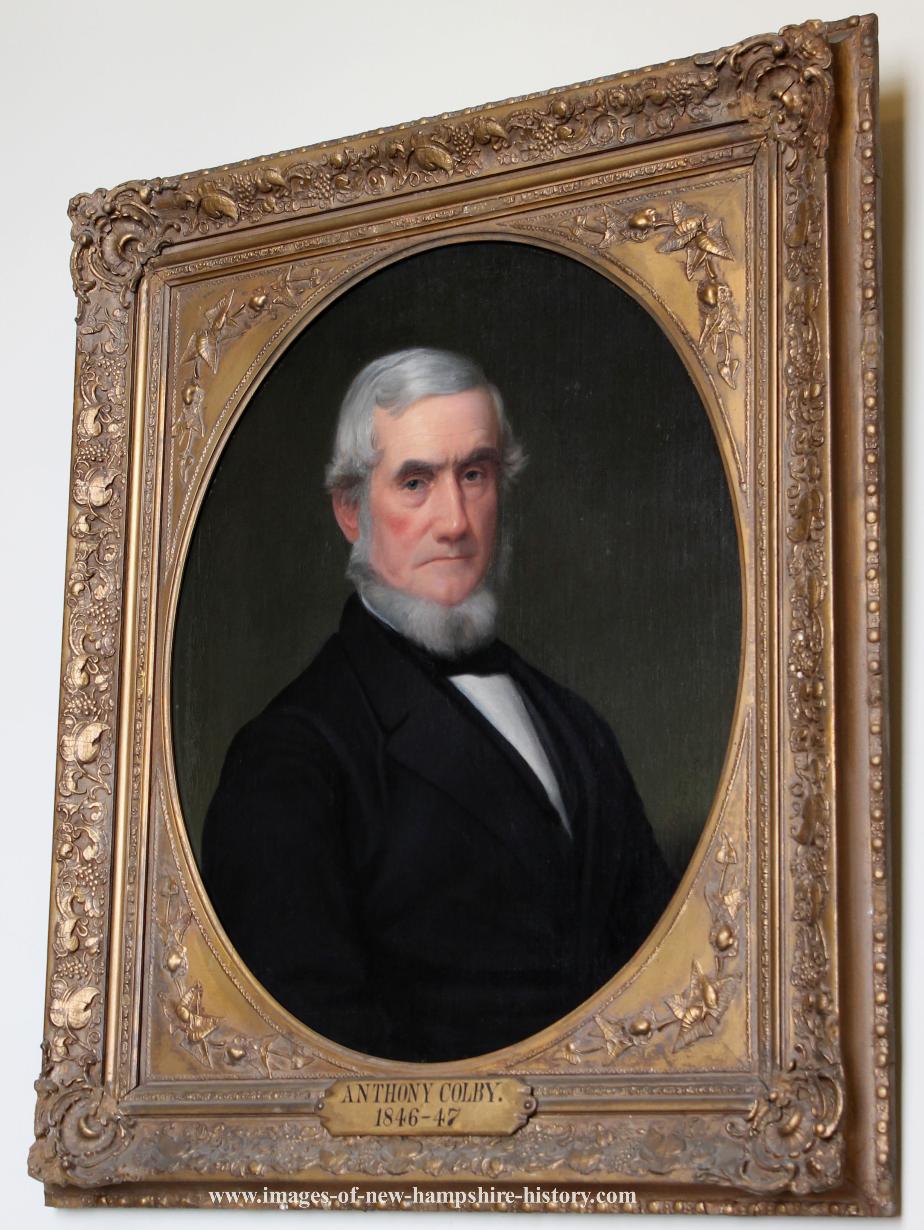
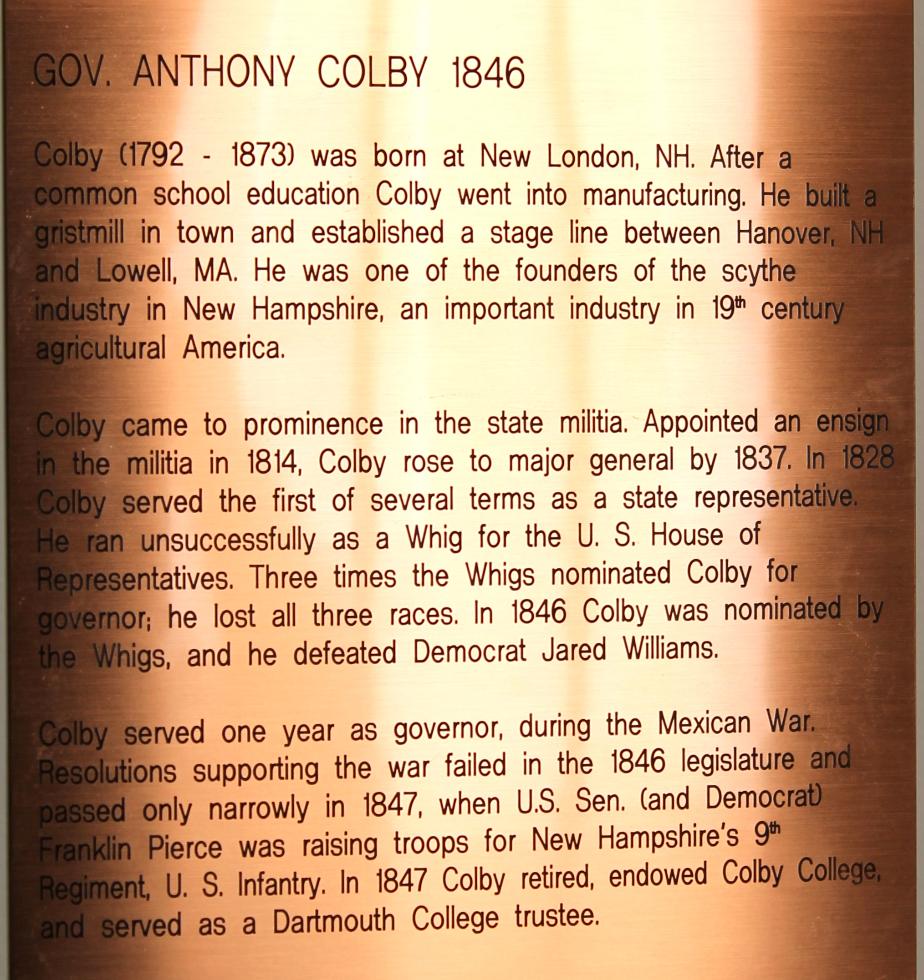
Governor Jared Williams 1847 - 1848
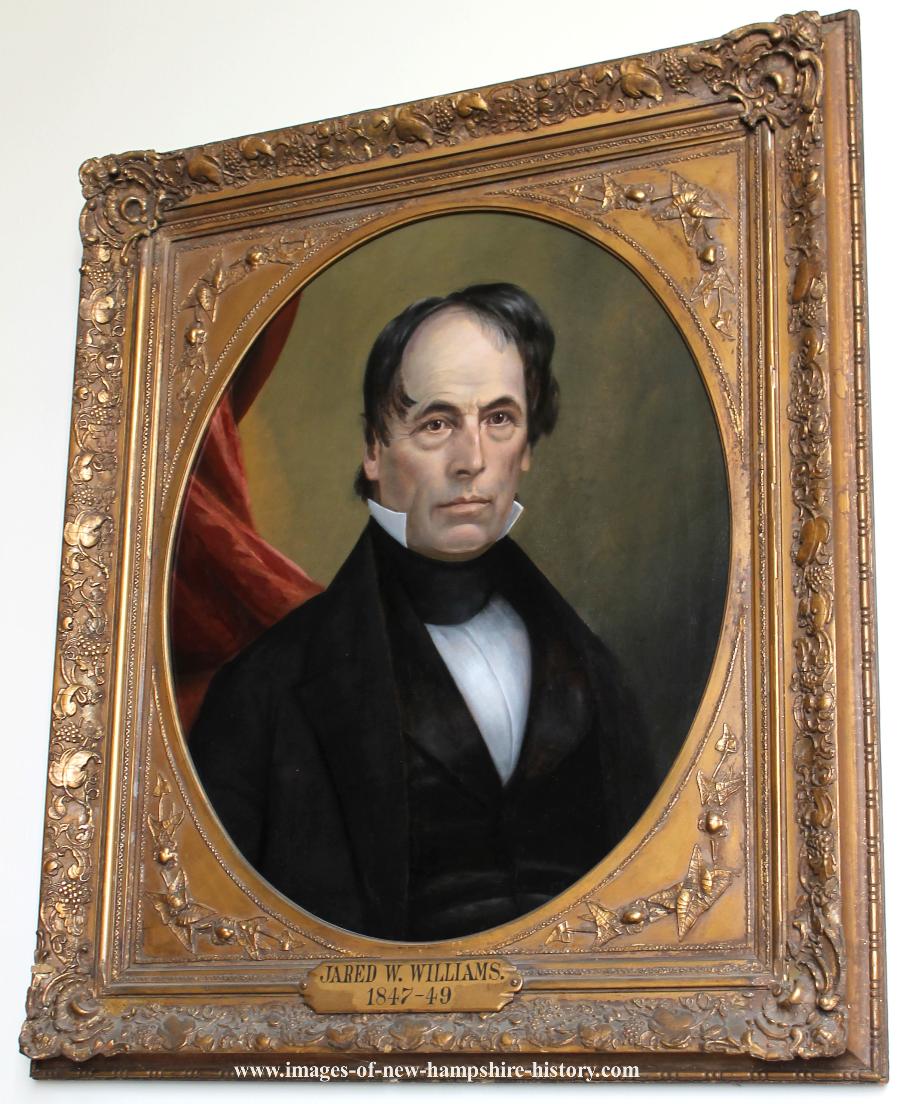
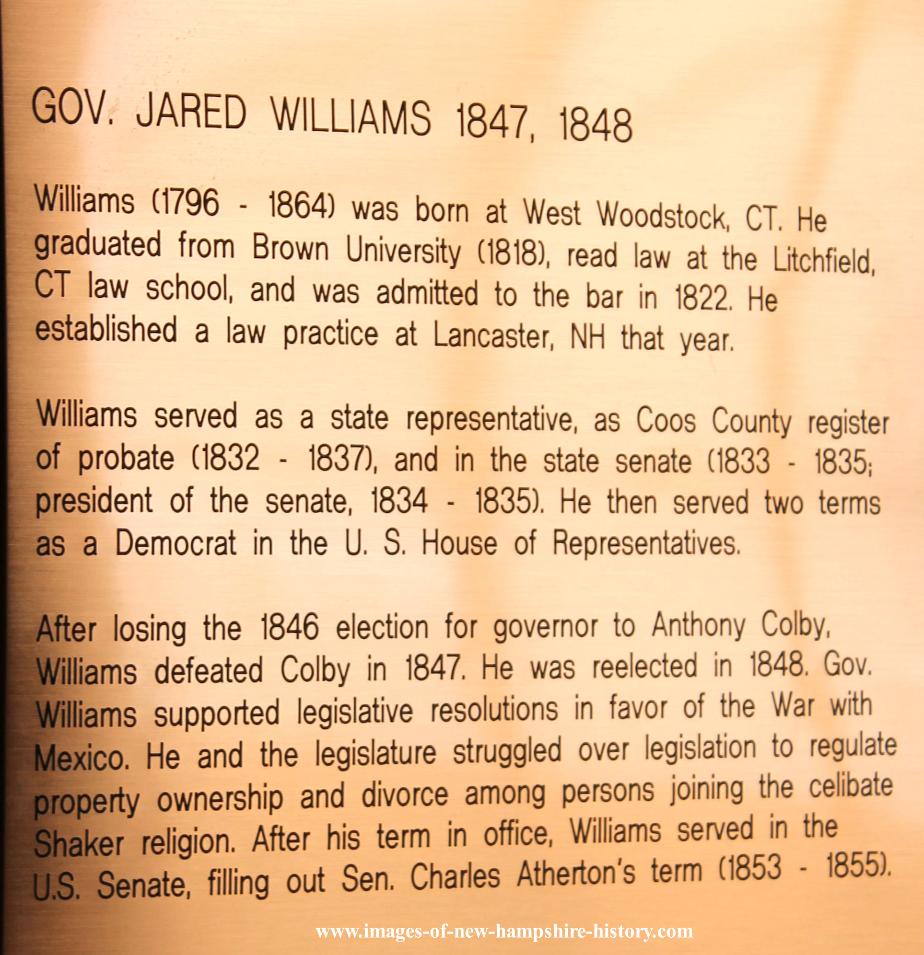
Governor Samuel Dinsmoor 1849 - 1852
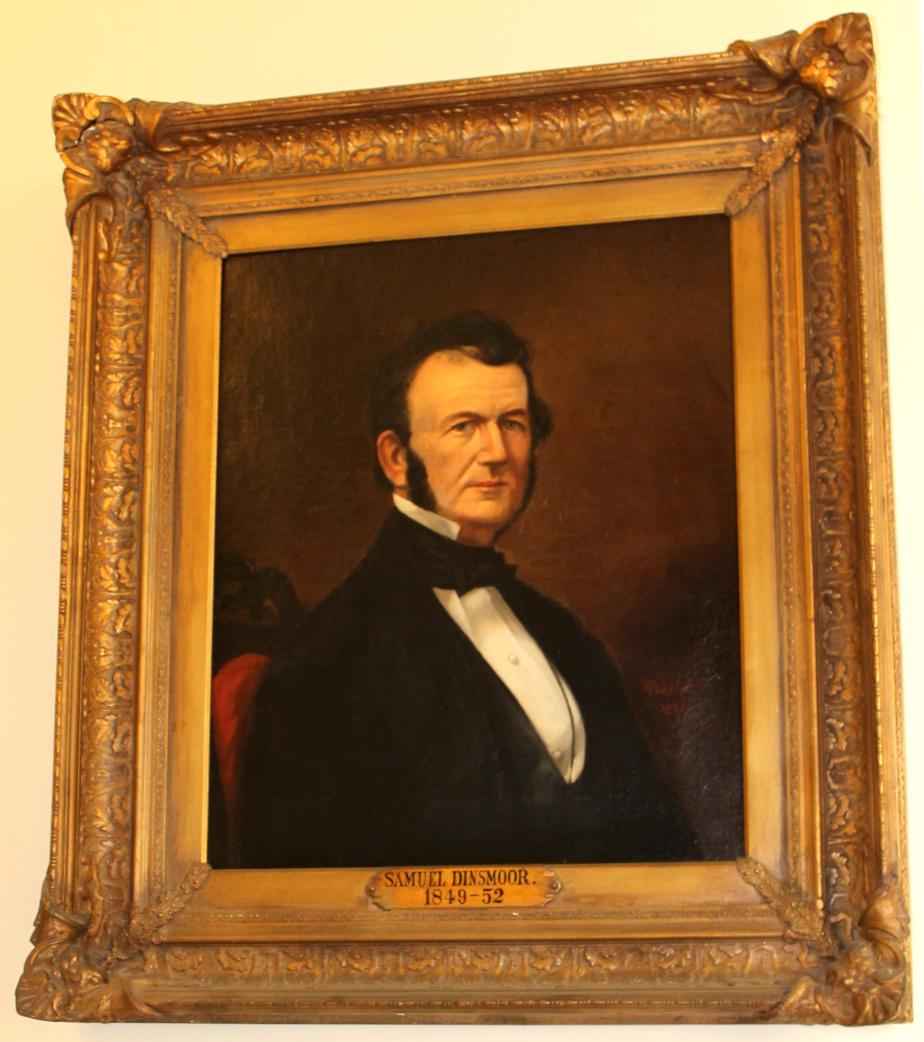
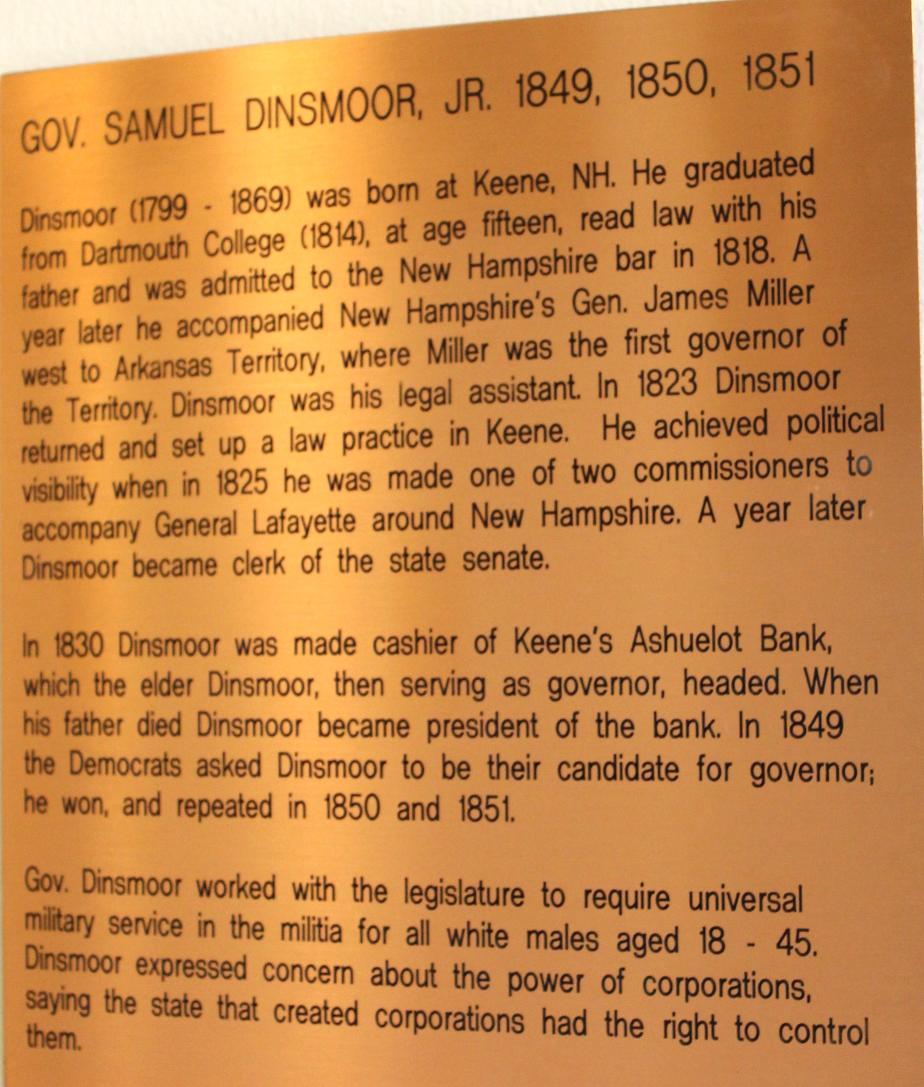
Governor Noah Martin - 1852 - 1854
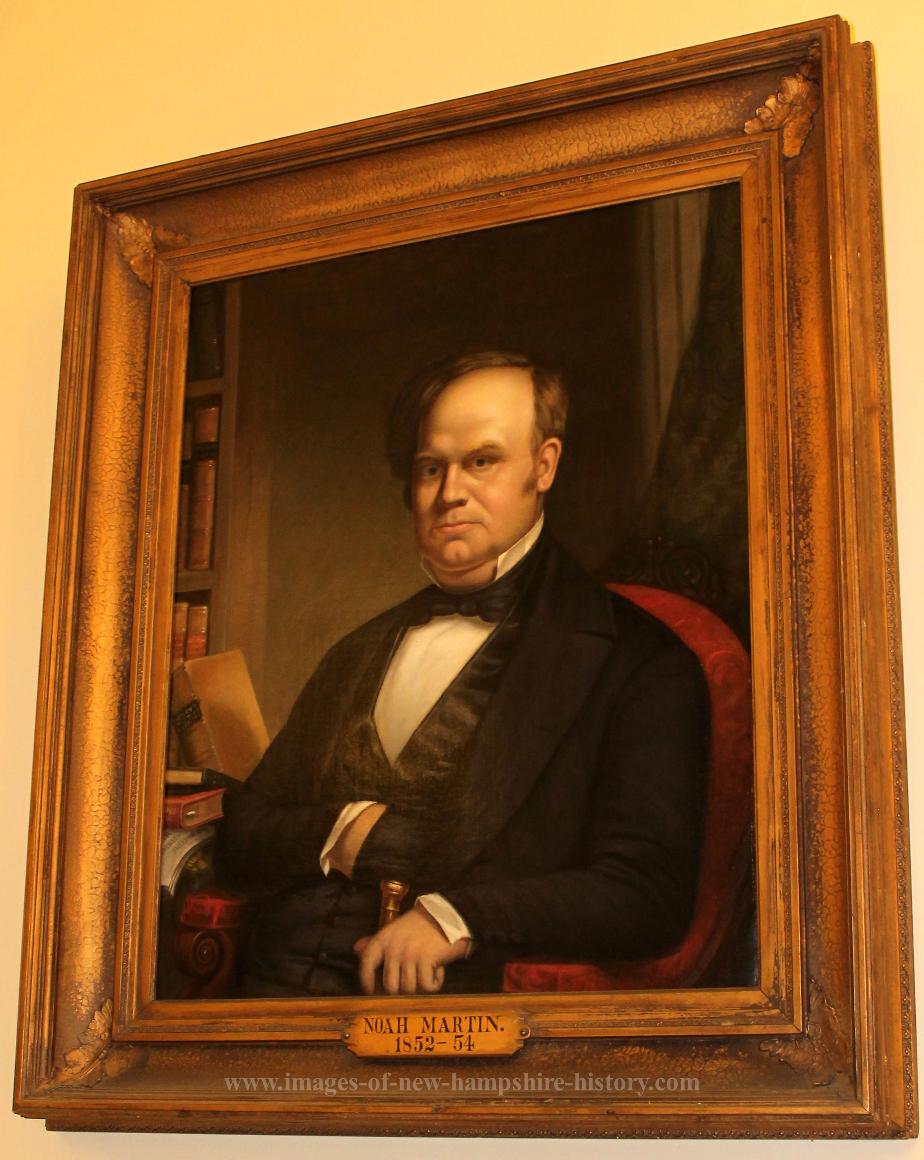
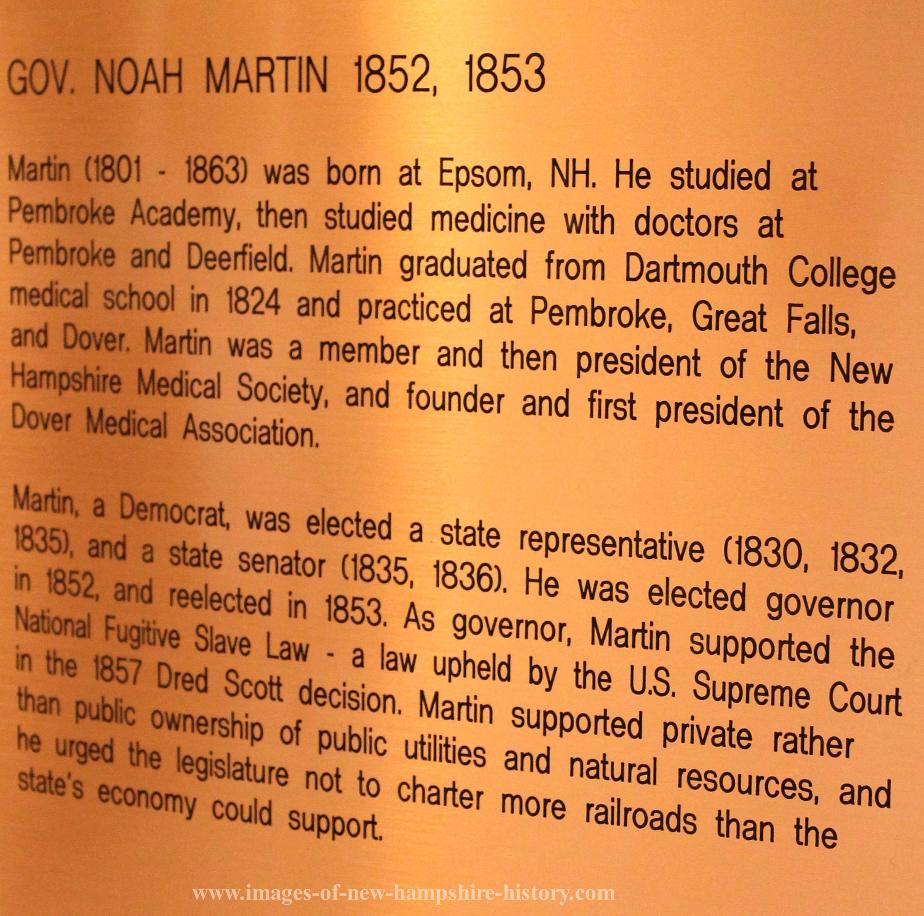
Governor Nathaniel Baker - 1854
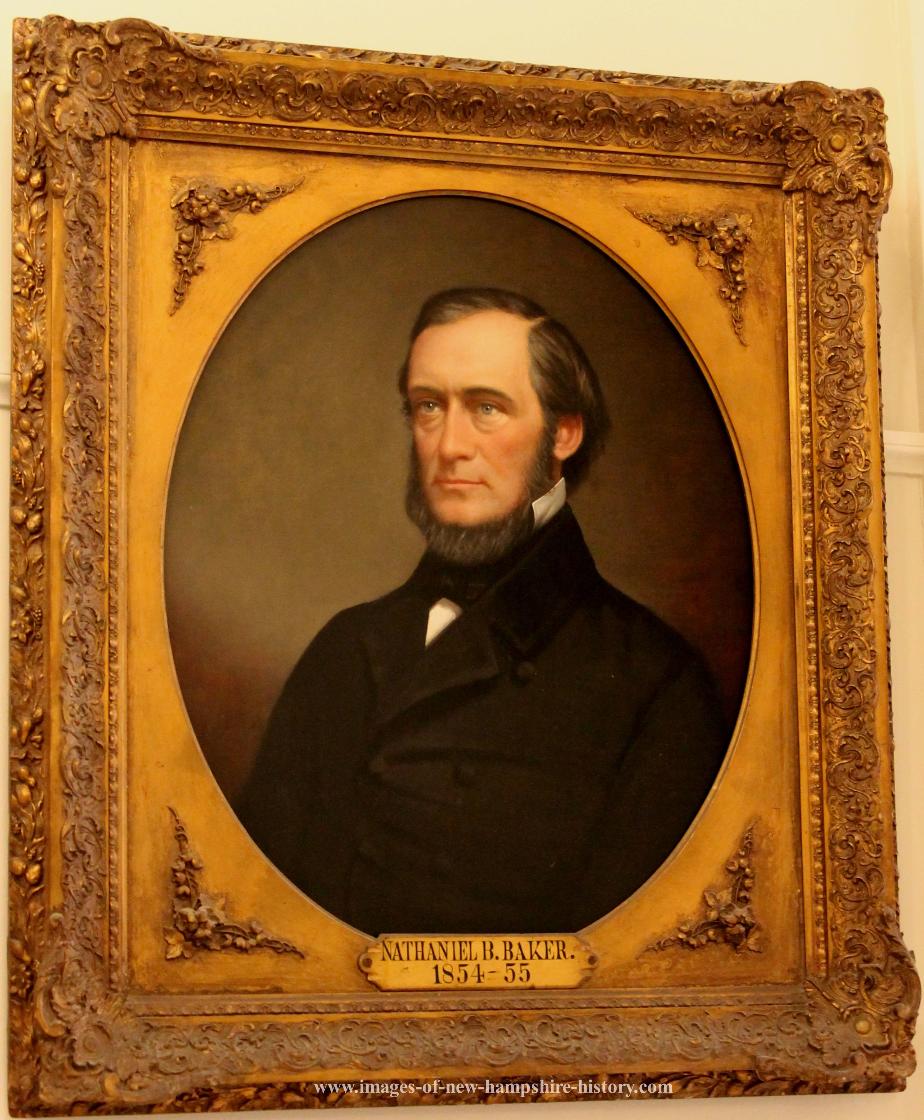
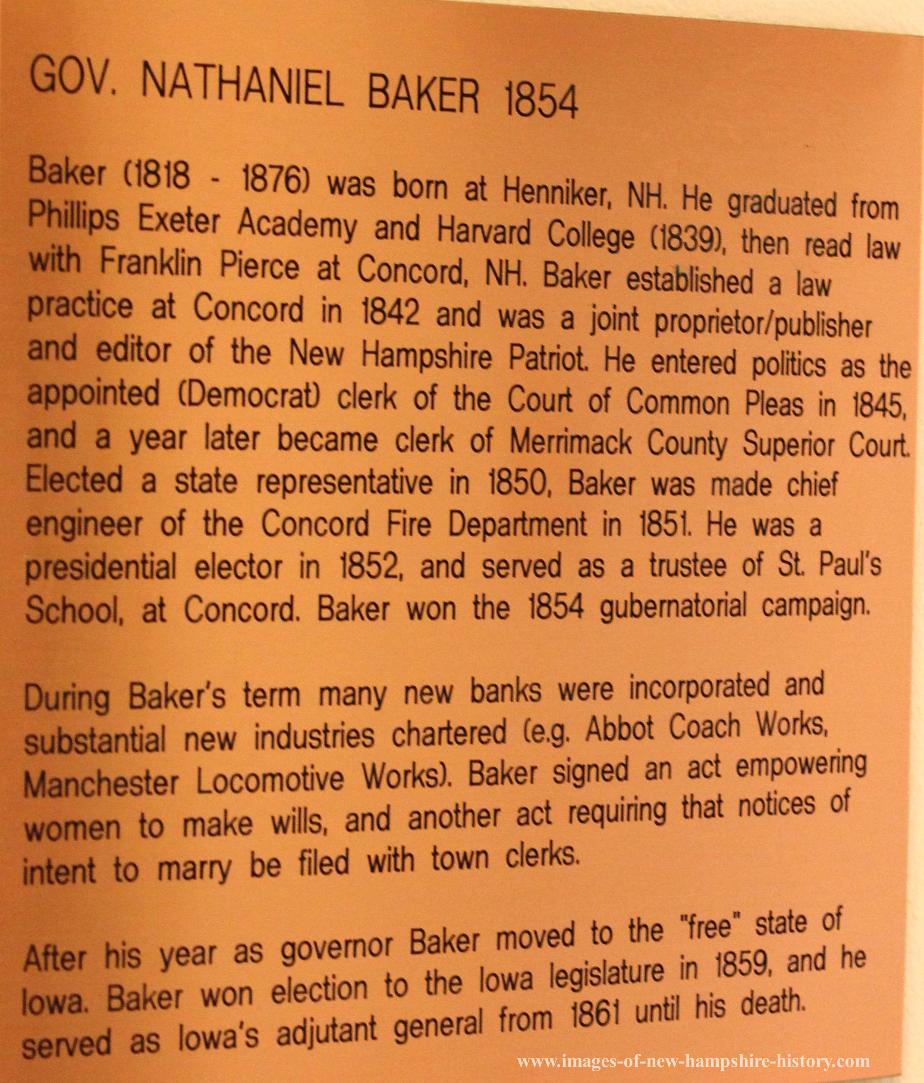
Governor Ralph W. Metcalf - 1855-1856
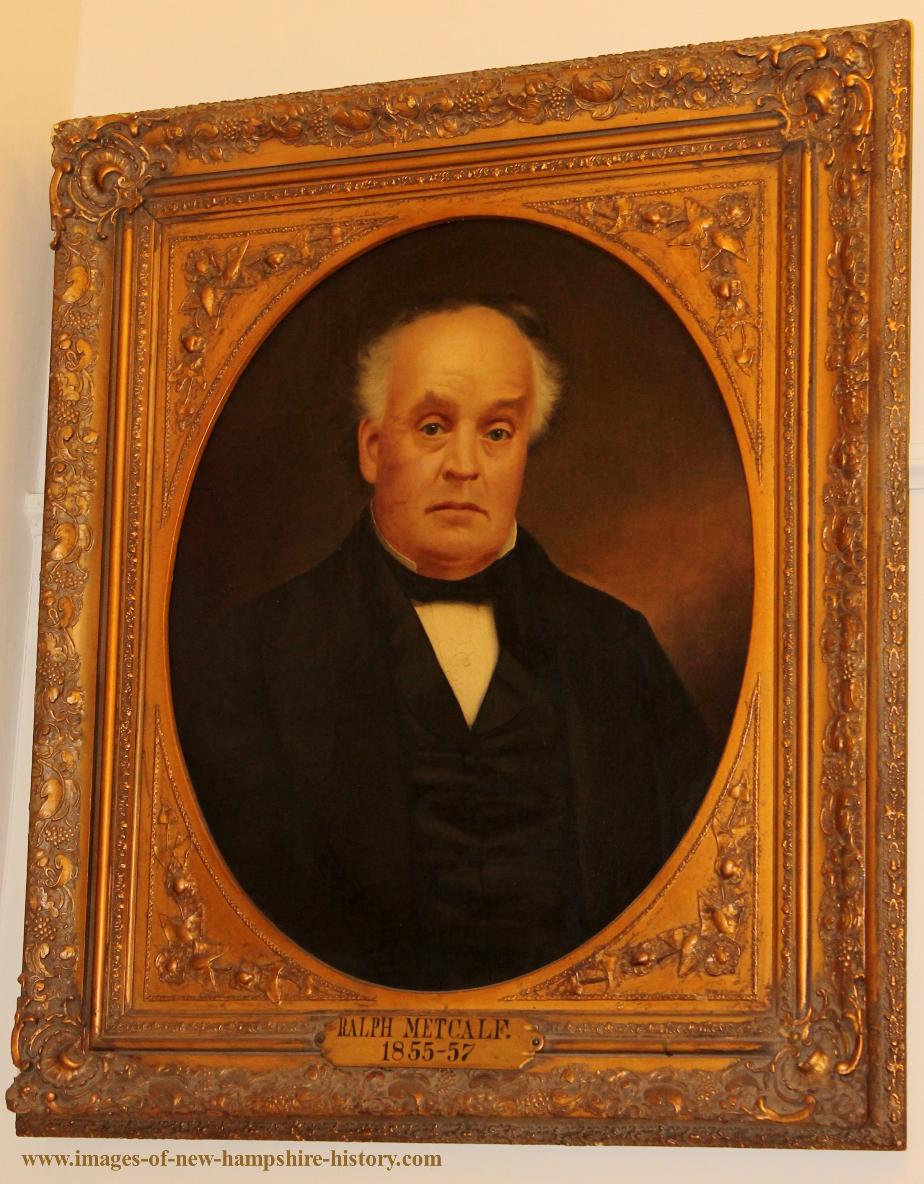
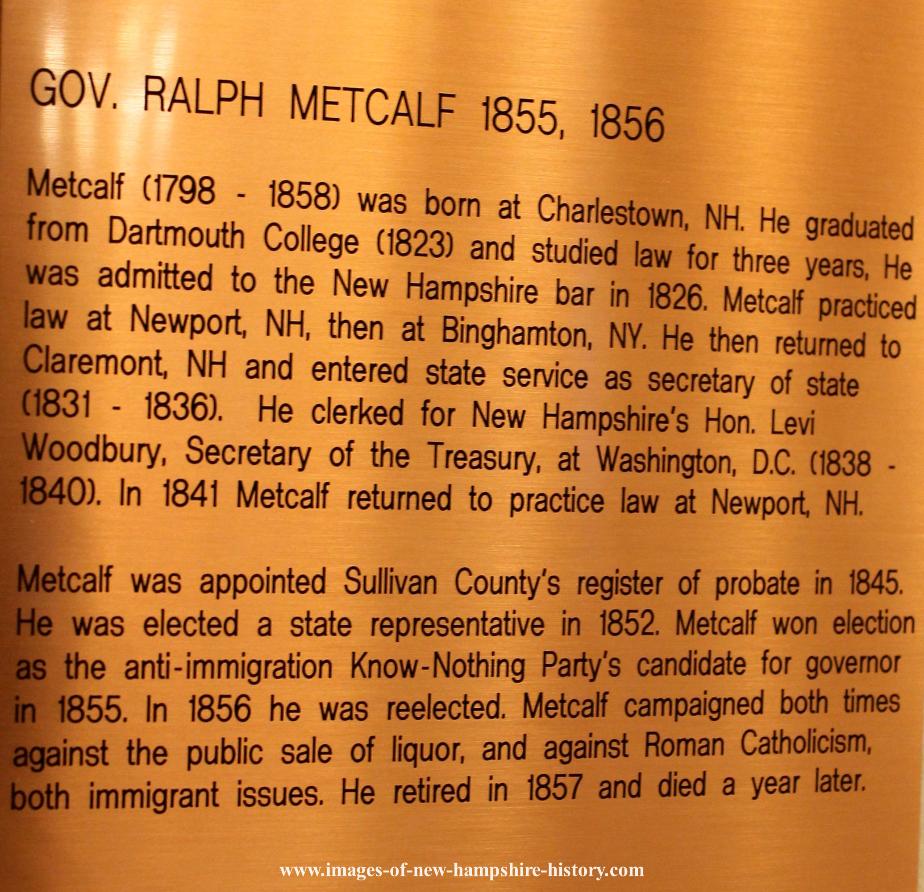
Governor William Haile : 1857 - 1859
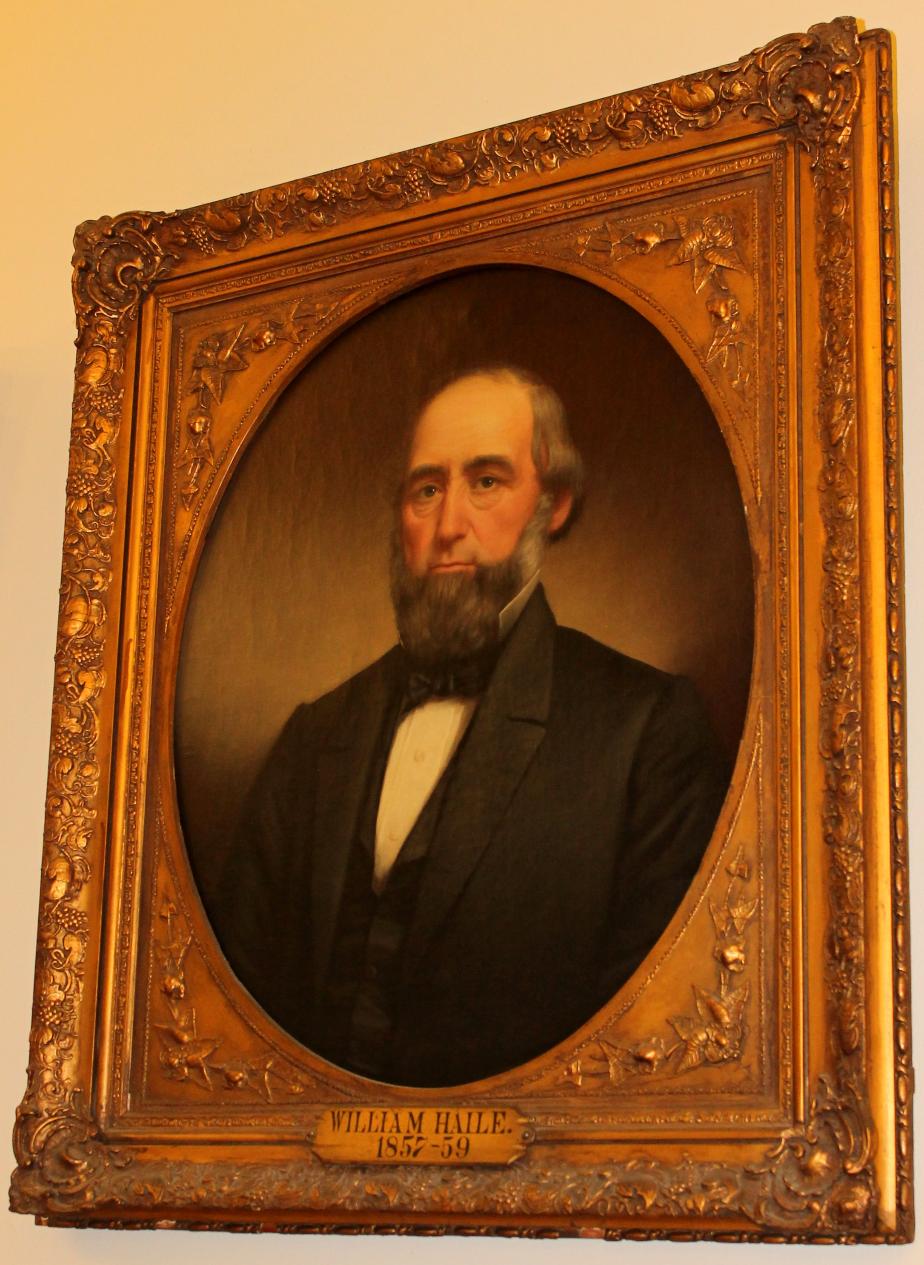
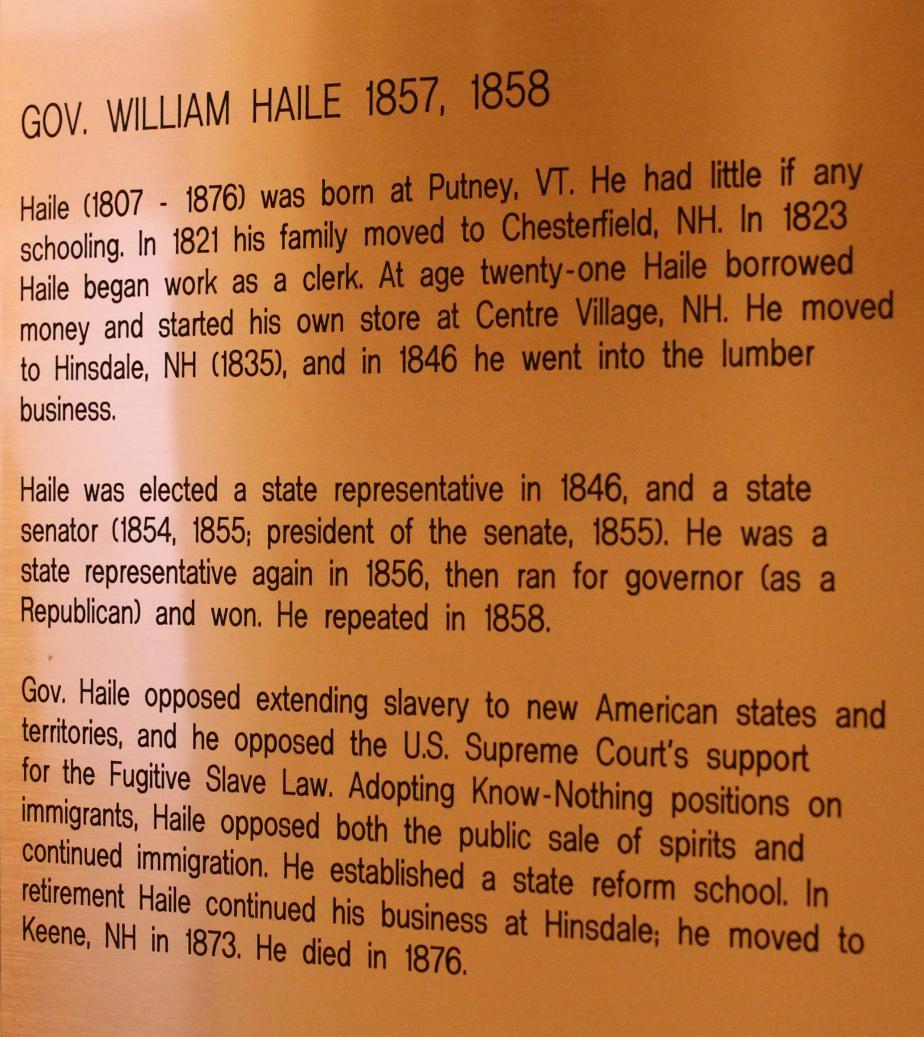
Icabod Goodwin (N. Berwick Me) 1859 - 1861
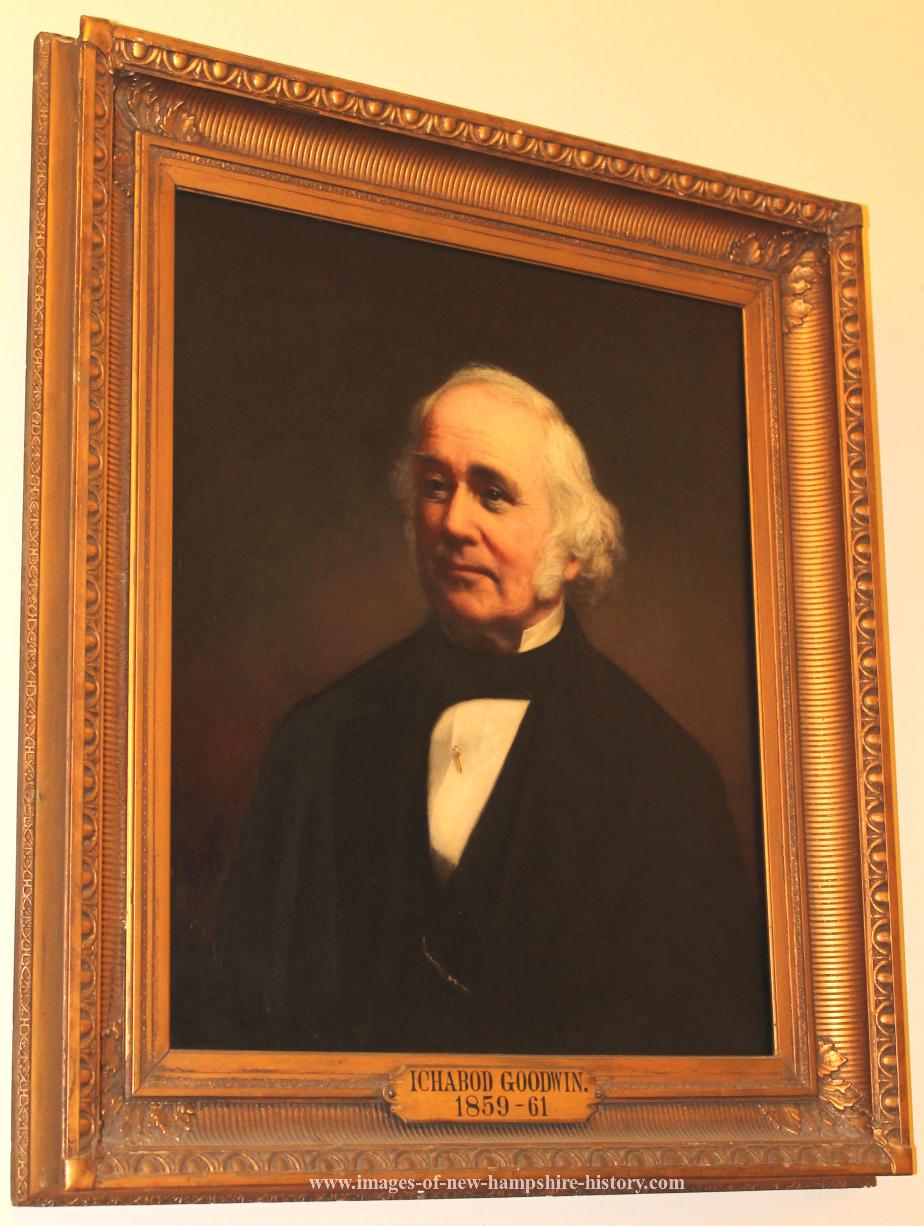
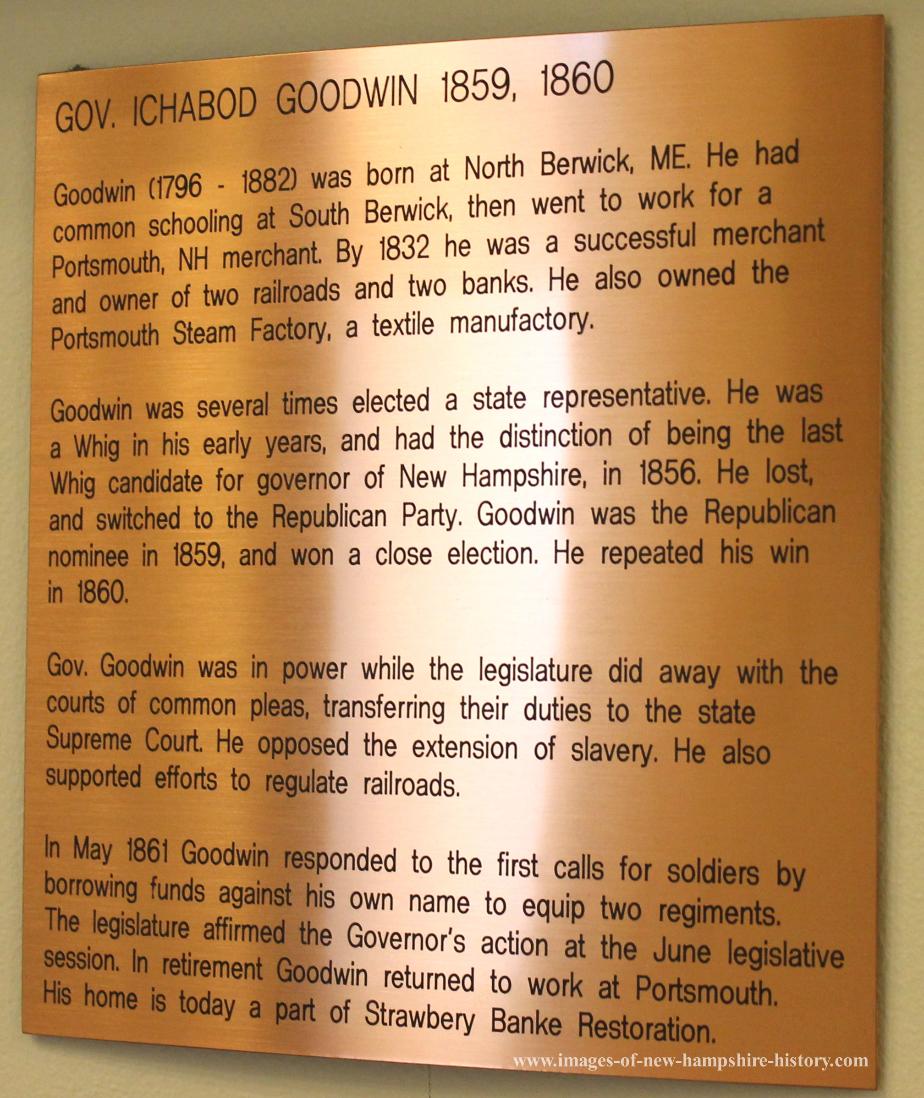
Icabod Goodwinwas born in North Berwick, Maine on October 8, 1794.
His education was limited and attained in the common schools of his native state. After moving to Portsmouth, New Hampshire, Goodwin established a successful career as a businessman. He became the owner of several banks, railroads, boats, and a textile factory. Goodwin first entered politics as a member of the New Hampshire House of Representatives, a position he held in 1838, 1843, 1844, 1850, 1854 and 1856. He also served as a member of the 1850 state constitutional convention. Goodwin next secured the Republican gubernatorial nomination, and was elected governor by a popular vote in 1859.
He was reelected to a second term in 1860. During his tenure, the common pleas court was disbanded; the state supreme court duties were strengthened; regulations in the railroad industry were promoted; the extension of slavery was contested; and troops and provisions were raised for service in the Civil War. After running unsuccessfully for reelection, Goodwin retired from political office. Governor Icabod Goodwin passed away on July 4, 1882, and was buried in the South Church Cemetery in Portsmouth, New Hampshire.
Governor Nathaniel Berry : 1861 - 1862
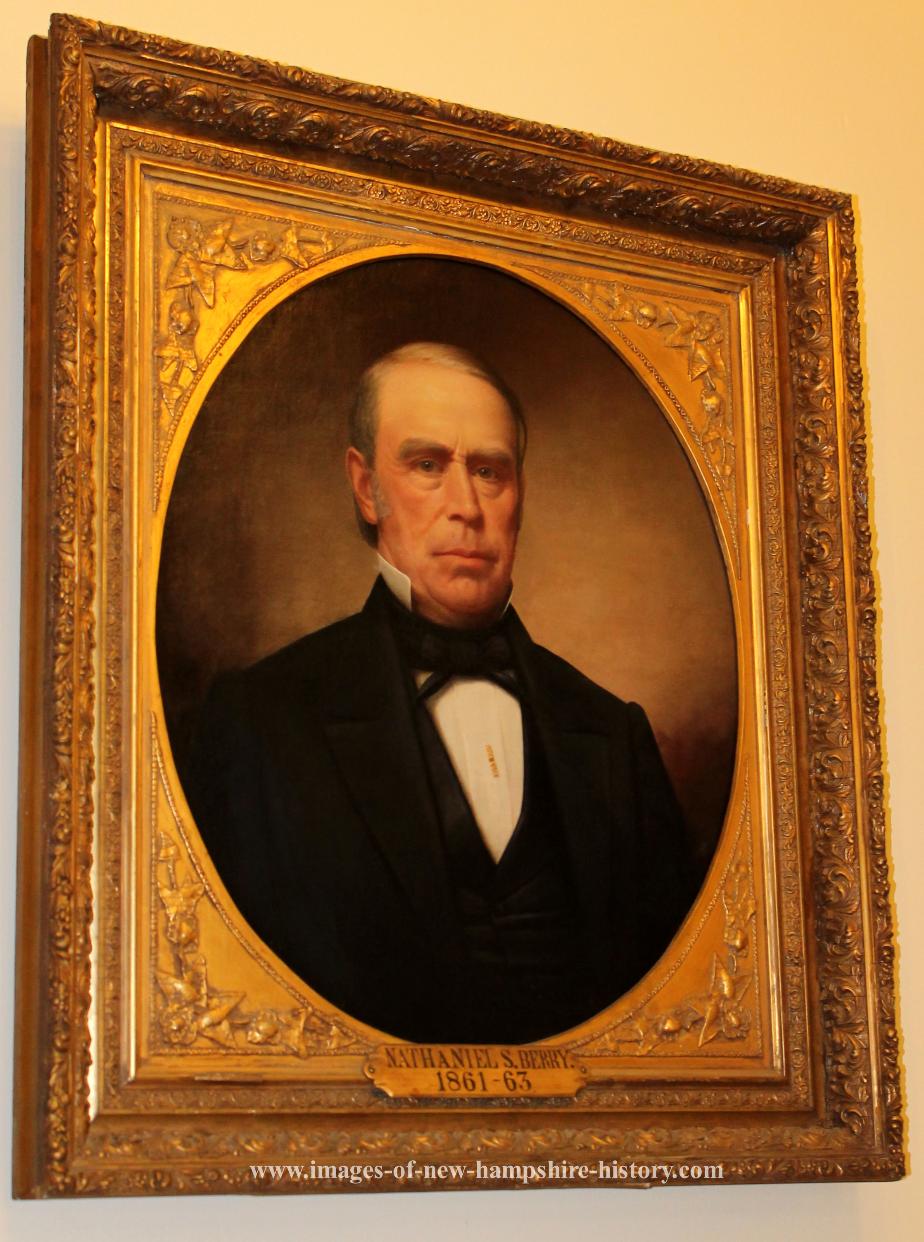
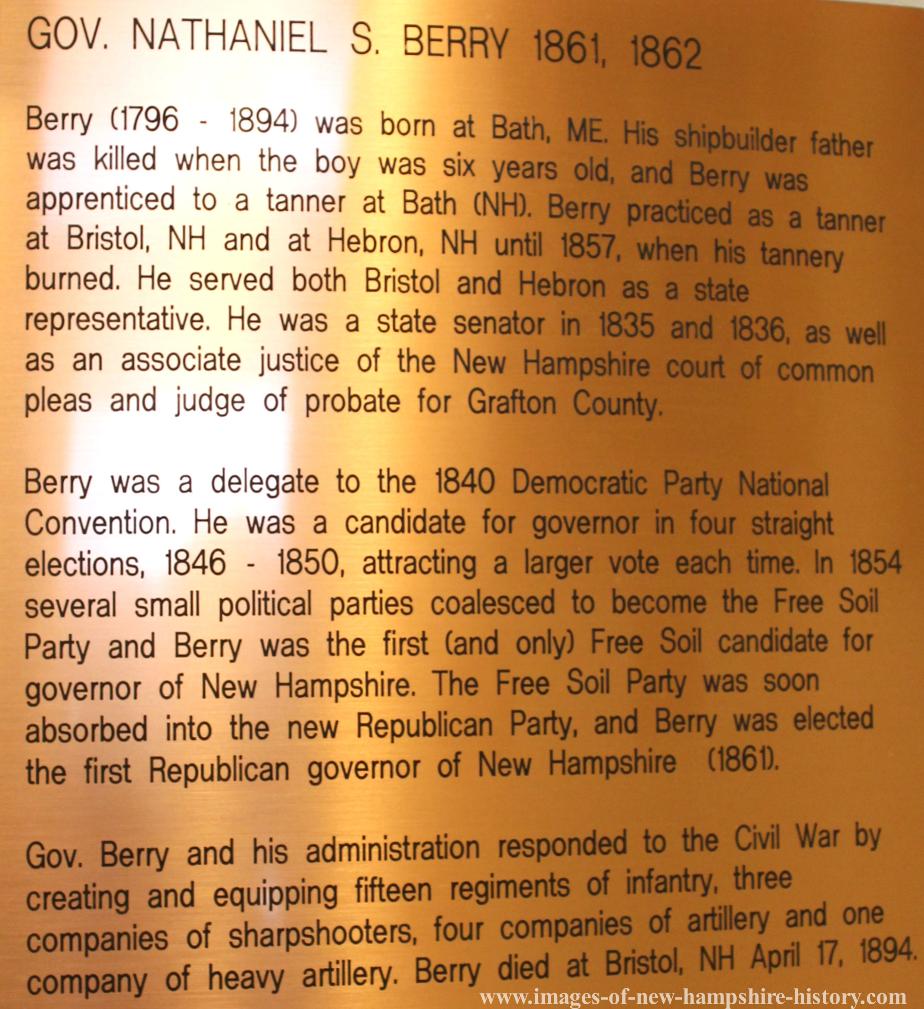
Governor Joseph A Gilmore : 1863 - 1865
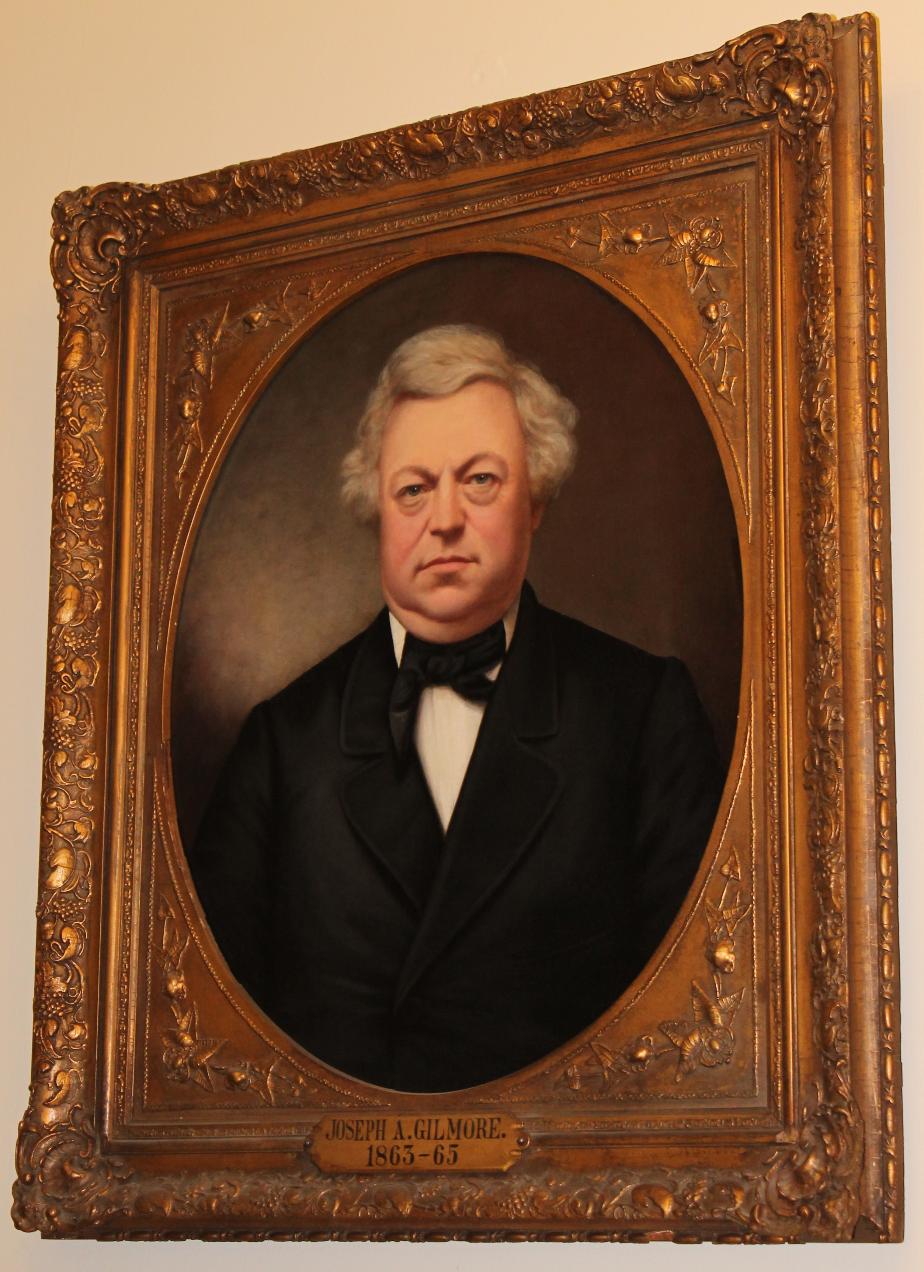
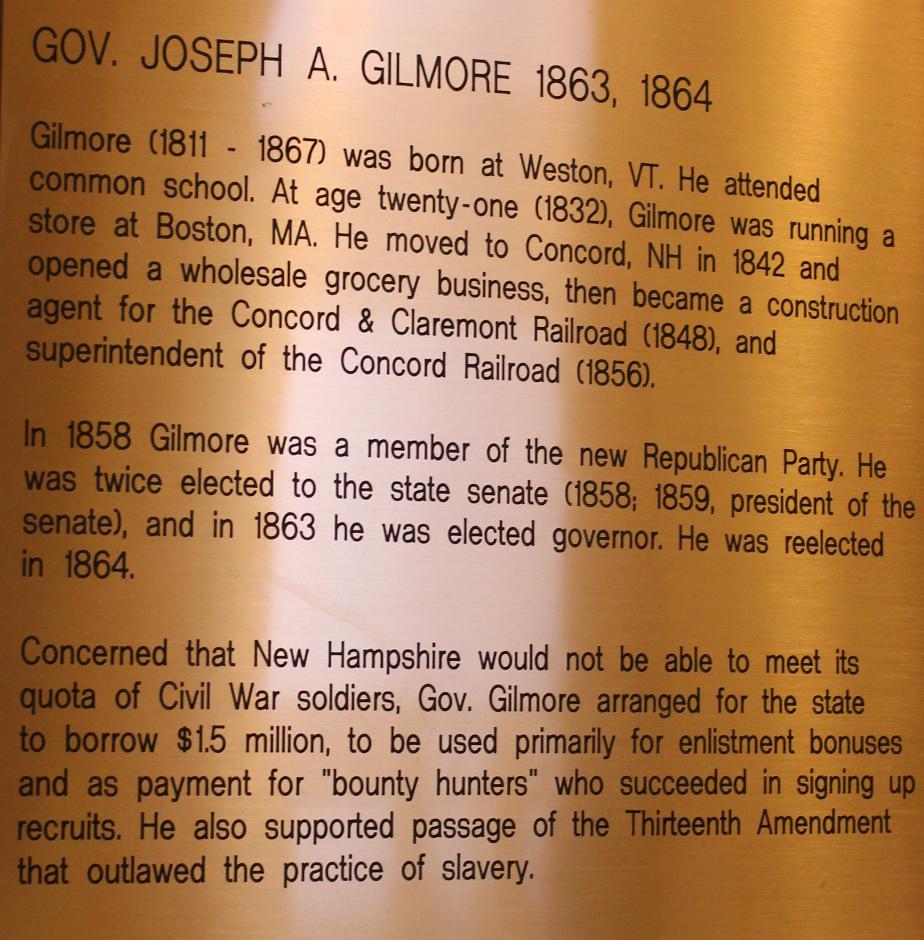
Governor Frederick Smyth: 1865 - 1866
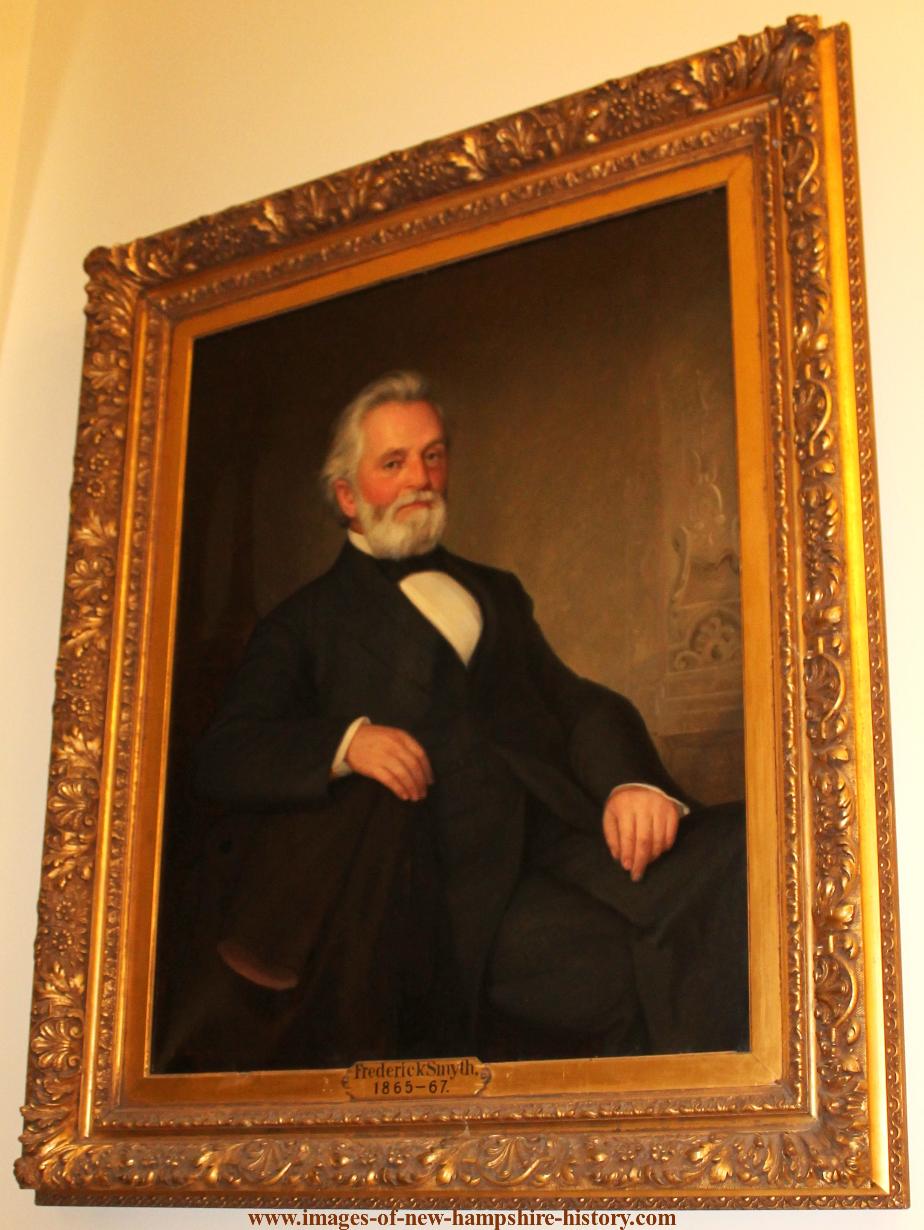
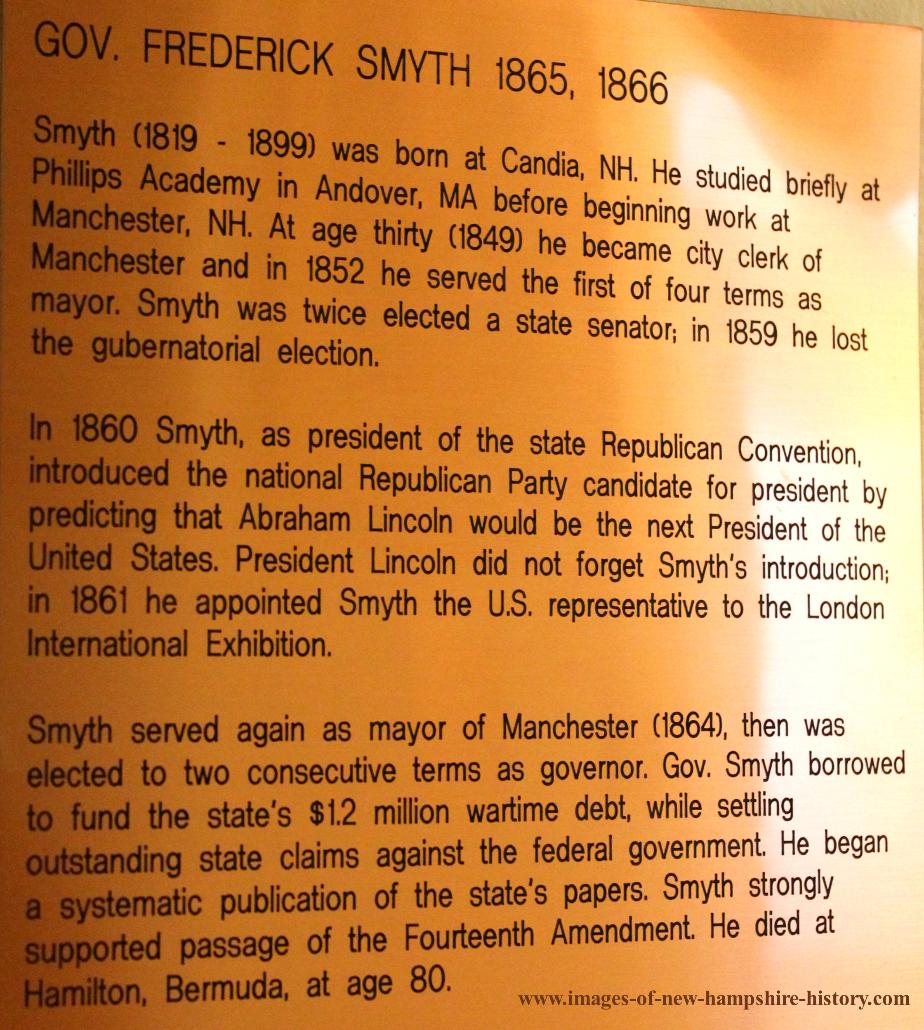
Governor Walter Harriman : 1867 - 1868
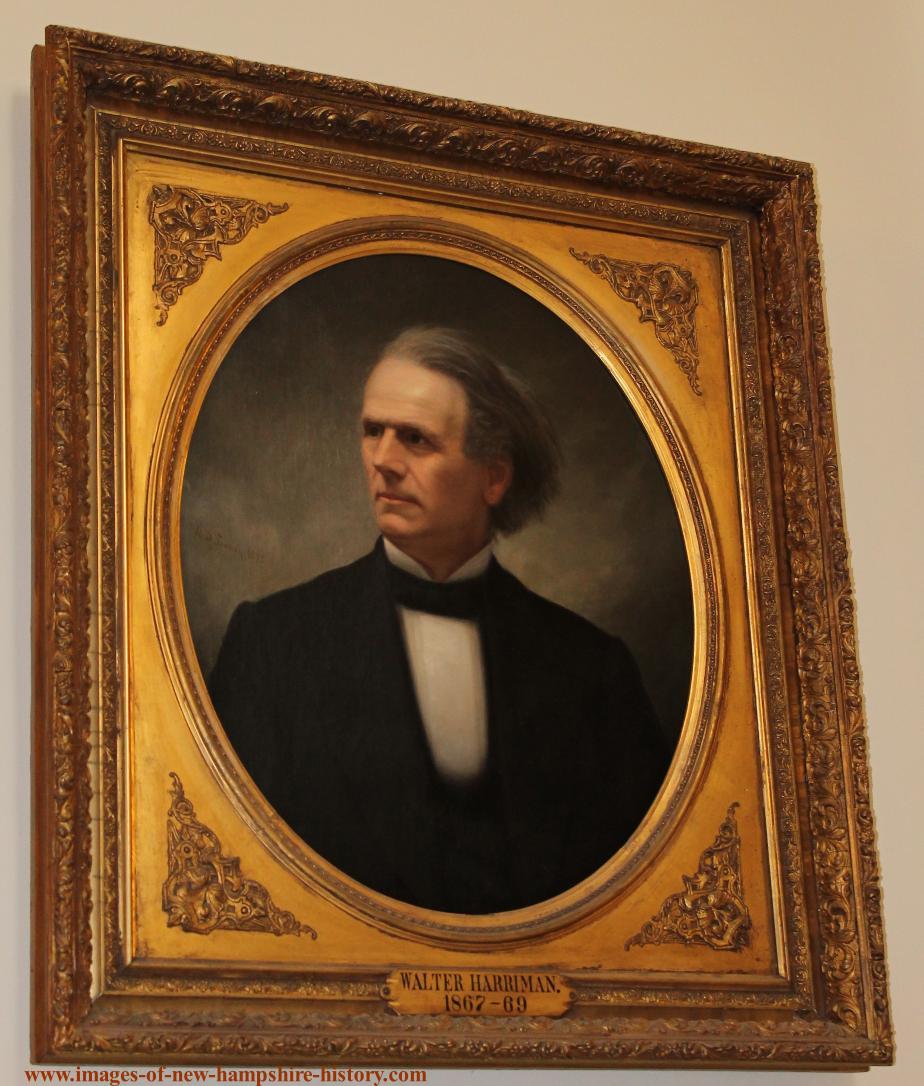
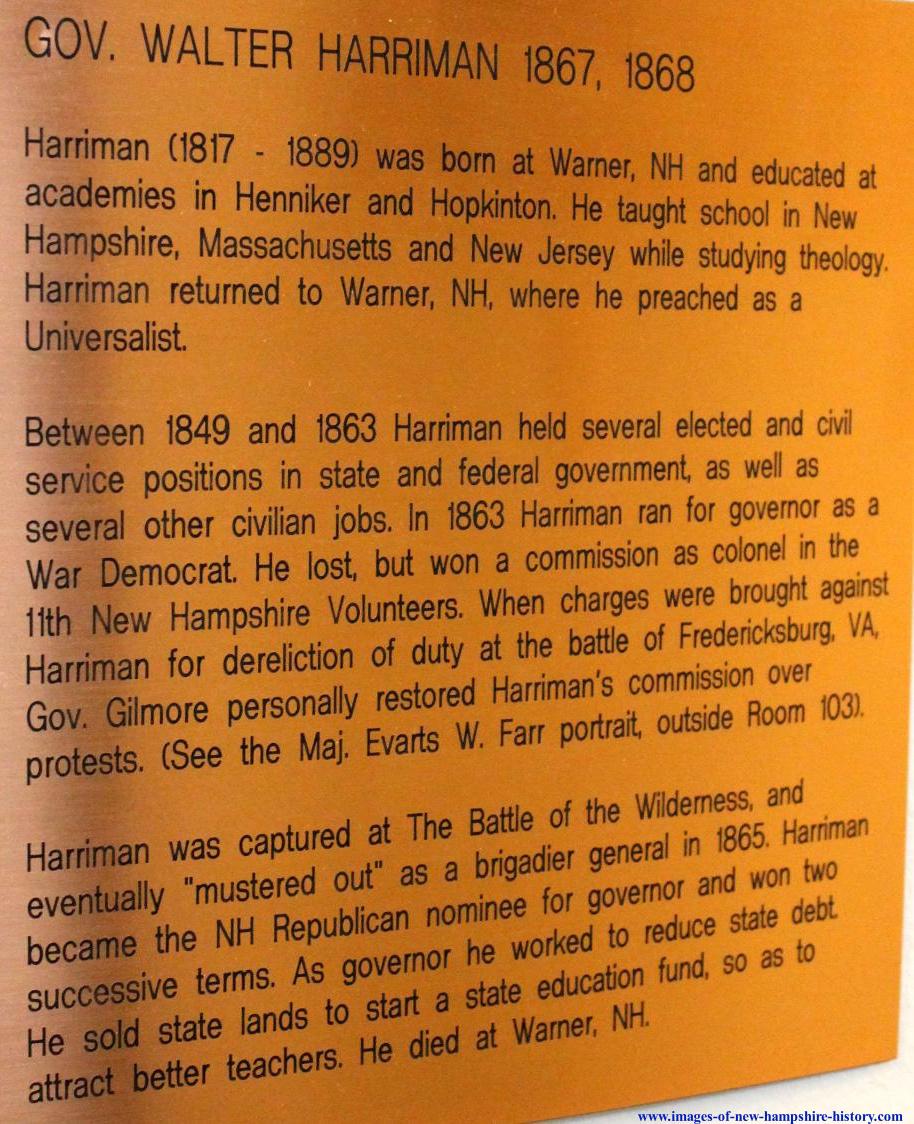
Governor Onslow Stearns: 1869 - 1871
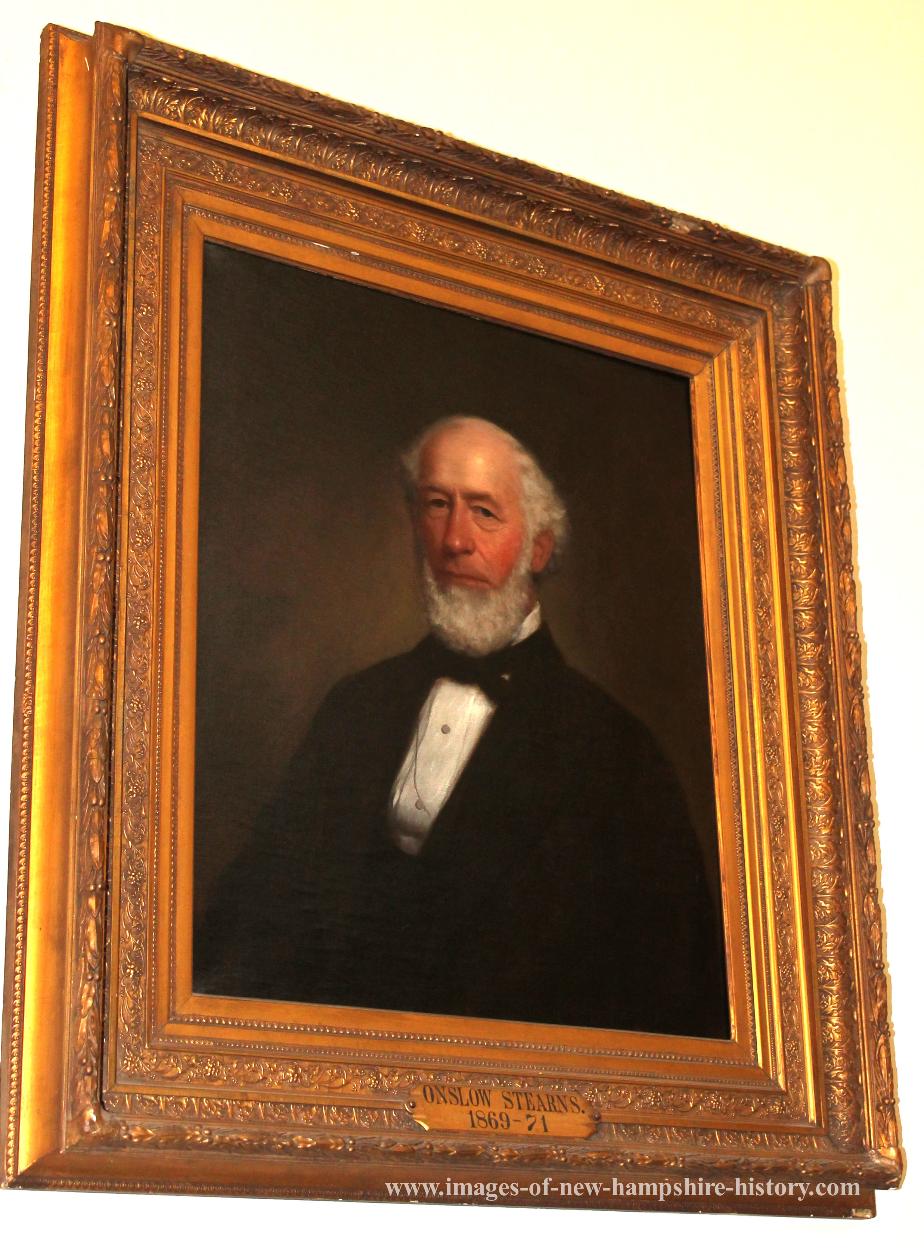
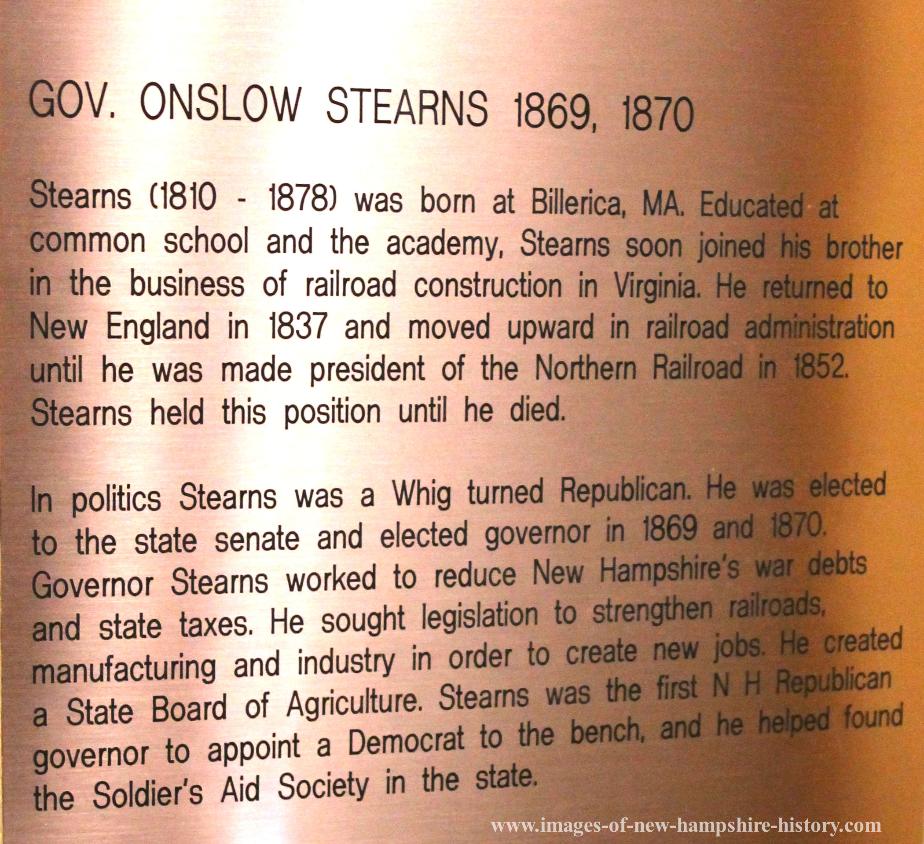
James Weston - 1871 - 1872
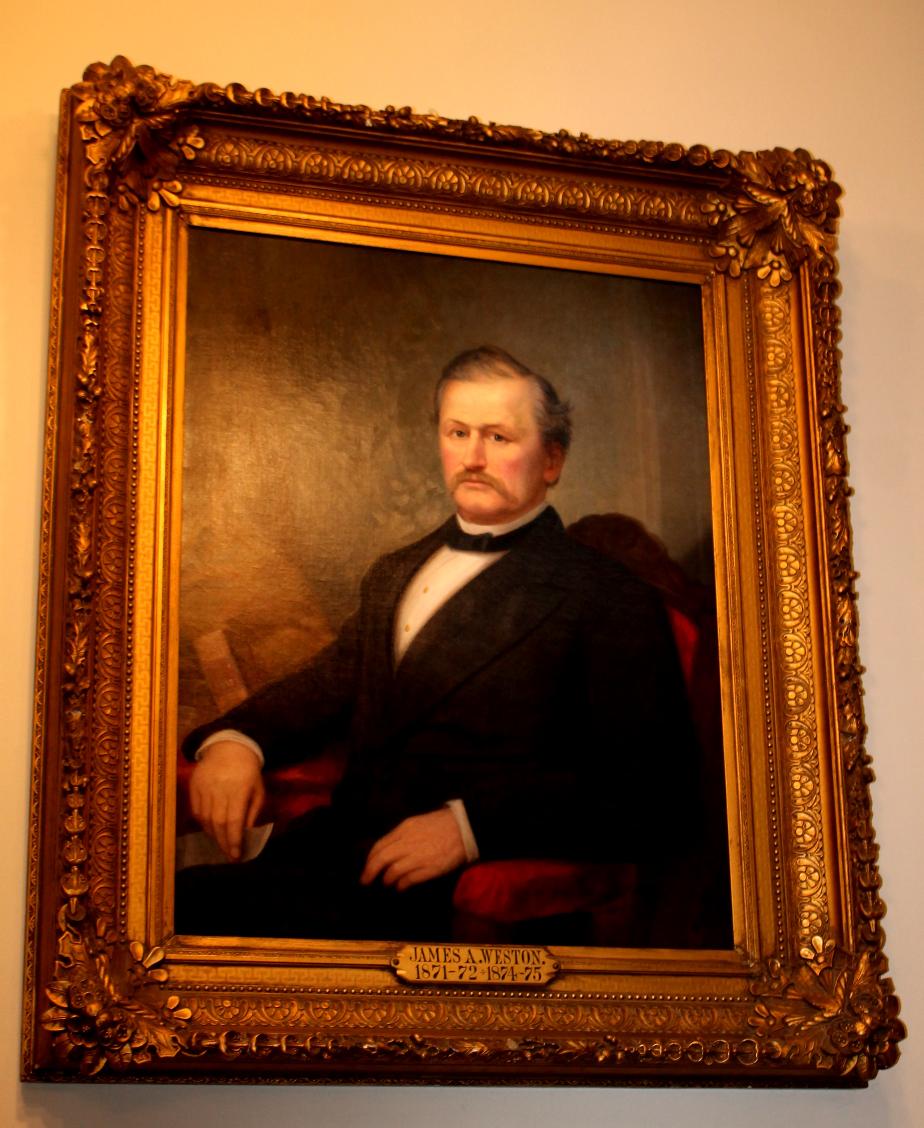
James Westonwas born in Manchester, New Hampshire on August 27, 1827. His education was attained in academies at Manchester and Piscataquog, where he studied engineering. He went to work in the railroad industry, establishing a successful career an engineer. He first entered politics as mayor of Manchester, a position he won election to in 1861, 1867, 1869, 1870 and 1874. Weston next secured the 1871 Democratic gubernatorial nomination, and after a close popular election, the legislature named Weston the official governor. In 1872 and 1873 he lost his reelection bids, but was successful in winning reelection in 1874. During his two terms, an important railroad merger was authorized; and numerous Democratic appointments were made in the judiciary, as well as in state jobs that were previously held by the Republican party. After completing his term, Weston retired from political life. He continued to stay active, working in the banking, insurance and railroad industries. Governor James A. Weston passed away in Manchester on May 8, 1895.
Ezekial Straw - 1872 - 1874
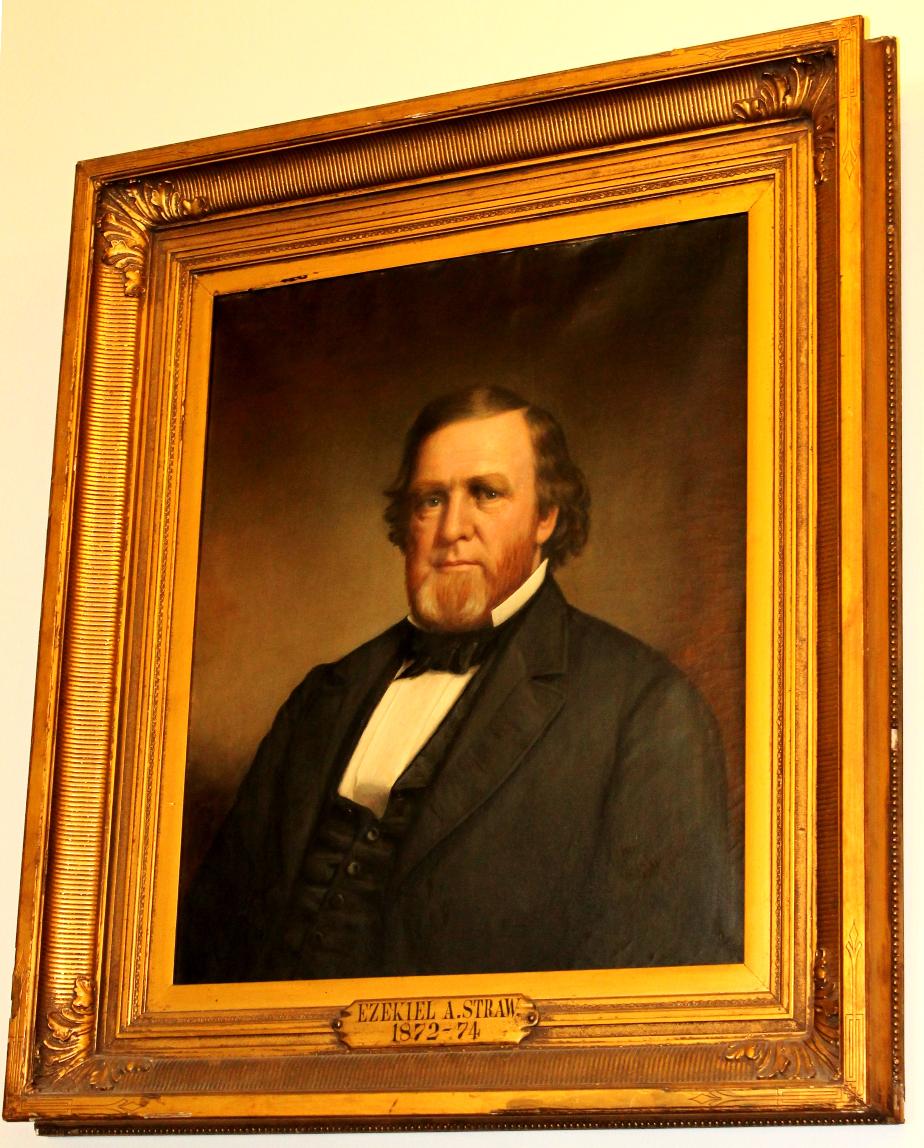
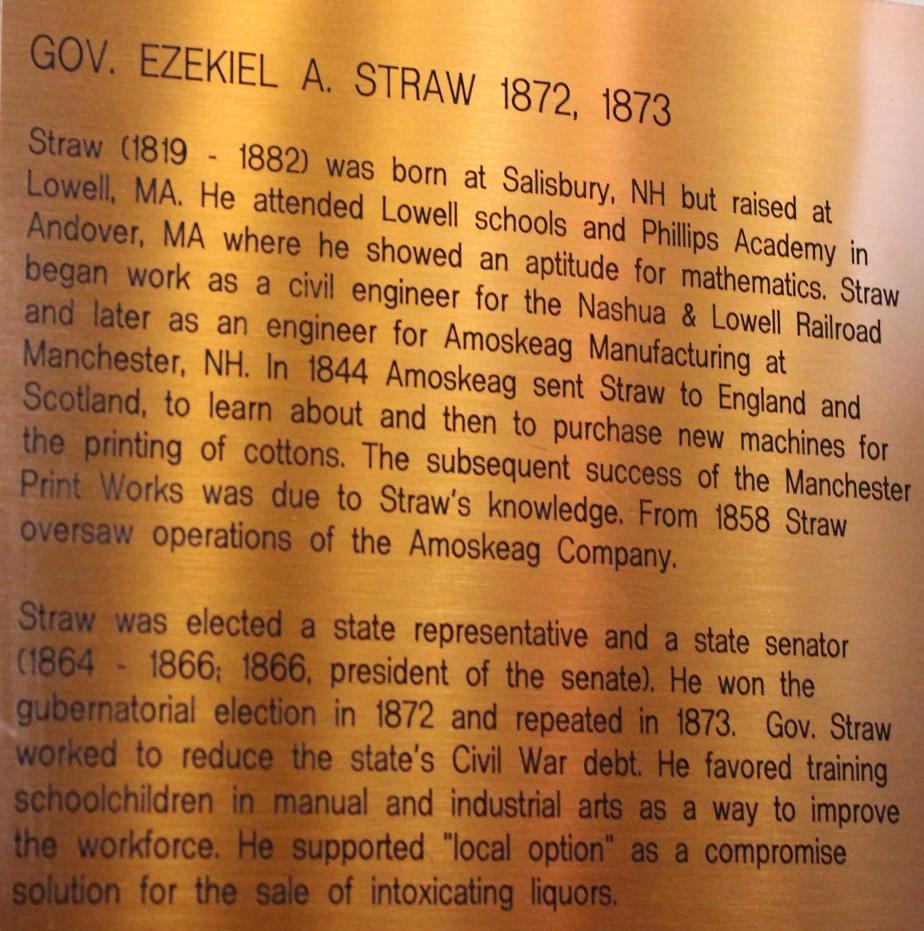
James Weston - 1874 - 1875
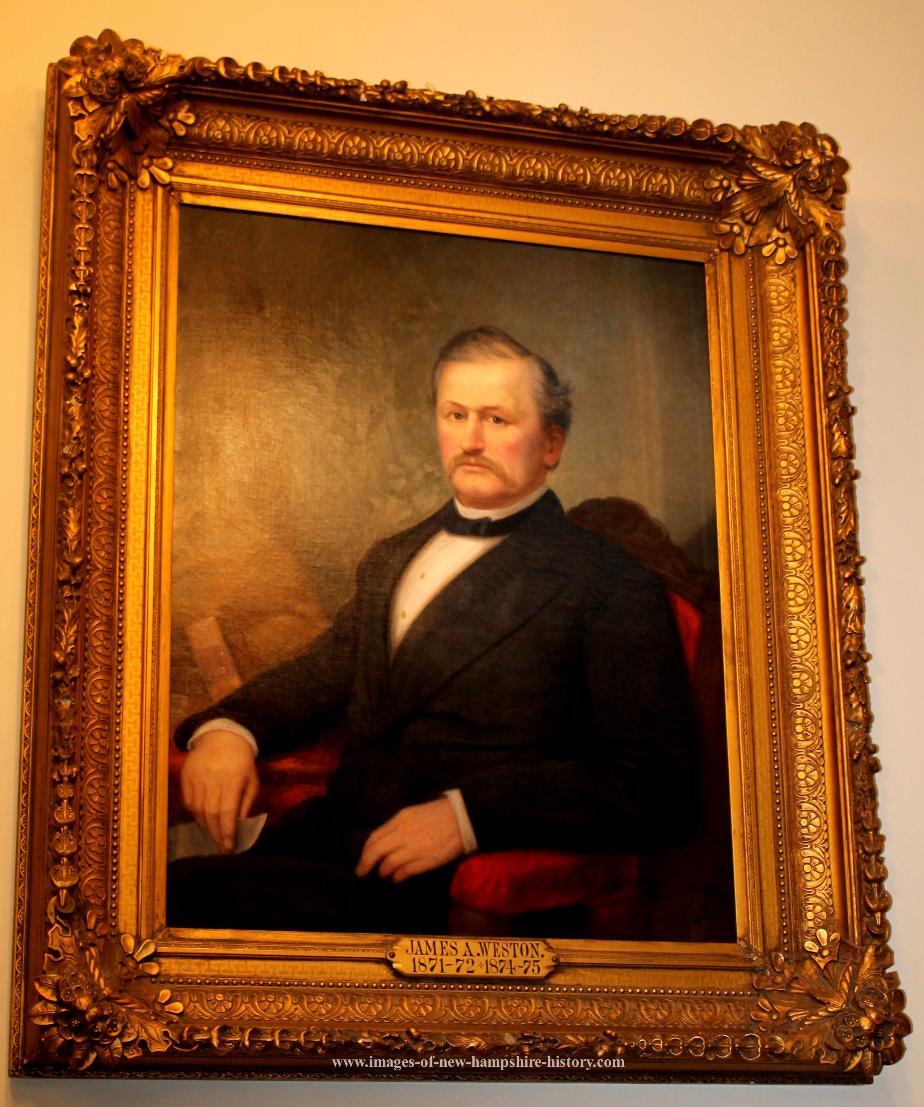
Person C. Cheney (Holderness) 1875 - 1877
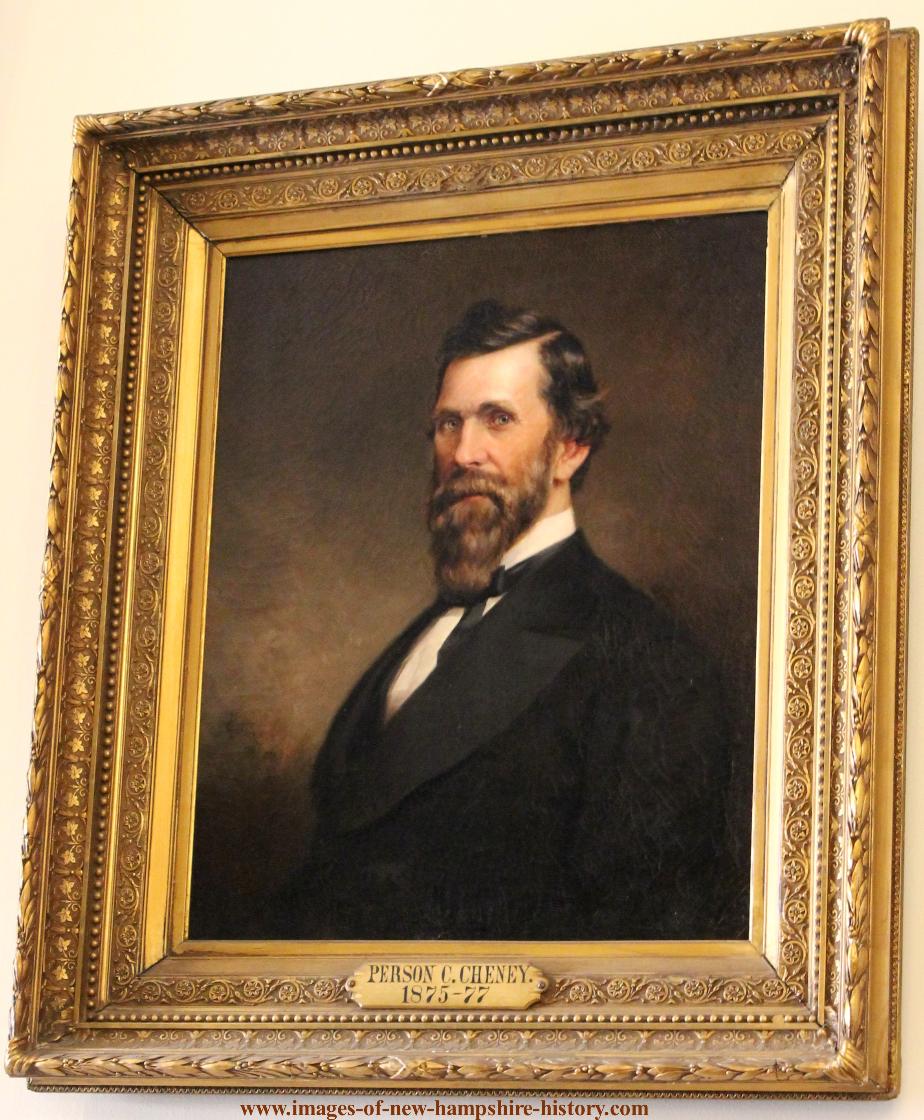
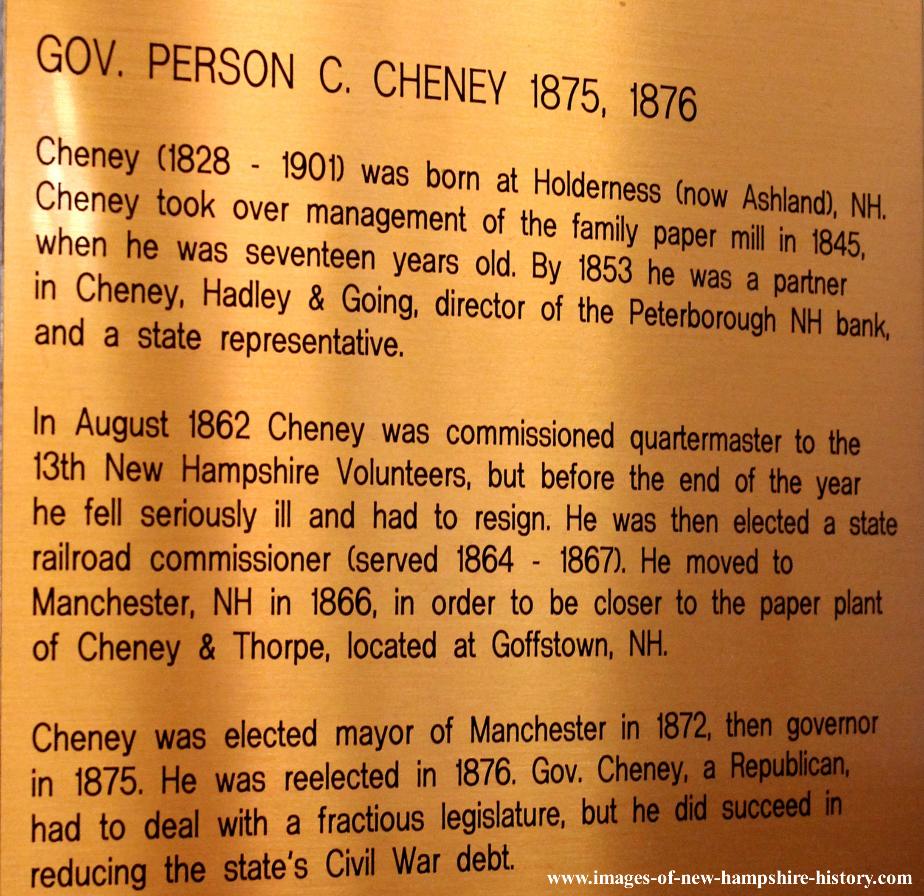
Governor Benjamin Prescott : 1877 - 1879
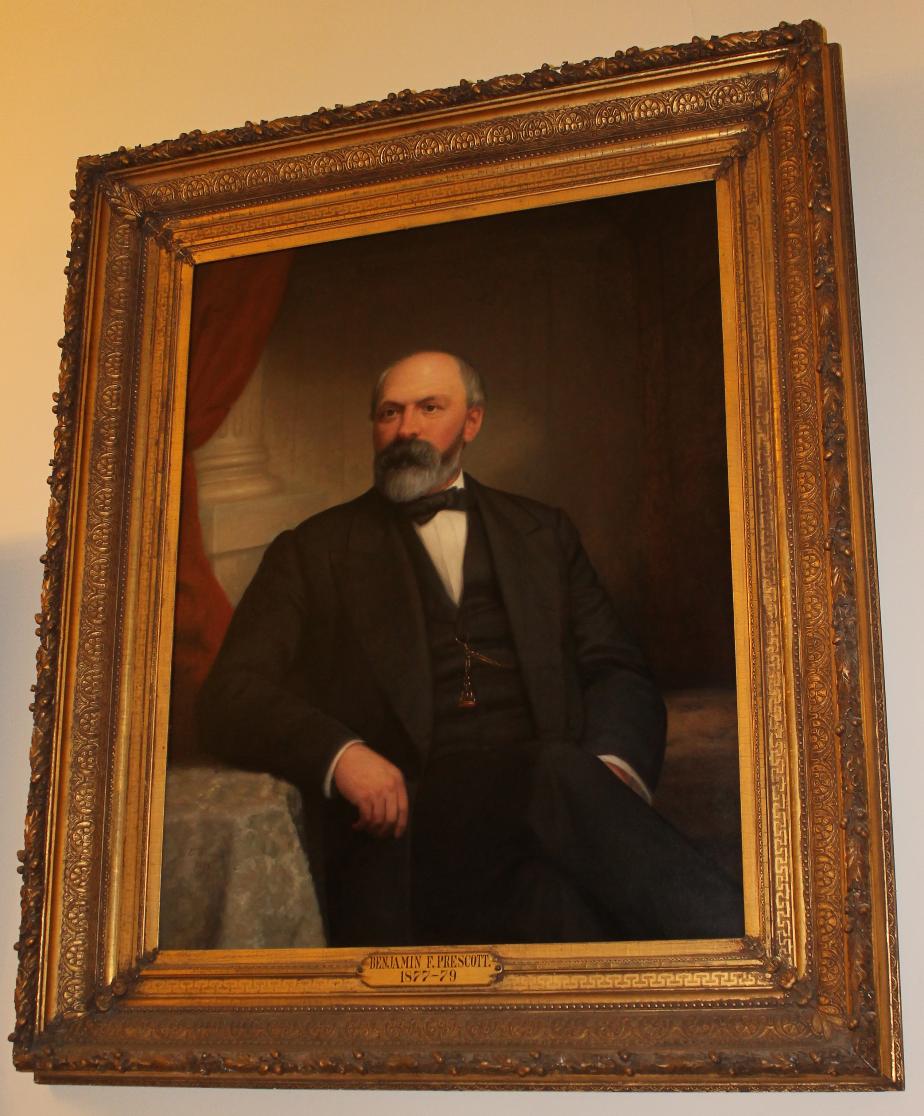
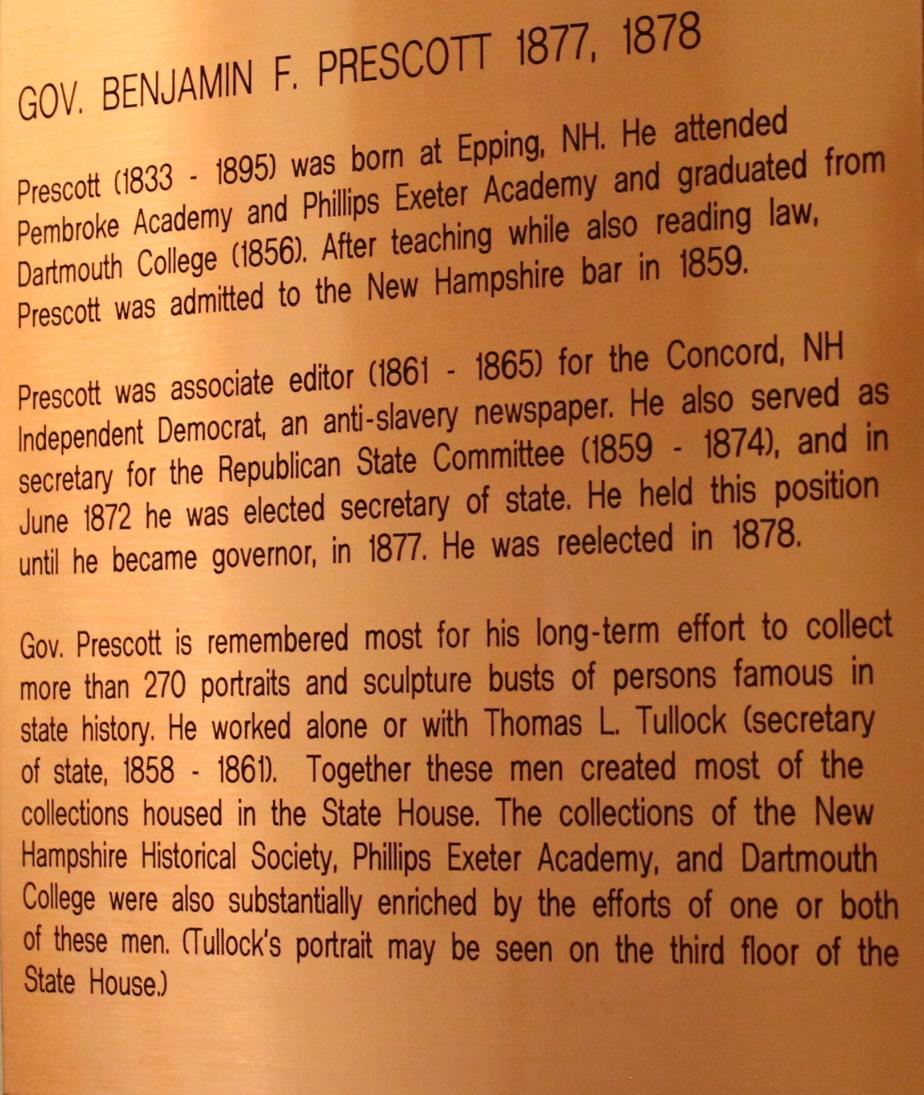
Governor Natt Head: 1879-1880
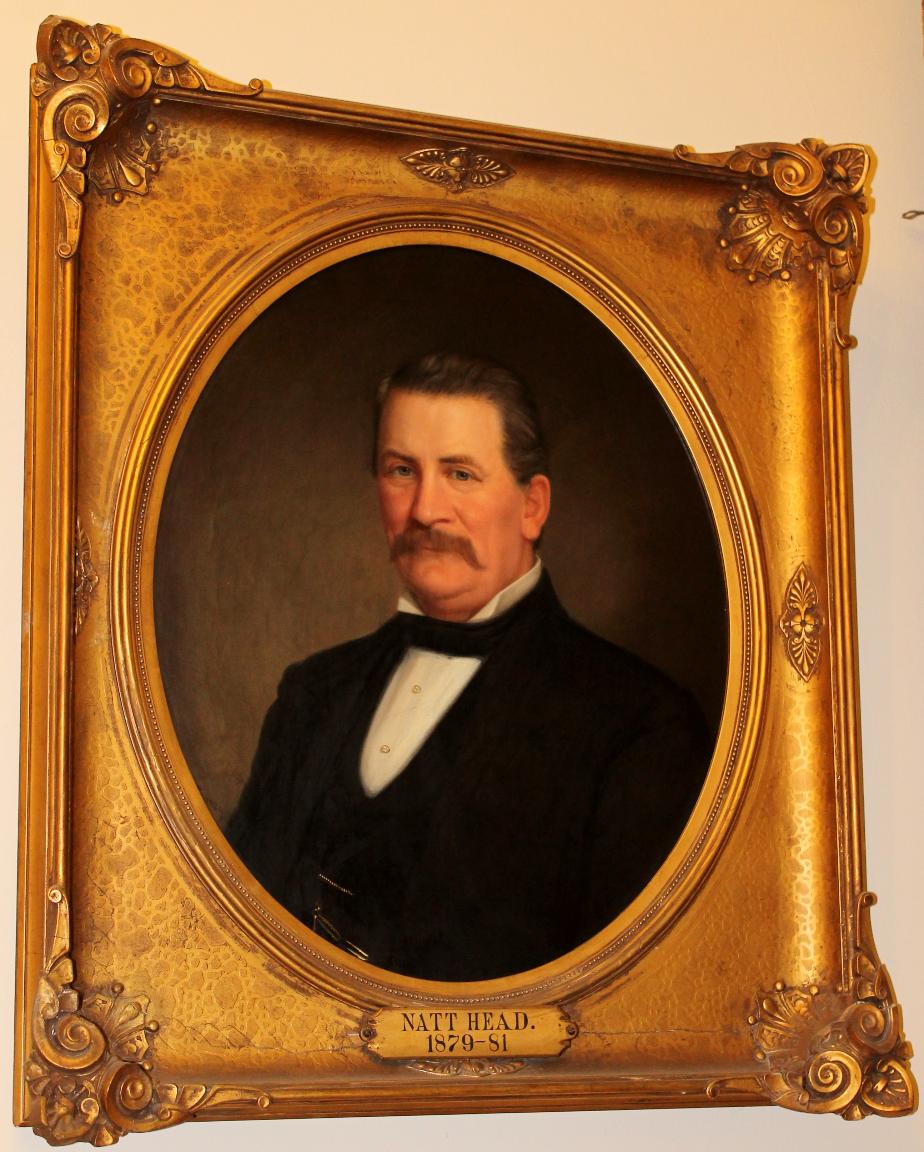
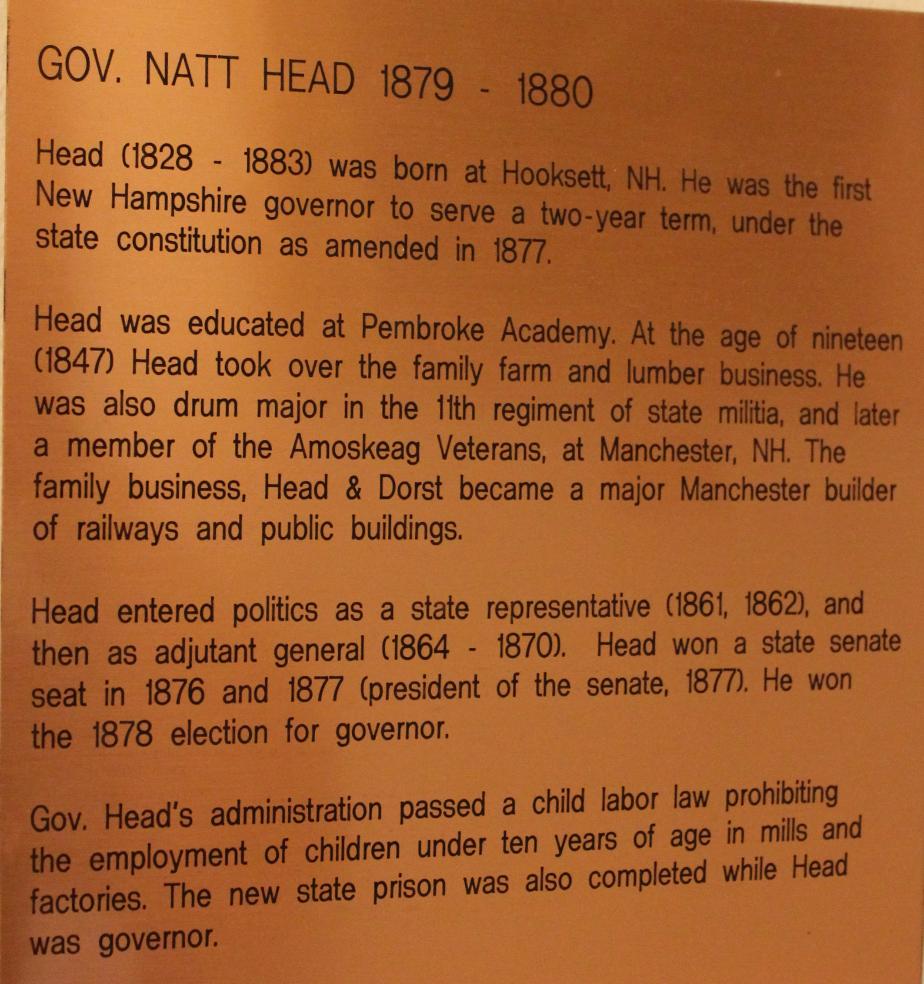
Governor Charles H. Bell (1881 - 1882)
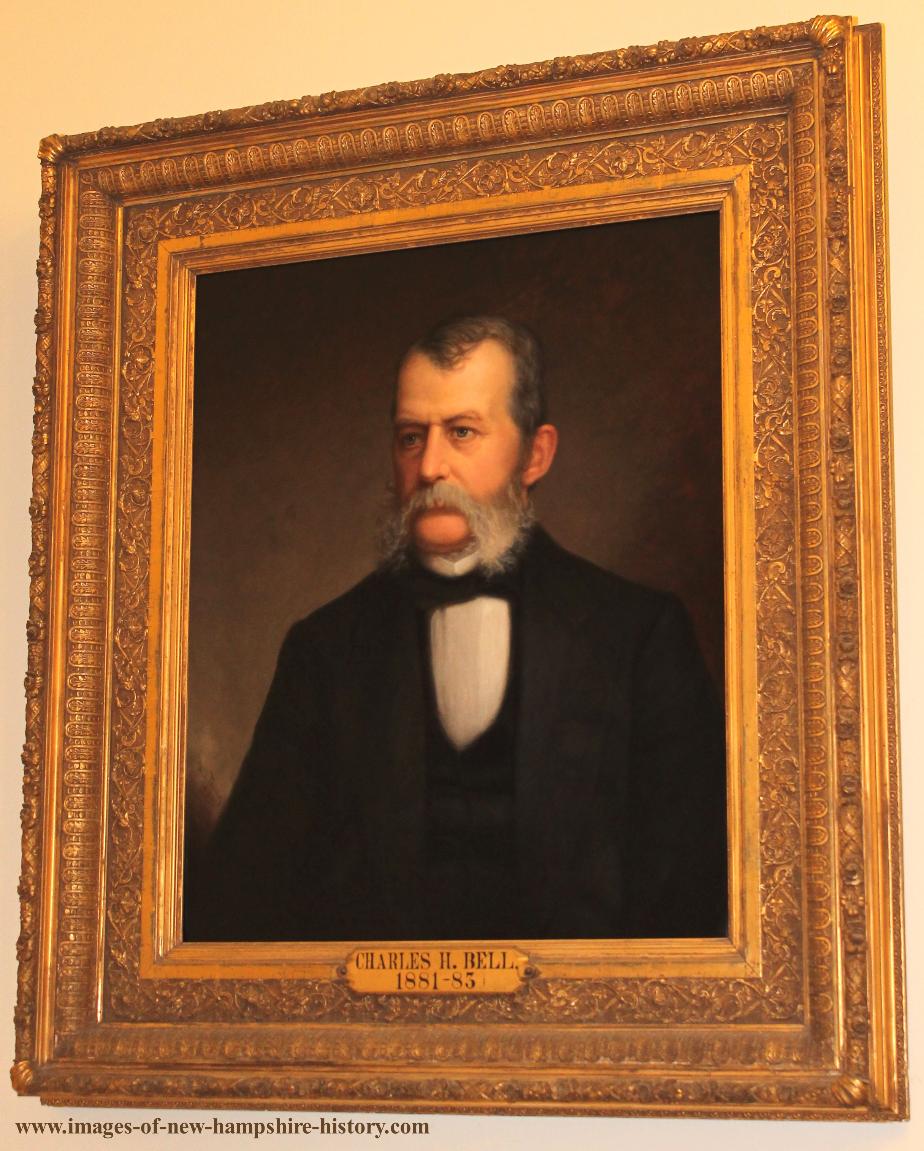
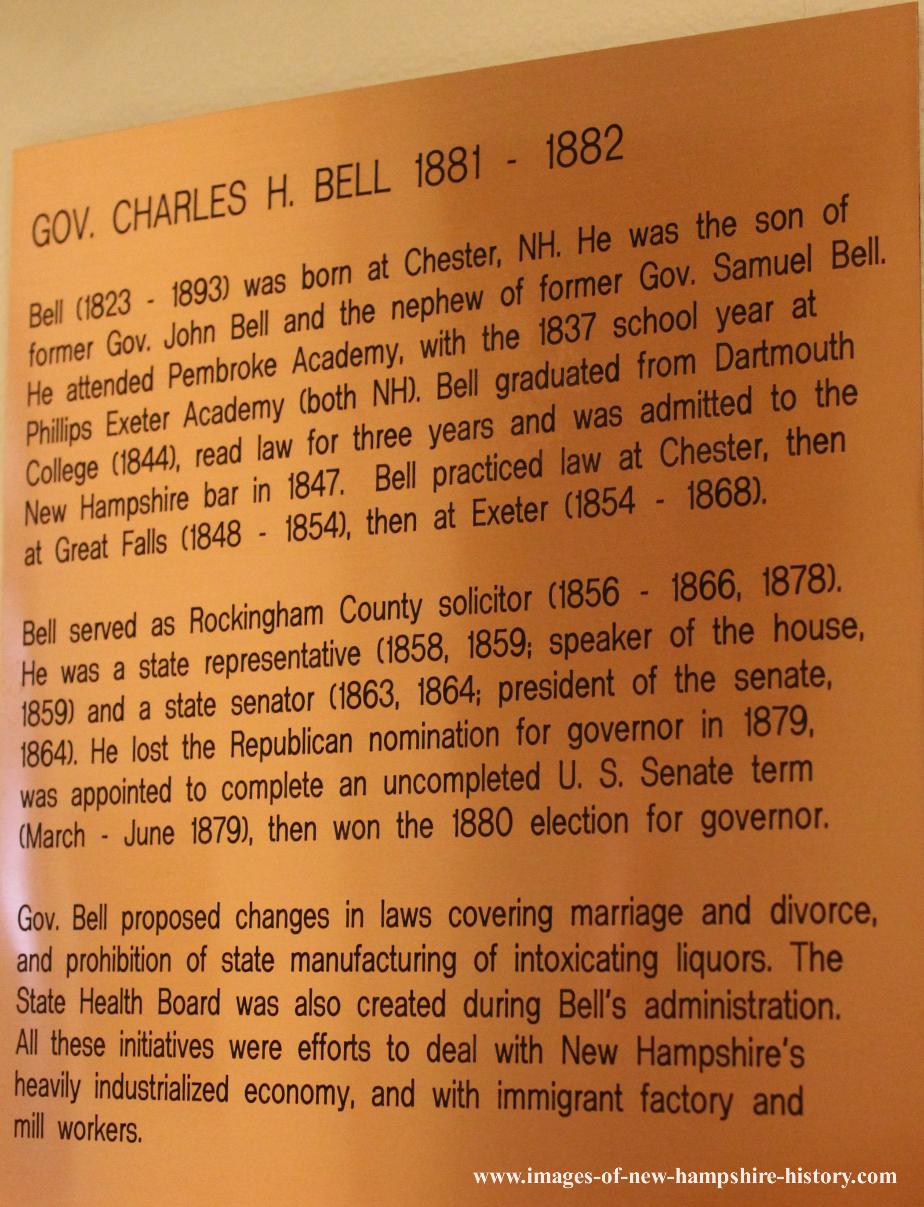
Governor Samuel W. Hale - 1883 - 1884
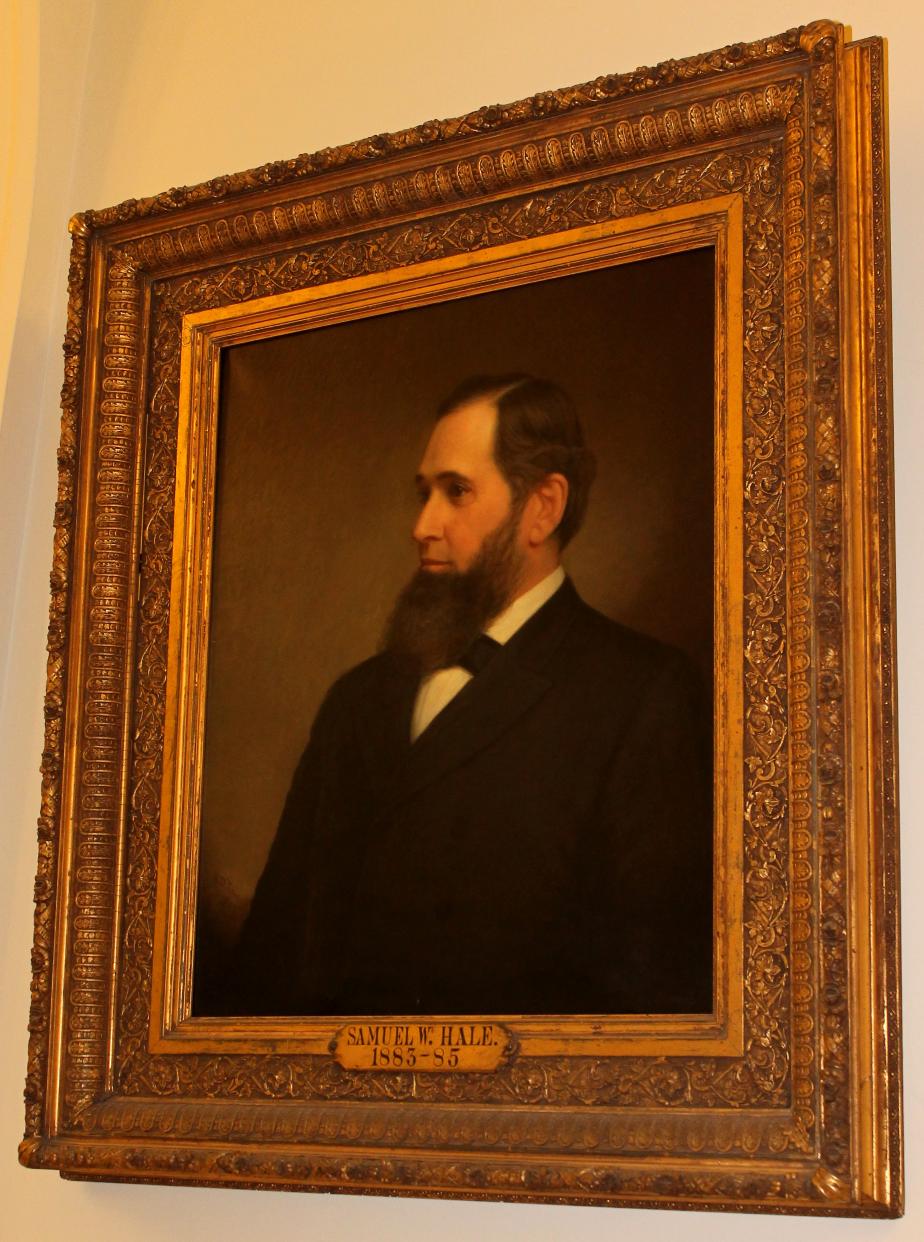
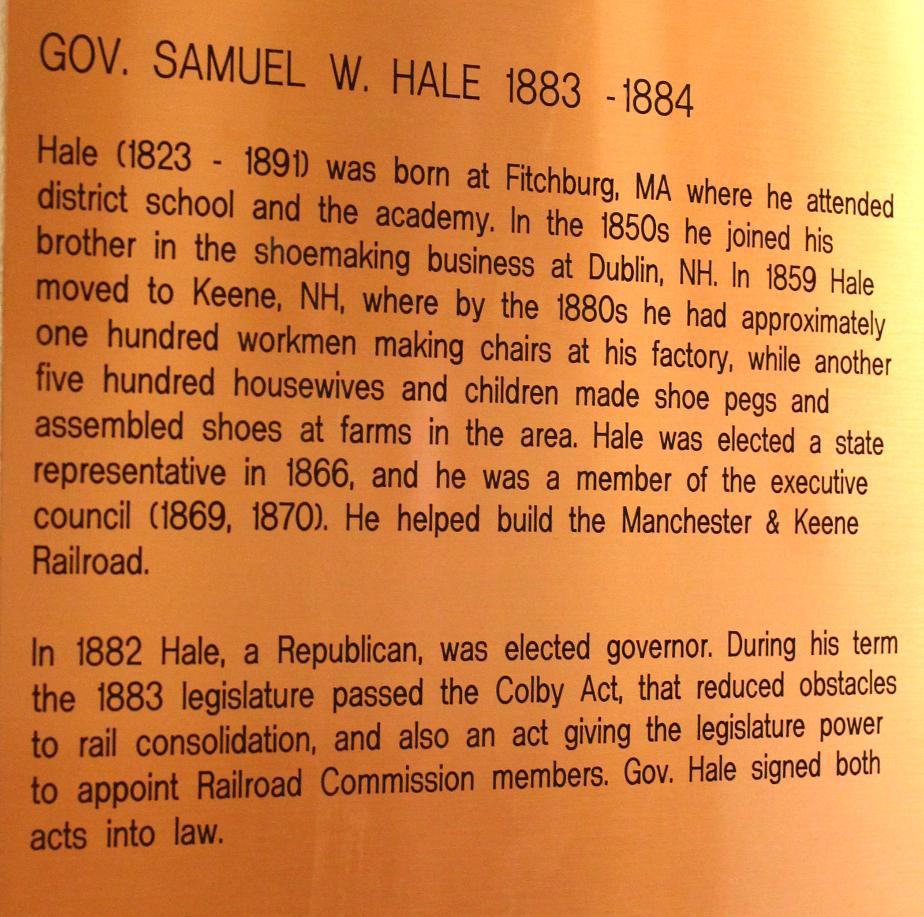
Governor Moody Currier 1885 - 1886
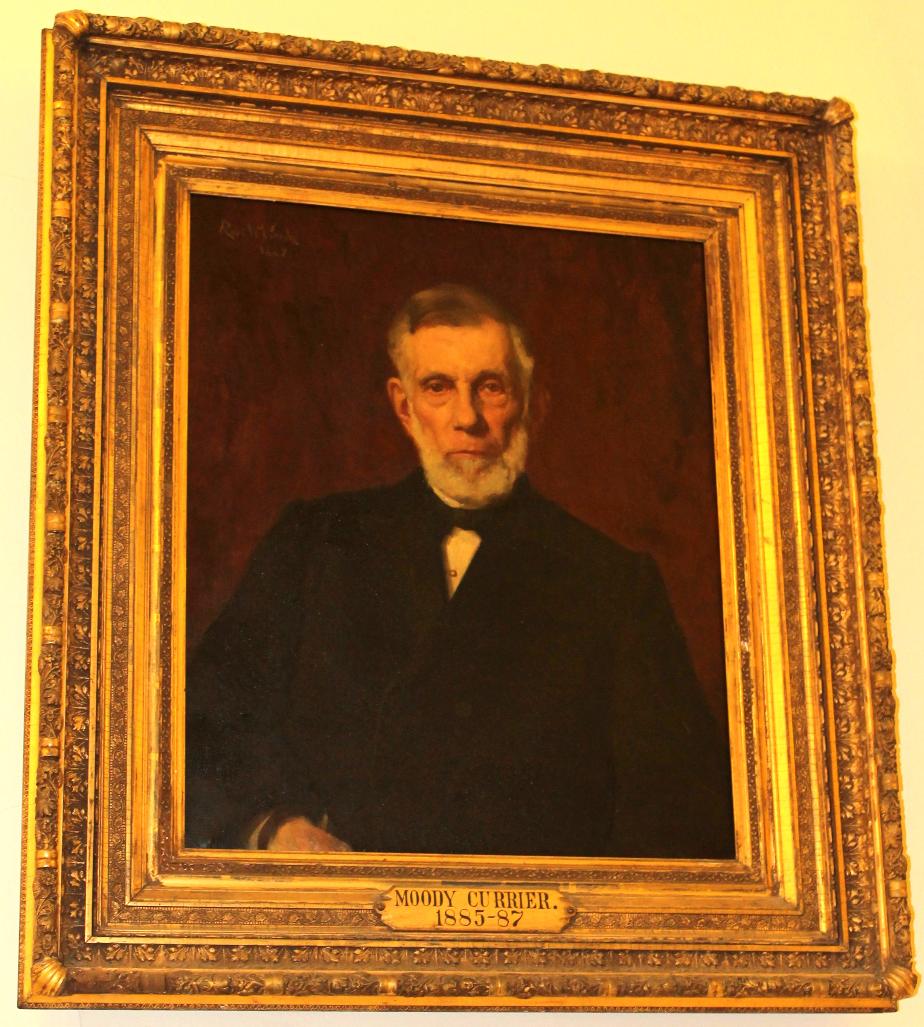
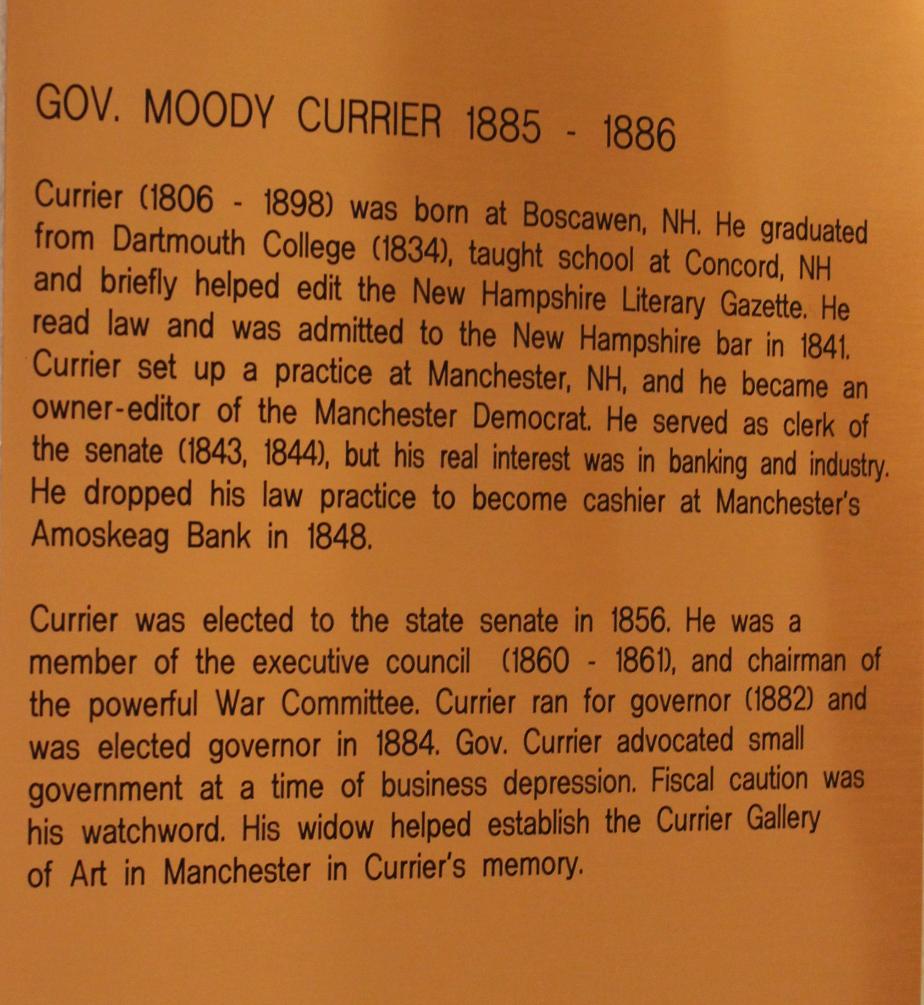
Governor Charles H. Sawyer 1887 - 1888
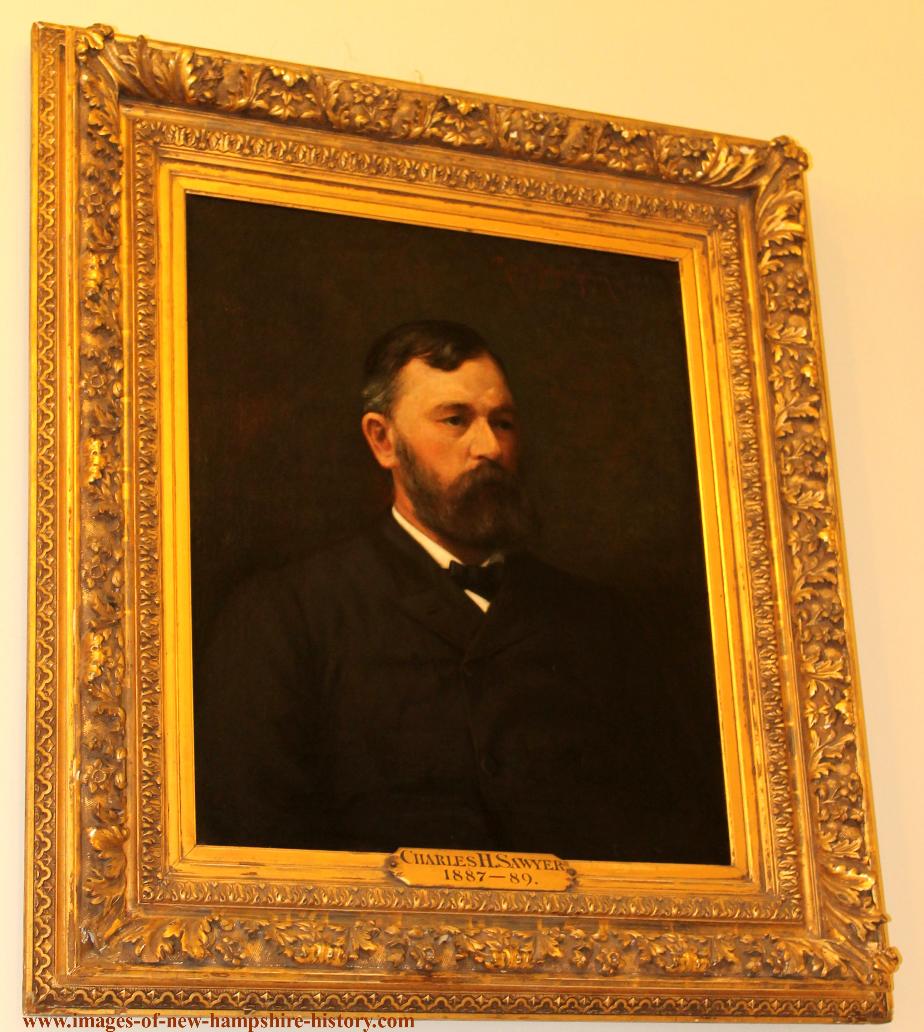
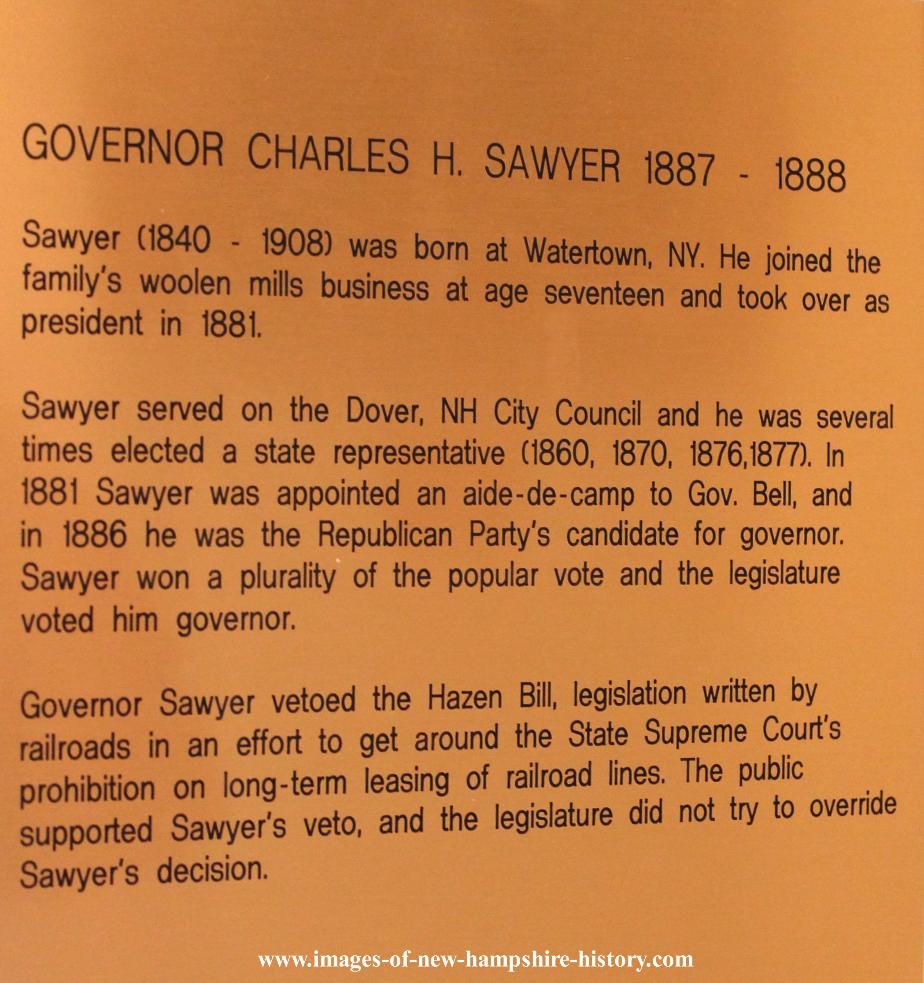
Governor David H. Goodell 1890 - 1900
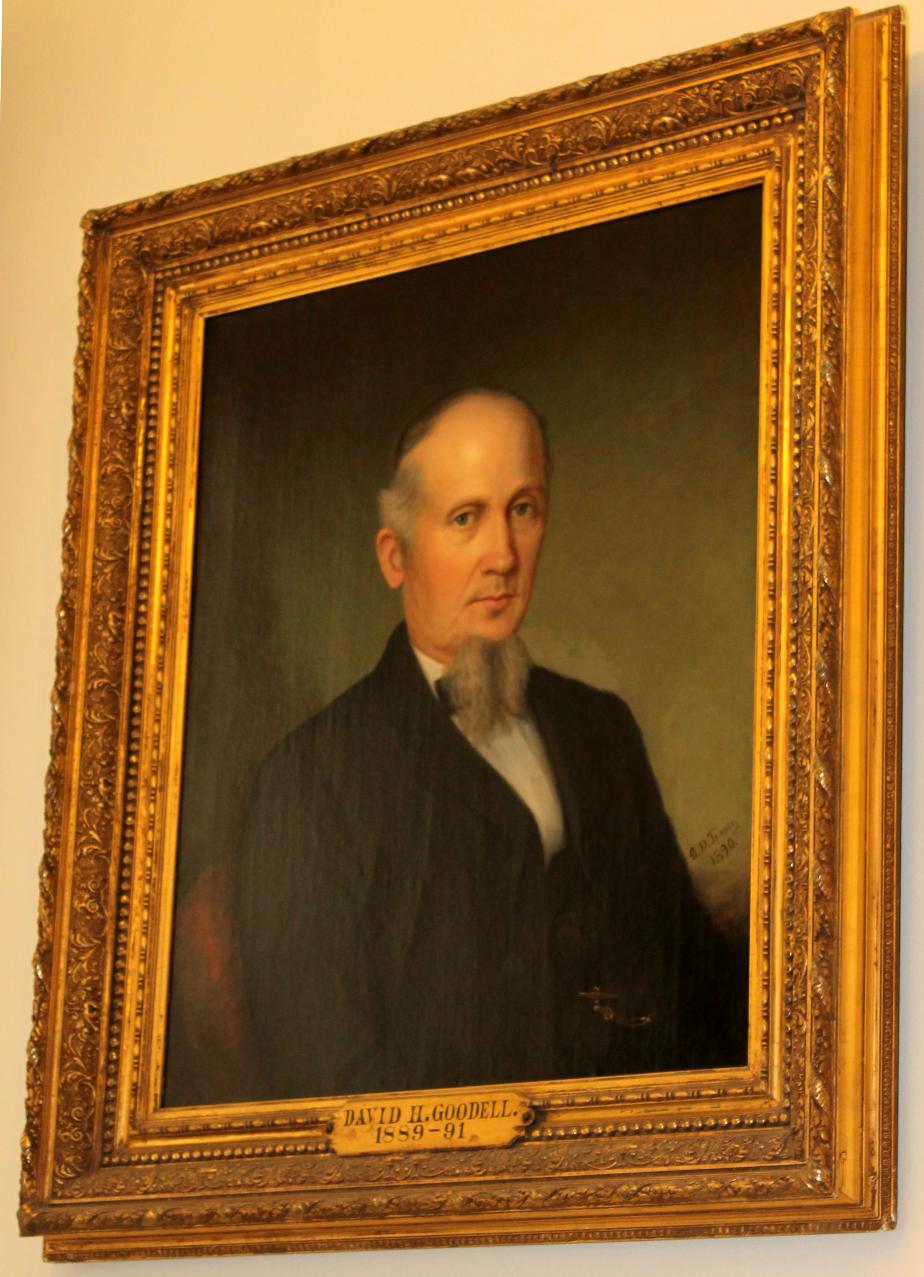
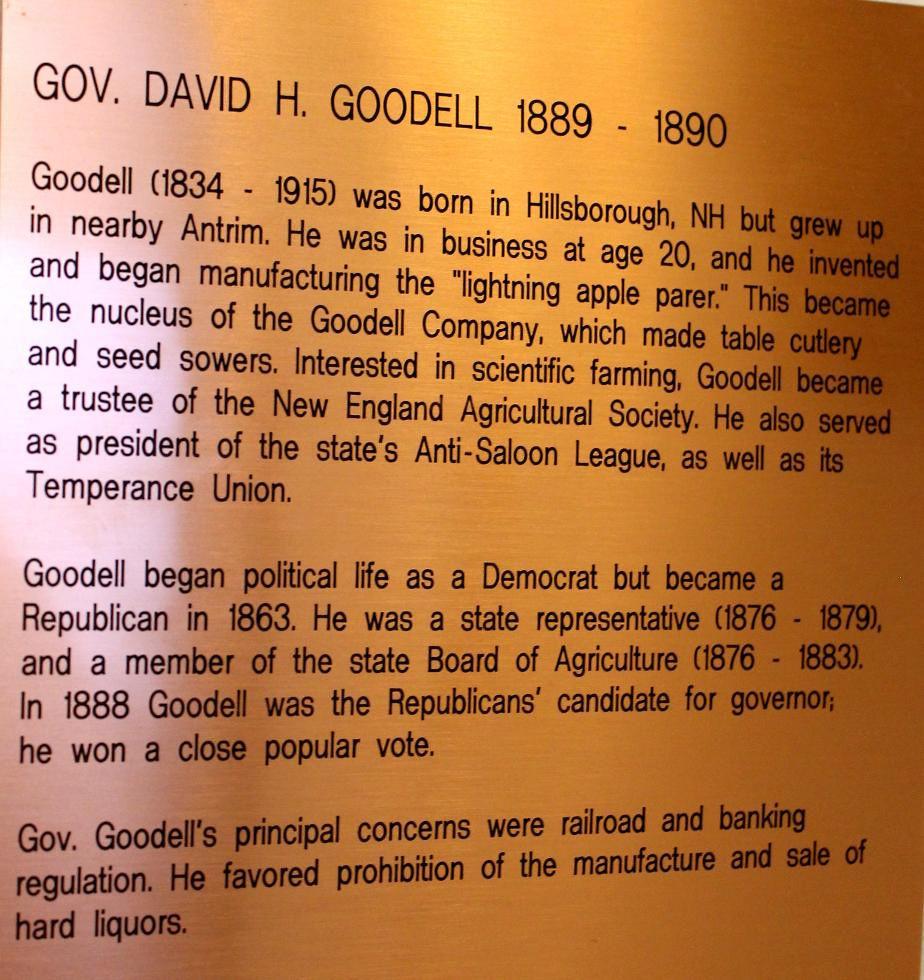

Governor Hiram Tuttle 1891 - 1892
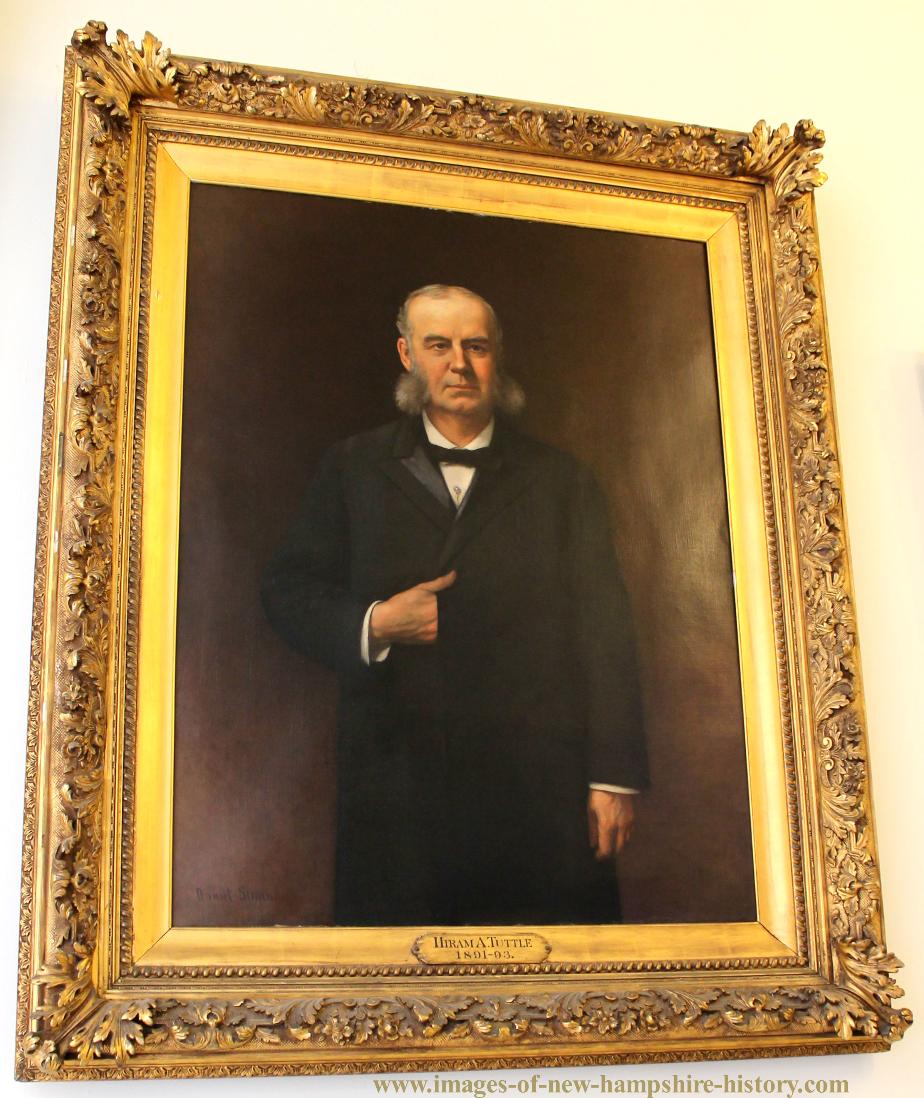
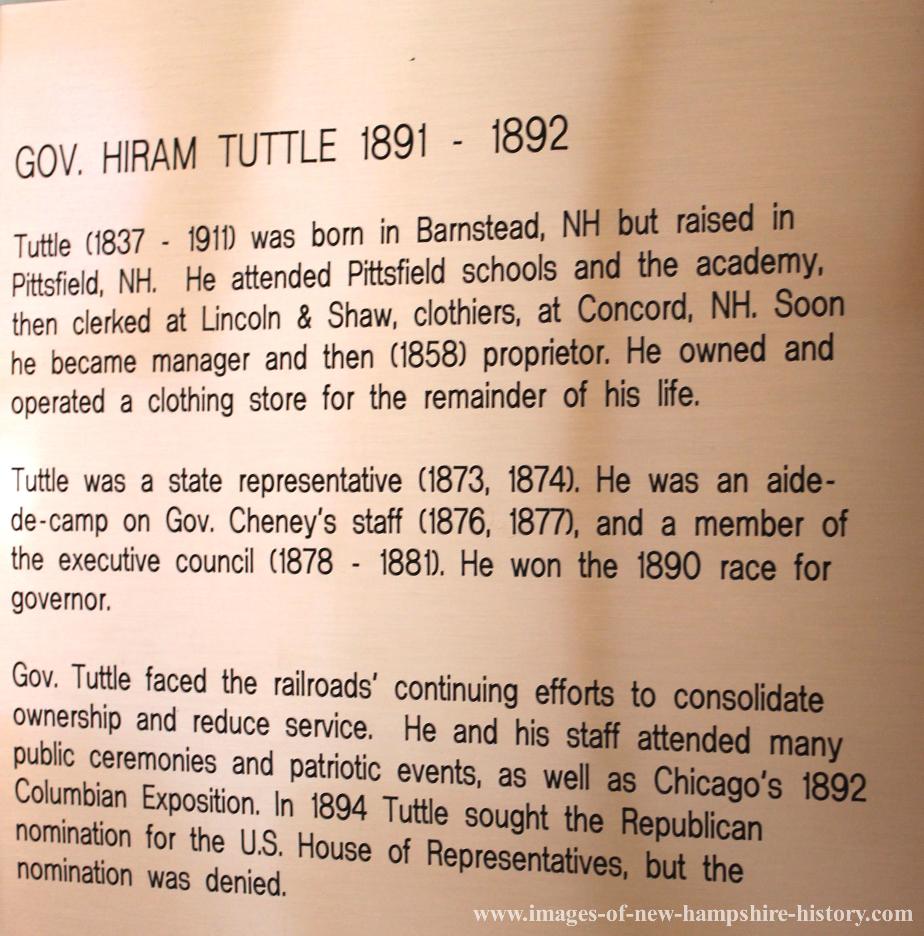
Governor John Butler Smith 1893 - 1894
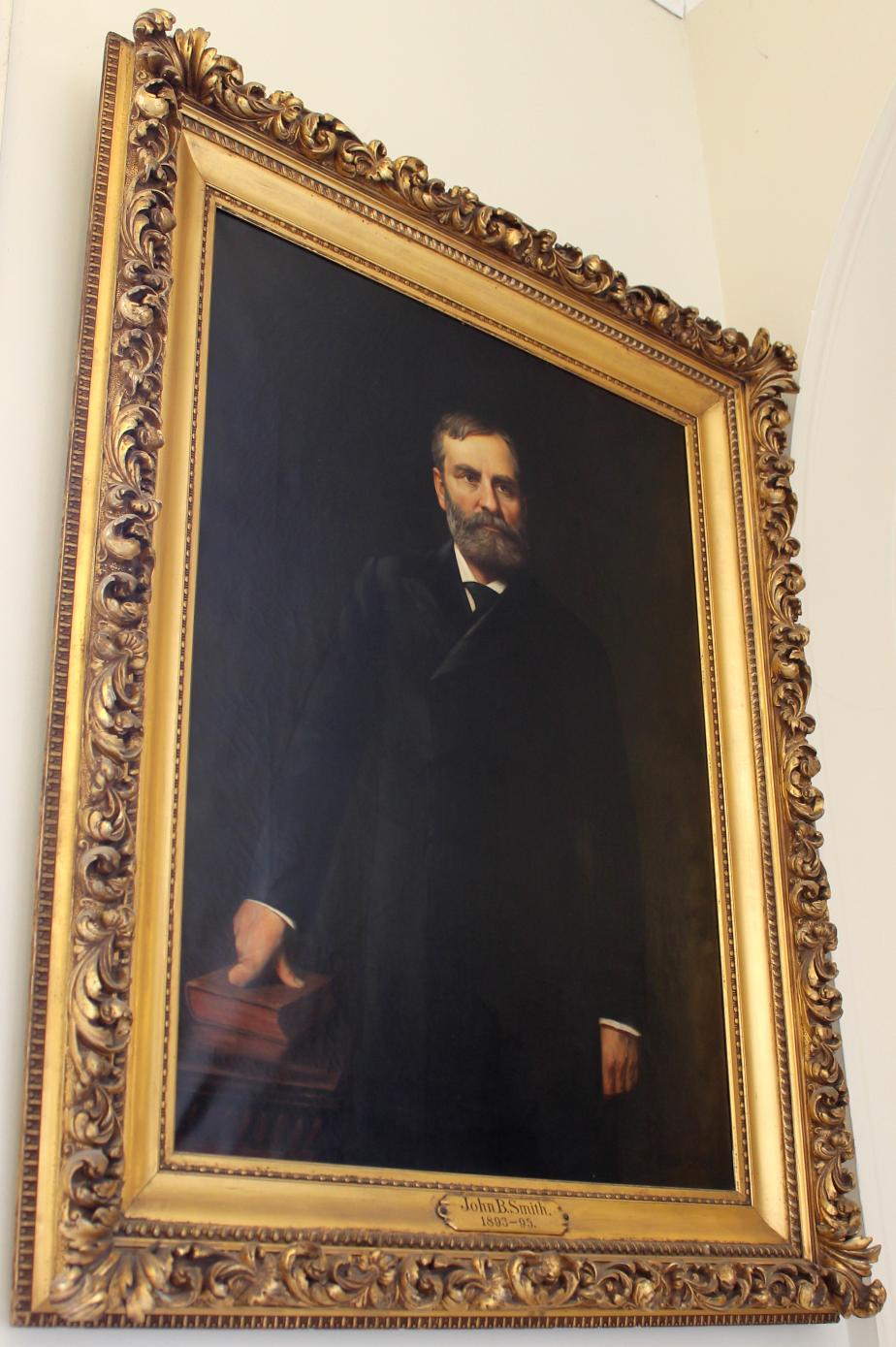
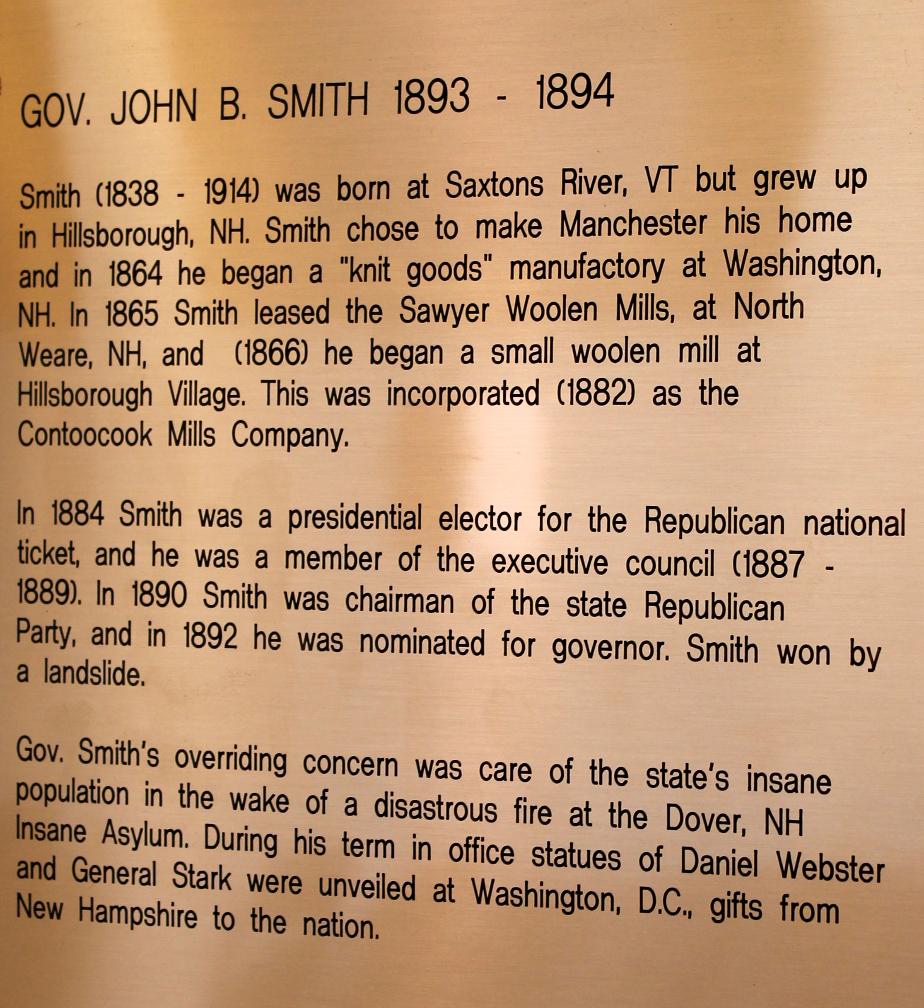
Governor Charles Busiel 1895 - 1897
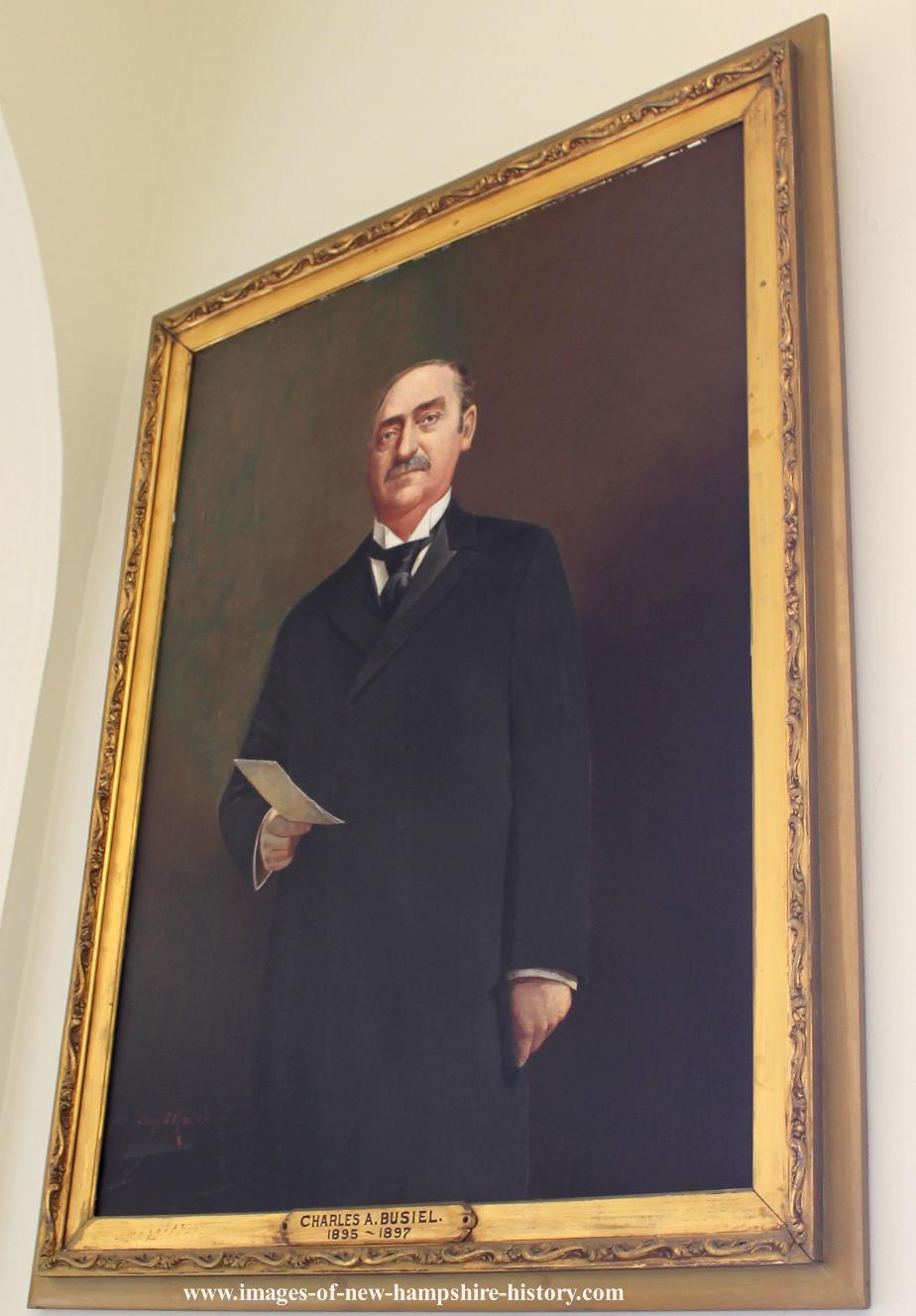
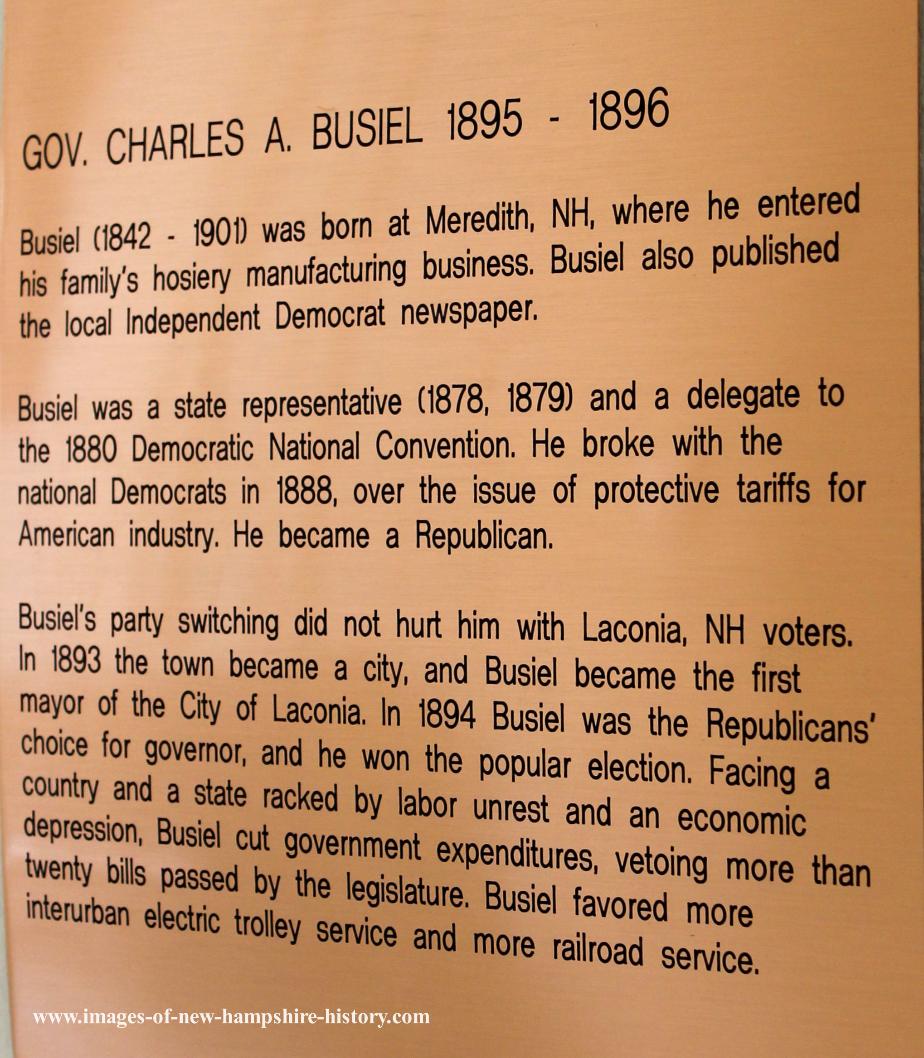
Governor George A Ramsdell 1897 - 1899
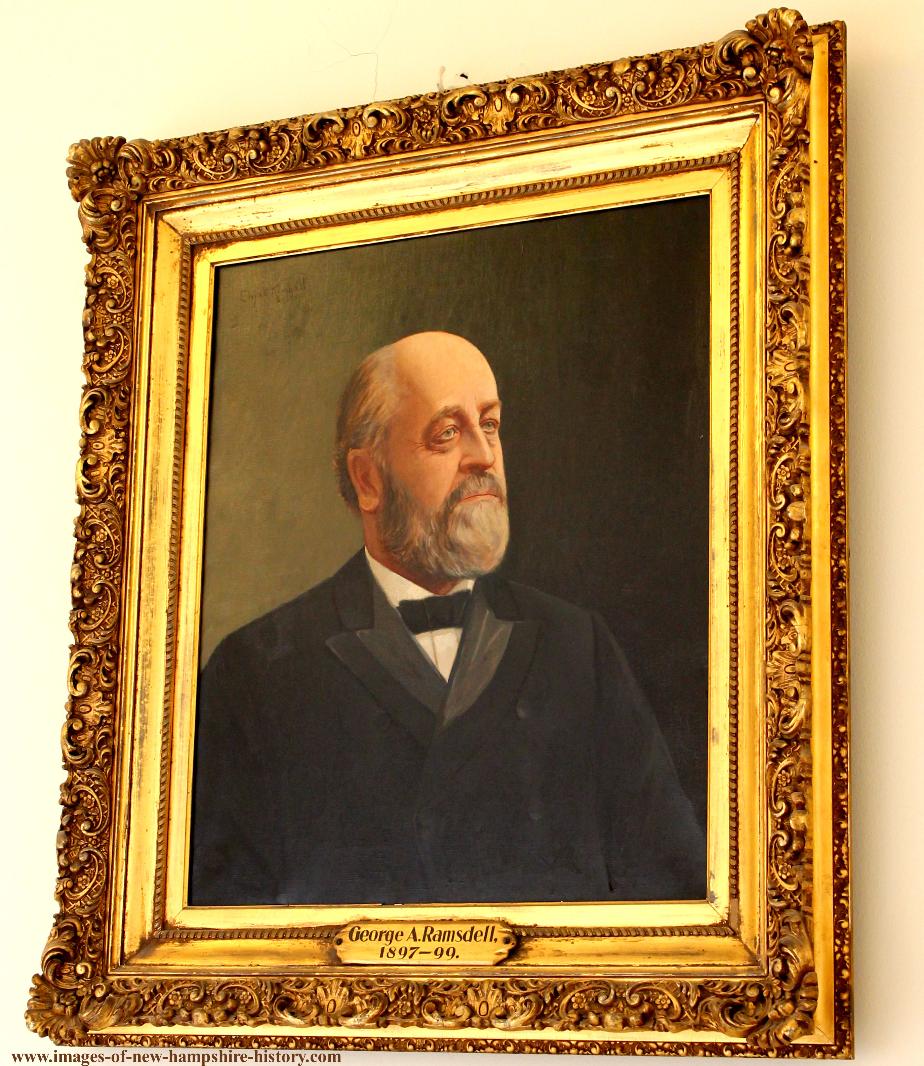
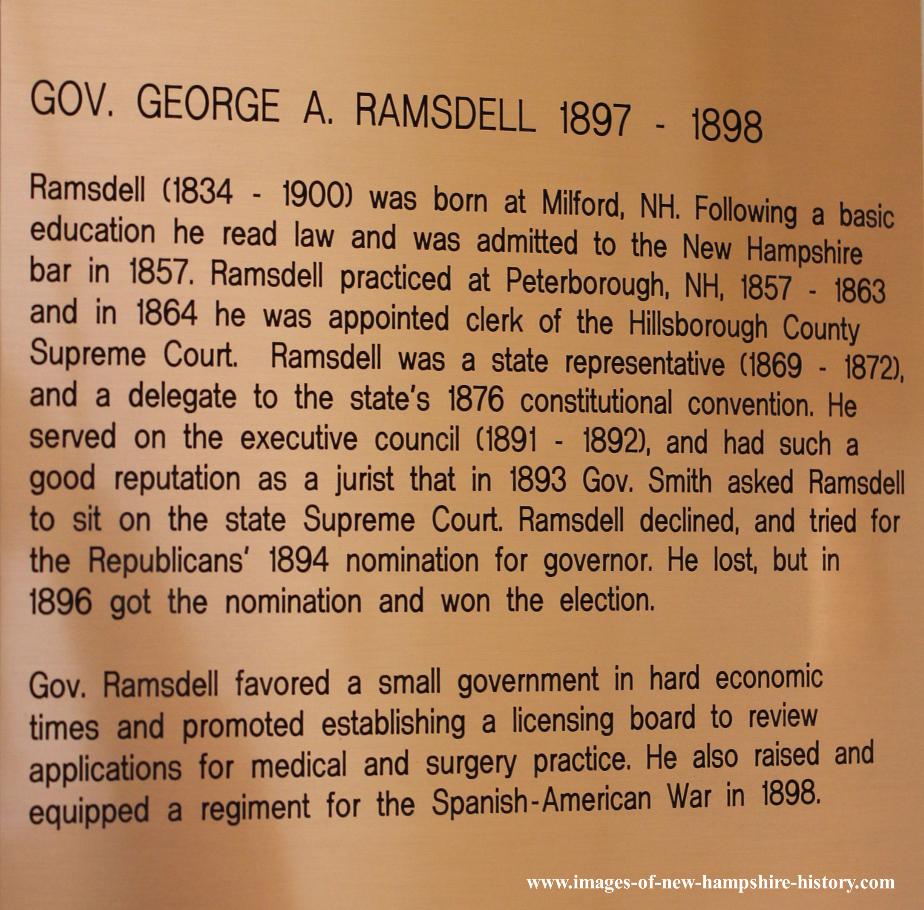
Governor Frank Rollins : 1899-1900
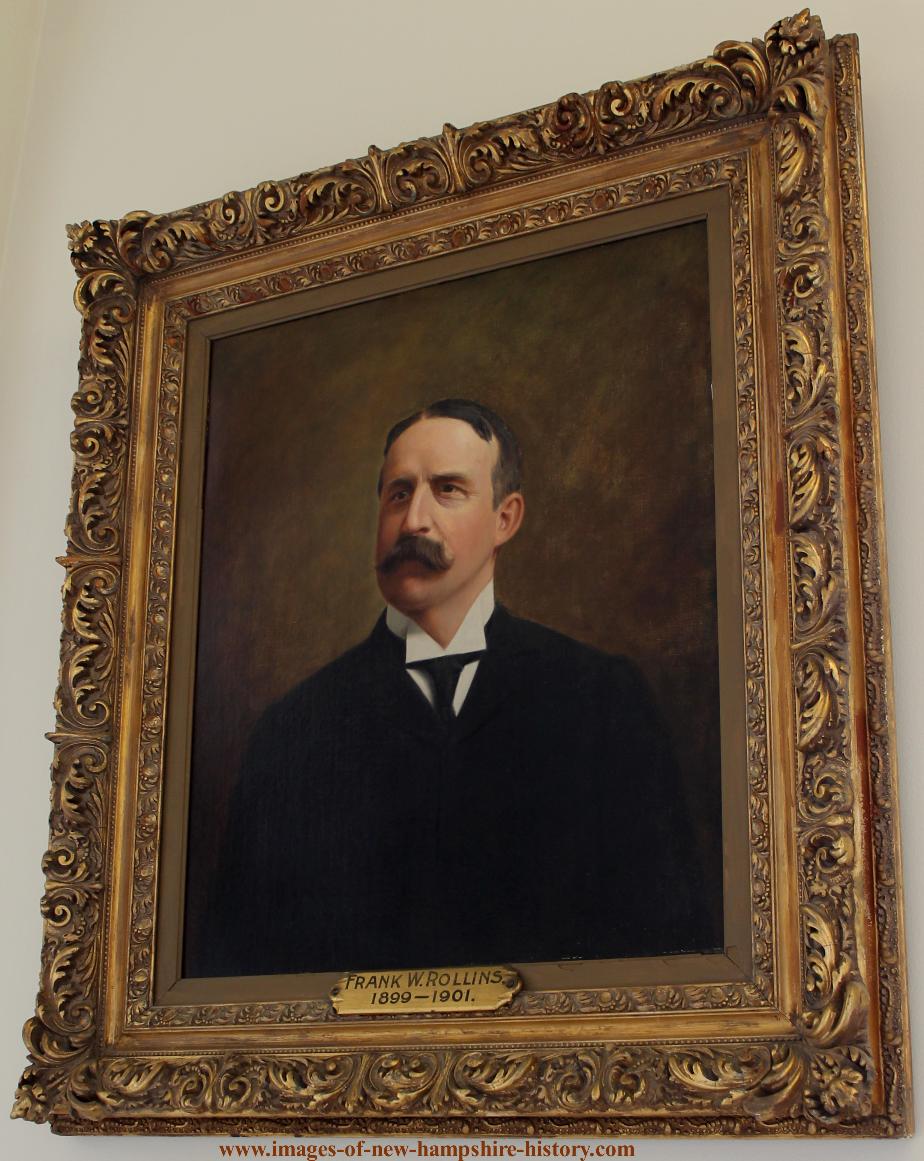
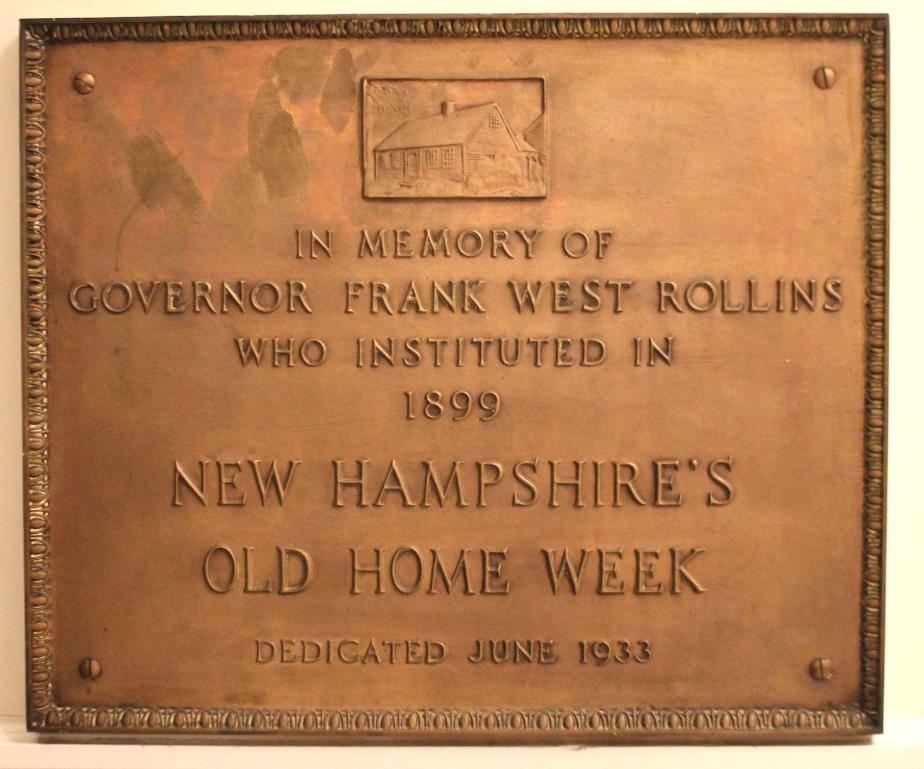
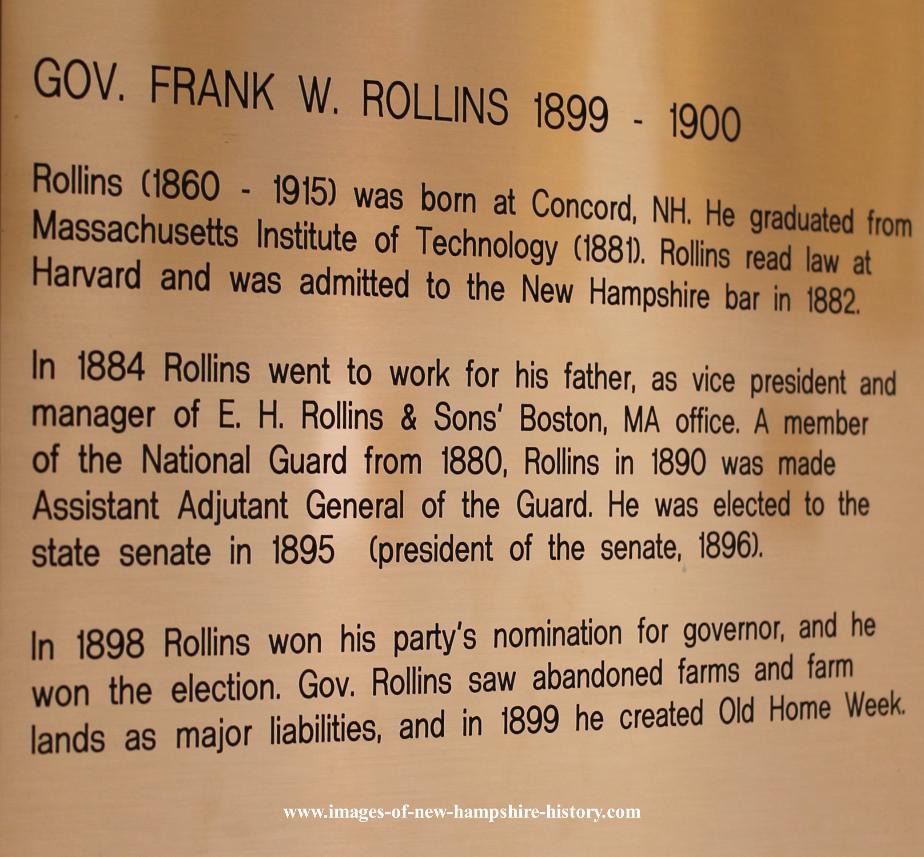
Governor Chester B Jordan 1901 - 1903
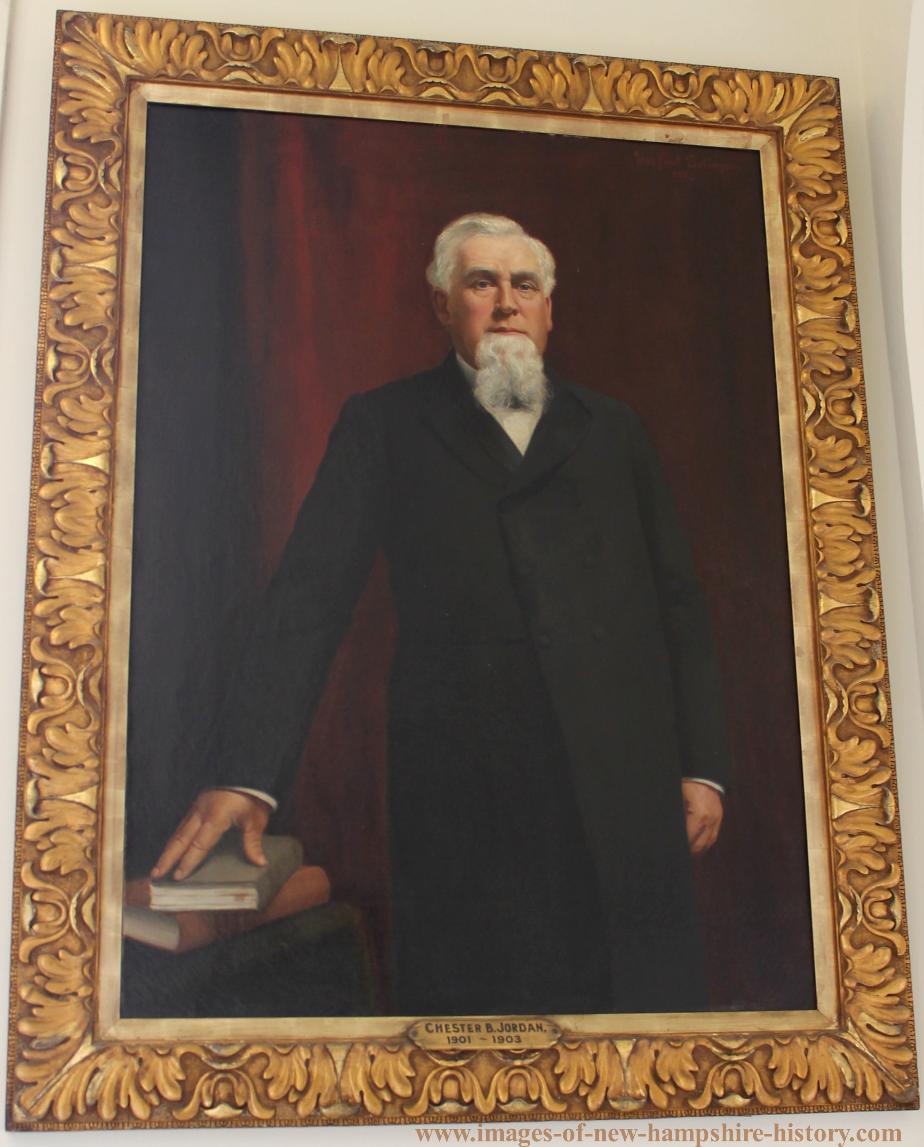
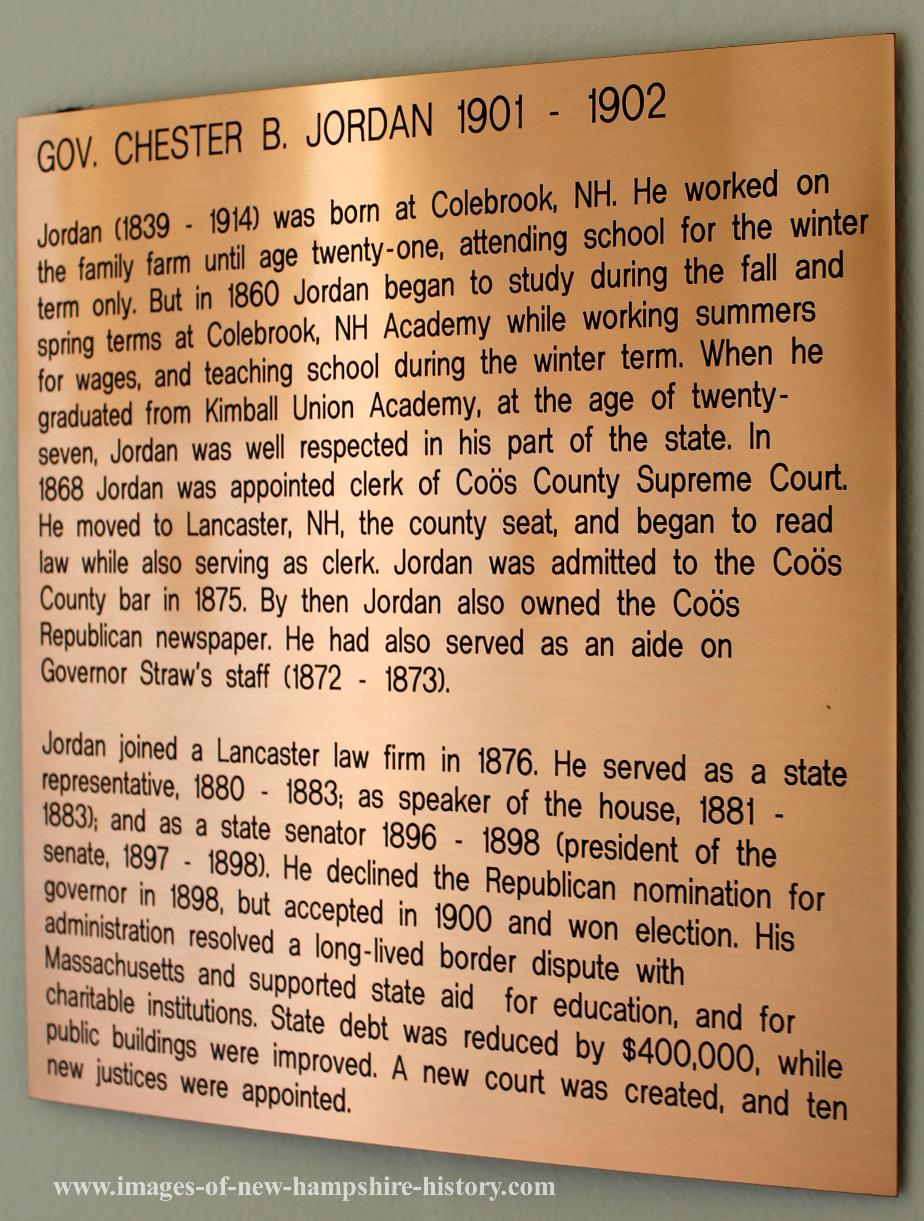
Governor Nahum Bachelder 1903 - 1904
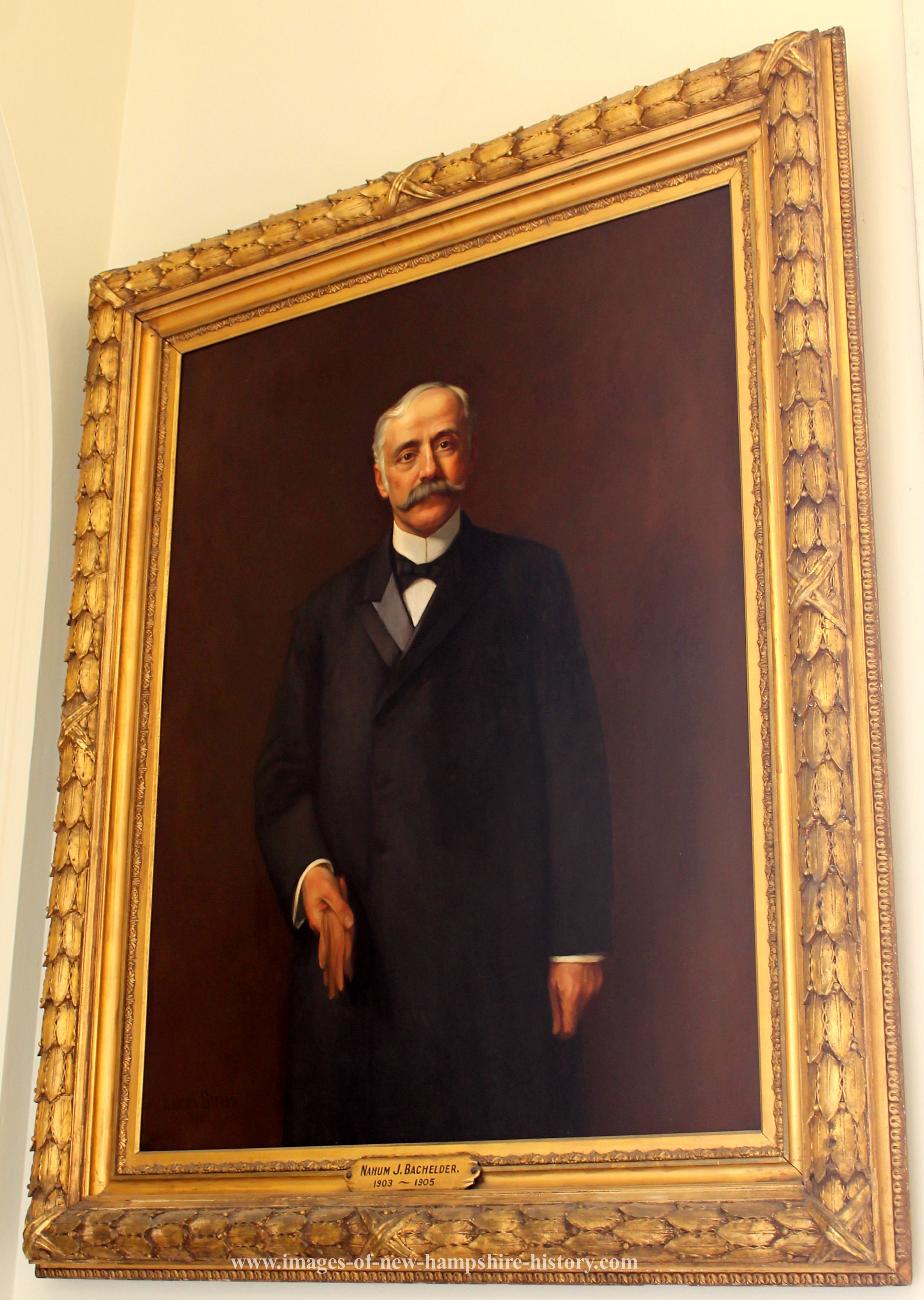
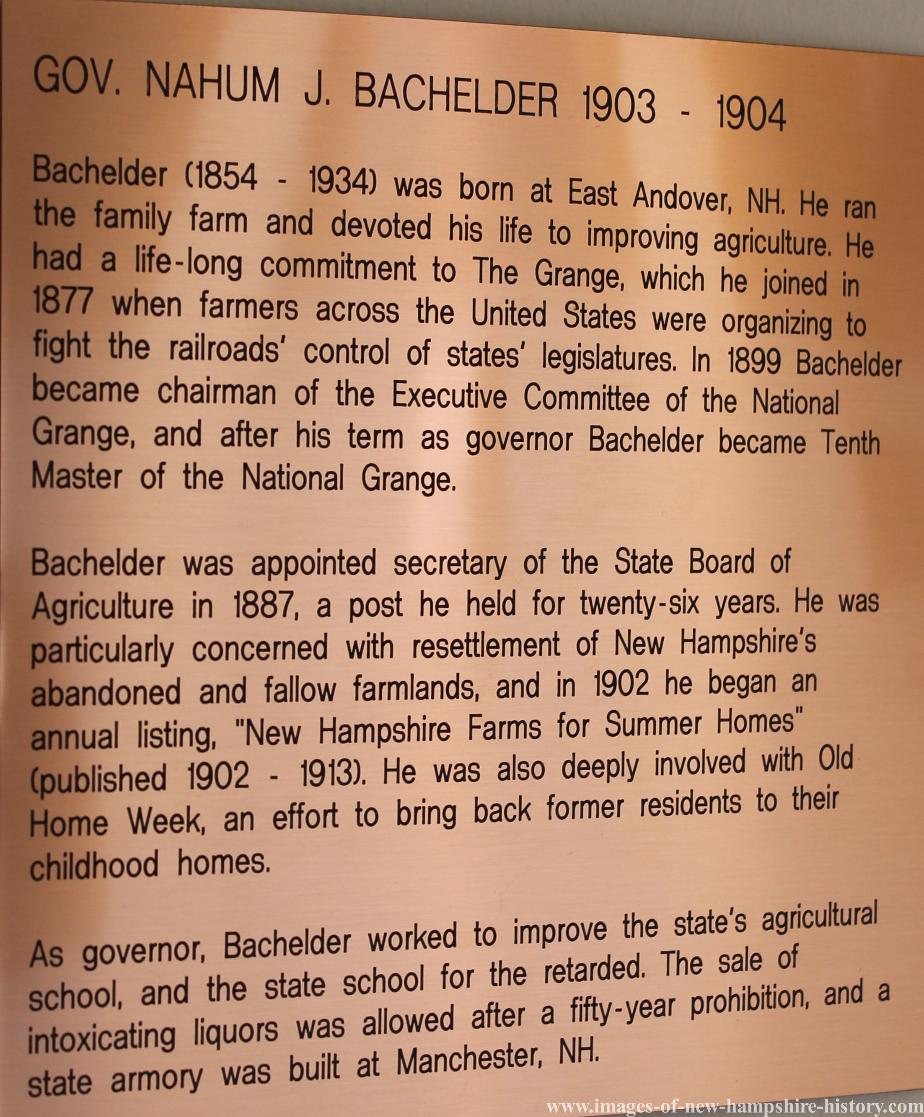
Governor John McLane 1905 - 1906
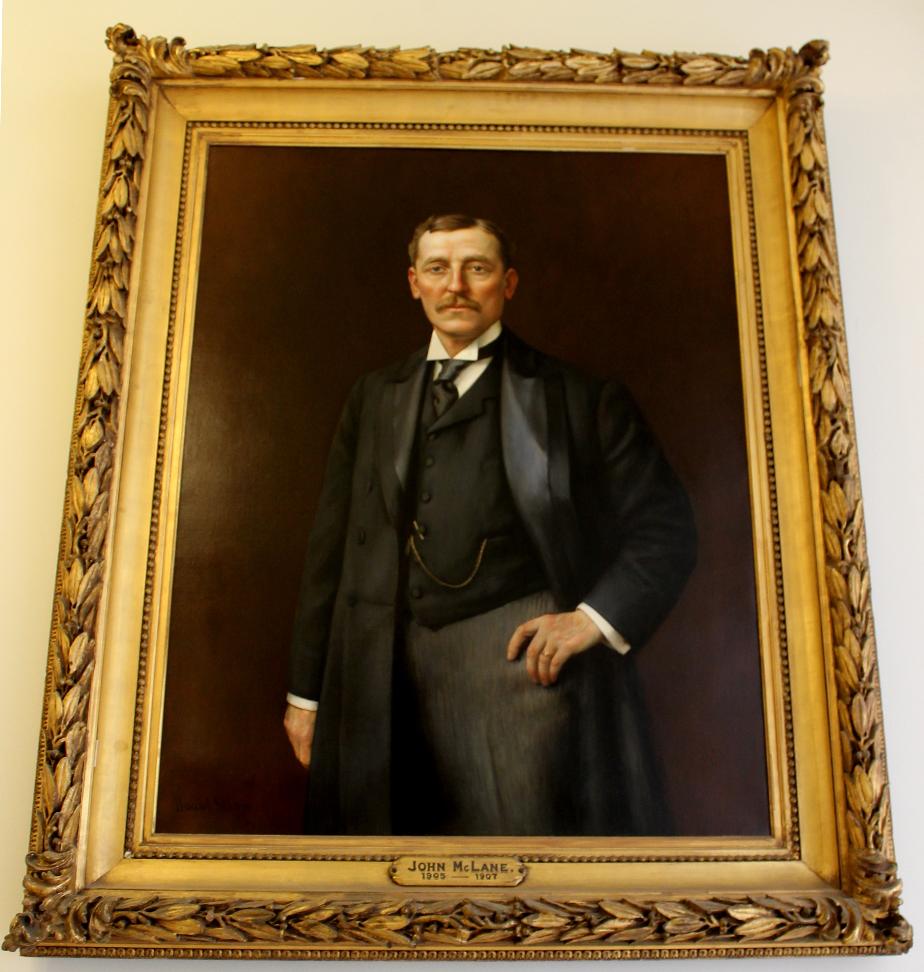
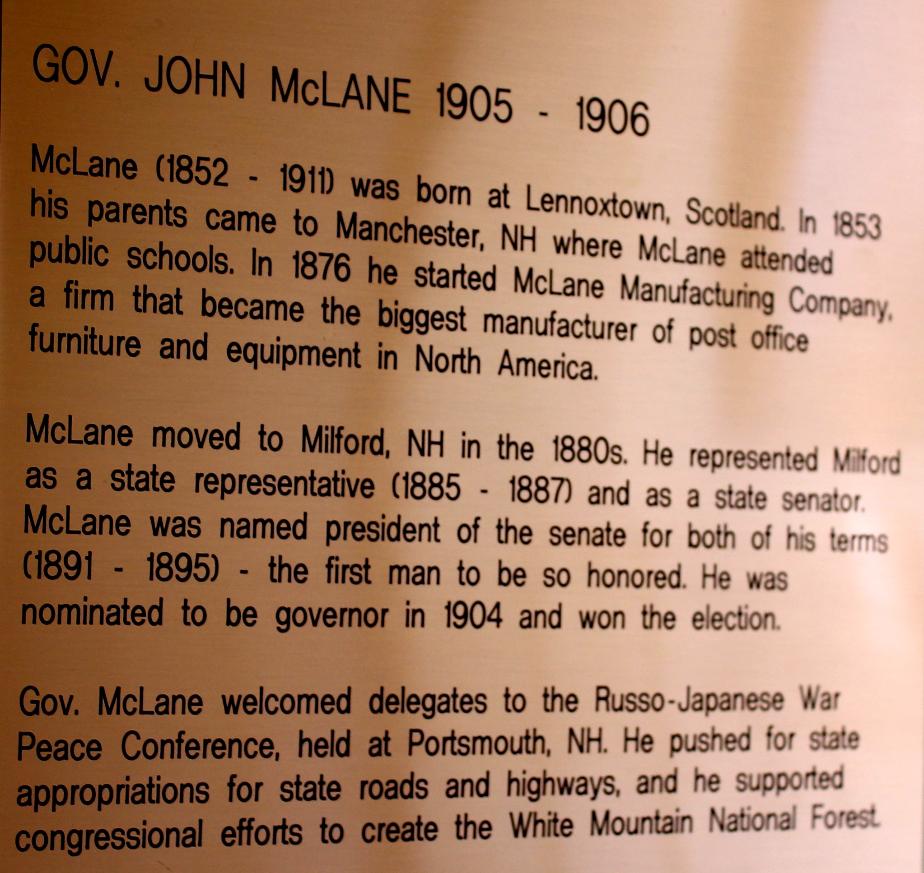
Governor Charles Floyd 1908 - 1909
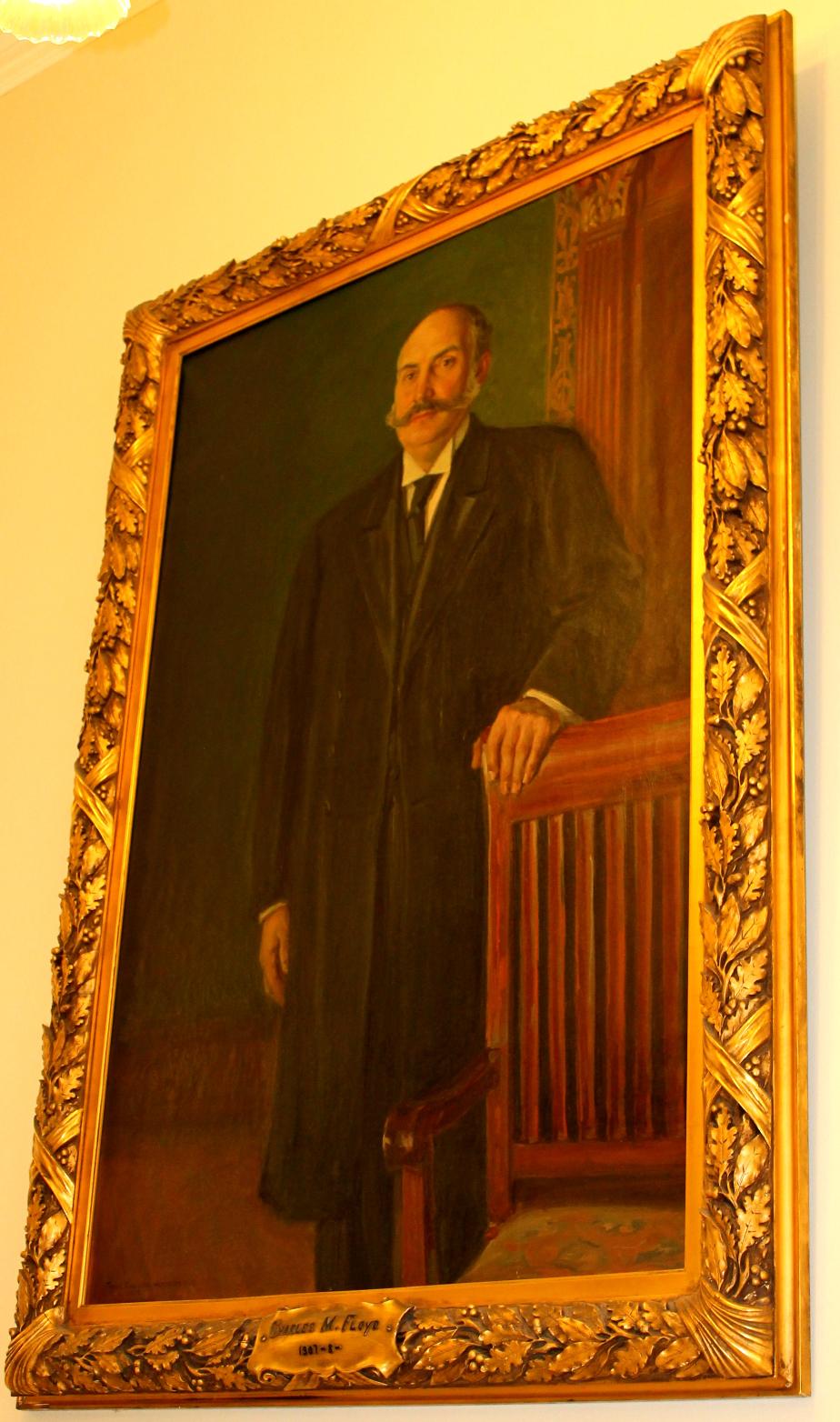
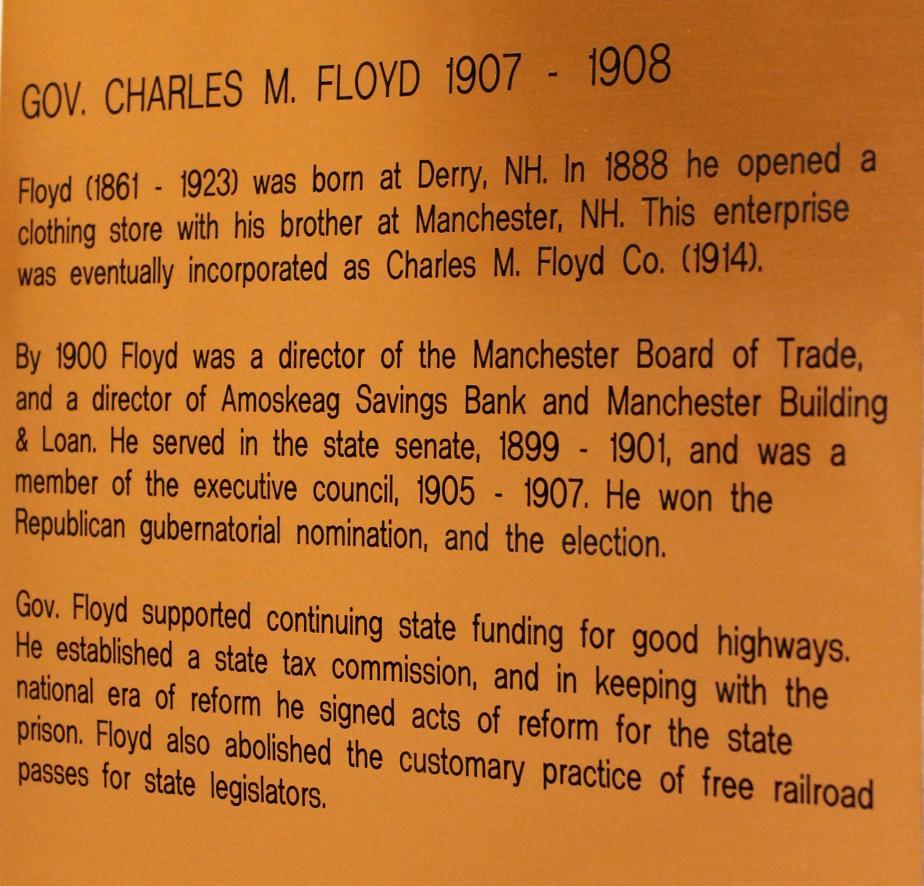
Henry B Quinby 1909-1910
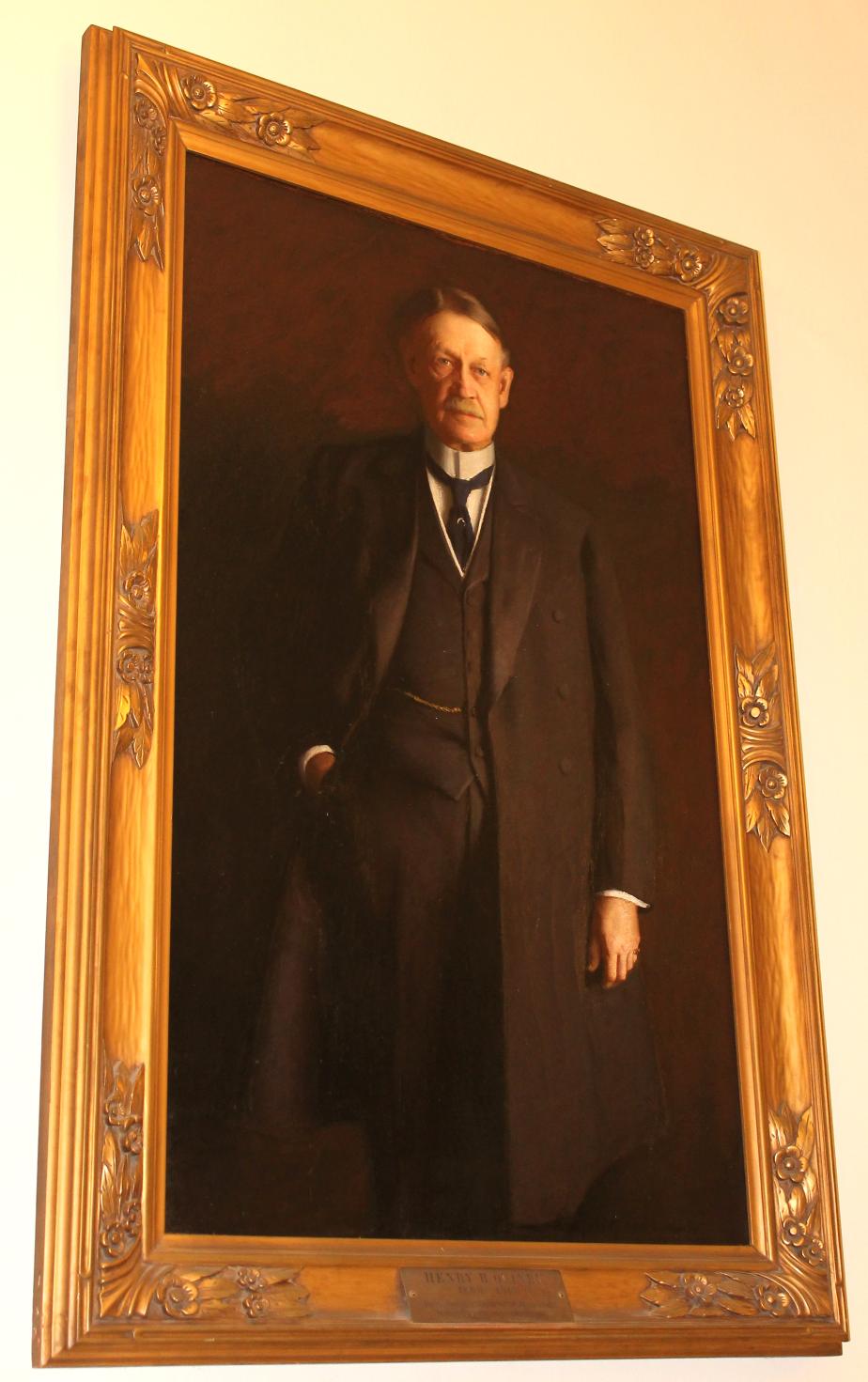
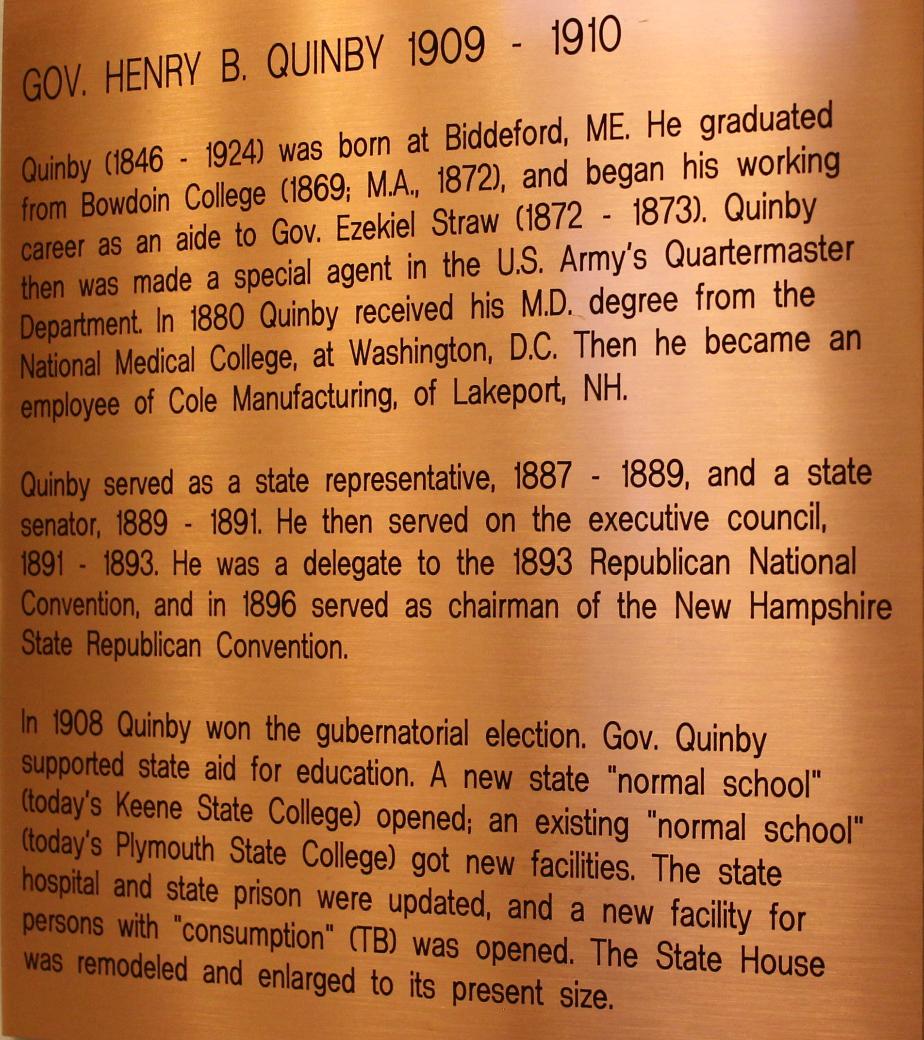
Governor Robert P. Bass (1911 - 1912)
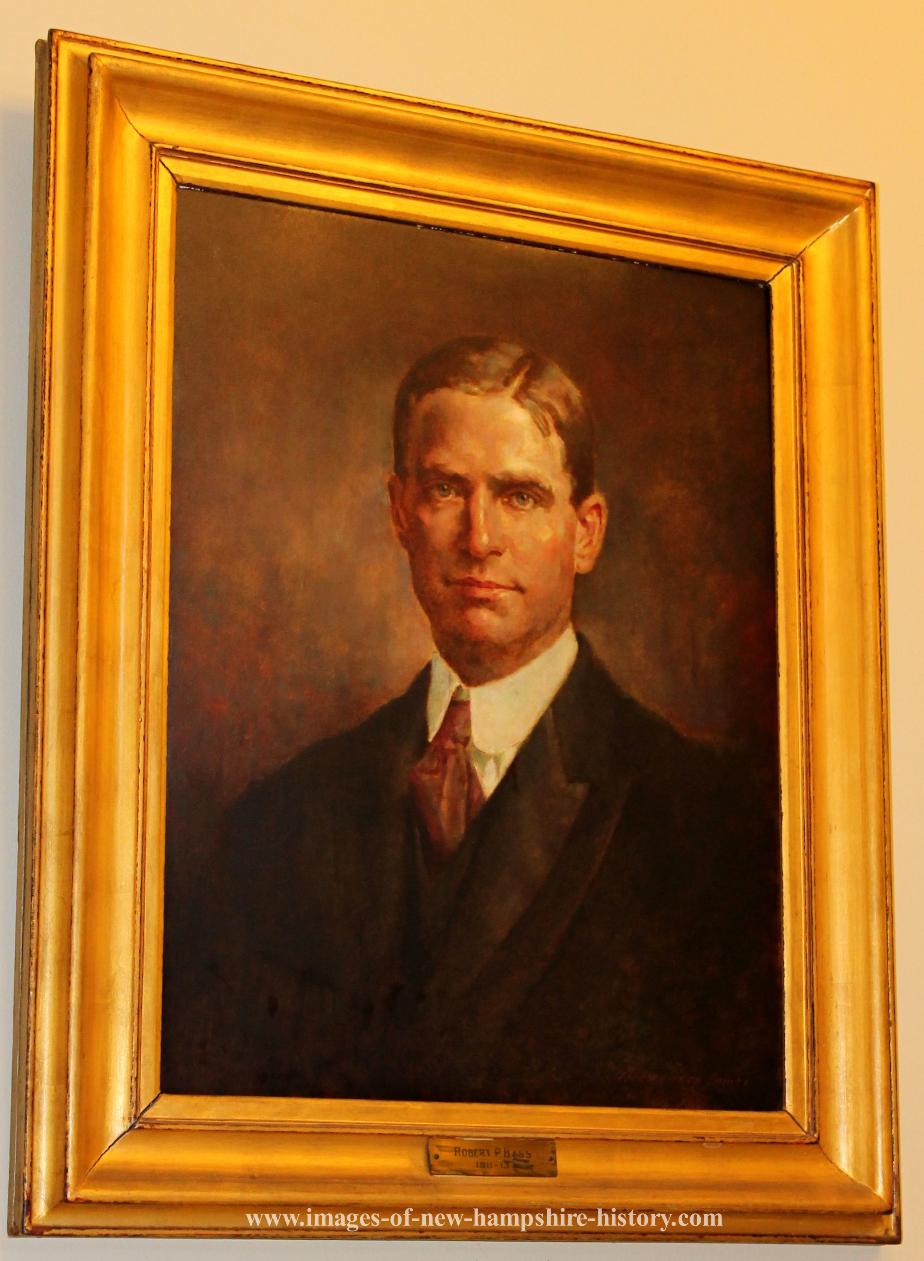
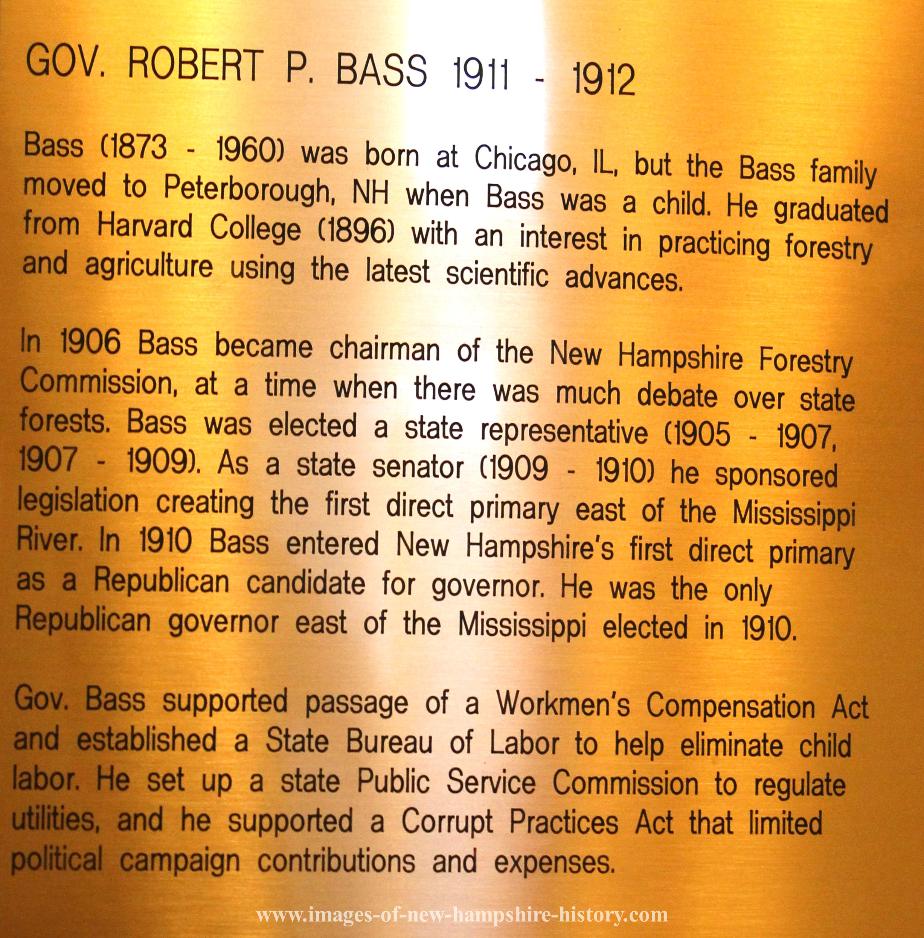
Governor Samuel D. Felker 1913-1914
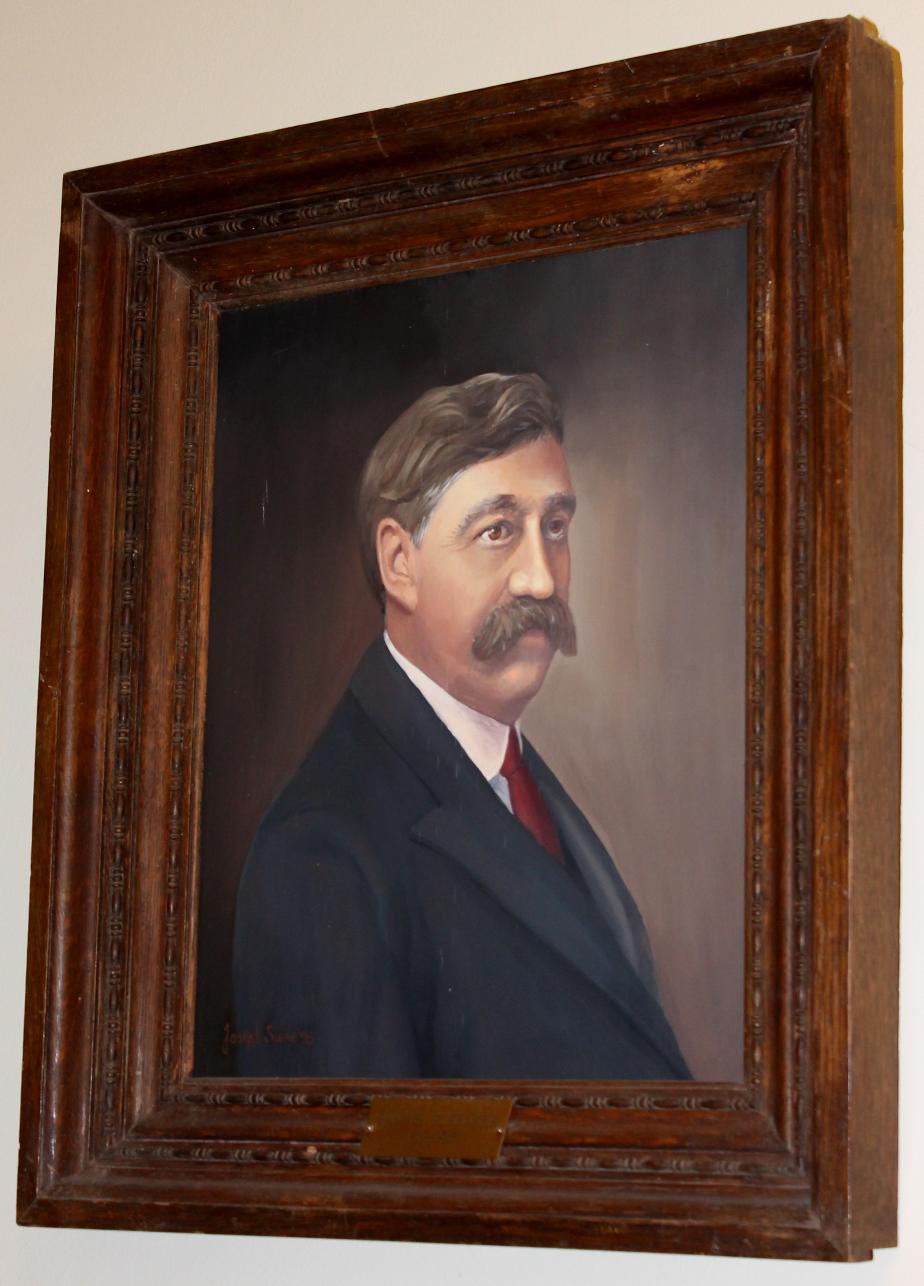
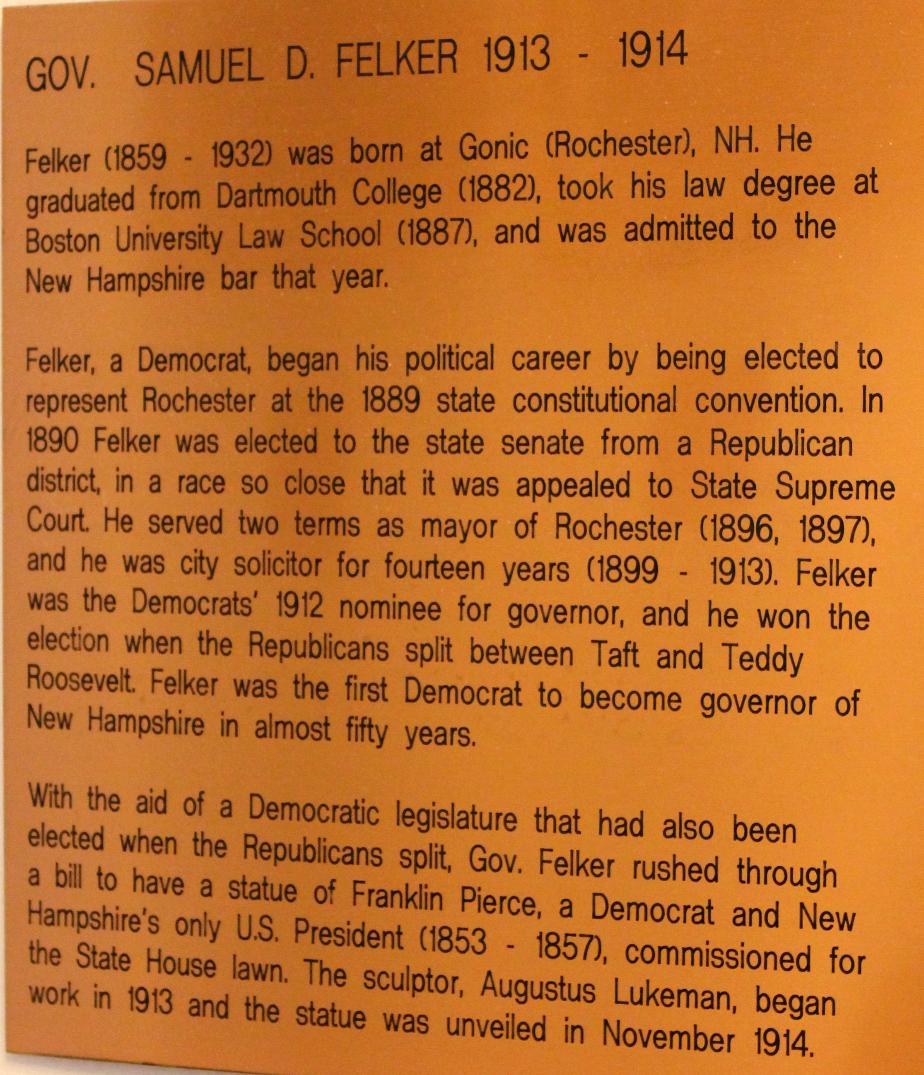
Governor Rolland H.Spaulding (1915 - 1916)
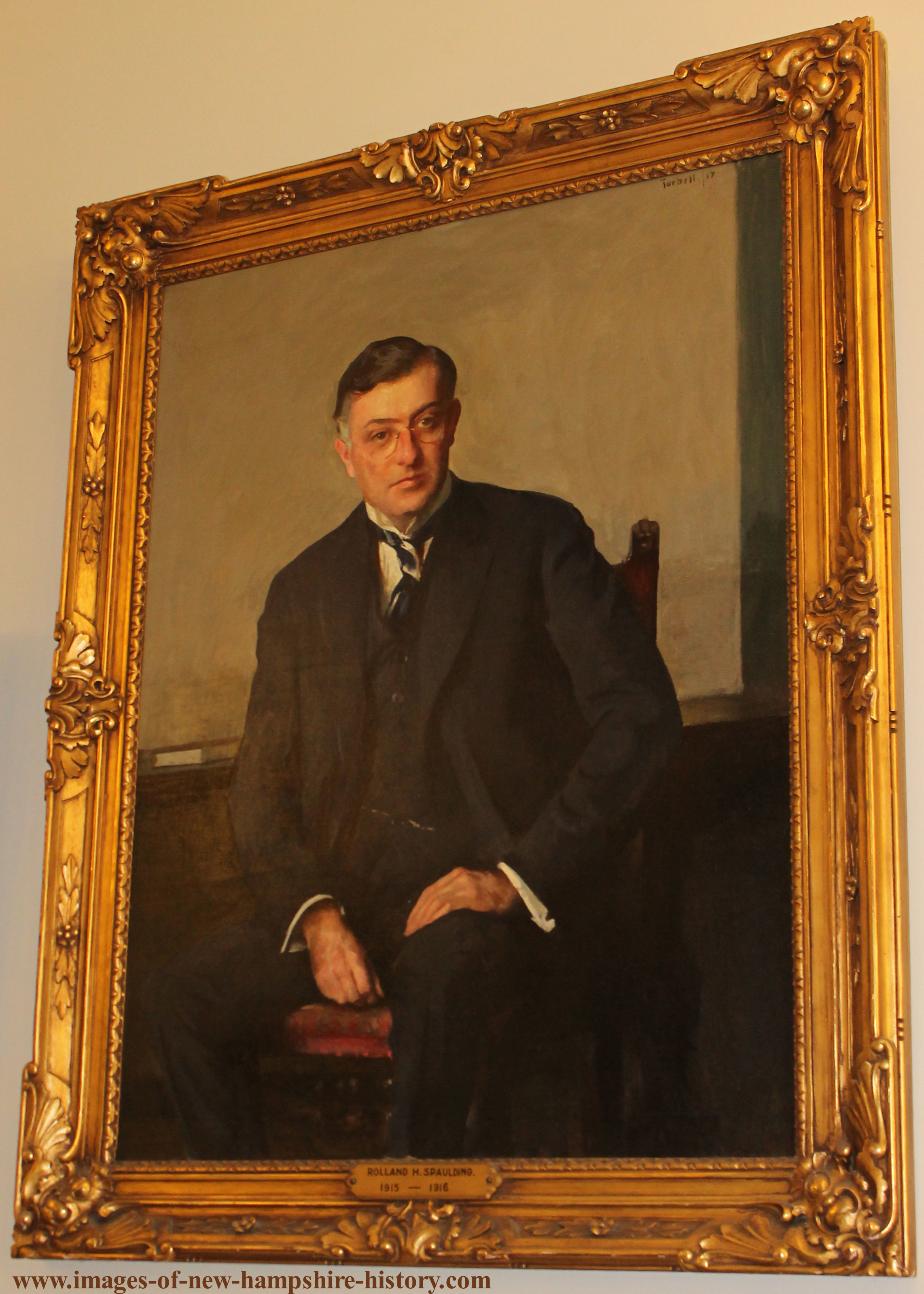
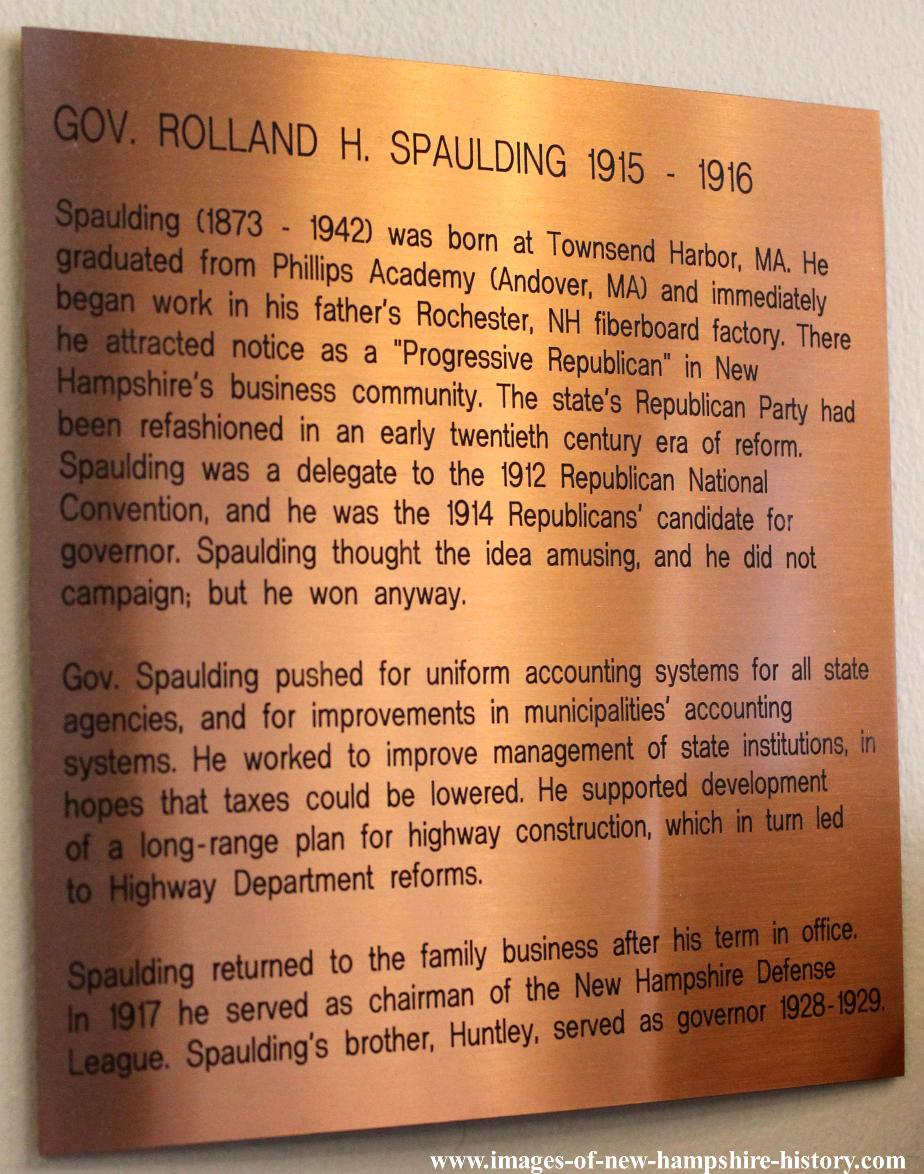
Governor Henry W. Keyes - 1917 - 1918
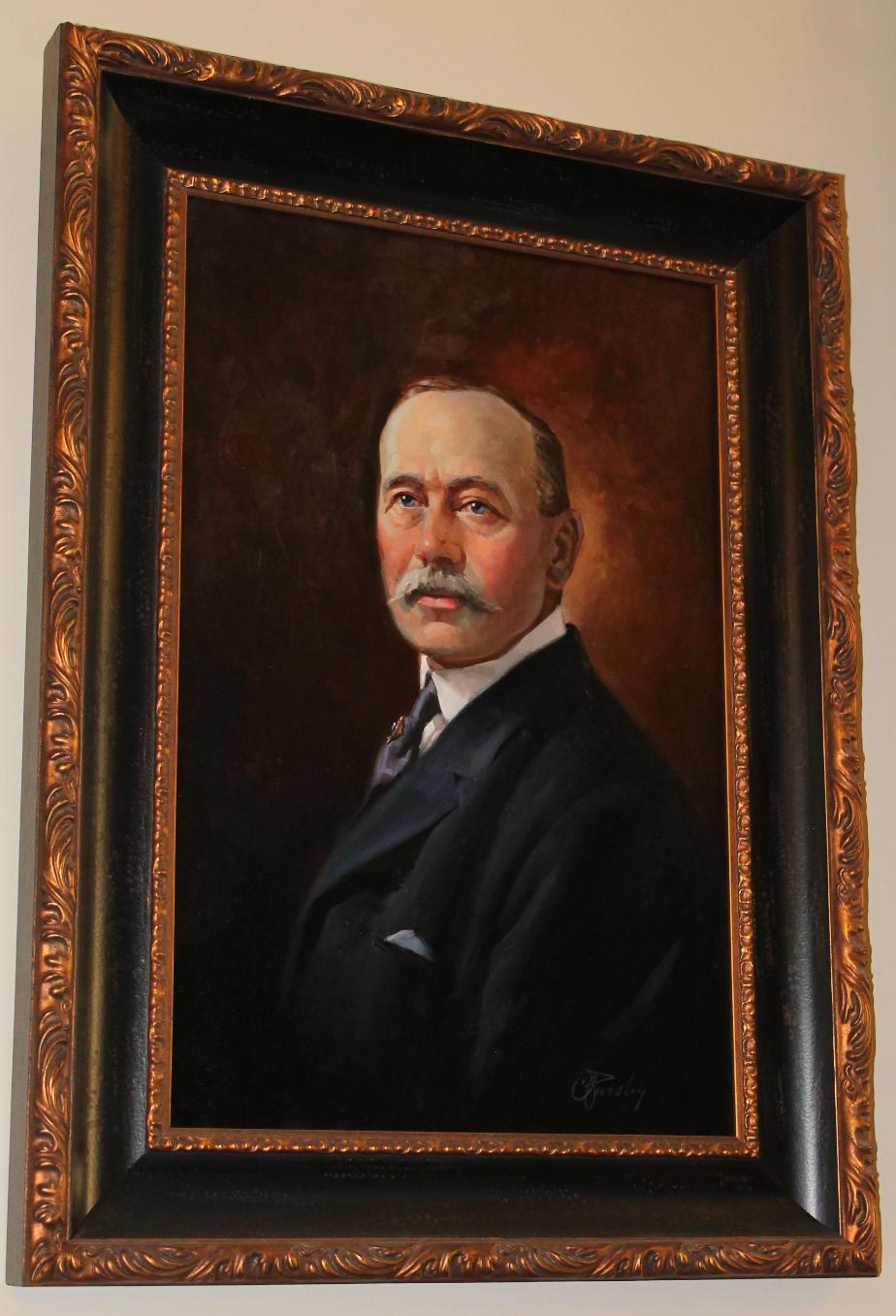
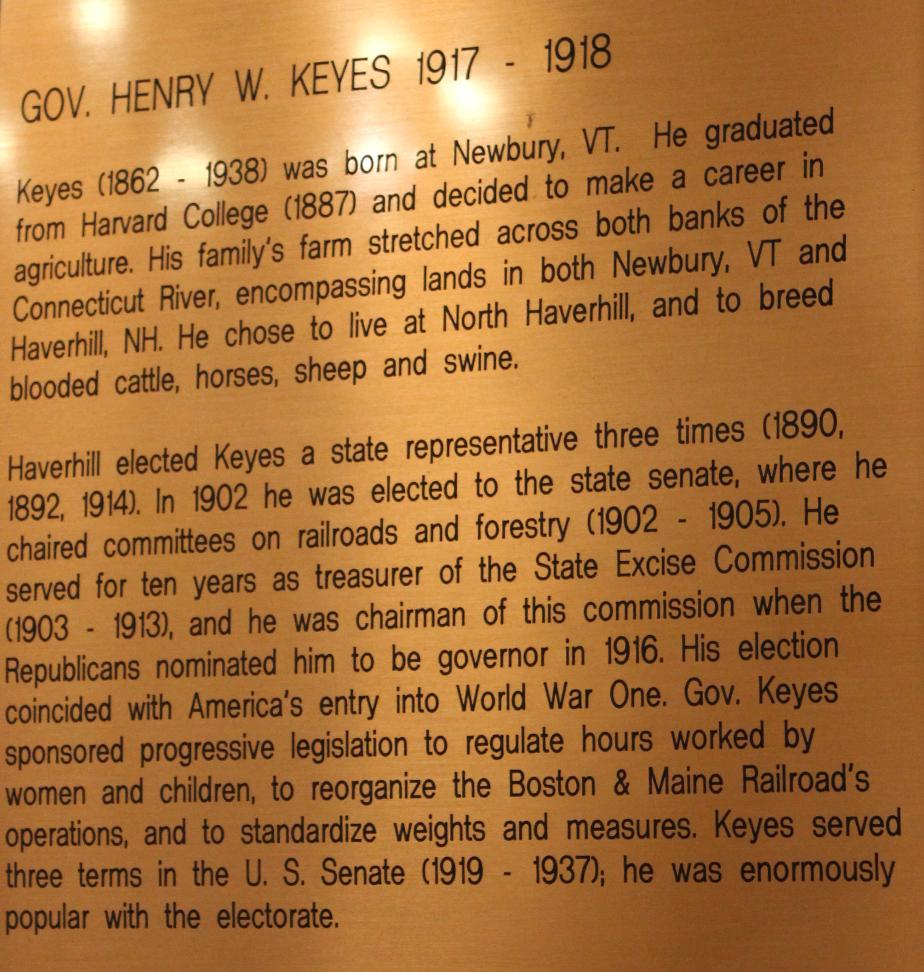
Governor John H. Bartlett 1920-1921
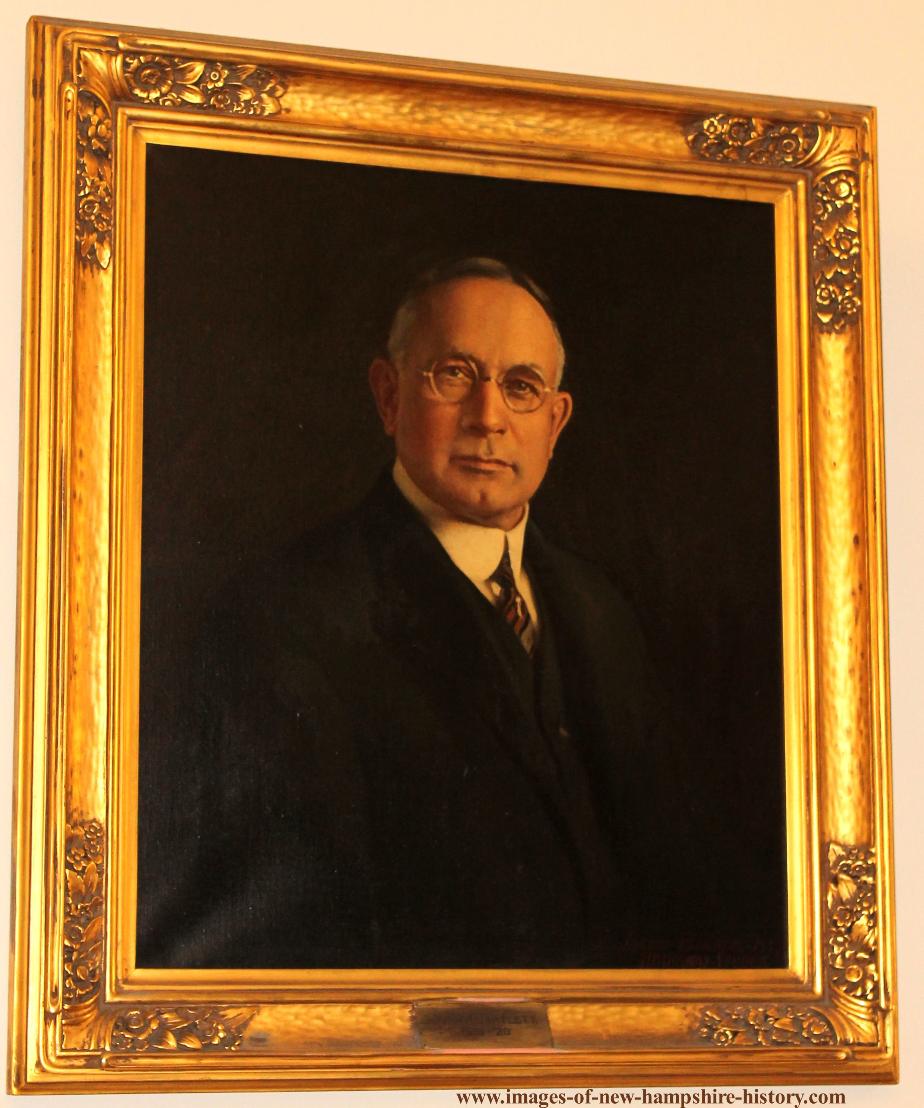
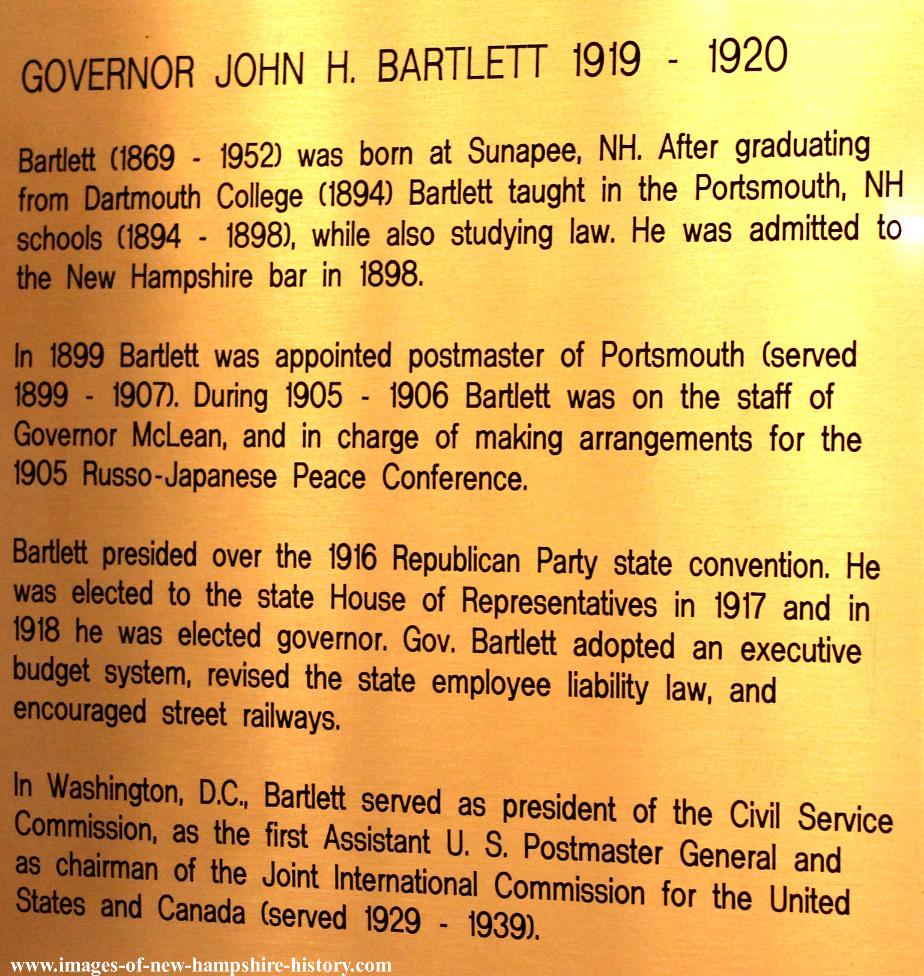
Governor Albert O Brown 1922-1923
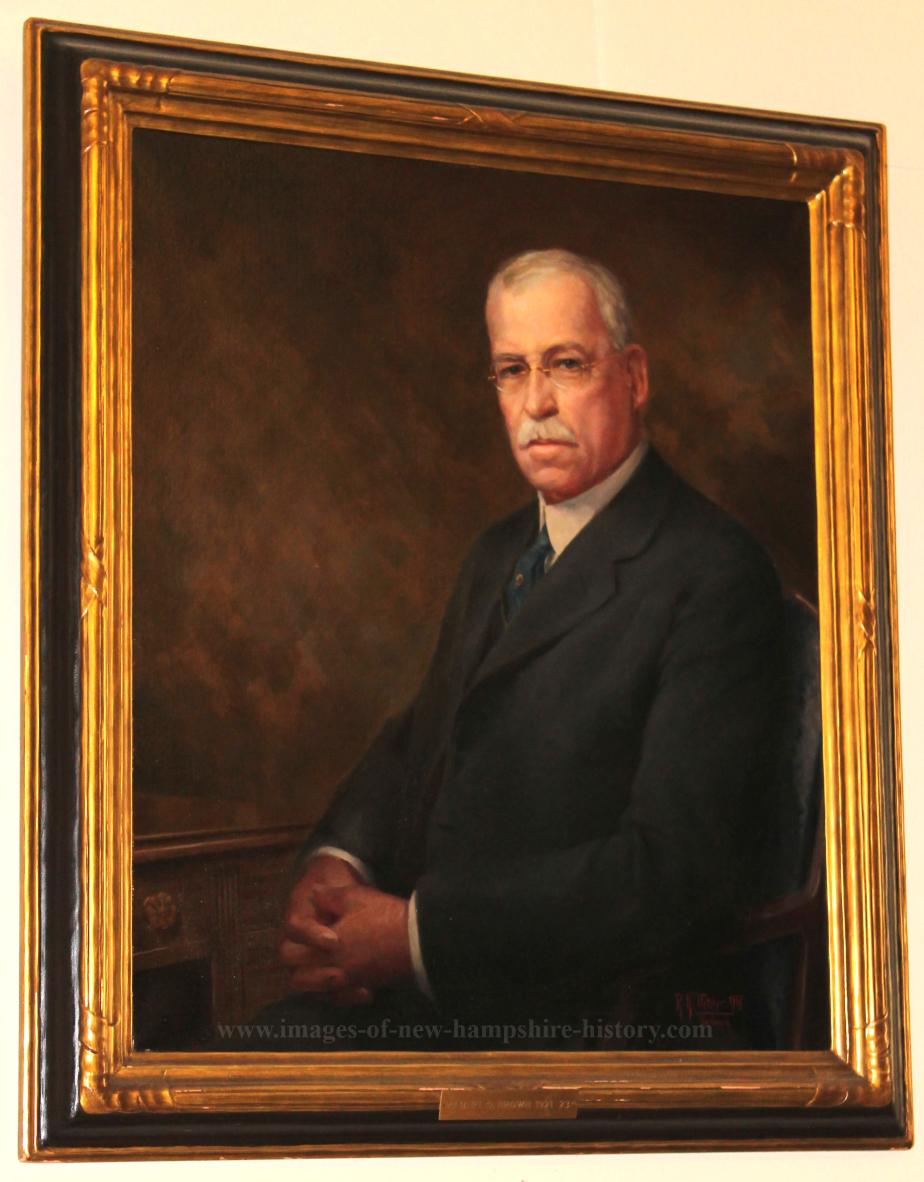
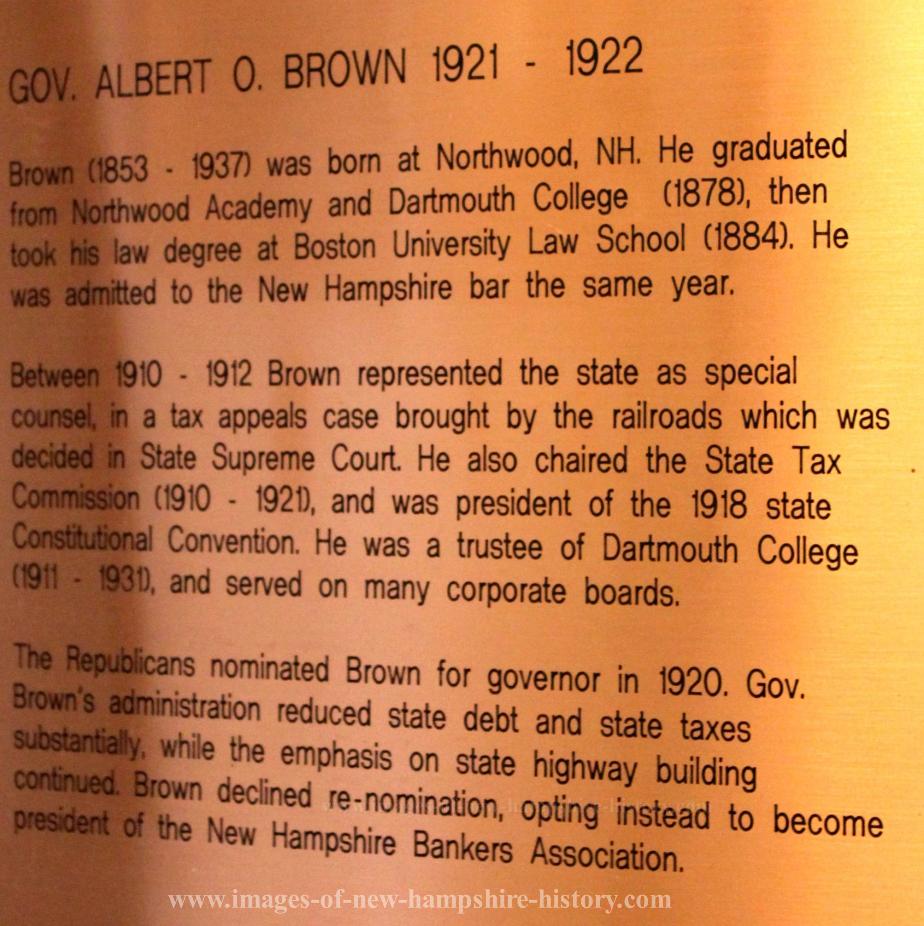
Governor Fred H Brown 1923 - 1925
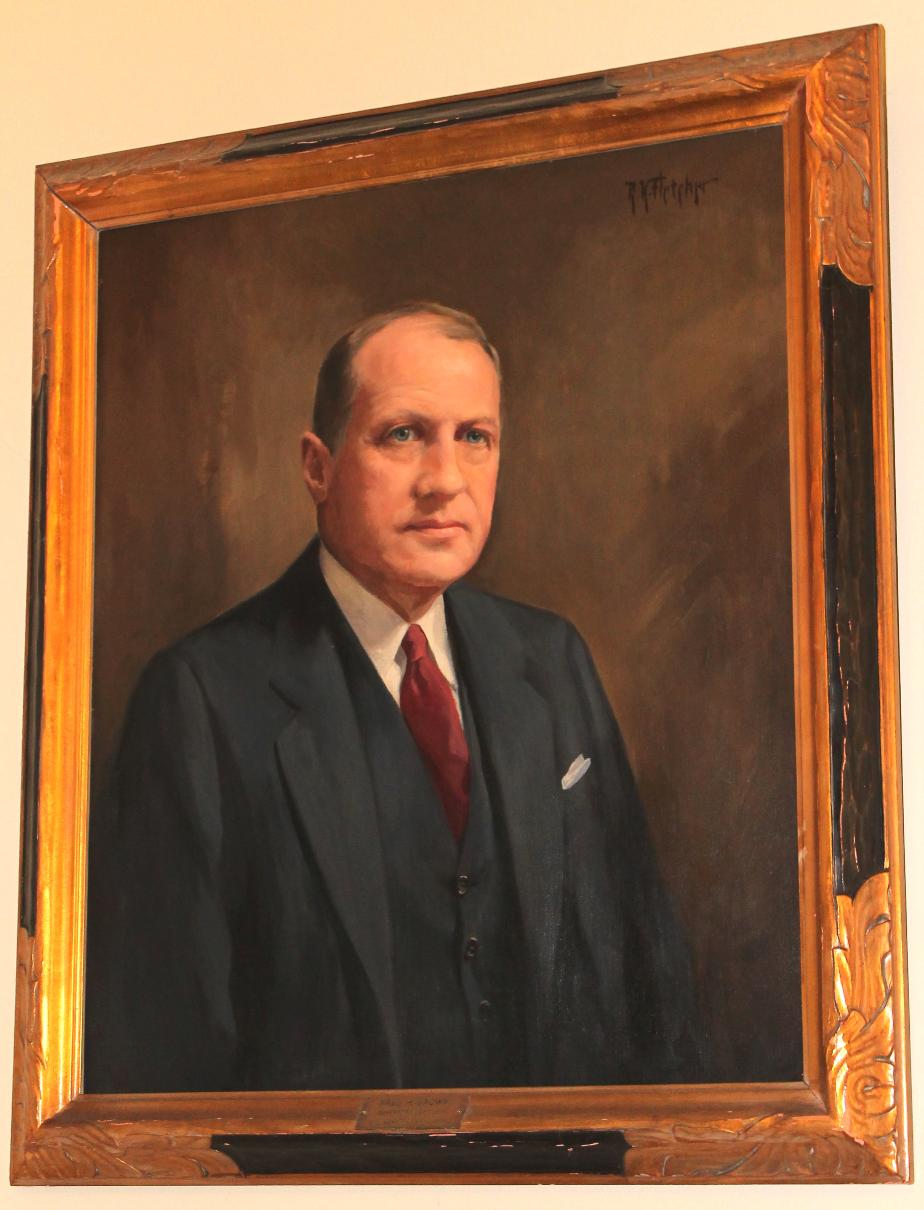
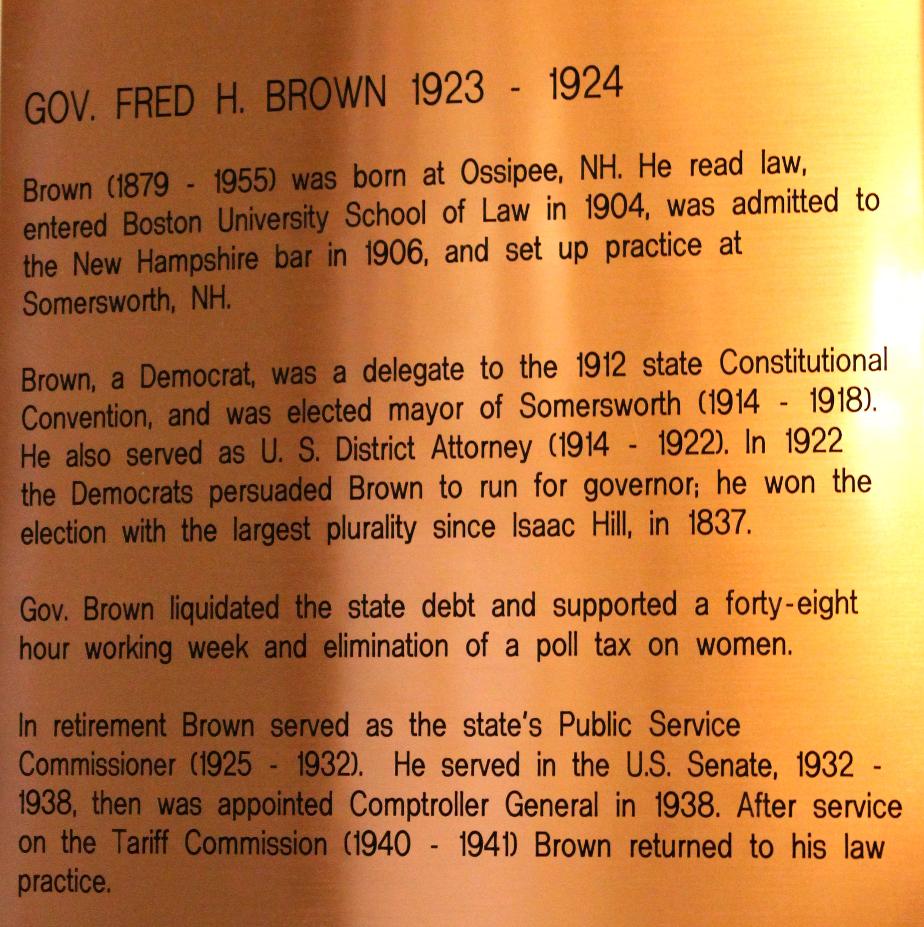
Governor John C. Winant 1925 - 1927 & 1931 - 1935
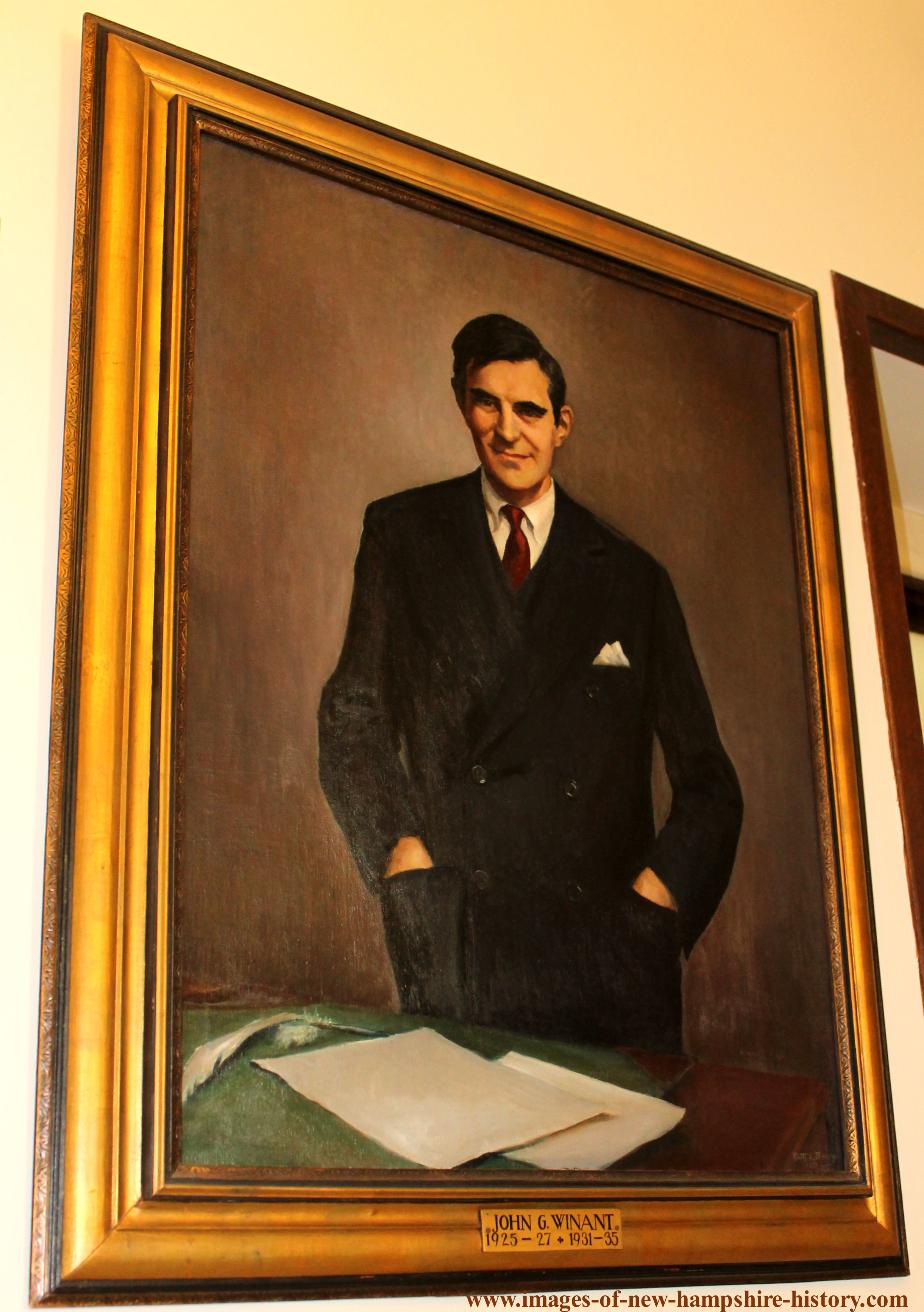
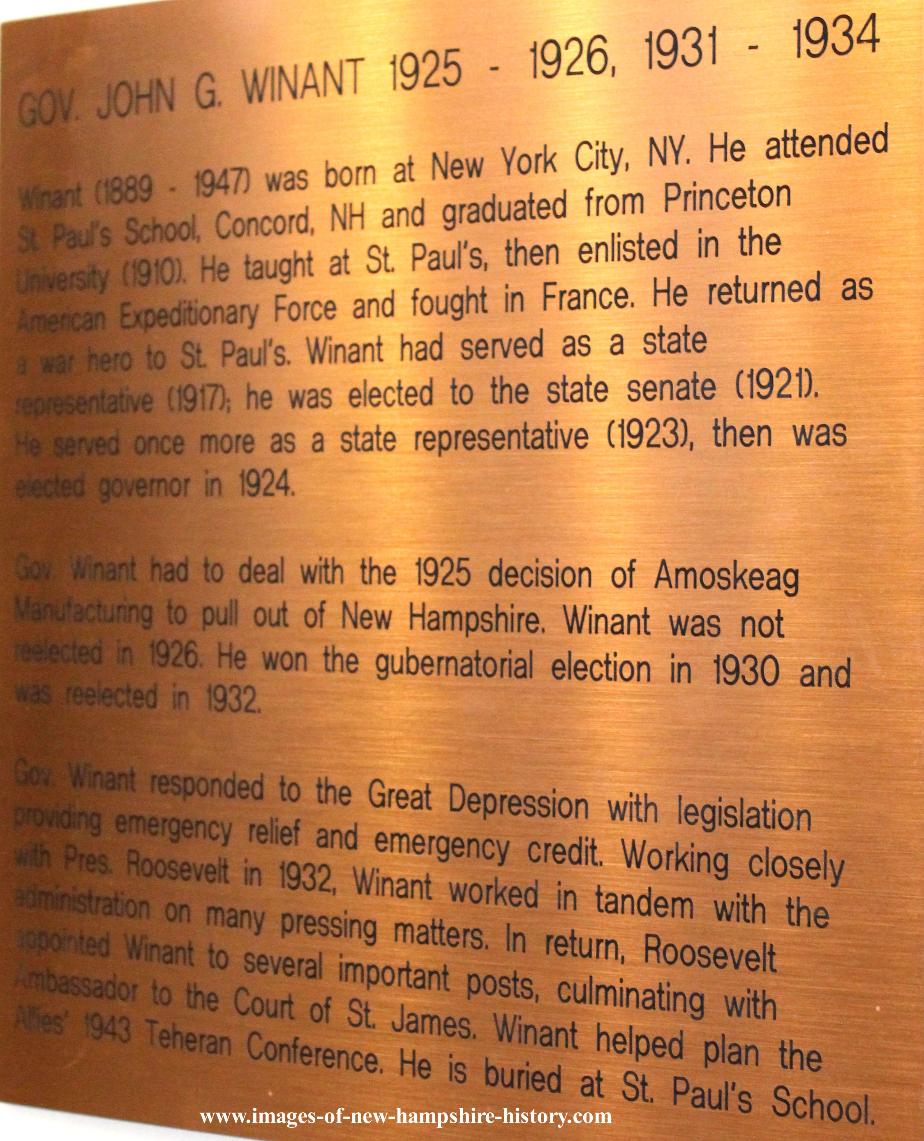
Governor Huntley Spaulding : 1927 - 1928
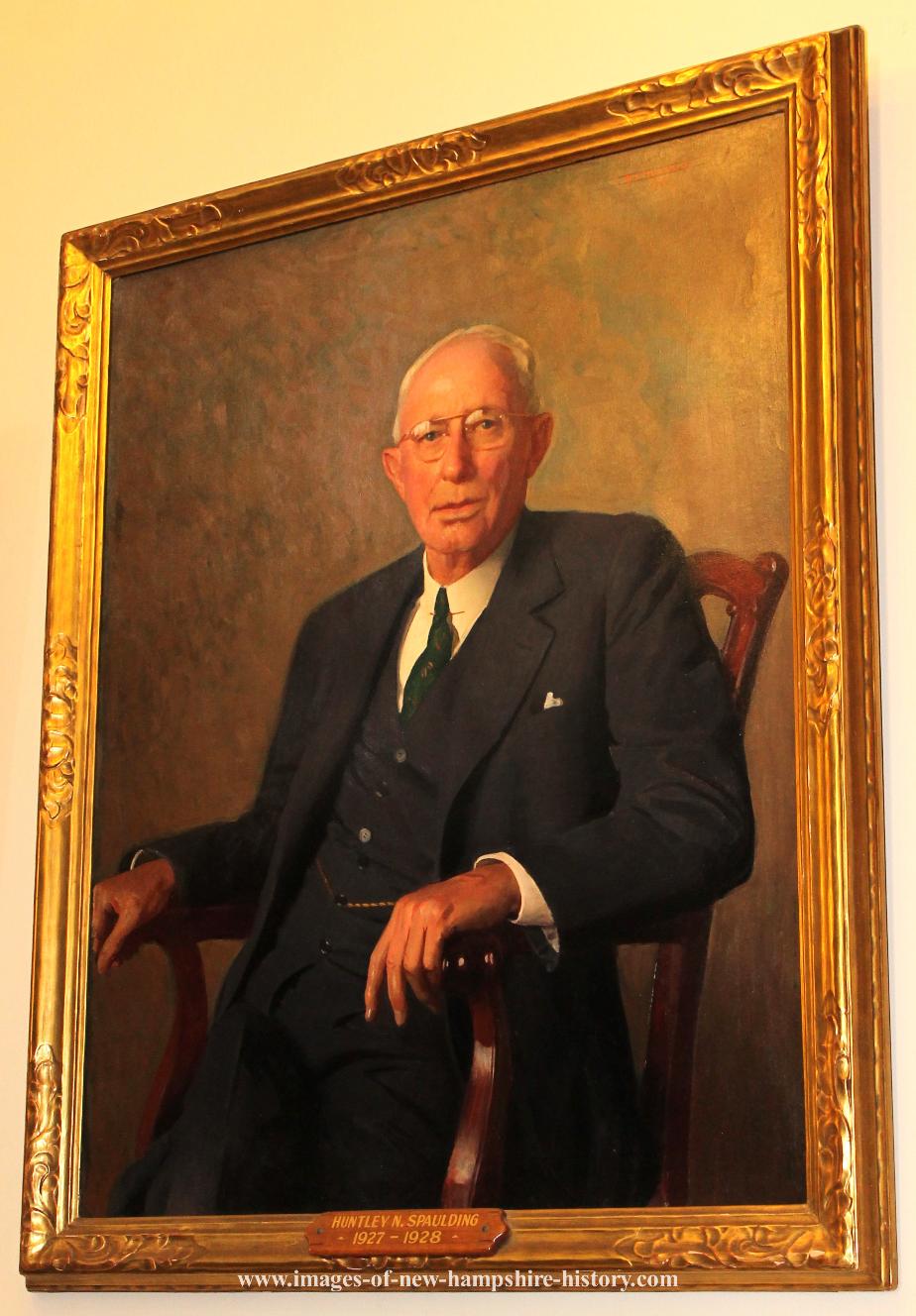
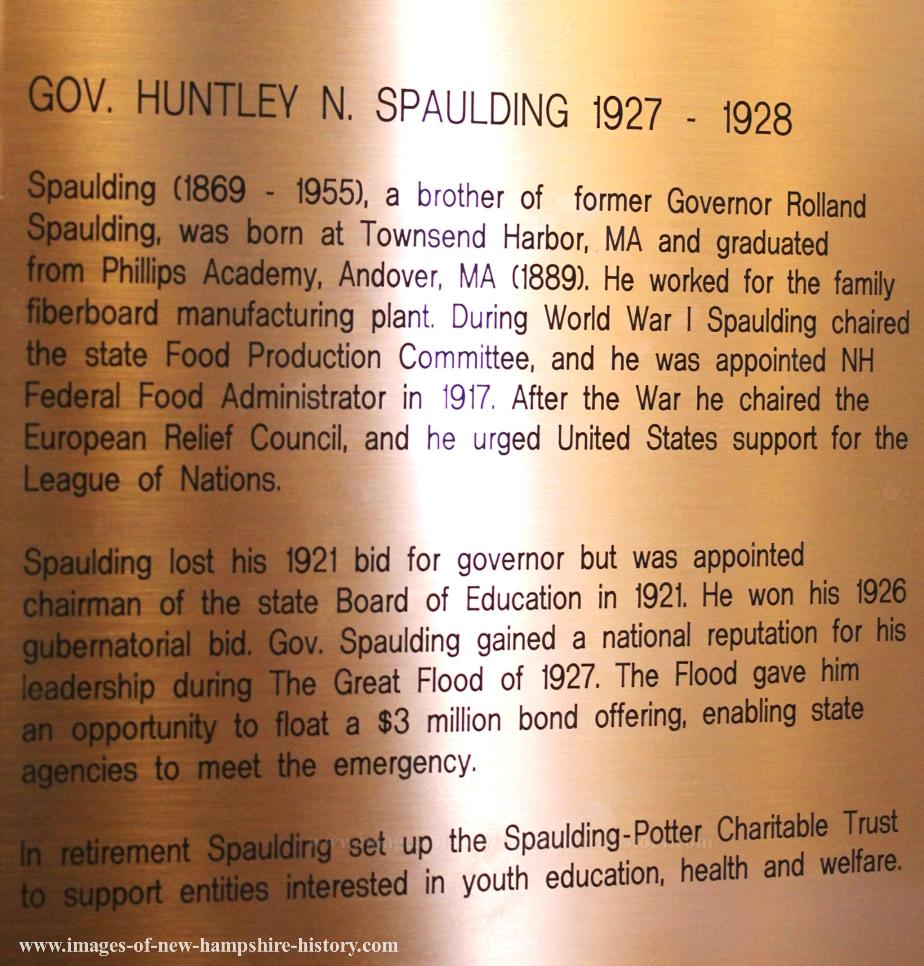
Governor Charles W Tobey 1929 - 1931
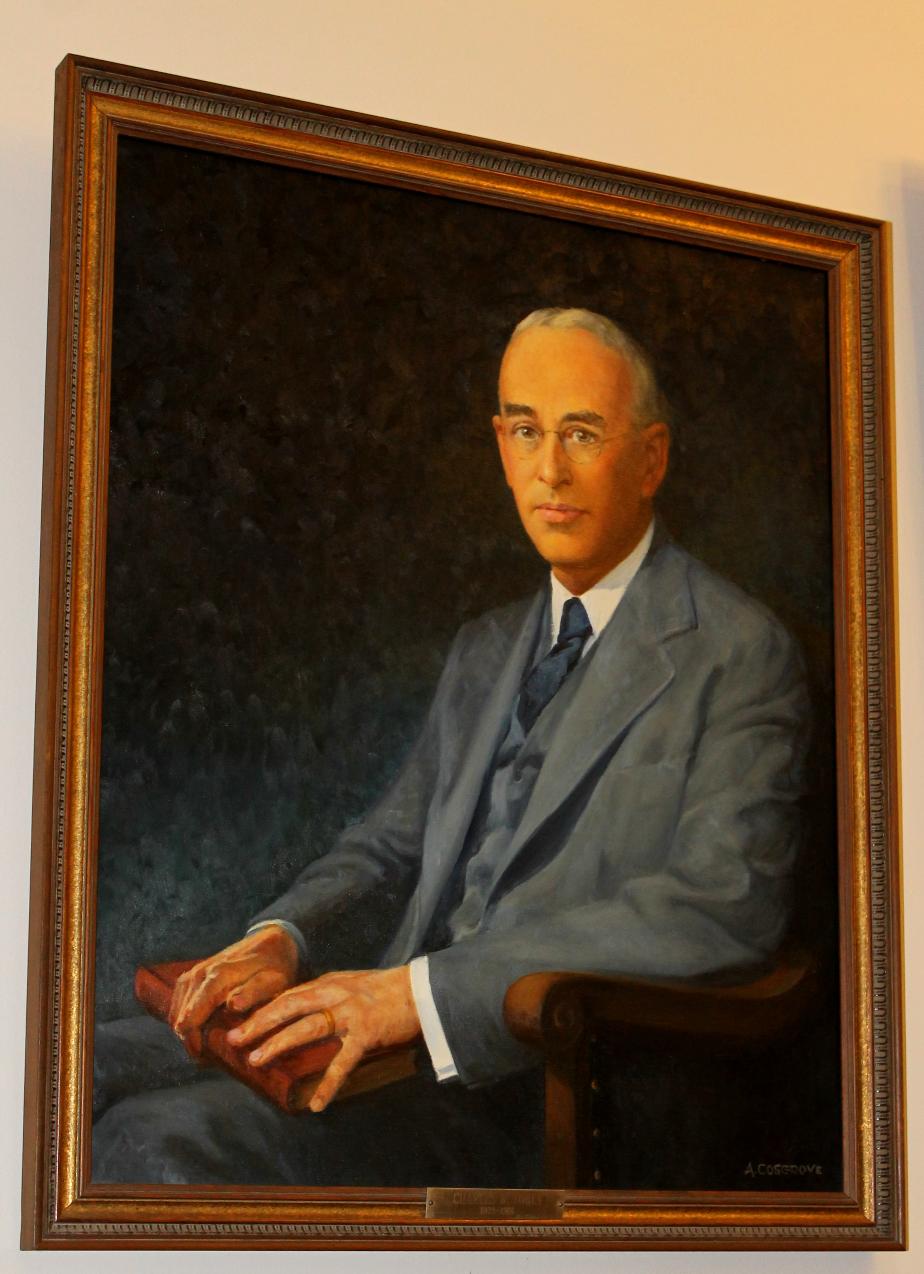
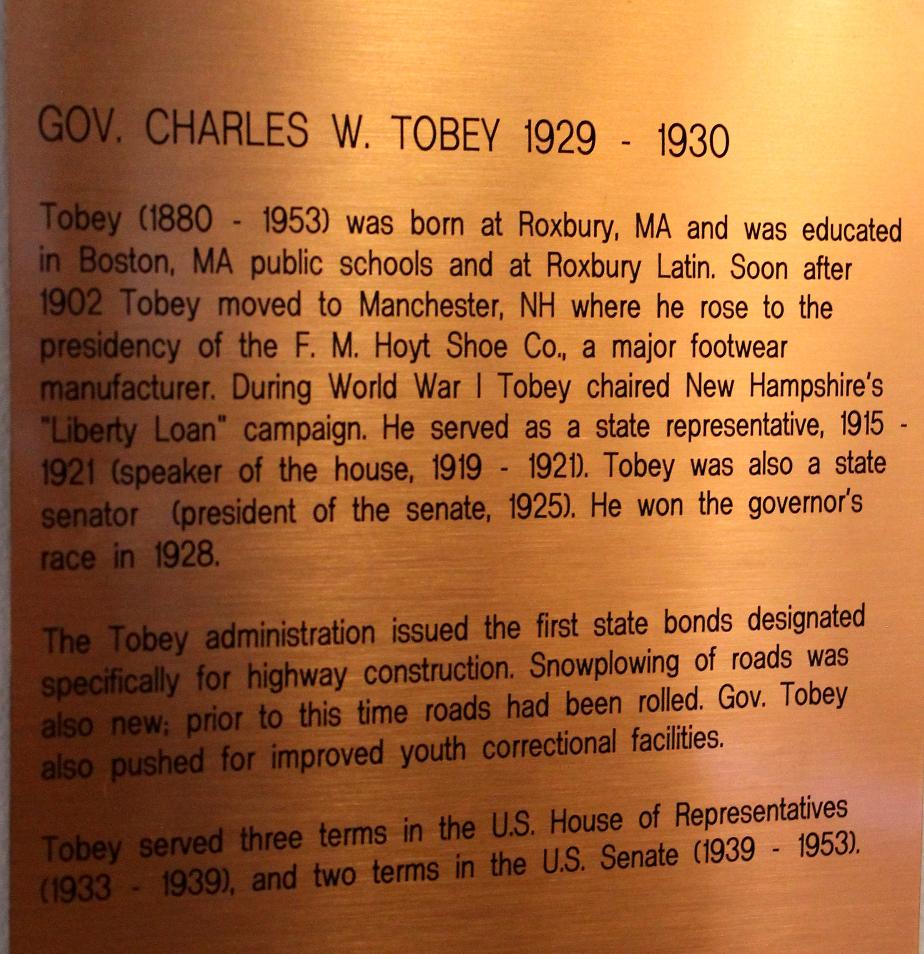
Governor H. Styles Bridges : 1935 -1936
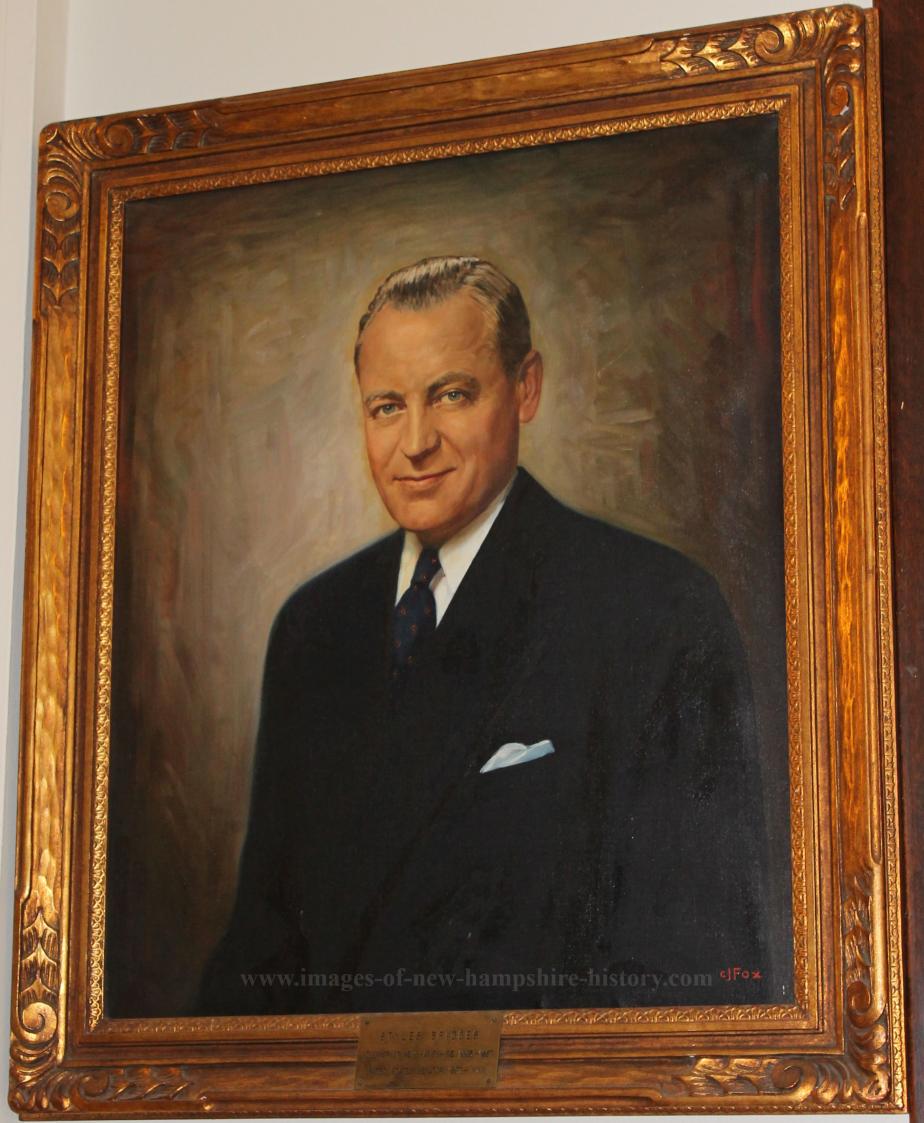
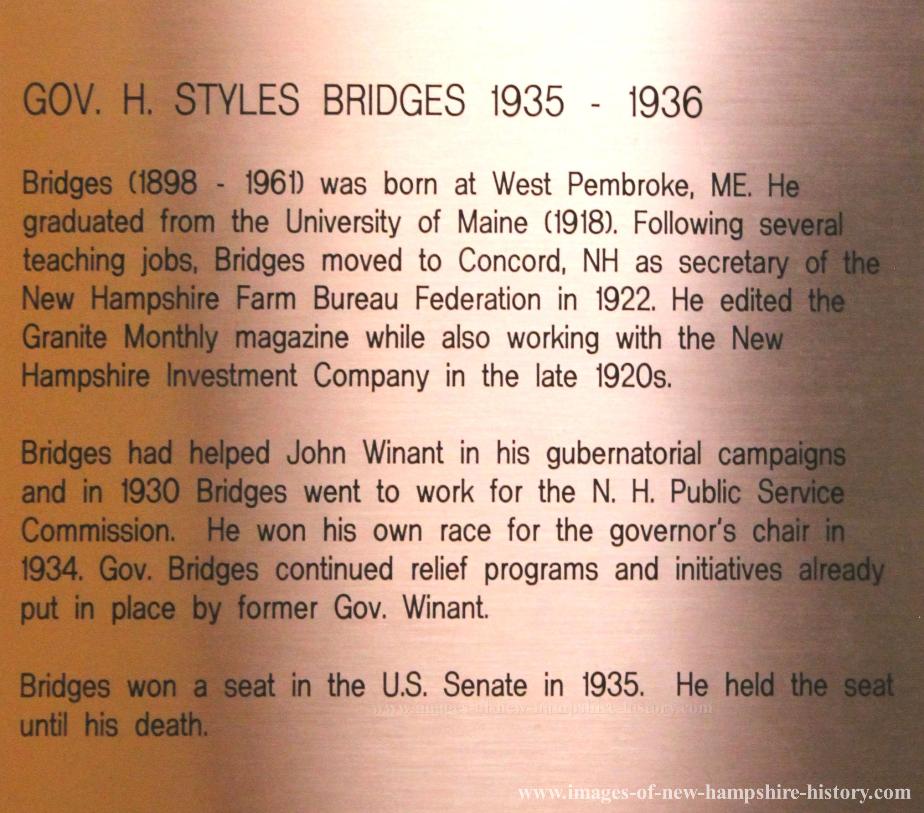
Governor Francis P Murphy 1937 - 1941
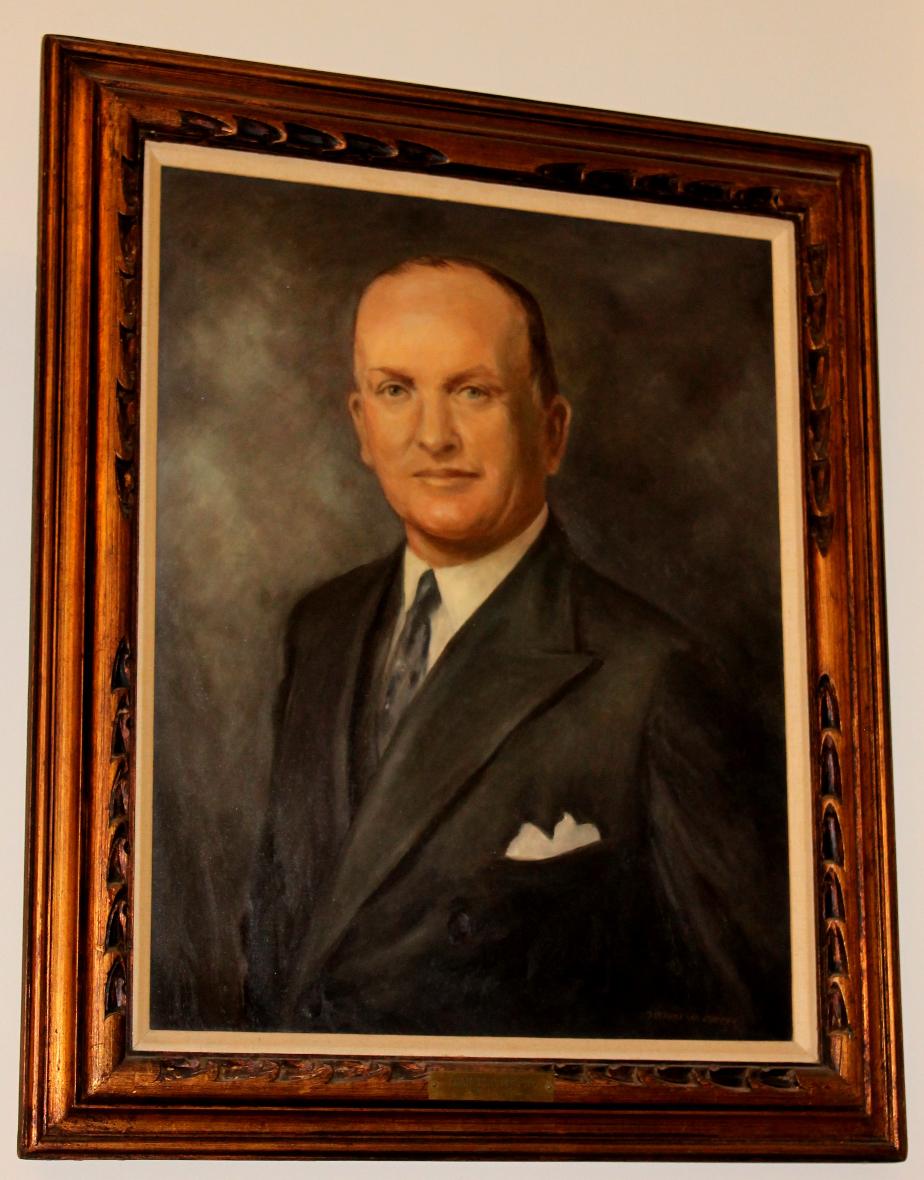
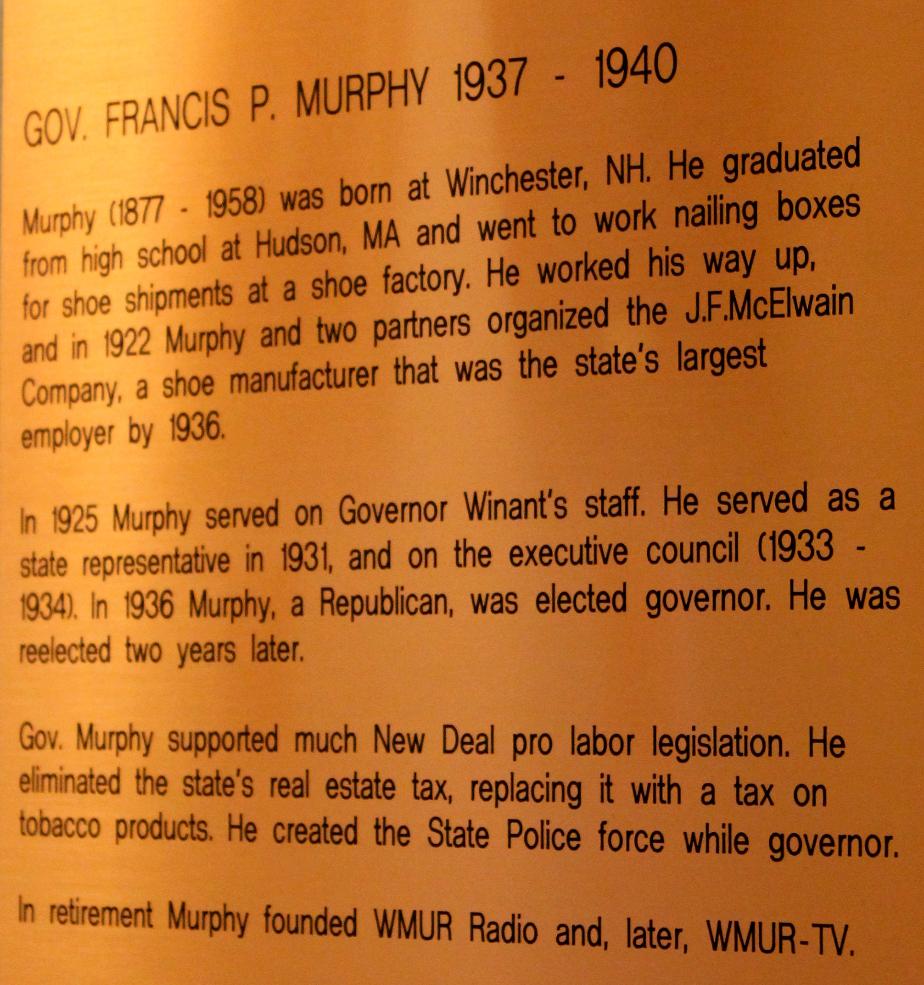
Governor Robert O Blood 1941 - 1944
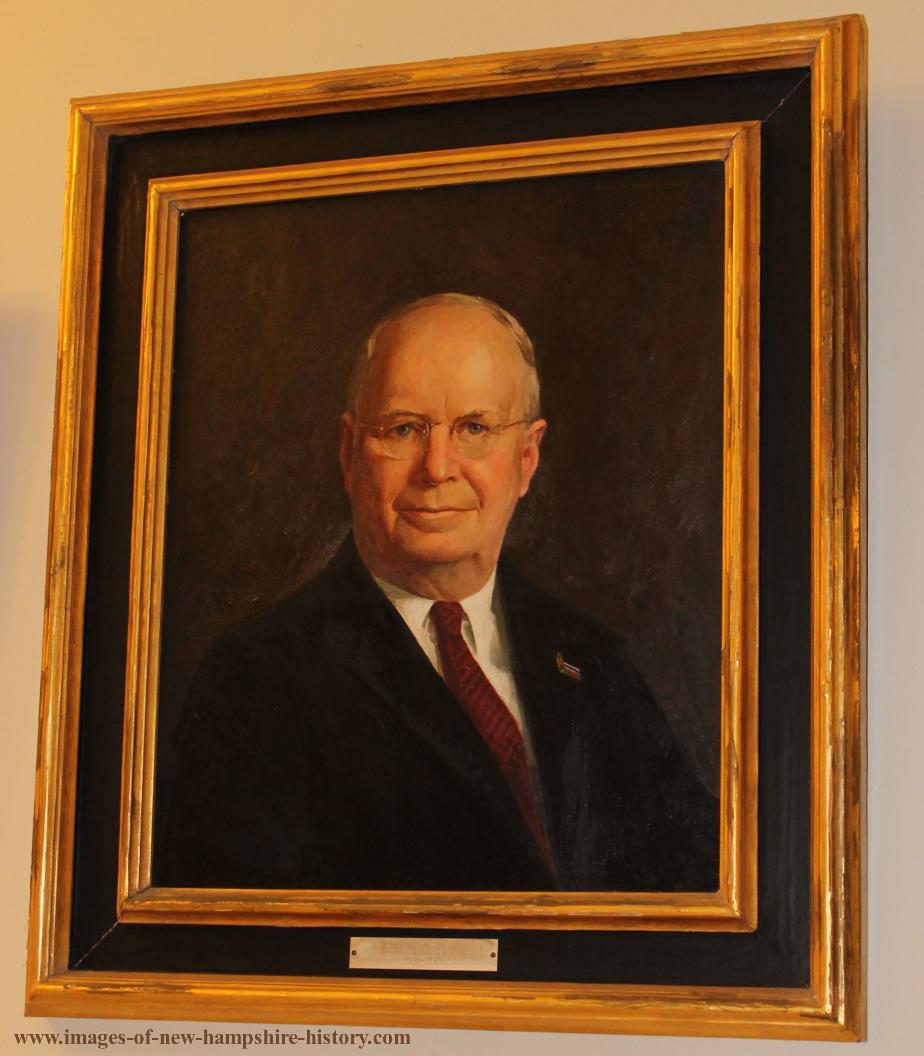
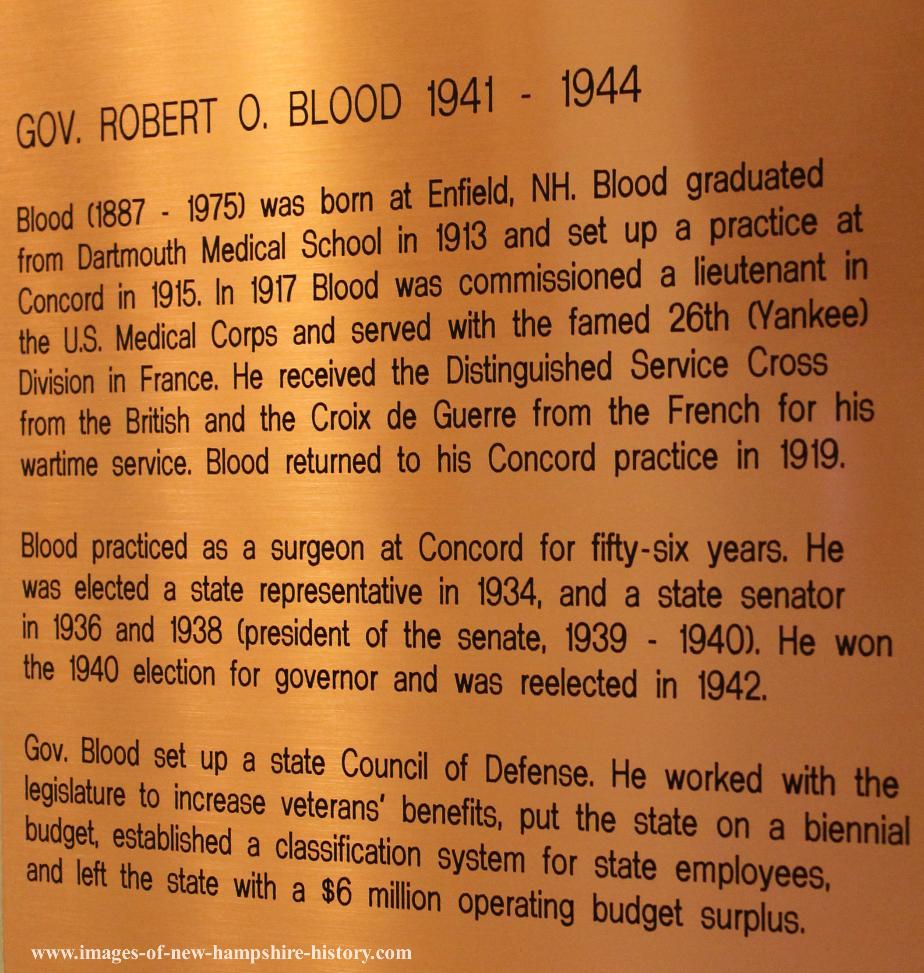
Governor Charles M Dale 1945 - 1947
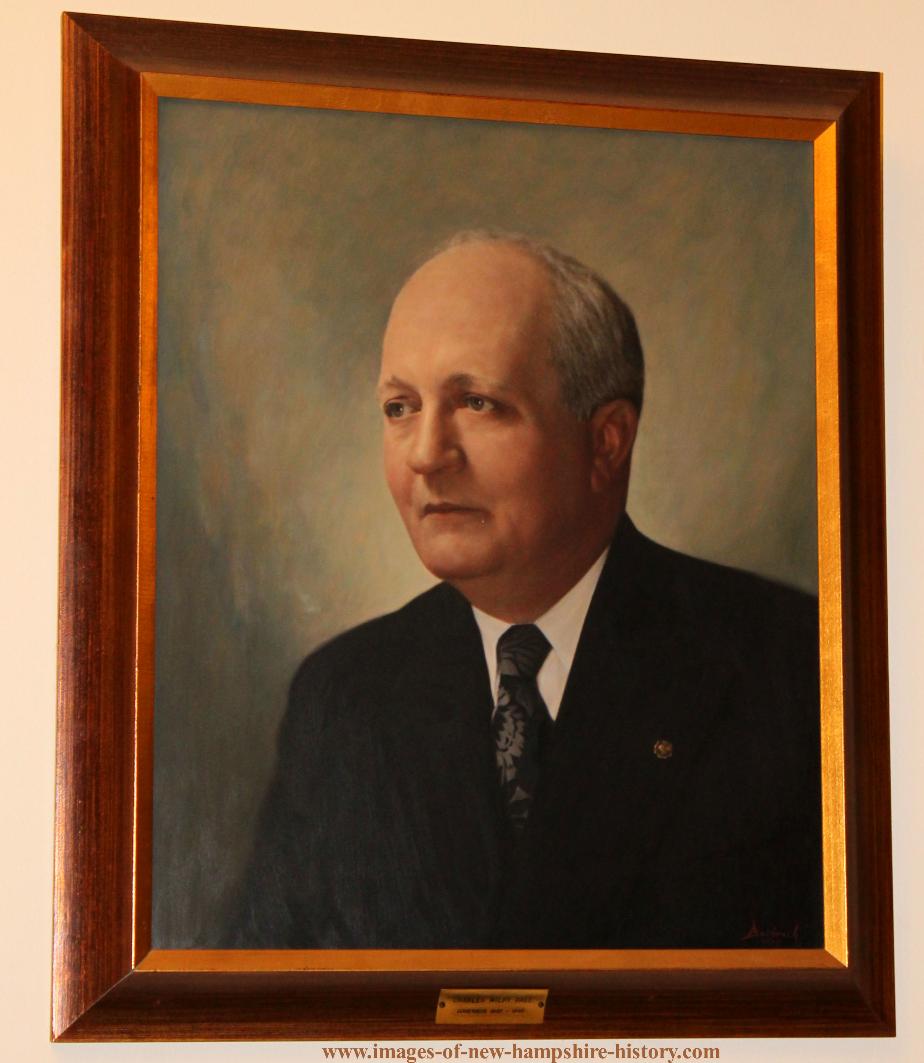
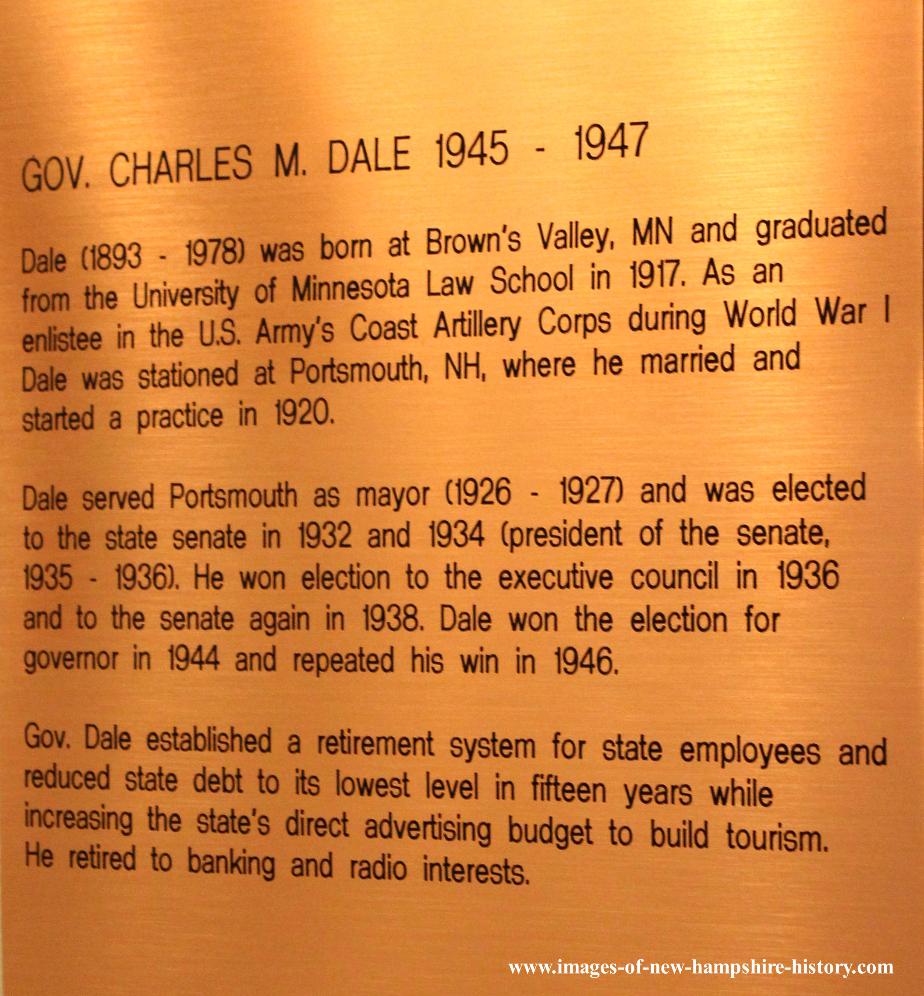
Sherman Adams (E. Dover, Vt) 1948 - 1952
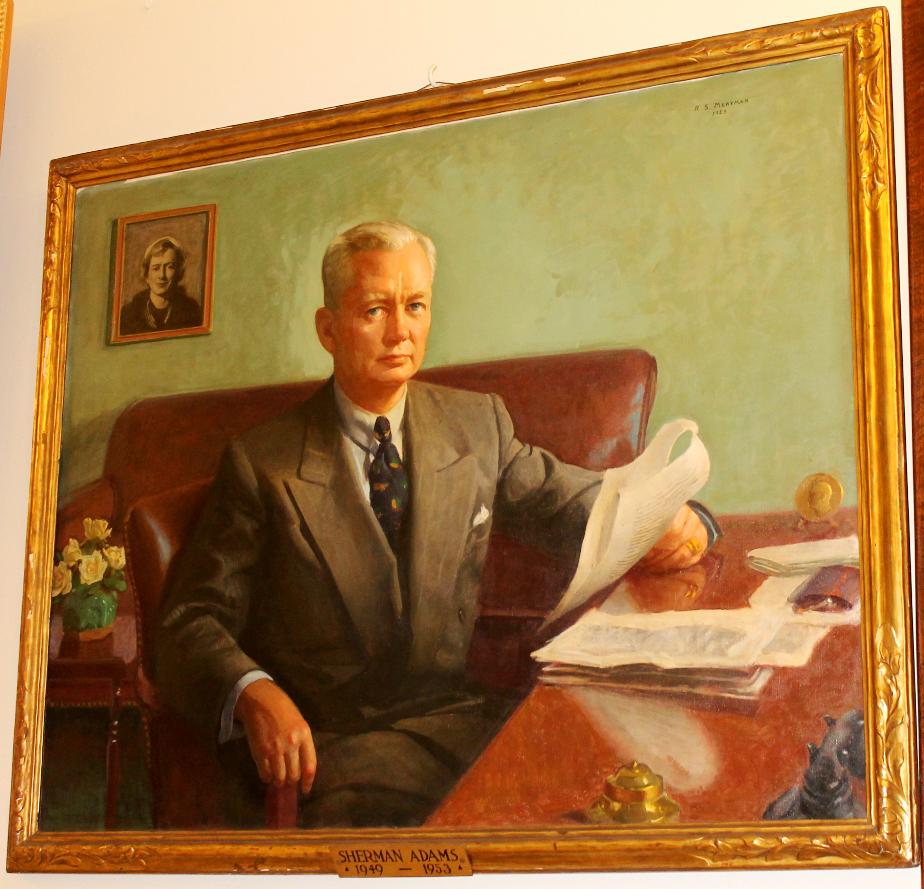
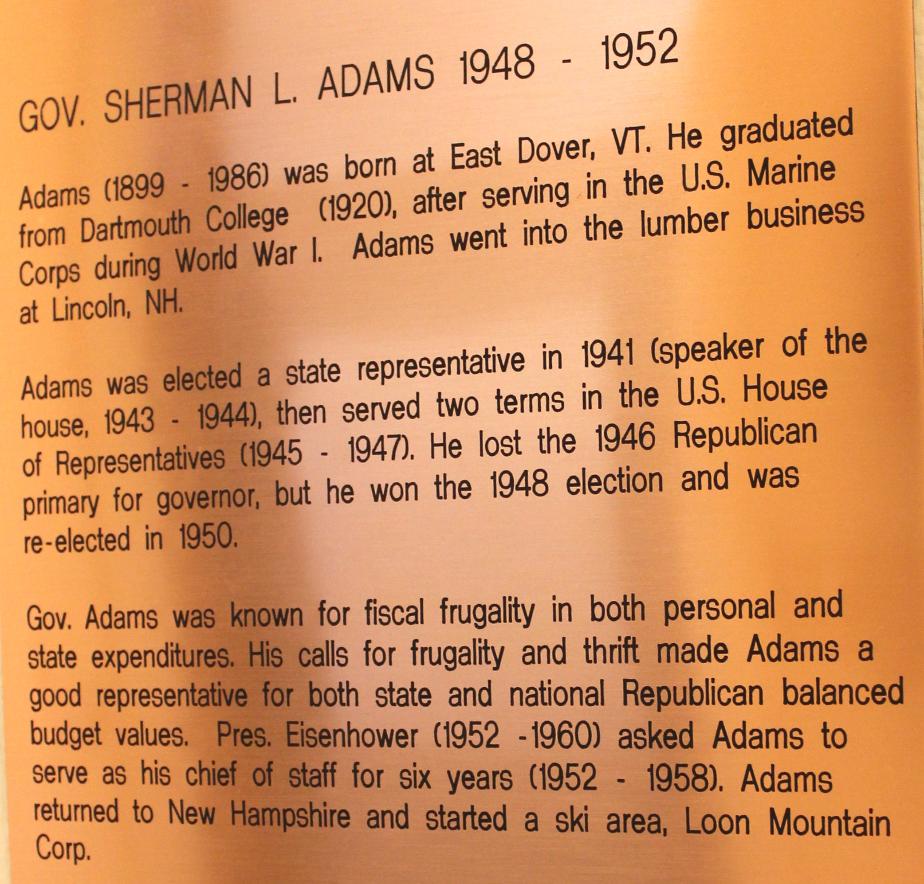
Governor Hugh Gregg : 1953 - 1954
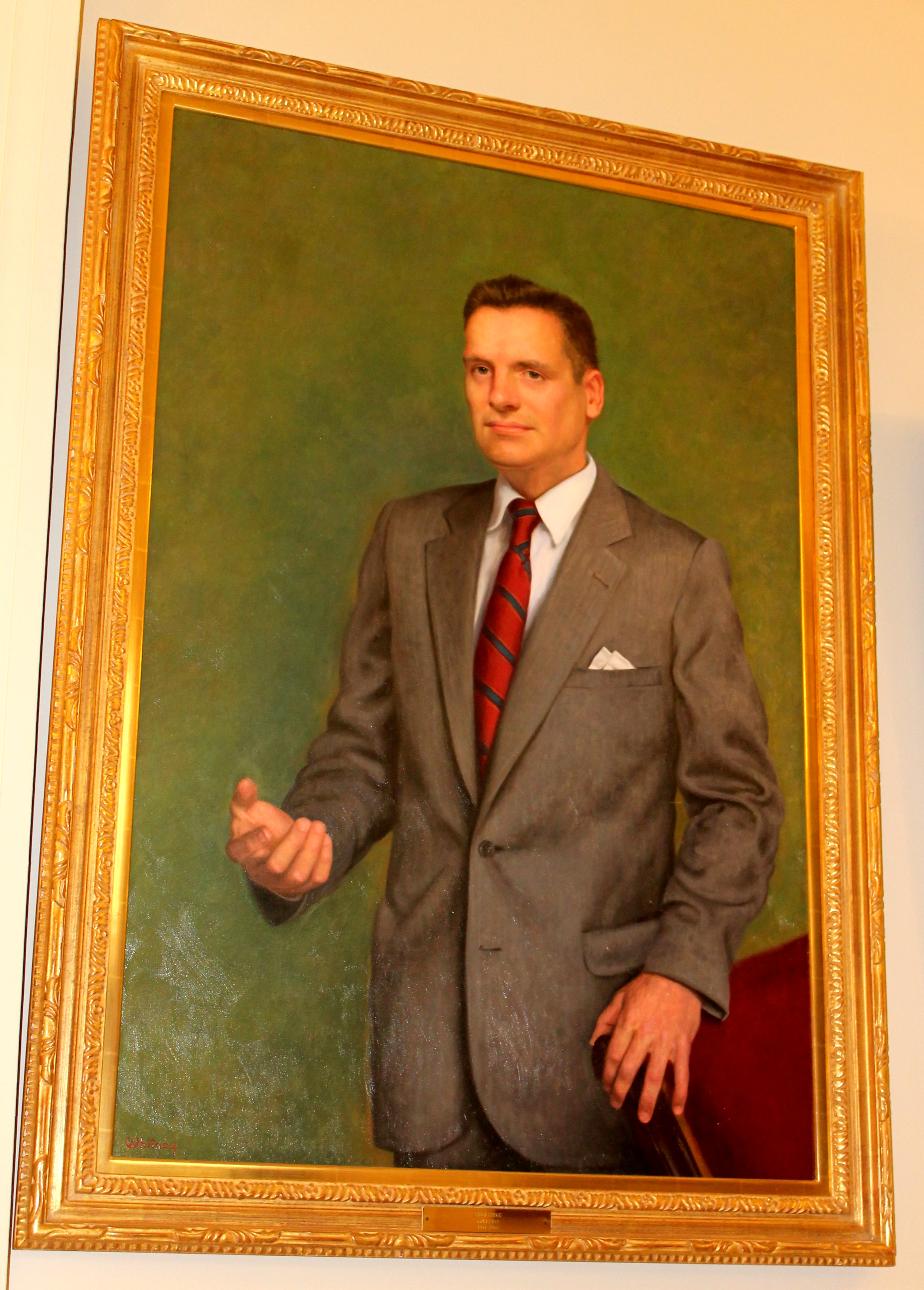
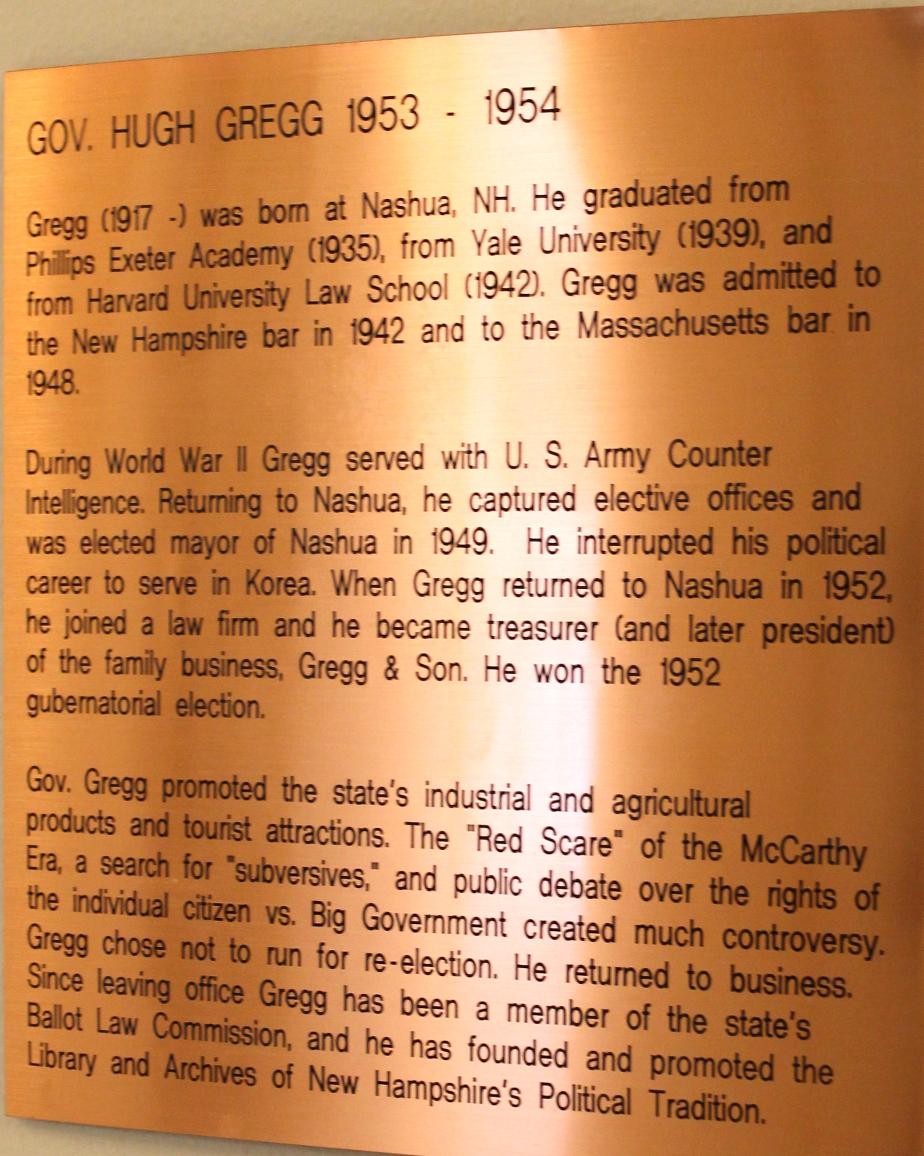
Governor Lane Dwindell 1955 - 1958
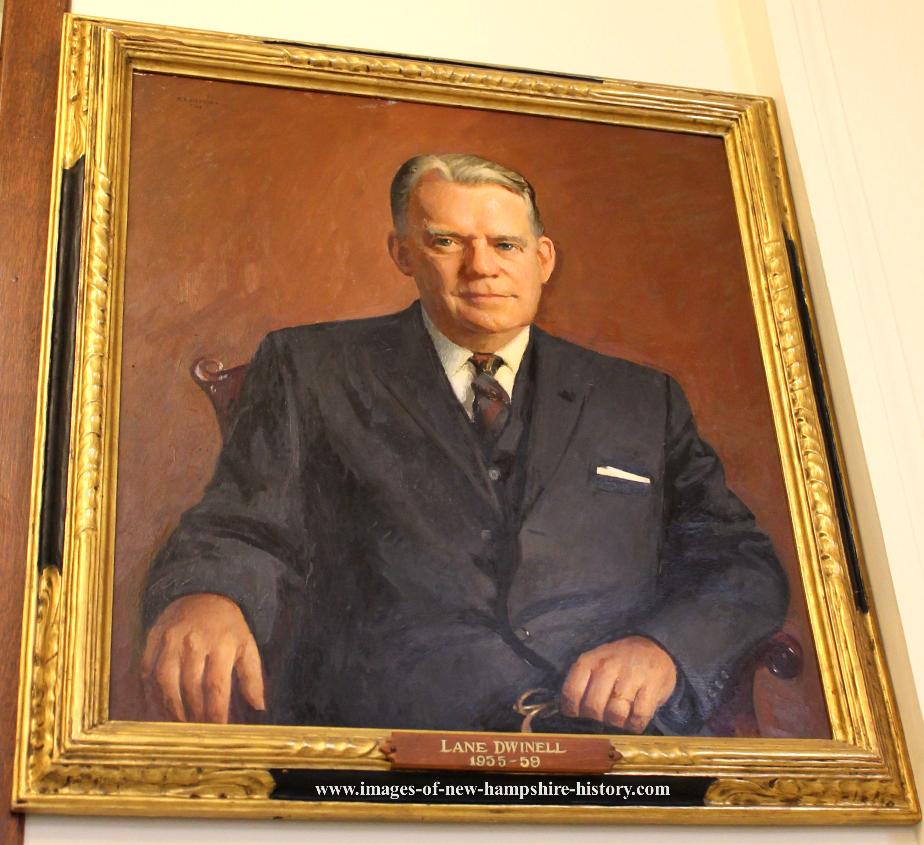
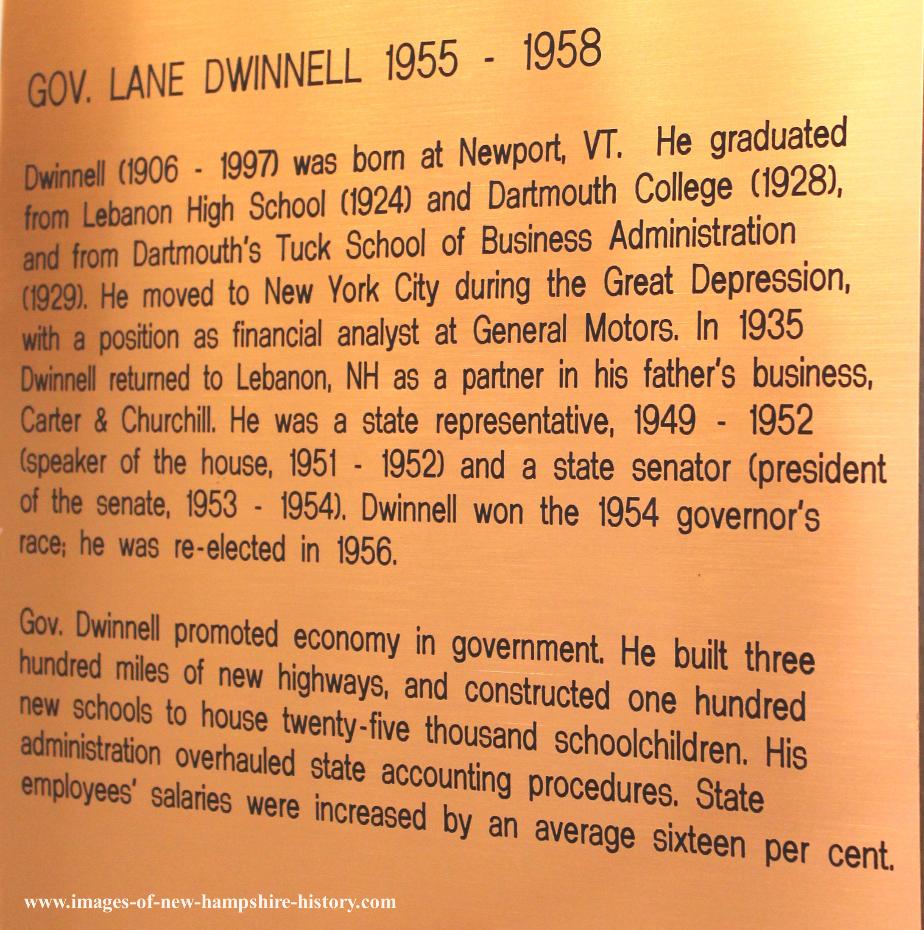
Governor Wesley Powell: 1959 - 1962
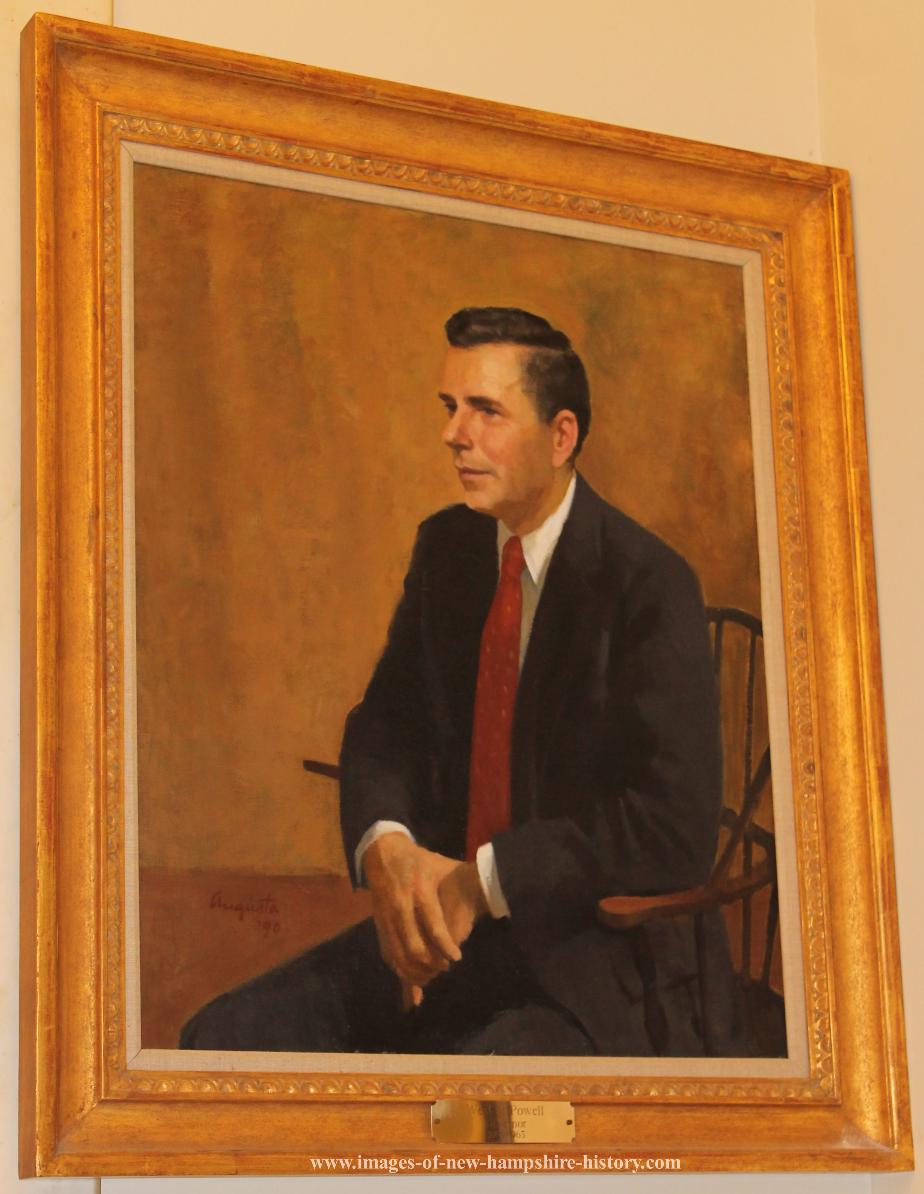
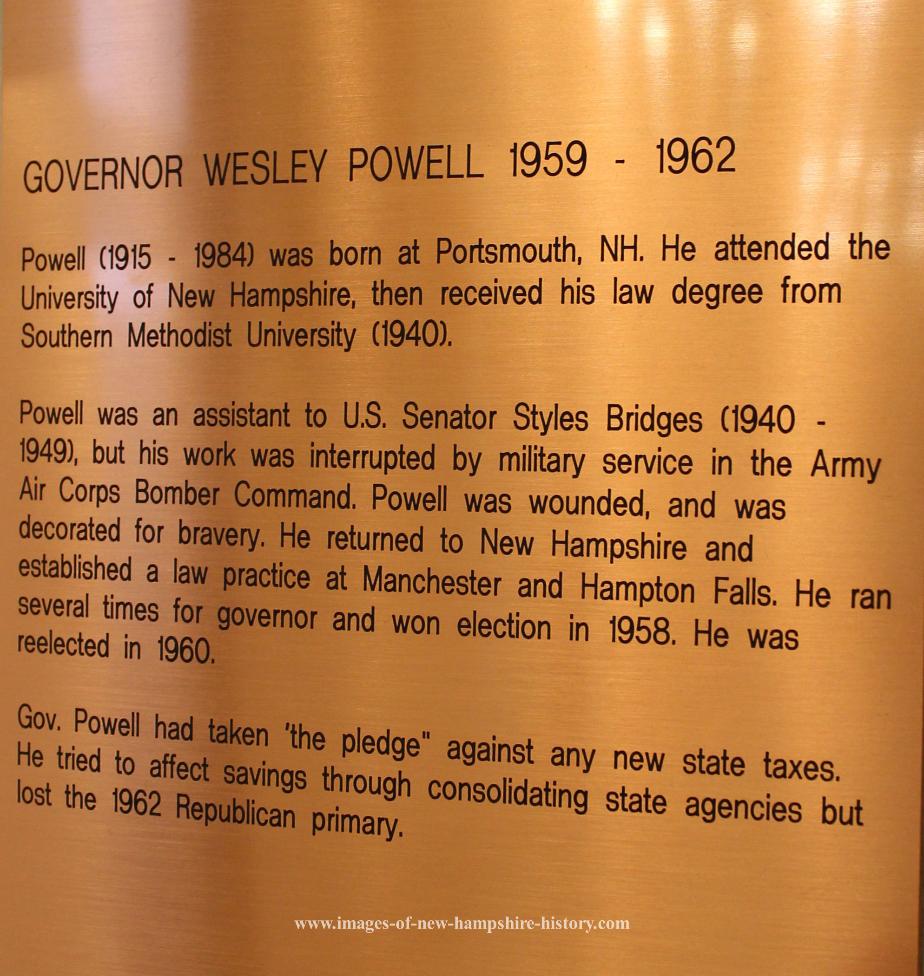
John William King (Manchester) 1963 - 1969
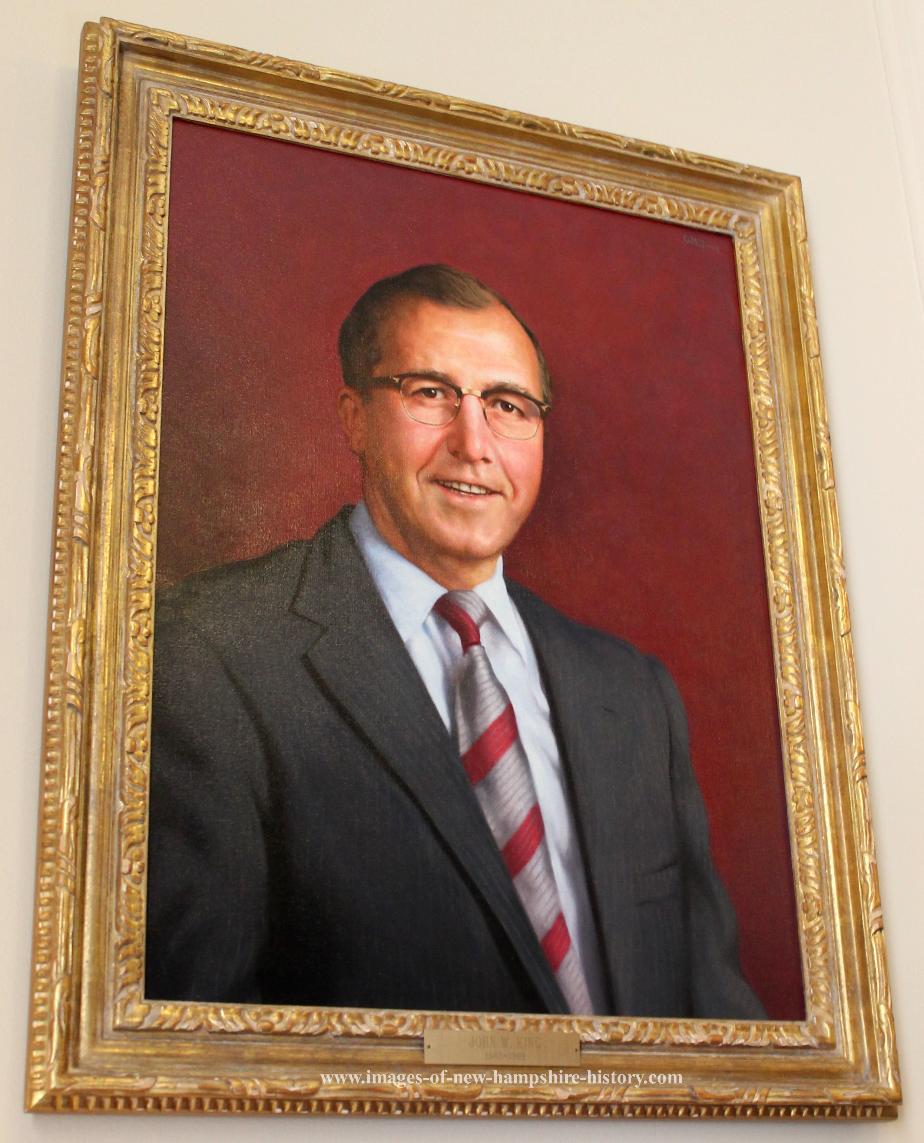
John W. King, the eighty-first governor of New Hampshire, was born in Manchester, New Hampshire on October 10, 1918.
John King's education was attained at Harvard University, where he earned an A.B. degree in 1938, and an M.A. degree in public law in 1941. He then attended Columbia University, where he earned an LL.B. degree in 1943. After practicing law in New York and New Hampshire, King entered into politics. In 1957, he chaired the Manchester delegation in the New Hampshire House of Representatives, as well as serving as the minority leader of the house in 1959 and 1961. King next secured the Democratic gubernatorial nomination, and was elected governor by a popular vote in 1962. He won reelection in 1964 and 1966. During his tenure, the Robert Frost historic homestead was established; a state lottery game was initiated that funded the advancement of the state's school system; the home rule for state cities was improved; and the judicial system was updated. After completing his term, King served as a justice on the New Hampshire Supreme Court from 1979 to 1986, serving as chief justice from 1981 to 1986. Governor John W. King passed away on August 9, 1996, and was buried in the New St. Joseph's Cemetery in Bedford, New Hampshire.
Governor Walter Peterson 1969-1972
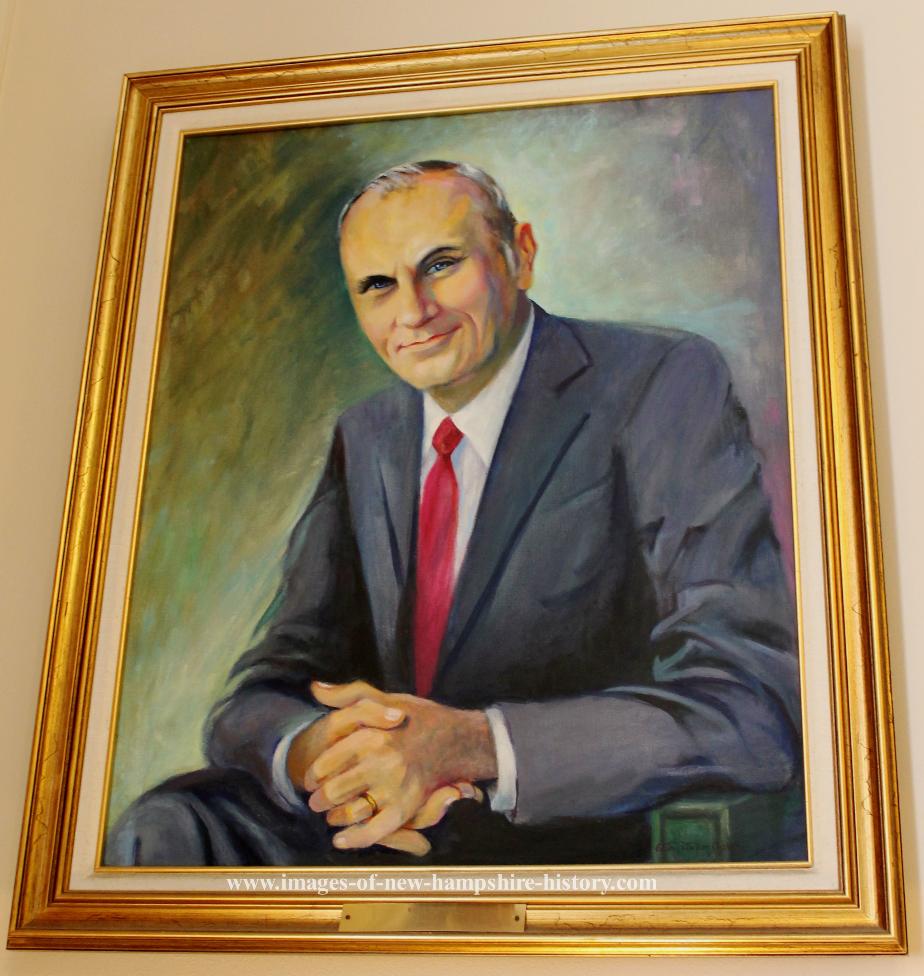
WALTER PETERSON was born in Nashua, New Hampshire, on September 19, 1922. He received a B.A. from Dartmouth College in 1947. He also attended the College of William and Mary and the University of New Hampshire. His college years were interrupted by four years' service as a U.S. Naval Reserve officer in the Southern Pacific. After graduation from Dartmouth, Peterson became a partner in The Petersons, Inc., a real estate firm in Peterborough, New Hampshire. He served as a member of the Peterborough Budget Committee (1957-63); and as a member of the New Hampshire House of Representatives, serving as majority leader from 1963 to 1964 and as speaker from 1965 to 1968. He was elected governor in 1968 and reelected in 1970. As governor Peterson was much concerned with state revenues. The state was growing rapidly and costs of infrastructure were rising. A business profits tax was passed, and increased liquor sales helped produce a budget surplus during his administration. Efforts were made to reorganize state government so that it operated more effectively at less cost; a 300-person Citizens Task Force worked on this. In 1972 a special session of the legislature was called to consider the impact of New Hampshire's property tax on cities and towns, and related fiscal matters. For two decades following his tenure as governor, Peterson was president of Franklin Pierce College. Governor Peterson died June 2, 2011
Governor Meldrim Thomson 1973 - 1979
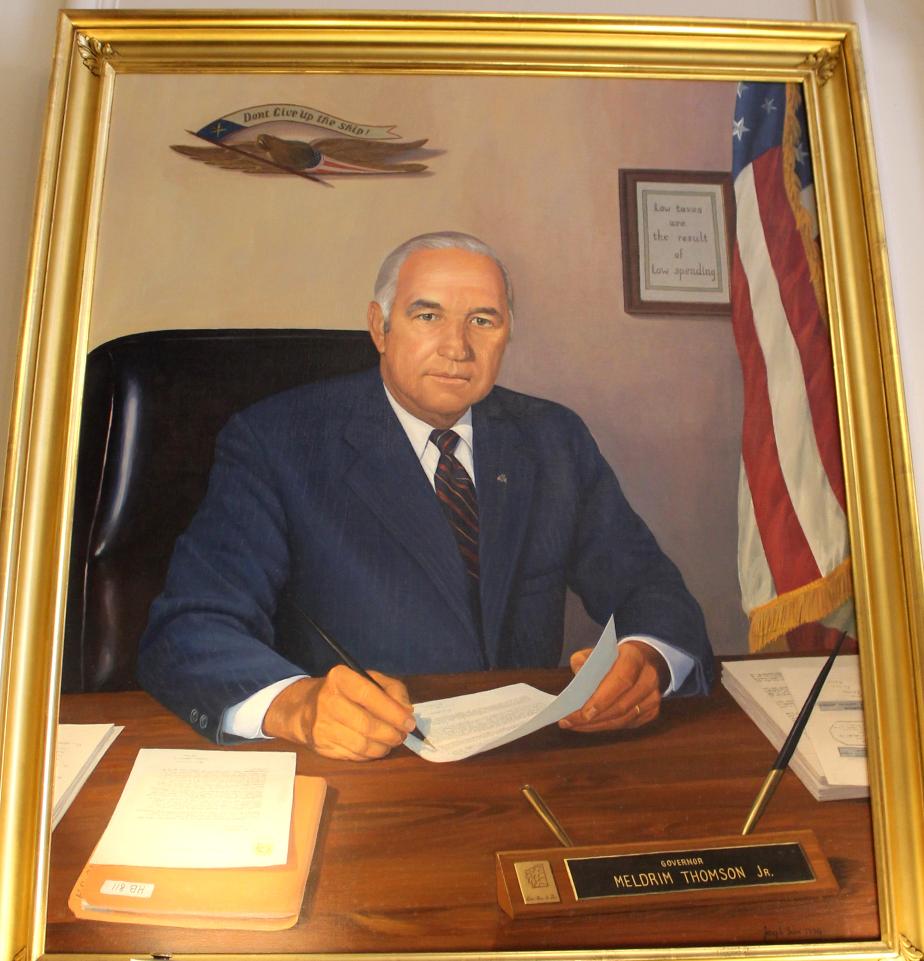
Meldrim Thomson JR. was born in Pittsburgh, Pennsylvania, on March 8, 1912. He attended the University of Miami, Washington and Jefferson College, Mercer University and the University of Georgia, receiving a LL.B. from the latter. Thomson started a legal textbook publishing firm on Long Island, New York. In search of quiet, he moved his family of six children to Orford, where he founded Equity Publishing Corp. As governor from 1973-1979, serving three two-year terms, he drew devoted support from ultraconservatives with positions that included suggesting nuclear weapons for the state National Guard. He once called Martin Luther King "a man of immoral character whose frequent association with leading agents of communism is well-established." But he also drew votes for his strong antitax stance -- to this day, the state has neither an income tax nor a sales tax -- and for his philosophy of independence from federal influence. Thomson is a former member and chairman of both the Stony Brook, Long Island; and Orford, New Hampshire, school boards. He was a member of the New Hampshire constitutional convention in 1964. Thomson also co-founded Taxfighters, Incorporated, and the Public School Association. Thomson has taught political science at the University of Georgia. Governor Thomson passed away from Parkinson's disease and heart problems on April 19, 2001.
Governor Hugh Gallen 1979 - 1982
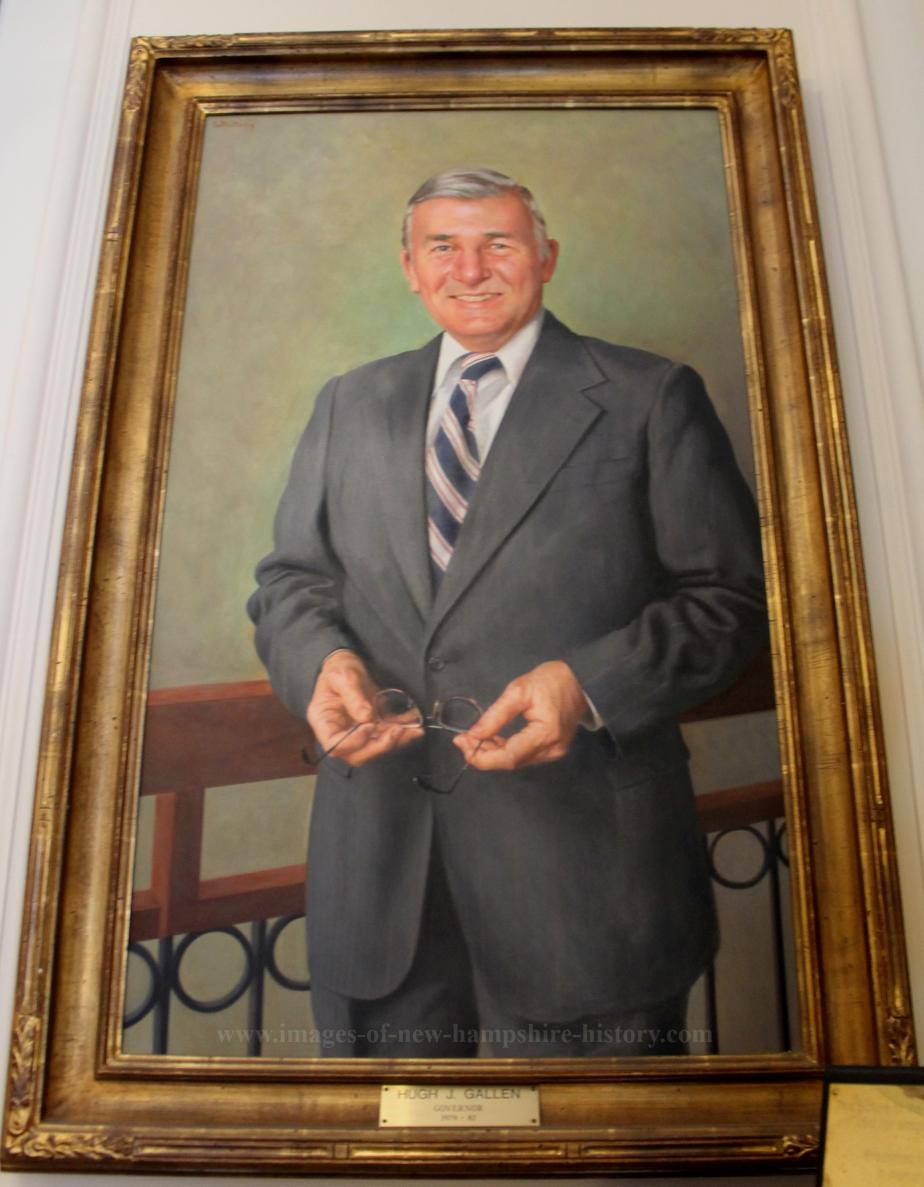
Hugh J. Gallen was born July 30, 1924, in Portland, Oregon. When he was six, Gallen's family moved to Medford, Massachusetts, where he attended local schools and graduated from Medford High School. After graduation, Gallen had a successful tryout with the Washington Senators baseball team and played for one of their minor league teams for a year, but an arm injury ended his career. In 1948 he began work as an automobile salesman in Littleton, New Hampshire. Gallen stayed in Littleton and in 1964 he became full owner of an automobile dealership, Hugh Gallen, Inc. From 1962 to 1965, he served on the Littleton, New Hampshire, Planning Board. In 1967, he was a member of the Small Business Administration's New Hampshire Advisory Council and the National Advisory Council. He served as director and char of the New Hampshire-Vermont Development Council from 1969 to 1972, and from 1967 to 1970 as the director of White Mountain Community Services, a nonprofit agency established to provide mental health care. From 1971 to 1972, Gallen was Democratic state chairman, and he was a delegate to the 1972 Democratic National Convention. In 1973 Gallen became the first Democrat to serve as a state representative for Littleton. He entered the 1978 Democratic Party primary for governor, won, and then won the general election because of a split in the Republican Party. Former governor Wesley Powell had declared as an Independent after losing the Republican primary to the incumbent governor, Meldrim Thomson; the split allowed Gallen to become governor. In 1979 Governor Gallen called out the National Guard to protect Seabrook Power against anti-nuclear demonstrators. Gallen's strong action won him reelection against Thomson in 1980, but a year later 9,200 state employees struck for higher wages. In negotiations Gallen agreed to a 9 percent raise; the Republican-controlled legislature would only agree to 6 percent. Gallen vetoed the state budget prepared by the Republicans, but he would not support a state sales tax or income tax to help pay for the contract he had negotiated with state workers. He had no way to pay for the state employees' contract. In 1982 Gallen ran unopposed in the Democratic primary, while John Sununu won the Republican primary for governor. During the campaign Gallen refused to pledge that he would not introduce a new sales tax or income tax to pay for the employees' contract; this cost Gallen the election. Shortly after the election Gallen contracted a rare blood infection and he died of this December 29, 1982, eight days before the end of his term. Vesta Roy, president of the New Hampshire Senate, served as acting governor until John Sununu could be sworn in as the state's new chief executive.
Vesta Roy - 1982 - 1983
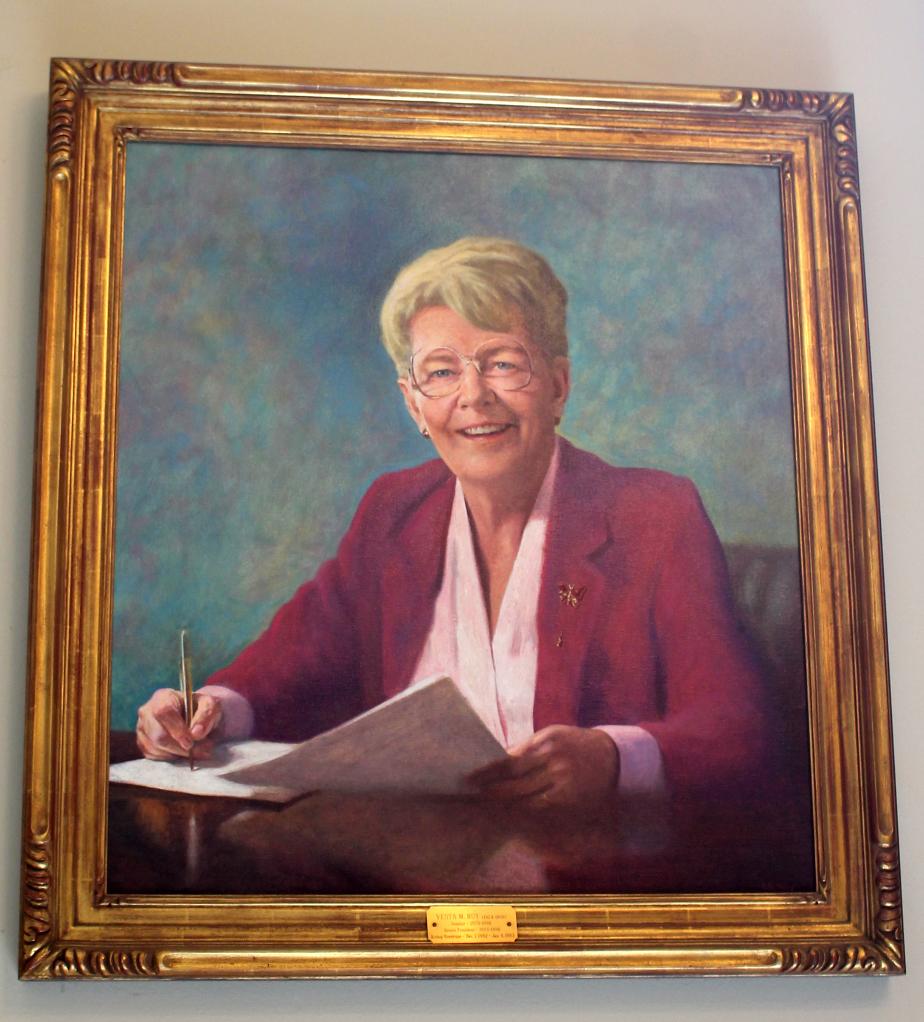
VestaM. Roy was born in Detroit, Michigan. She served as a Rockingham, County, New Hampshire Commissioner, and as a member of both the New Hampshire House of Representatives (1973-75) and Senate (1978-86). As President of the Senate, she assumed the office of governor briefly in an acting capacity upon the death of then-Governor Hugh Gallen shortly before the inauguration of Governor-elect John H. Sununu. Although she was governor for only one week, she holds the status of being the first Republican female governor in U.S. history. Roy was also an advisor to the New Hampshire presidential campaign offices of Gerald Ford, Ronald Reagan, and George H.W. Bush. She died at her home in Kenmore, New York at the age of seventy-six and is buried in Lowell, Massachusetts.
Governor John Sununu 1983 - 1989
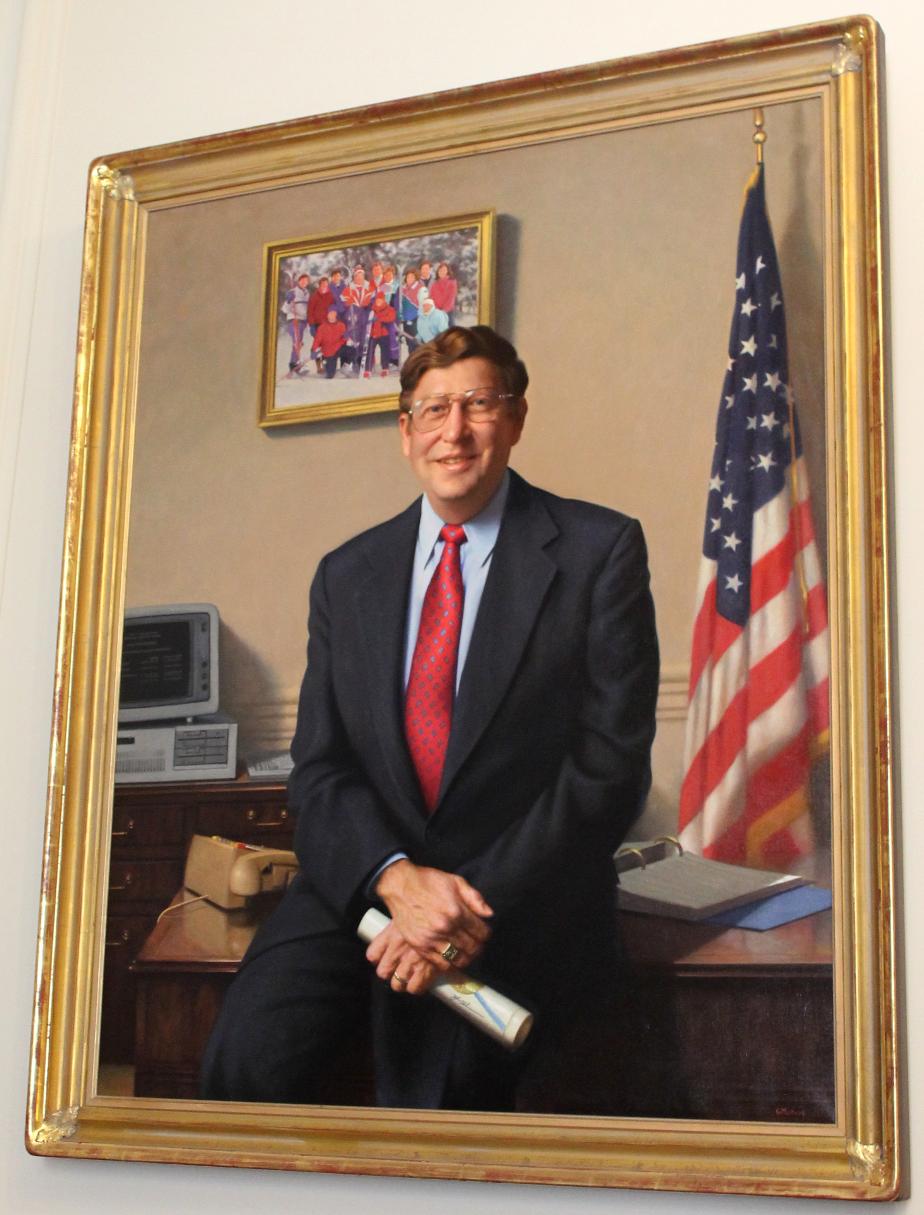
John H. Sununu was born in Havana, Cuba. He graduated from the Massachusetts Institute of Technology. He received his bachelor's degree in 1961, a master's degree in 1962, and a Ph.D. in mechanical engineering in 1966. He was a mechanical engineering professor at Tufts University from 1966 to 1968 and associate dean of the College of Engineering until 1973. From 1963 until his election as governor, he served as president of JHS Engineering Company and Thermal Research Inc. He represented Salem in the New Hampshire State Legislature from 1973-1974. He became New Hampshire's 75th Chief Executive on January 6, 1983, and served three consecutive terms. Sununu served on the Advisory Board of the Technology and Policy Program at MIT from 1984-1989. On January 21, 1989, Governor Sununu was commissioned Chief of Staff to President George H. W. Bush, serving in the White House until March 1, 1992. He is a member of the National Academy of Engineers' Committee on Public Engineering Policy and has served as a member of the President's Council on Environmental Quality Advisory Committee. Sununu chaired the National Governors Association, the Coalition of Northeastern Governors, and the Republican Governors Association. From 1992 until 1998, he co-hosted CNN's nightly Crossfire program, a news/public affairs discussion program. He is president of JHS Associates, Ltd. and a partner in Trinity International Partners, a private financial firm. He is a member of the National Academy of Engineering
Governor Judd Gregg : 1989 - 1993
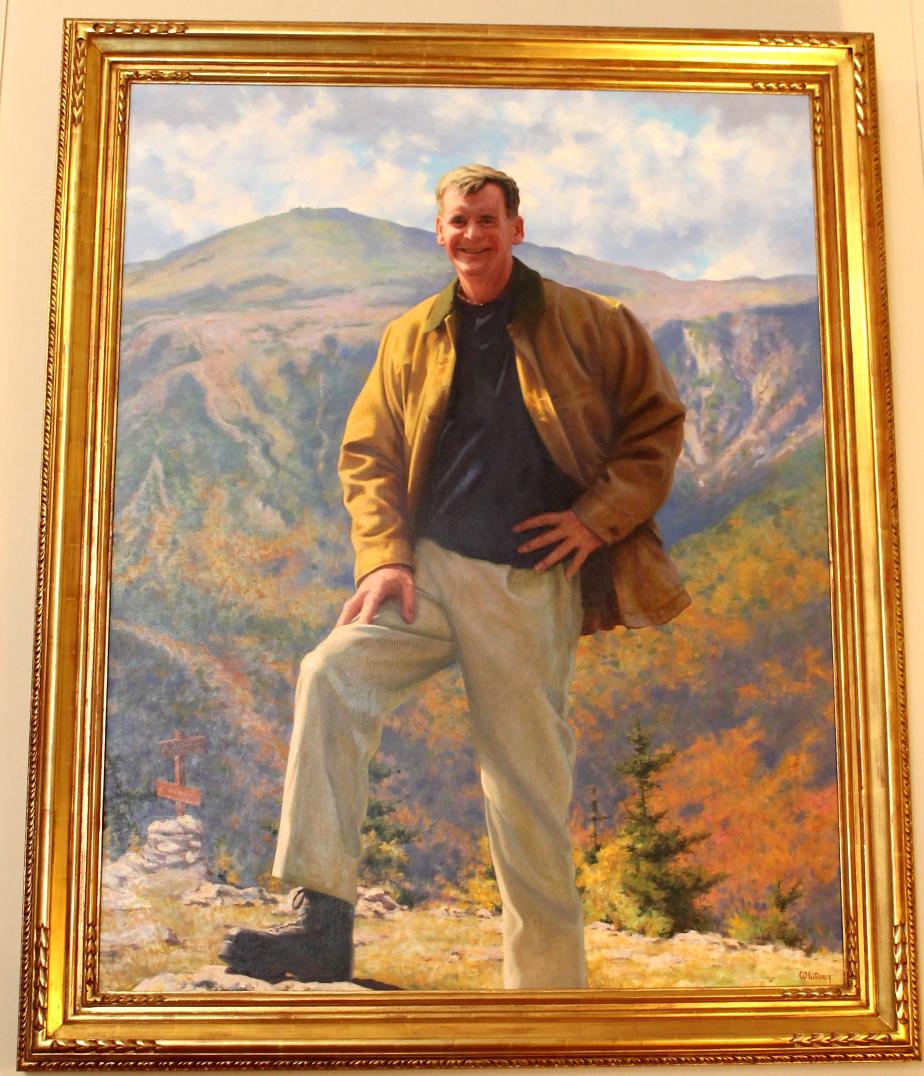
Judd Gregg was born in Nashua, New Hampshire on February 14, 1947. He received degrees from Phillips Exeter Academy in 1965 and Columbia University in 1969. He earned a law degree from Boston University Law School in 1972 and a degree in tax law in 1975. His first public office was as a member of the New Hampshire Executive Council, an institution that predates the American Revolution and that must approve all state expenditures and appointments made by the governor. He was elected to the U.S. House of Representatives in 1980, and he was reelected in 1982, 1984, and 1986. He served on the House Committee on Government Operations, the Committee on Science and Technology, and the influential Ways and Means Committee. In 1988 he was elected governor and he was reelected in 1990. He served as chair of the New England Governors' Conference.
Steve Merrill 1993-1997
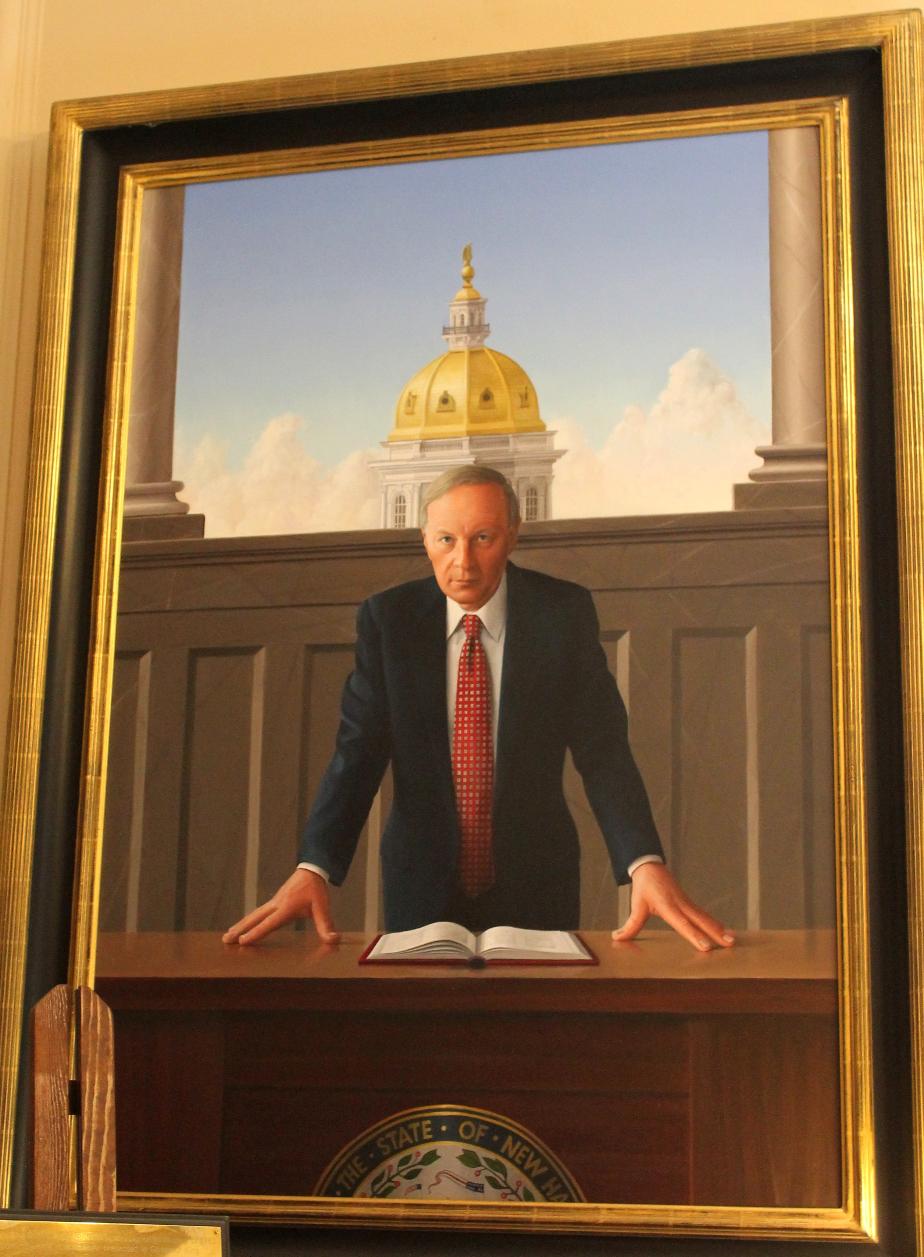
STEPHEN MERRILL was raised in the seacoast town of Hampton, New Hampshire. In 1969 he earned a bachelor of arts degree in history from the University of New Hampshire (UNH), where he was a Ford Foundation scholar; he was the first governor of the state to graduate from UNH. He received a law degree from Georgetown University Law School in 1972. He was in the U.S. Air Force from 1969 to 1976, serving as civilian aide to the secretary of the U.S. Army for the final two years. He served as the state attorney general from 1984 to 1989. He was elected governor in November 1992 and reelected in 1994.
Jeanne Shaheen NH Governor 1997-2003
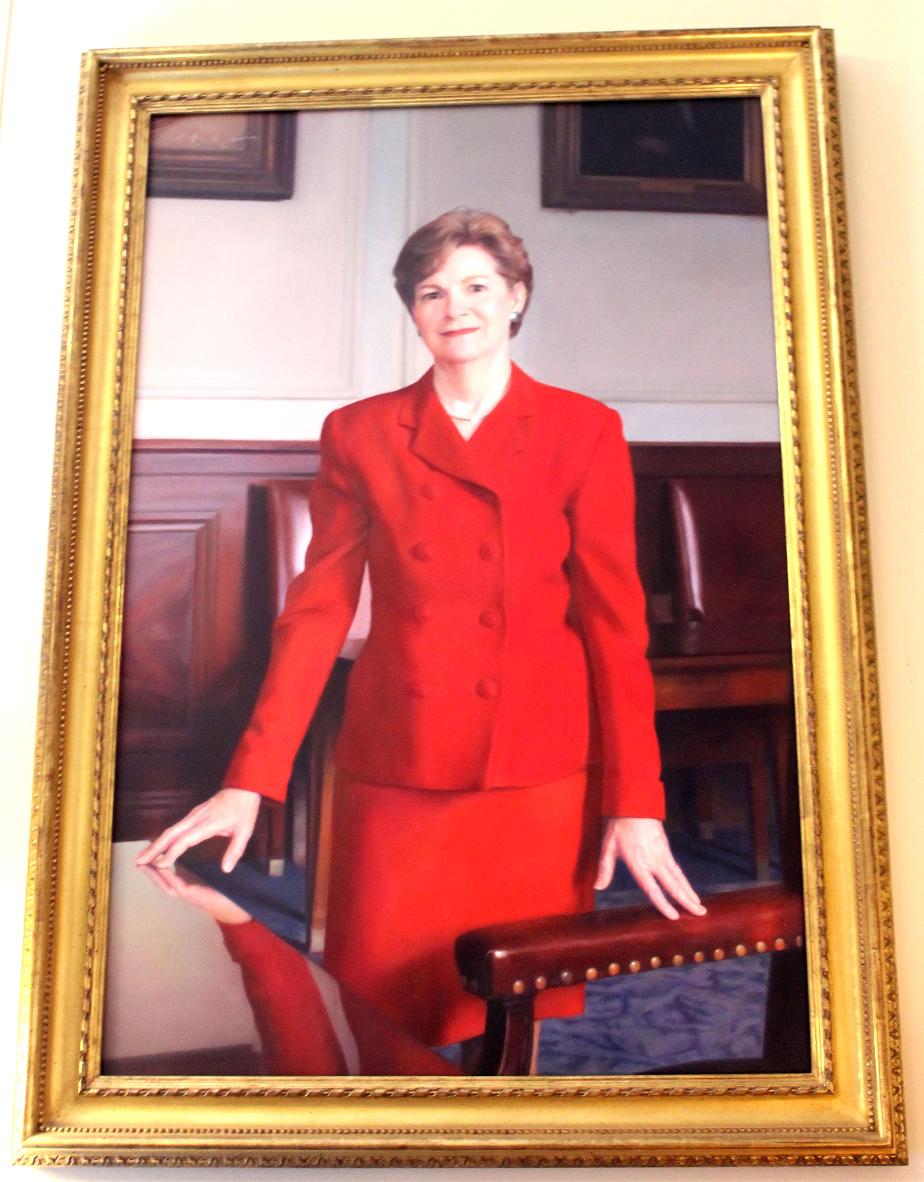
Jeanne Shaheen, a Senator from New Hampshire; born in St. Charles, Mo., January 28, 1947; B.A., Shippensburg State College, Shippensburg, Penn., 1969; M.S.S., University of Mississippi, 1973; New Hampshire State senator, 1990-1996; governor of New Hampshire, 1997-2003; unsuccessful candidate for election to the United States Senate in 2002; elected as a Democrat to the United States Senate in 2008; reelected in 2014 for the term ending January 3, 2021.